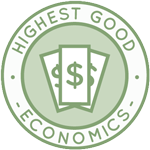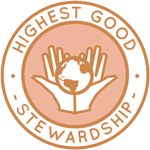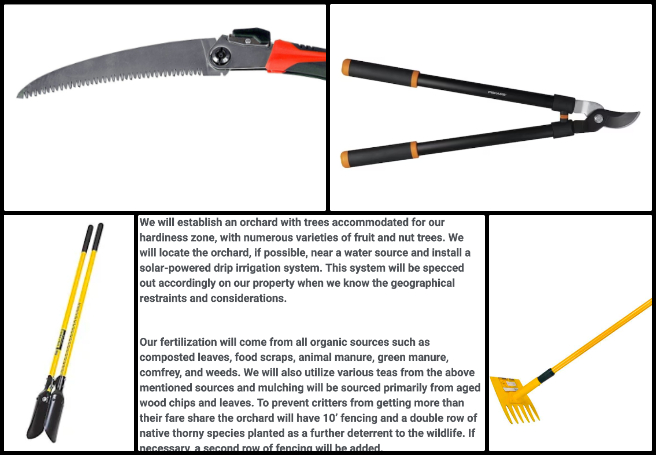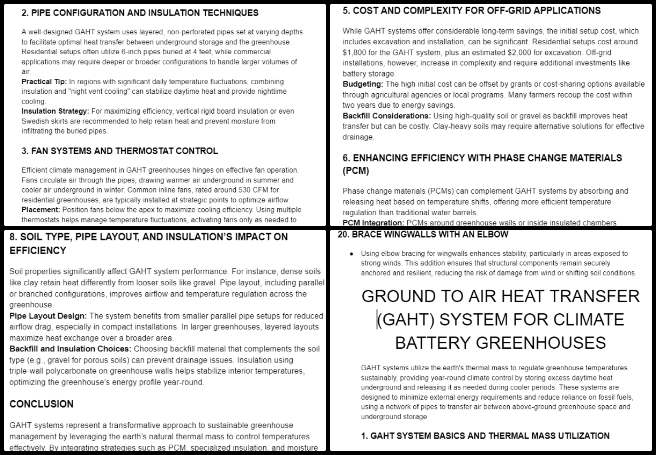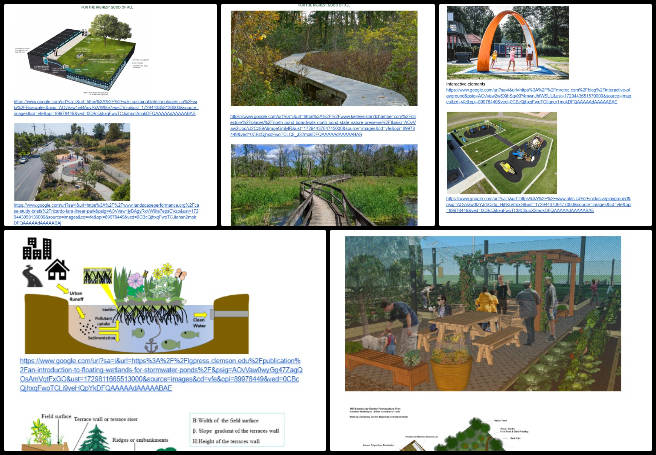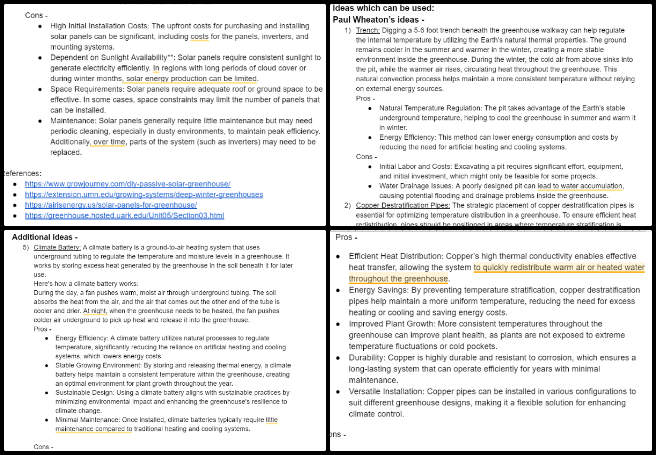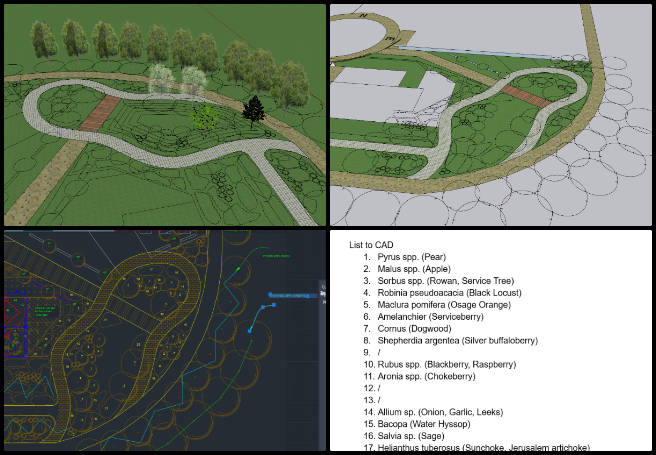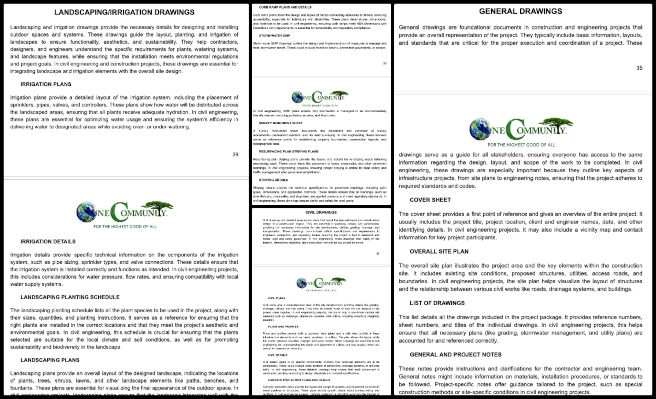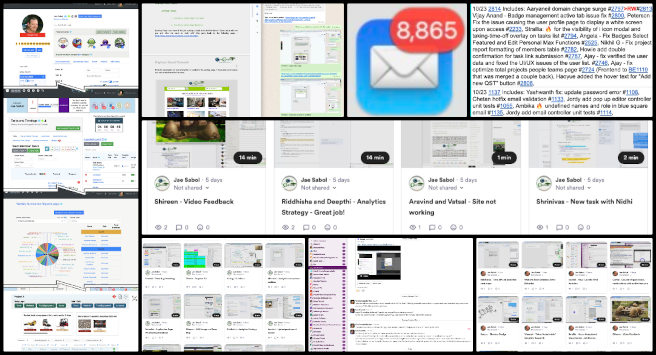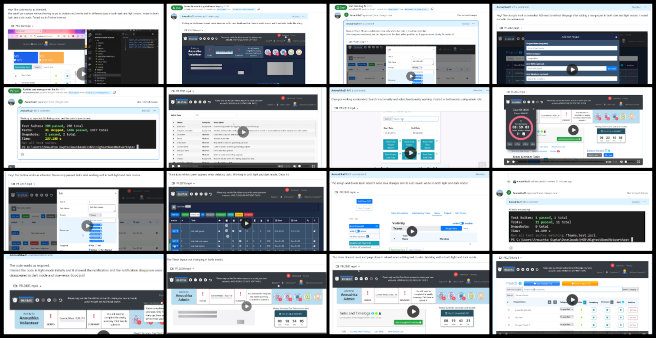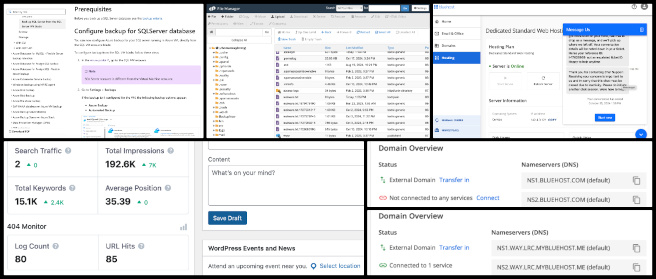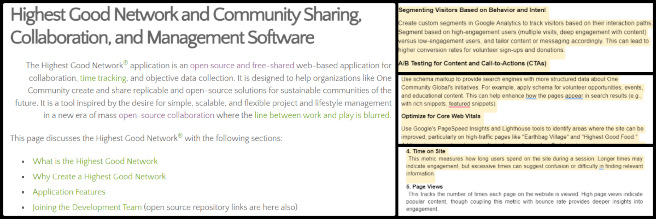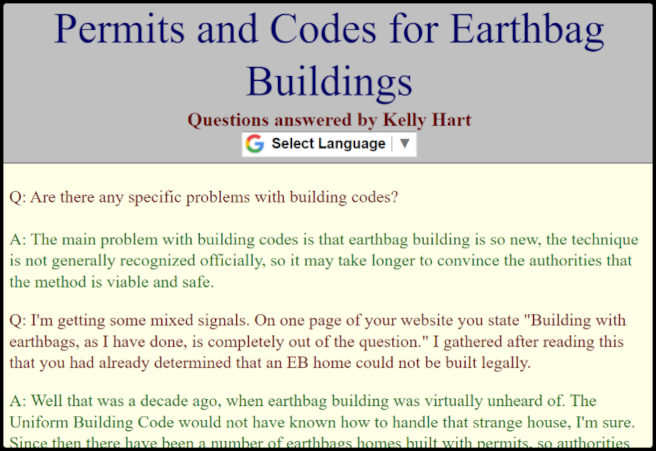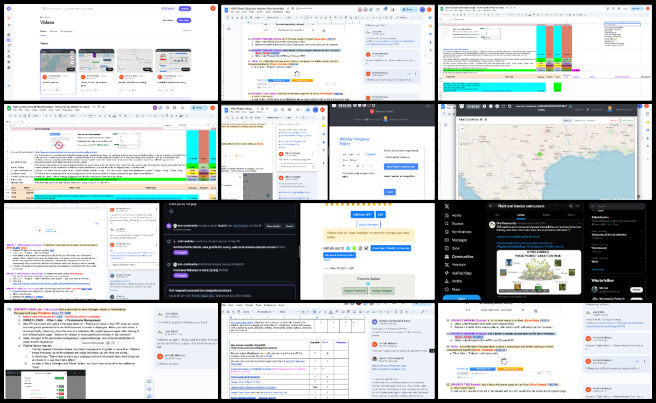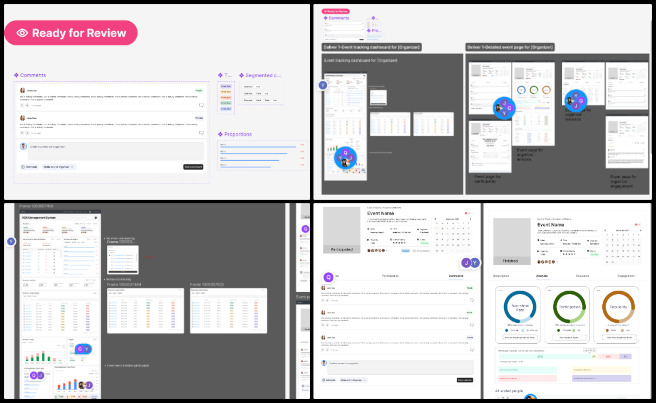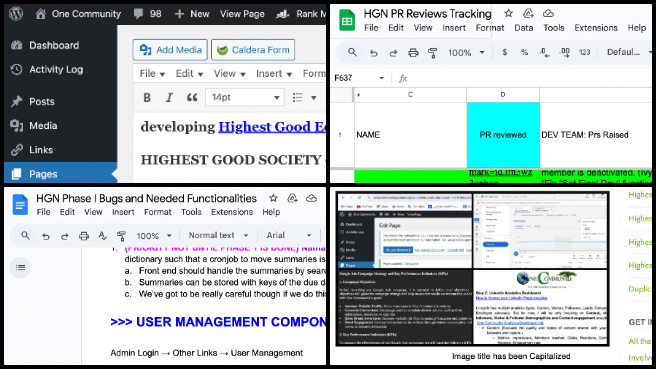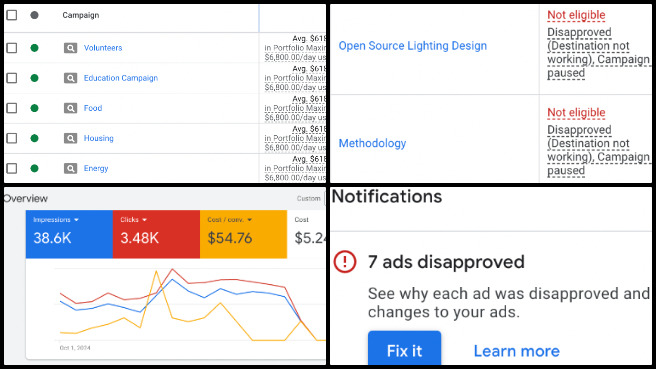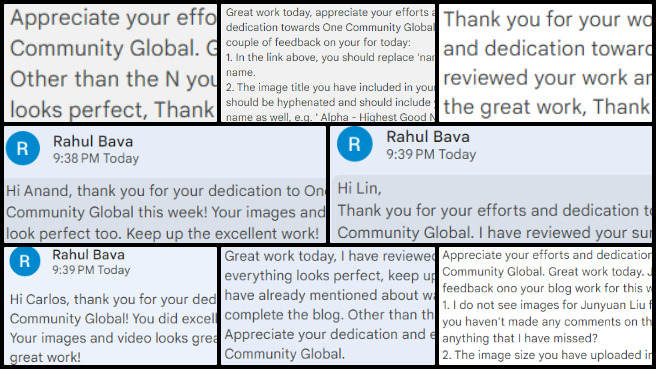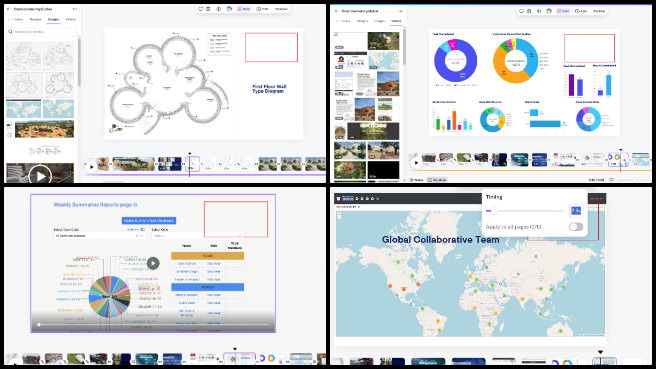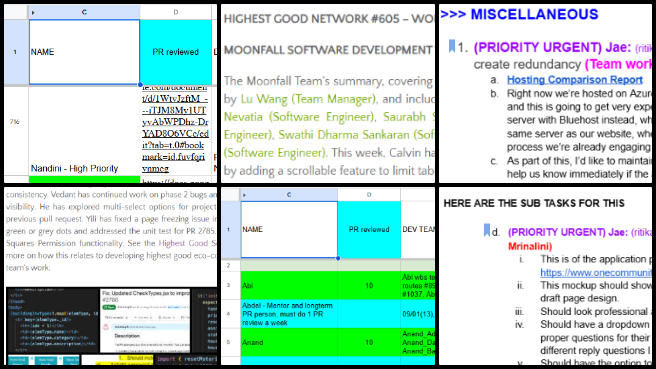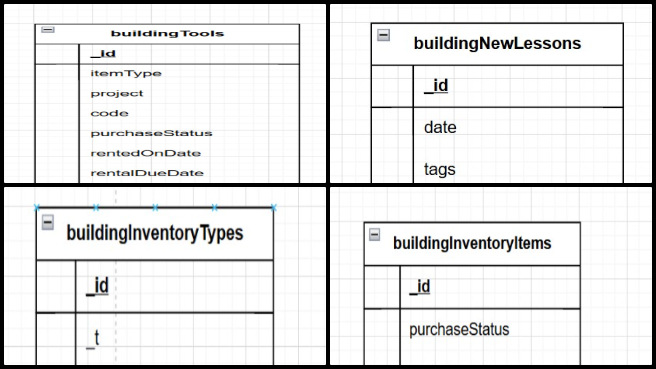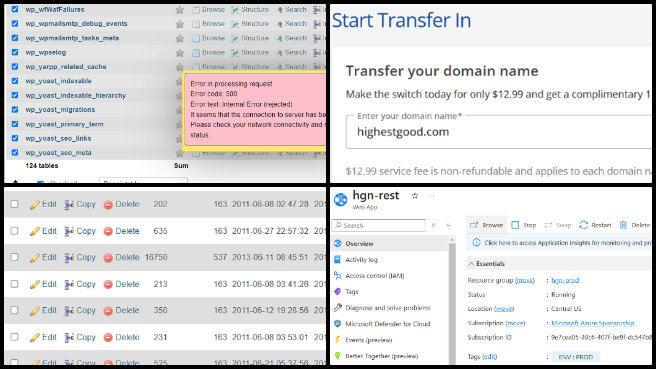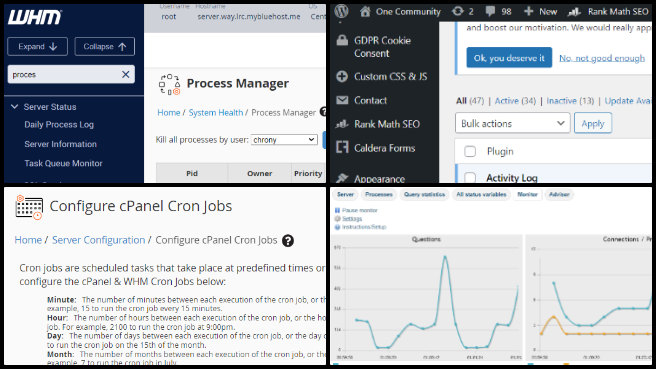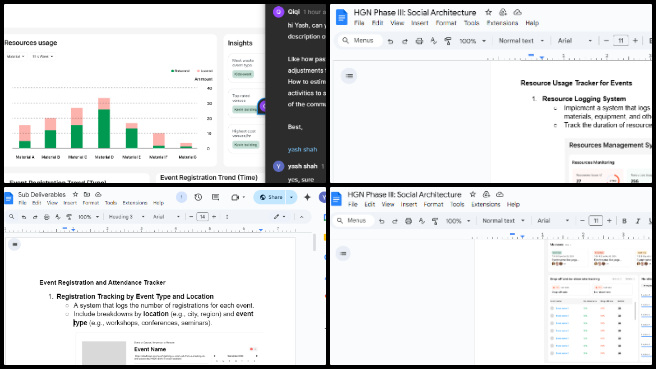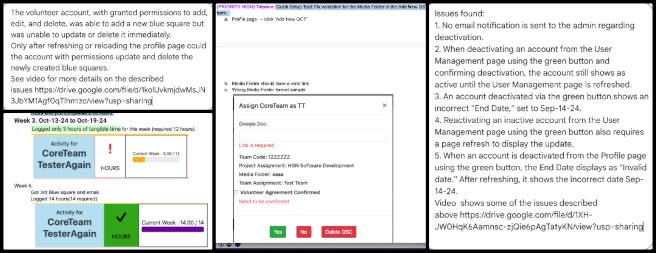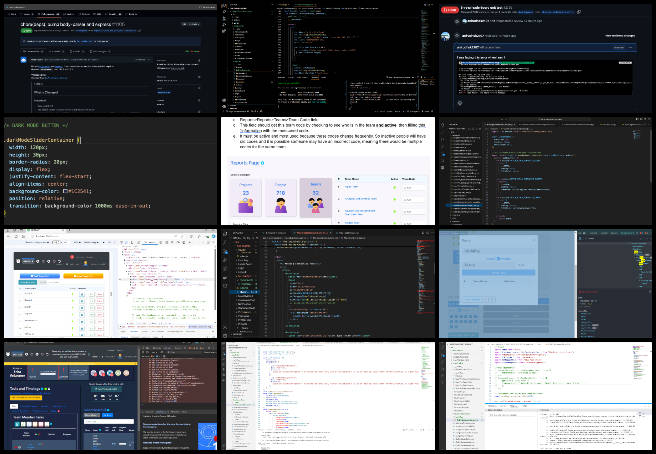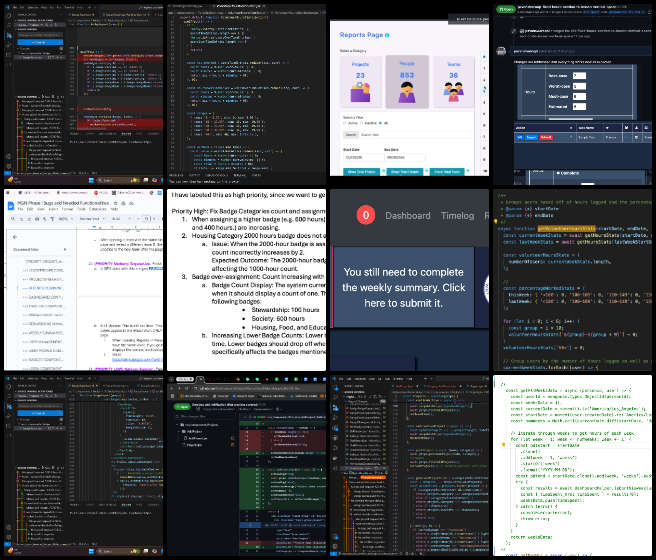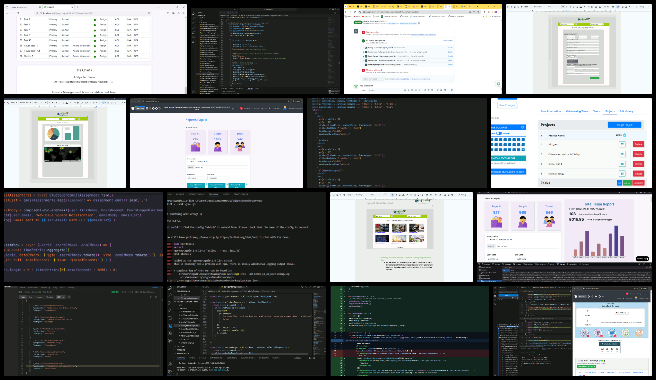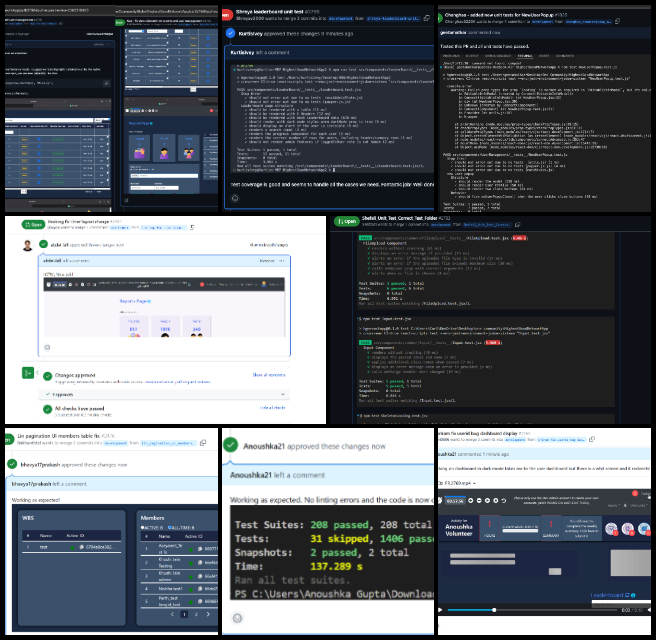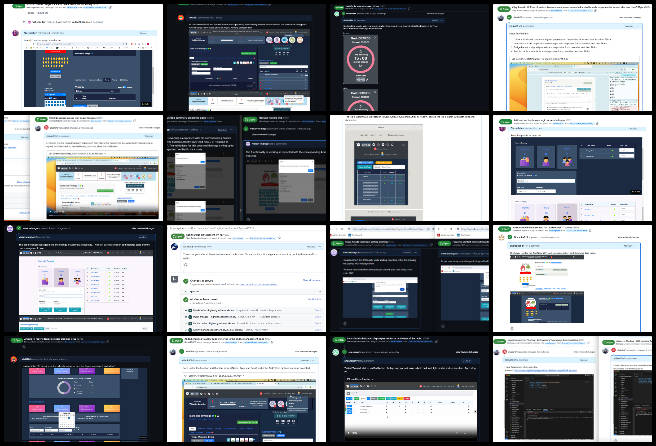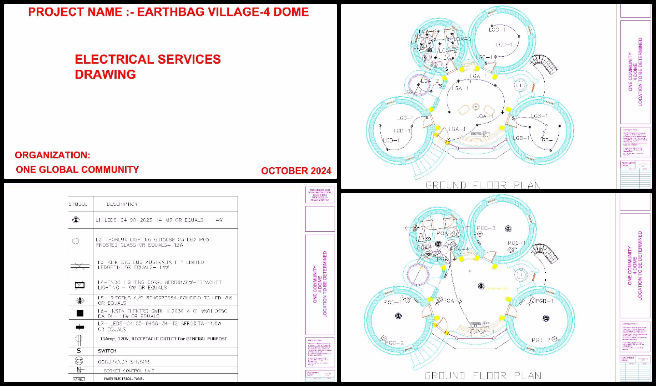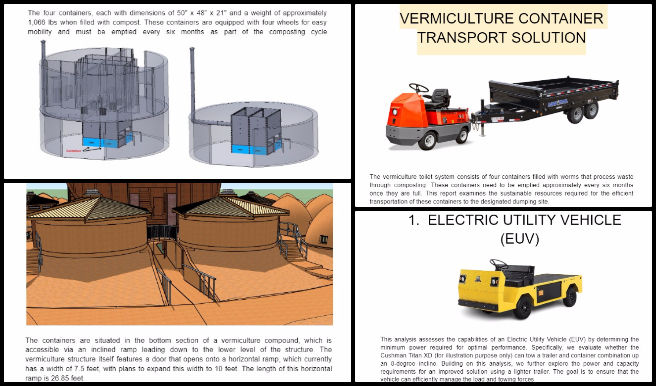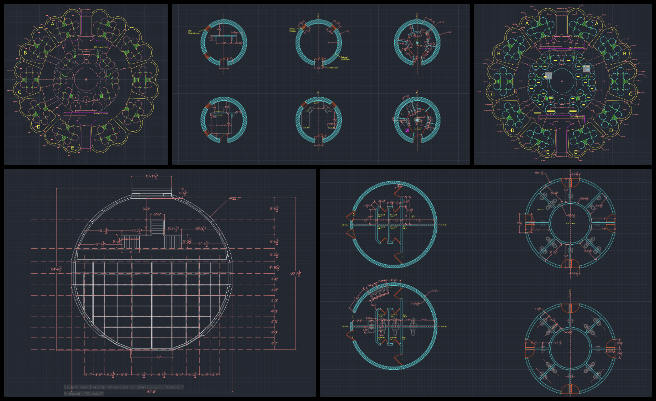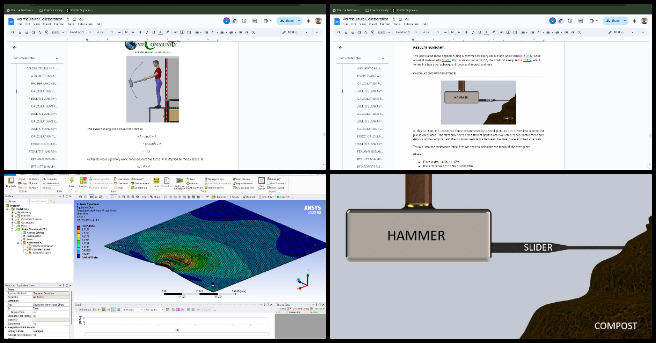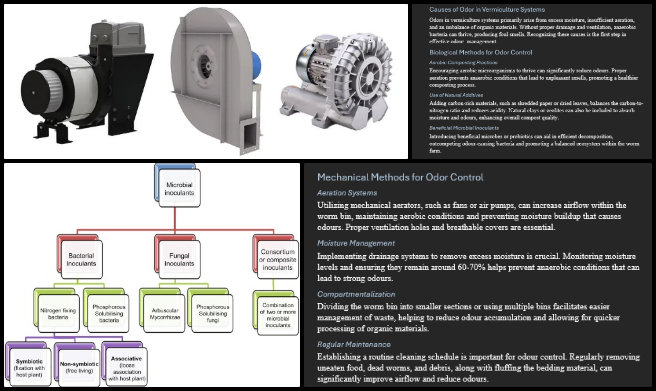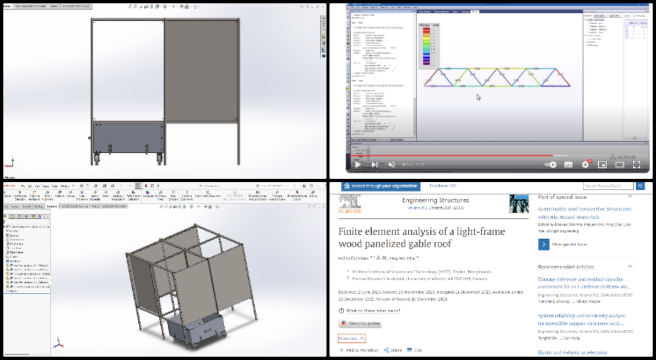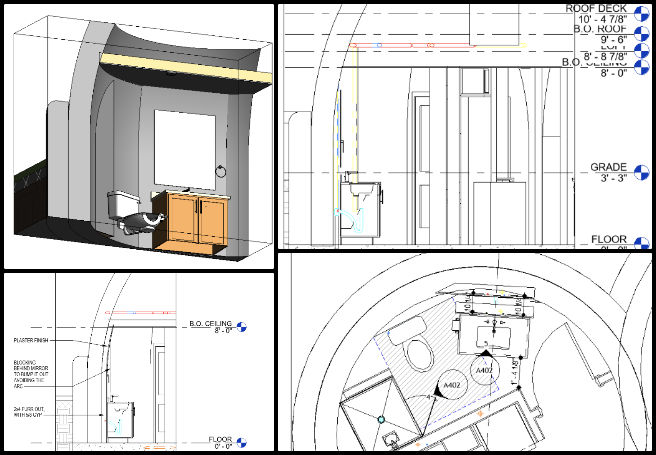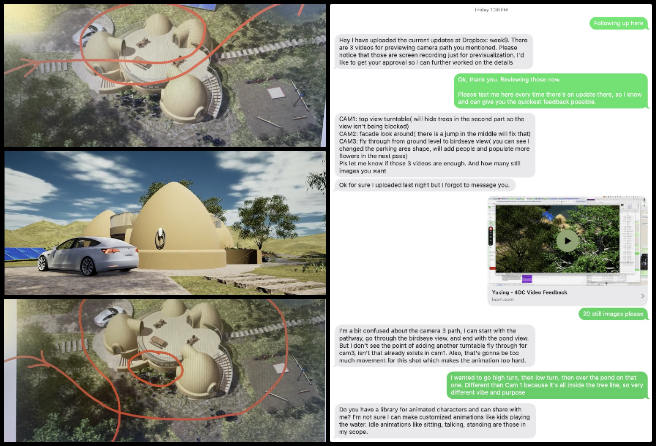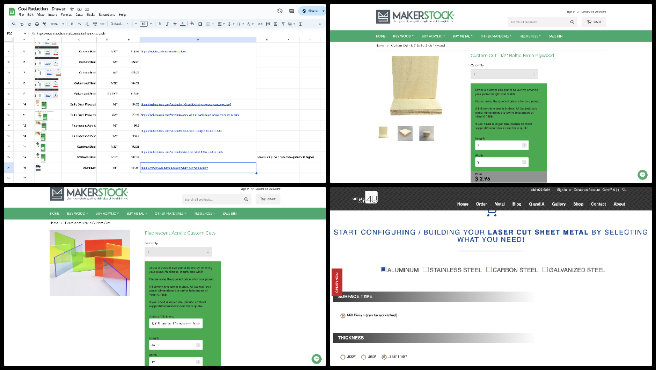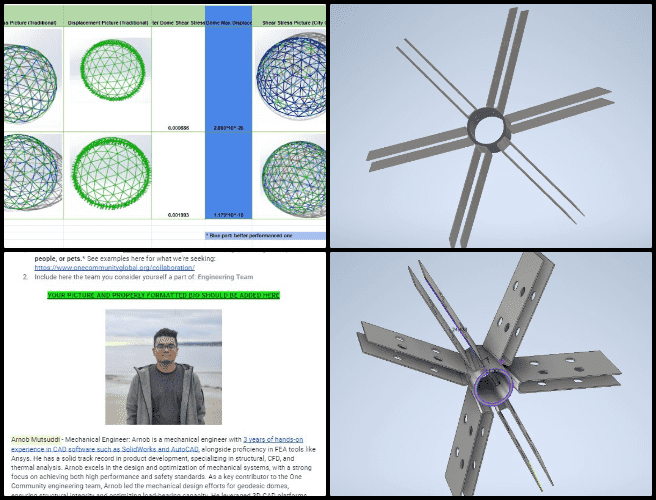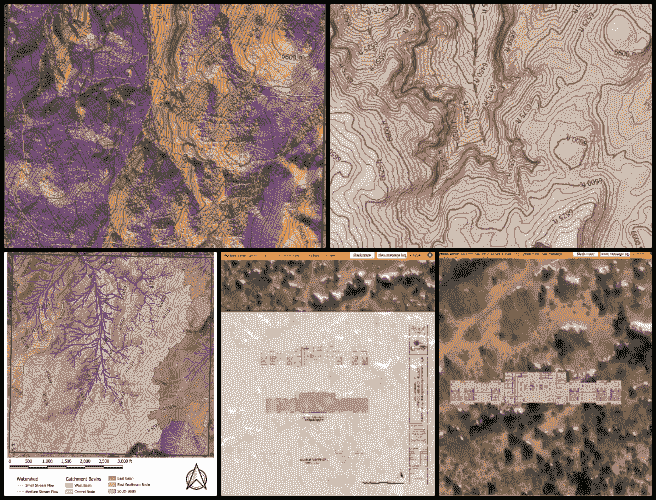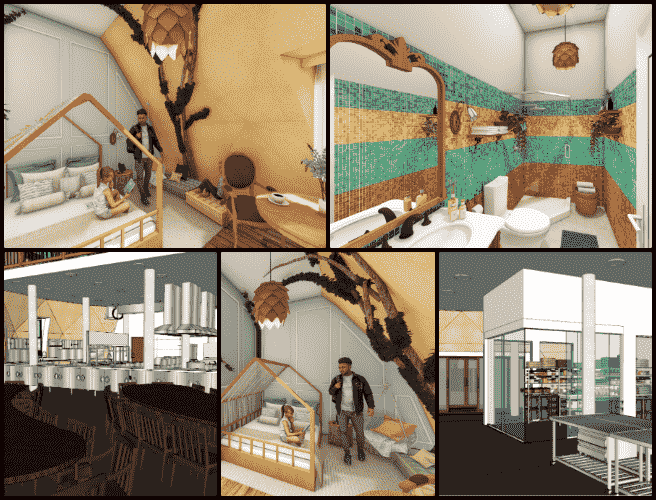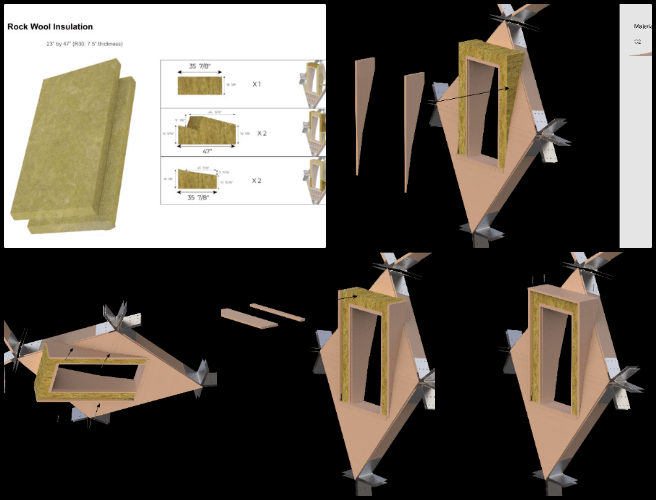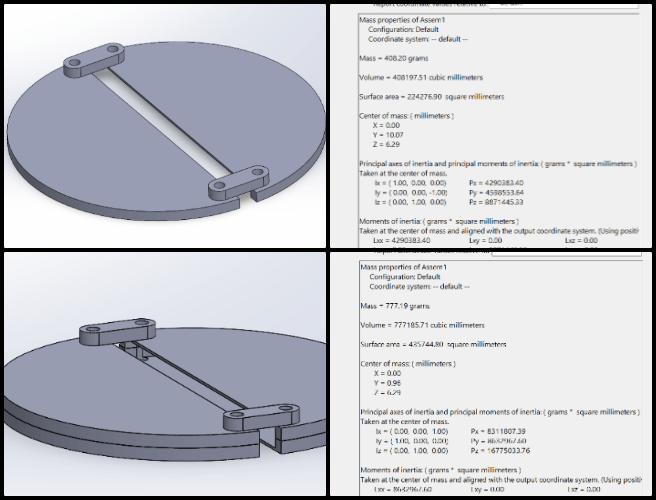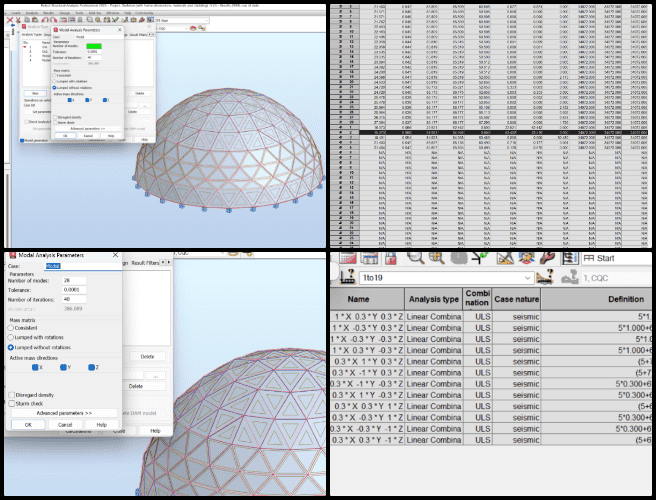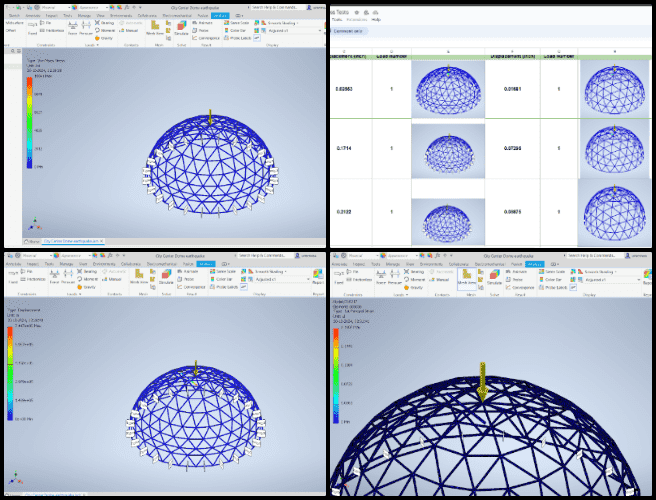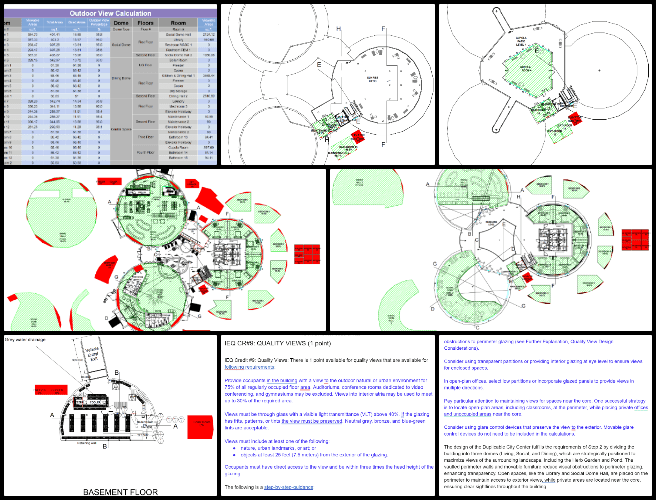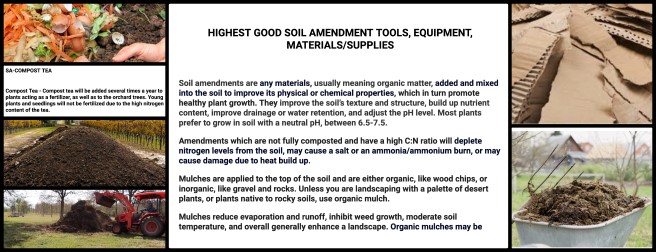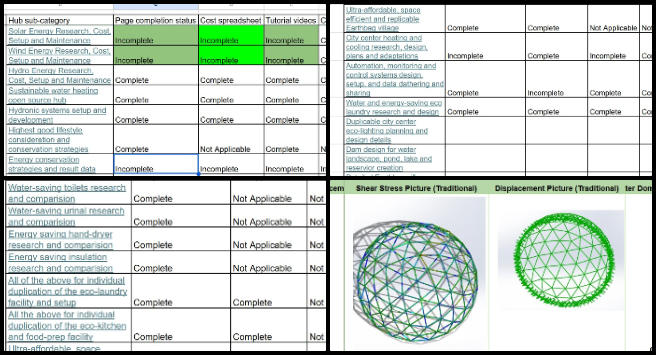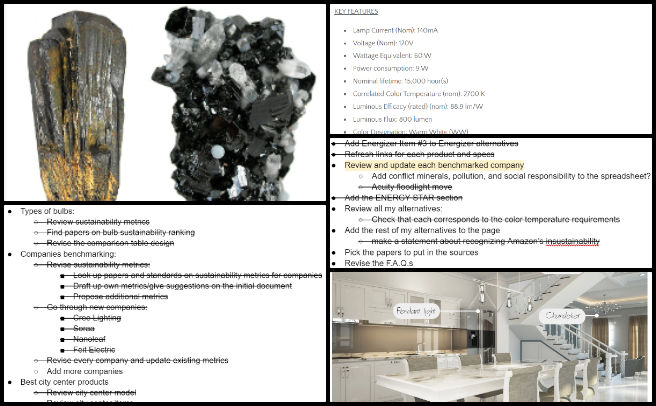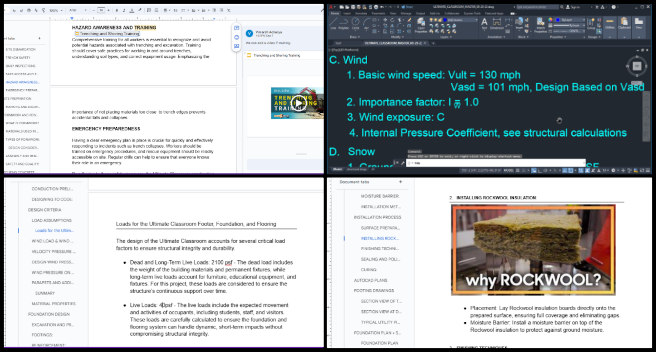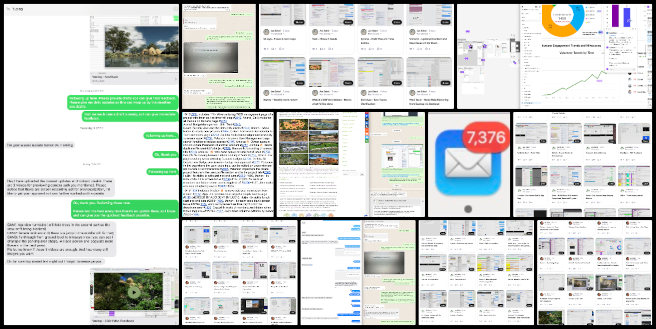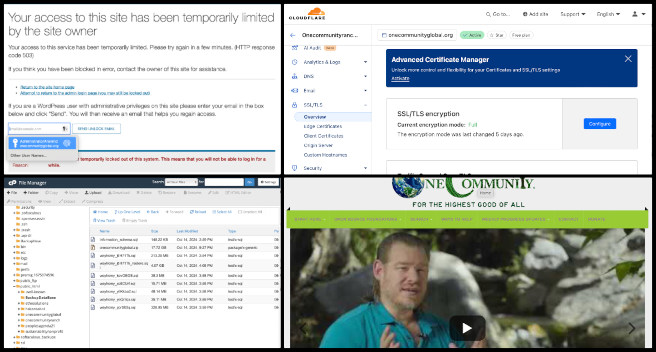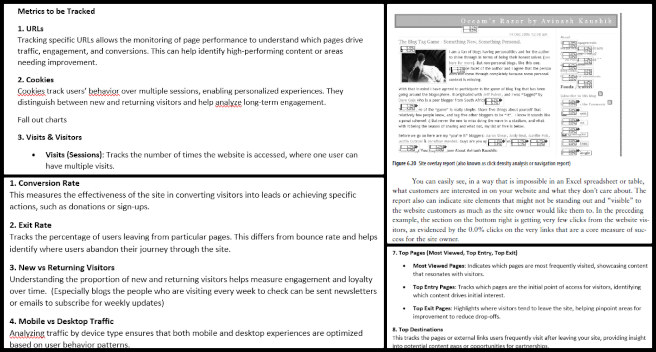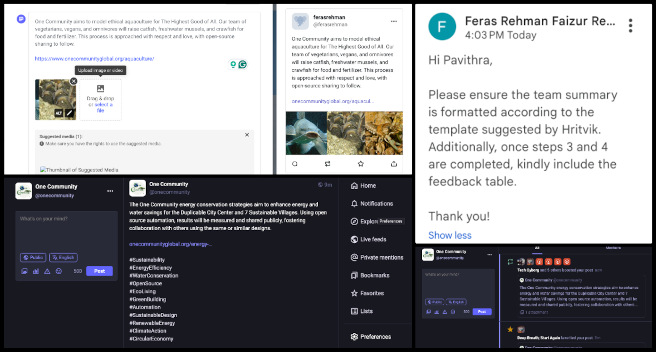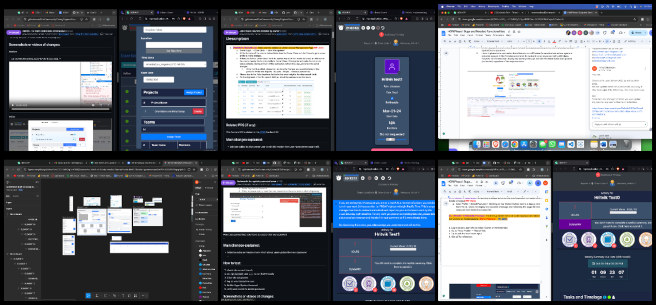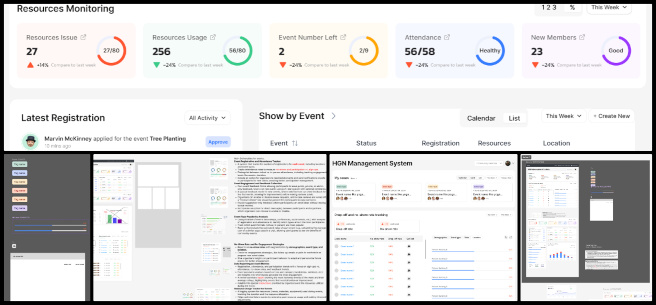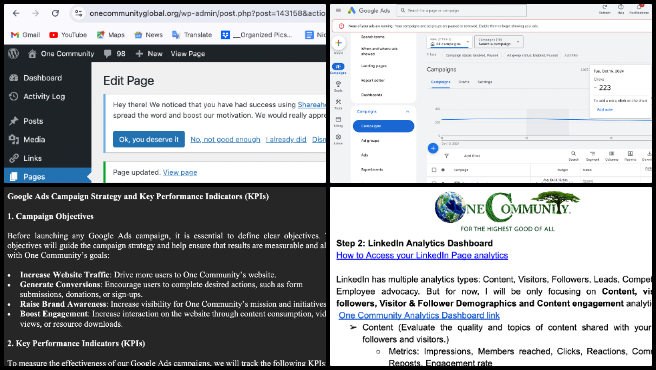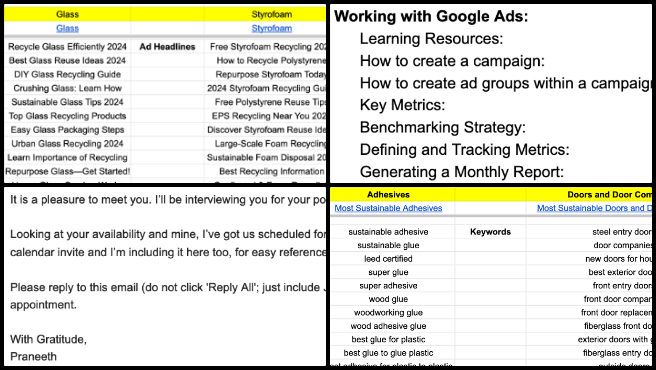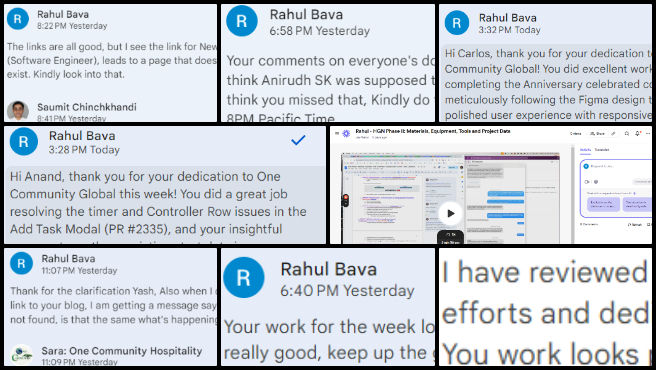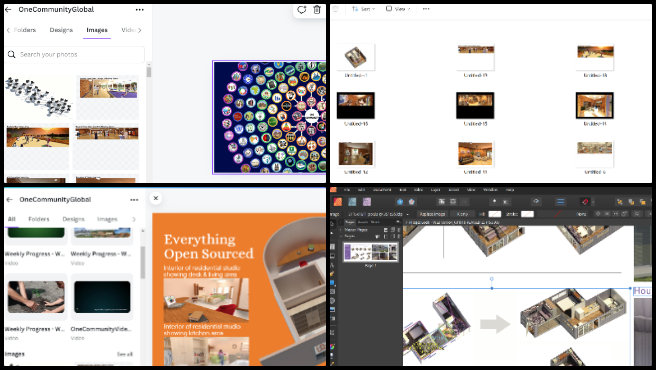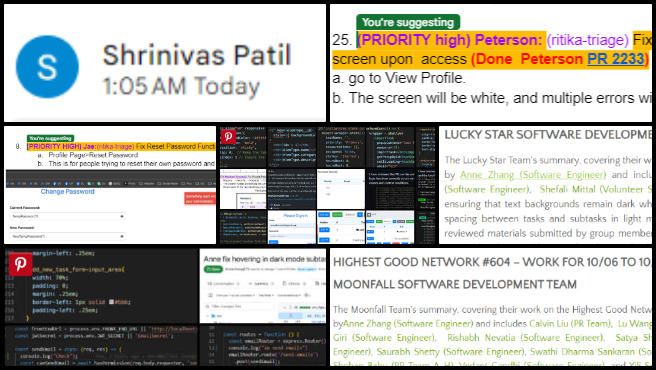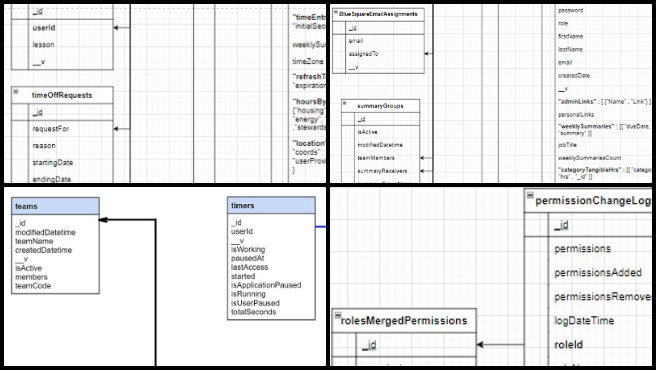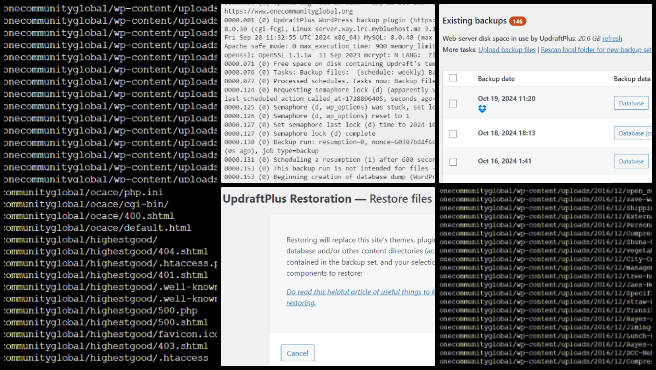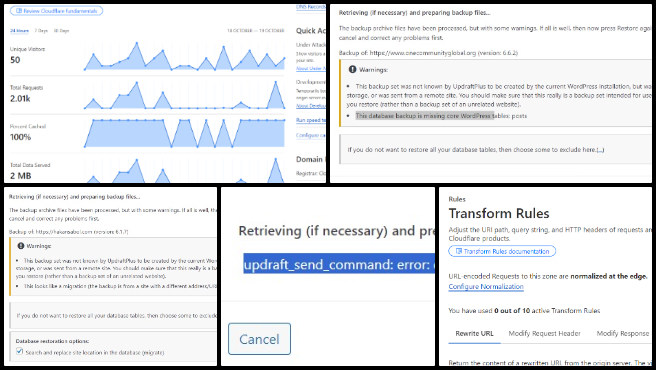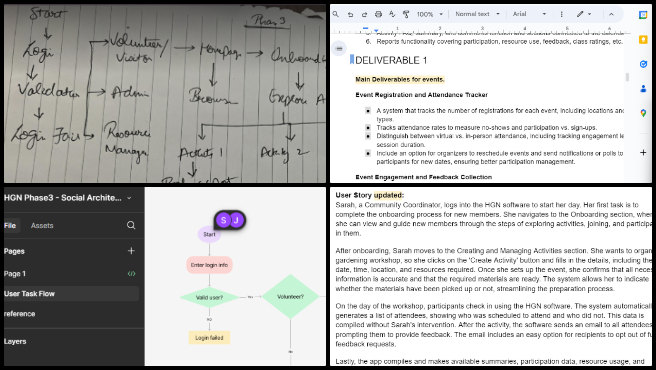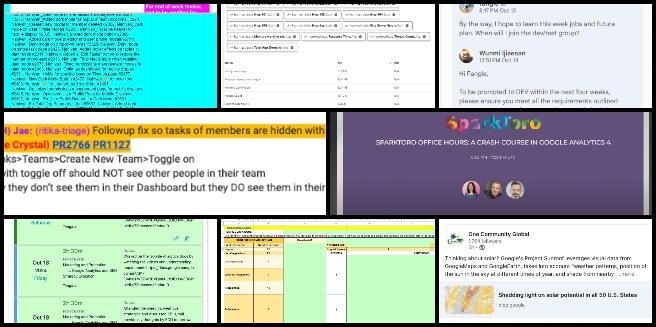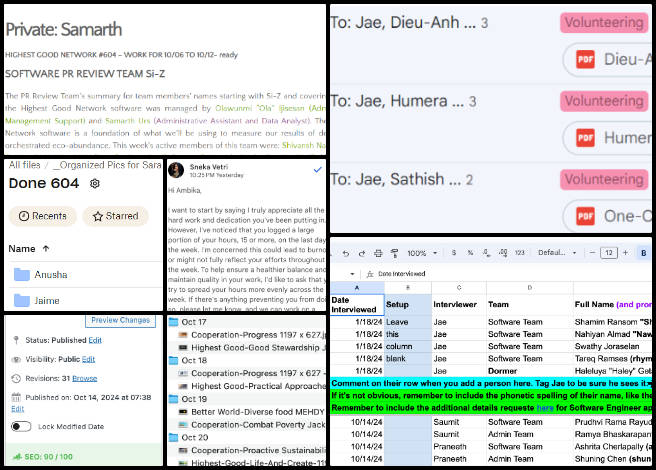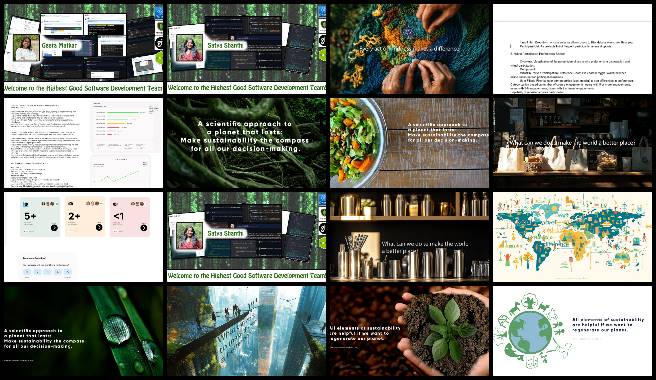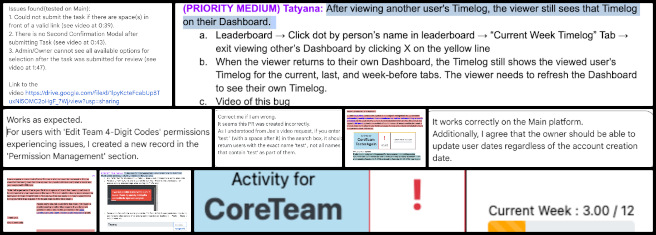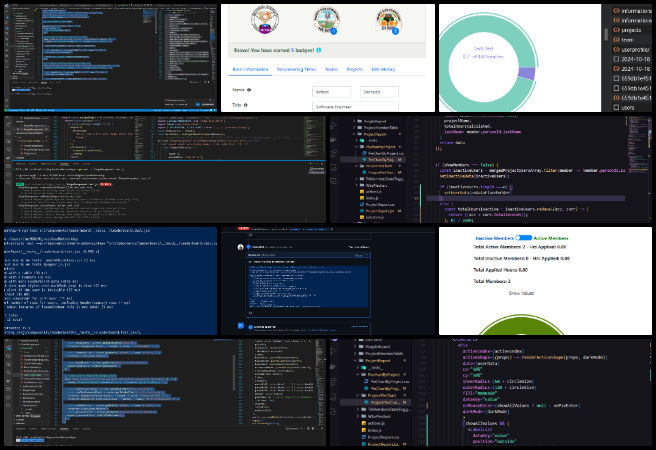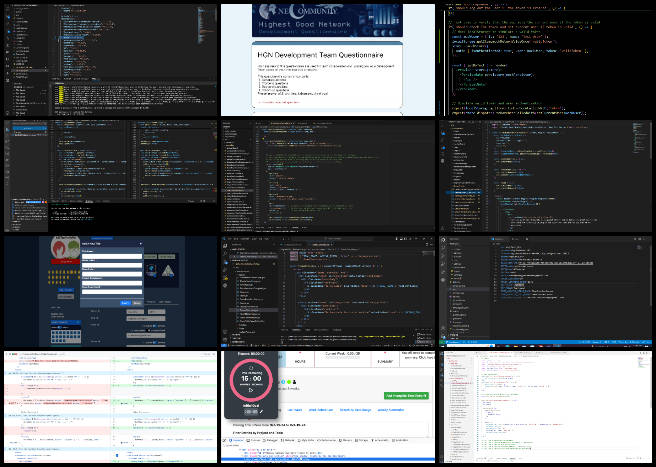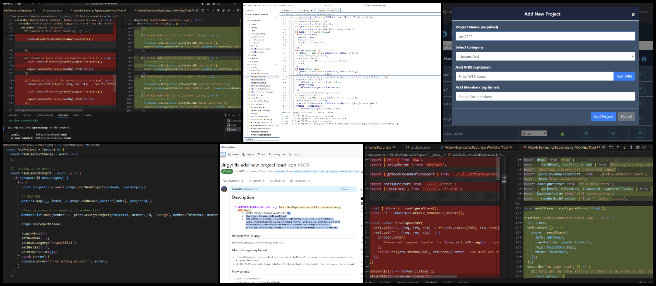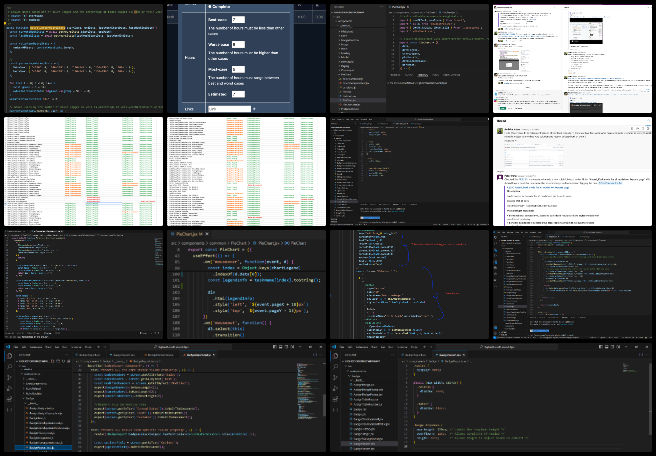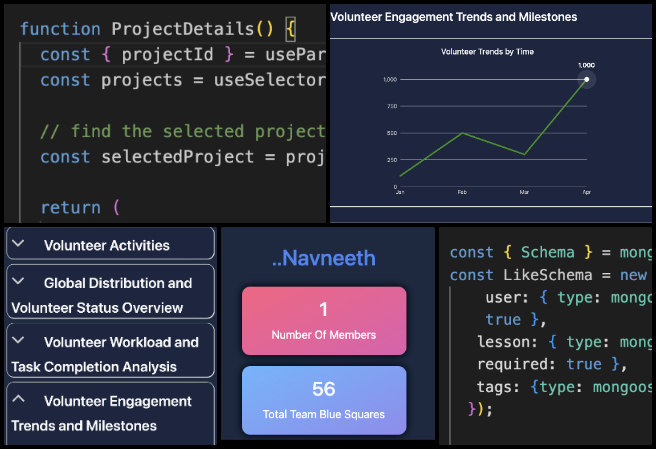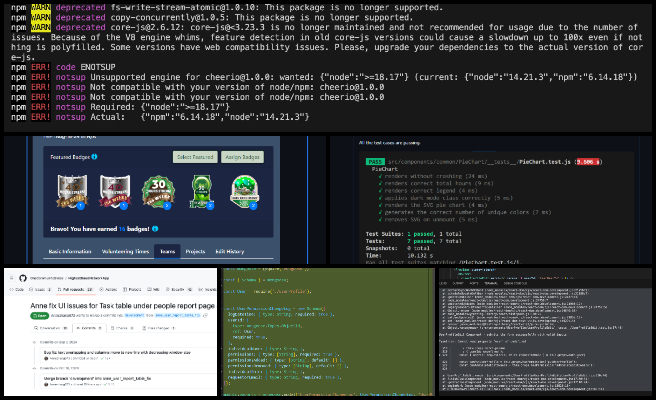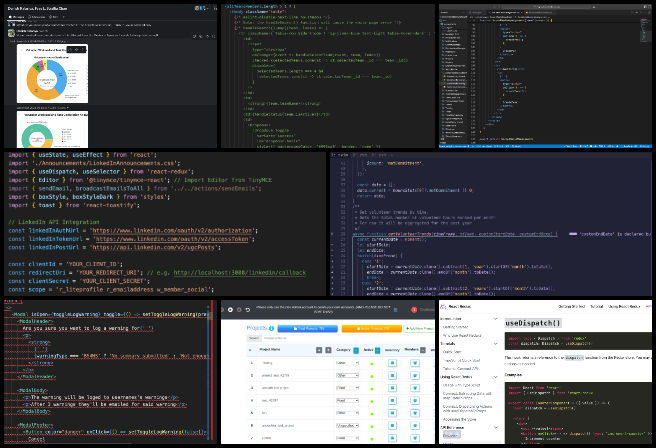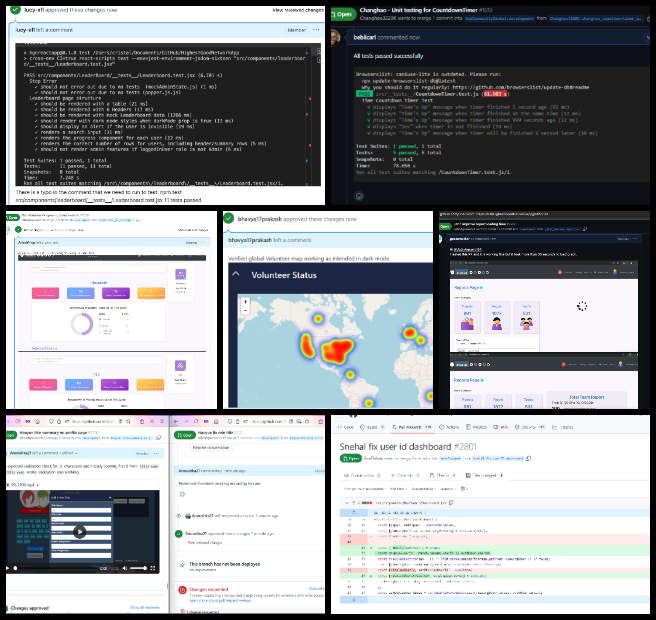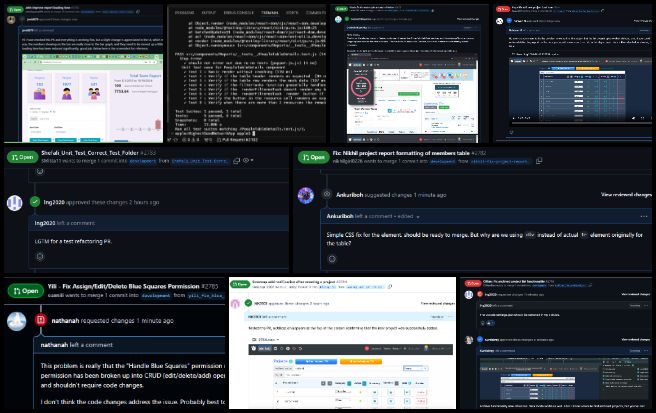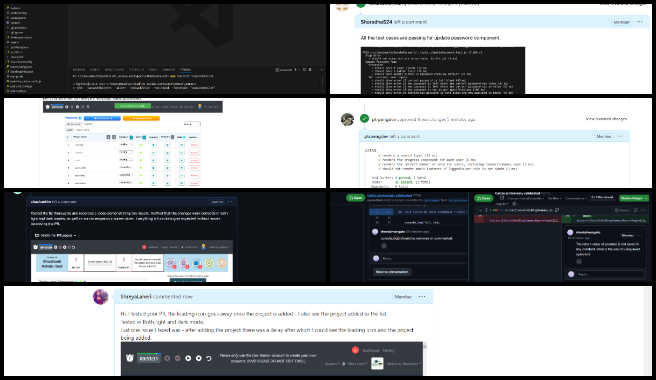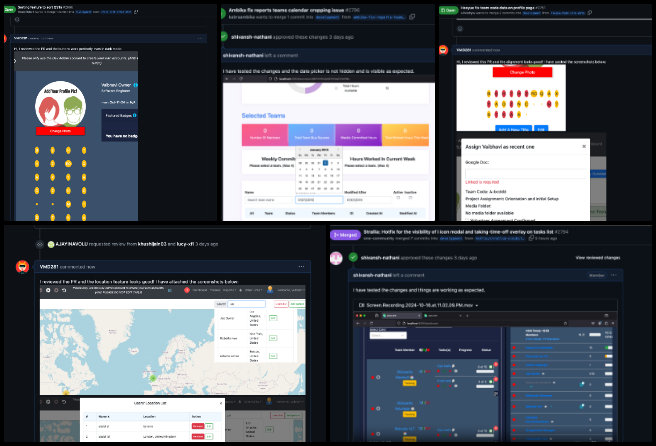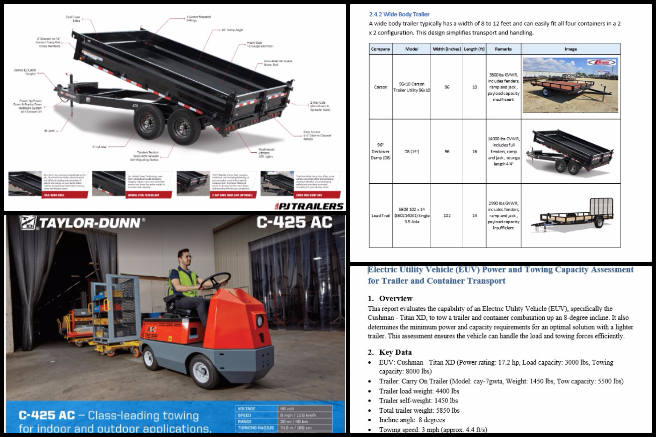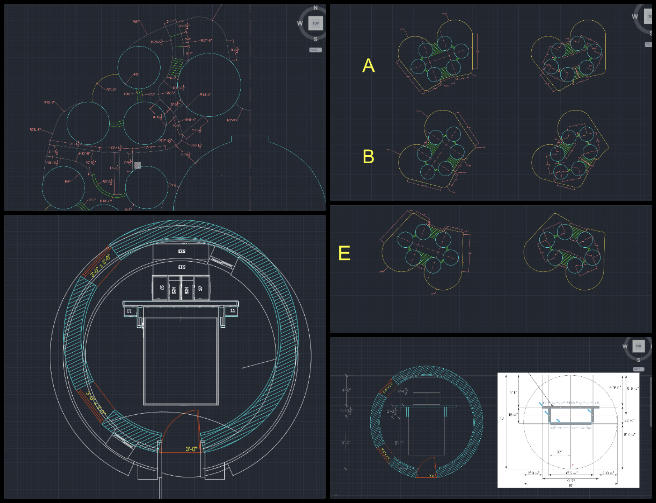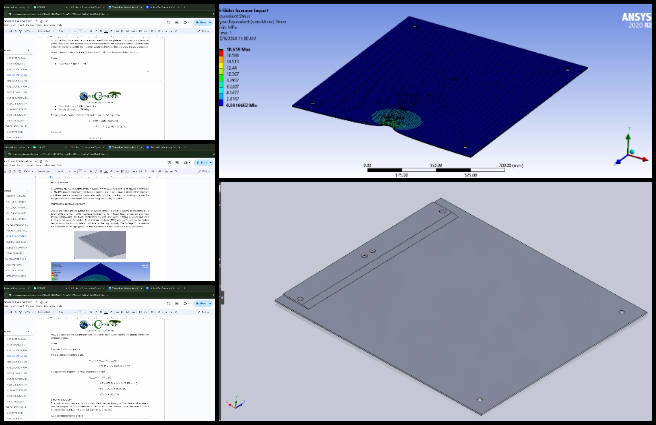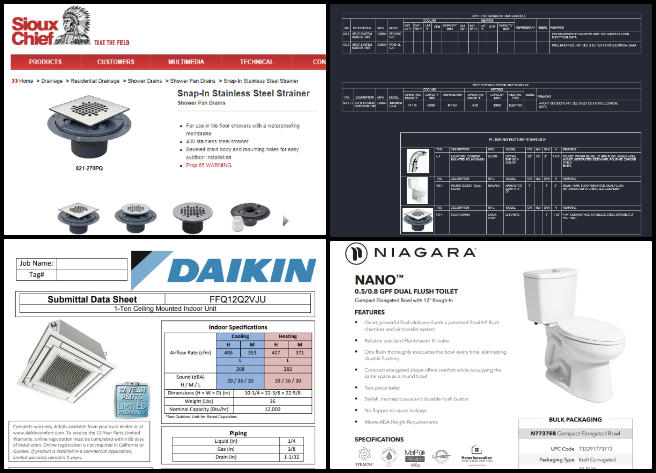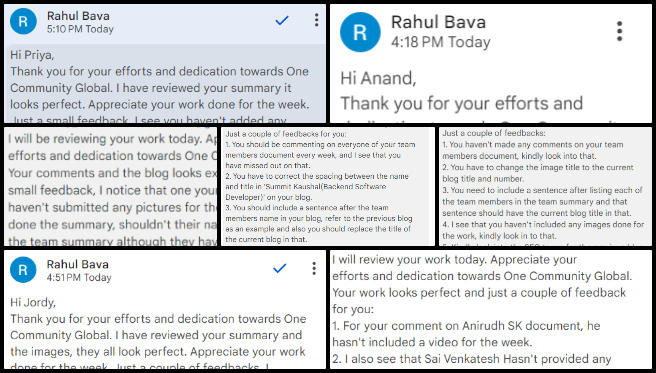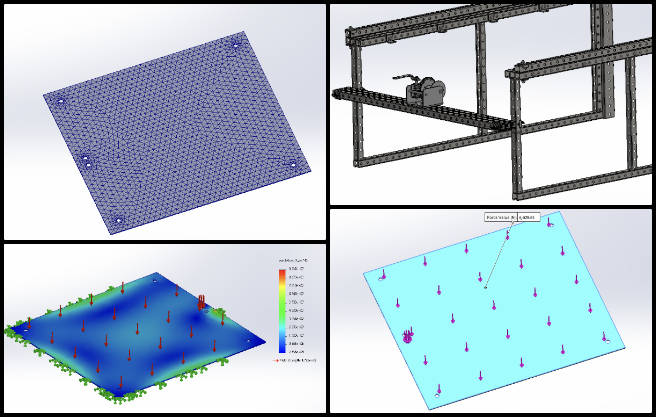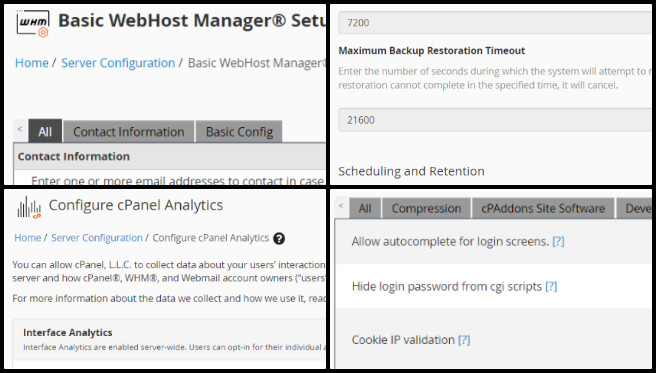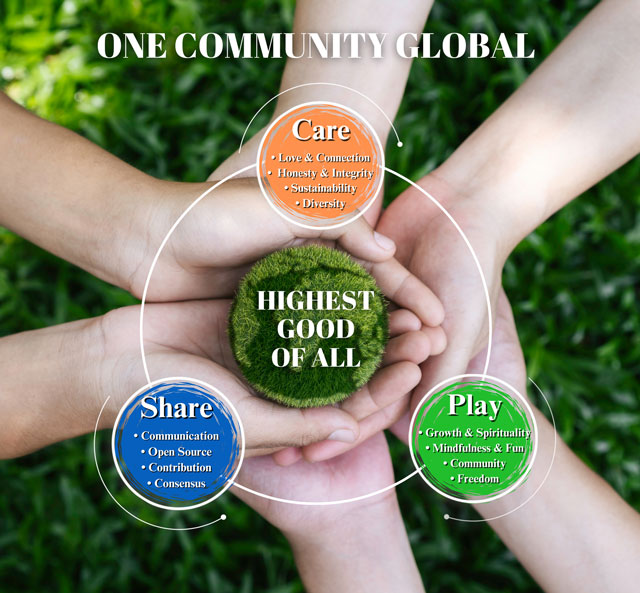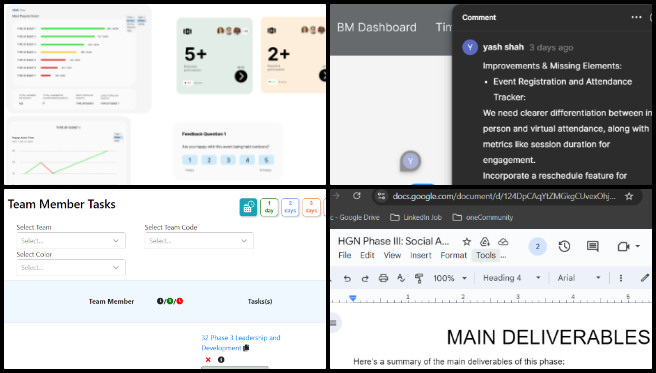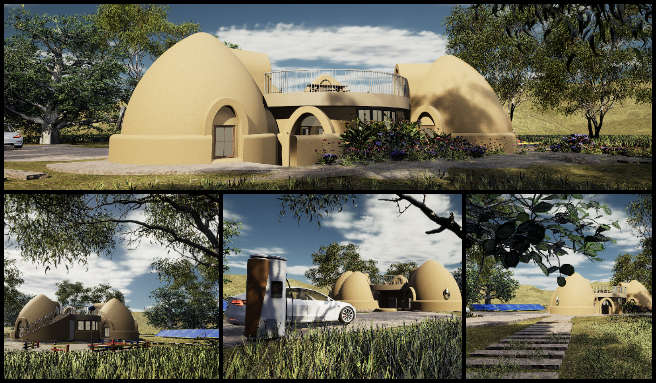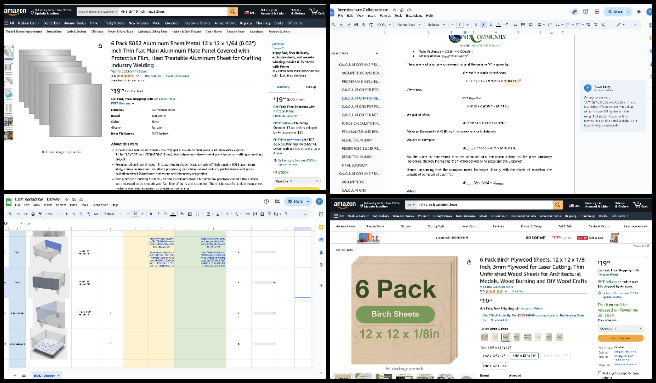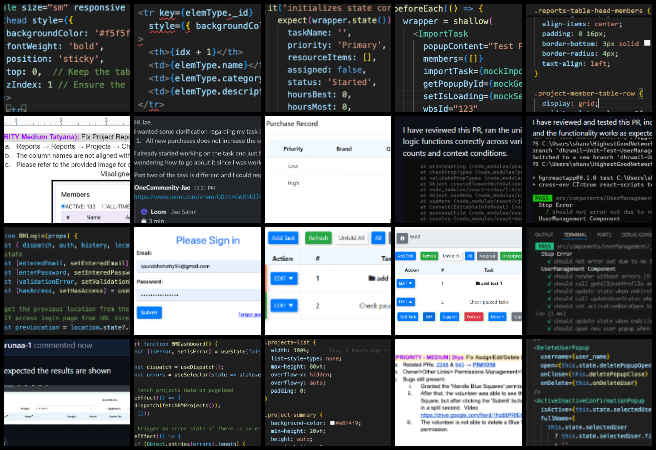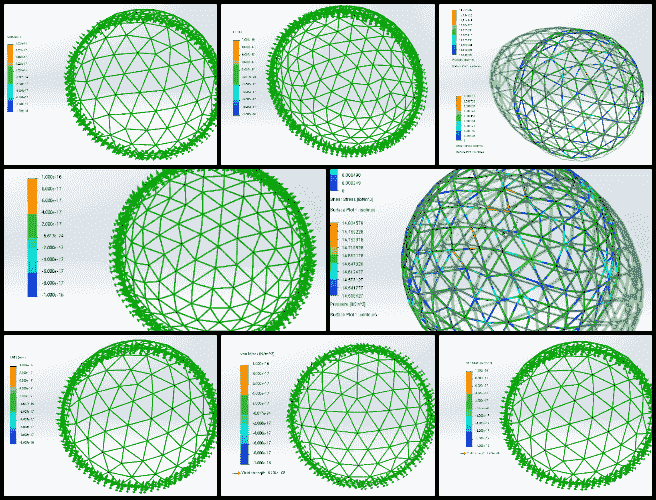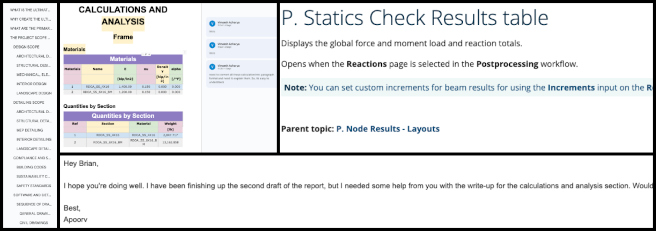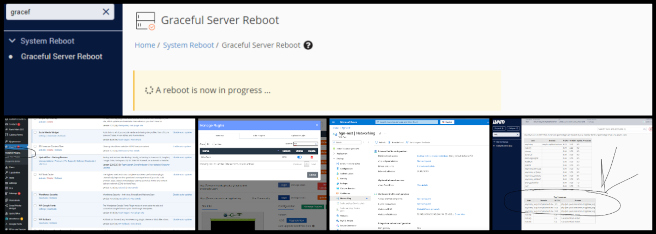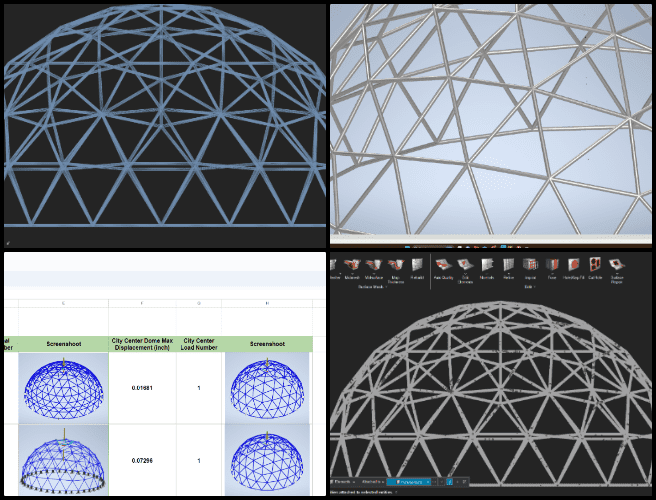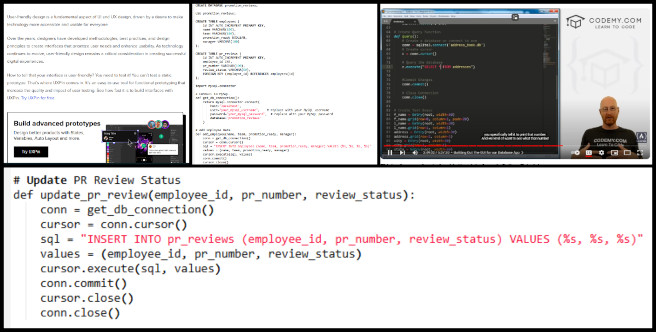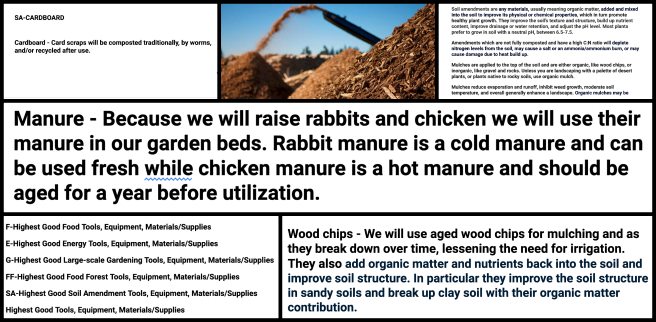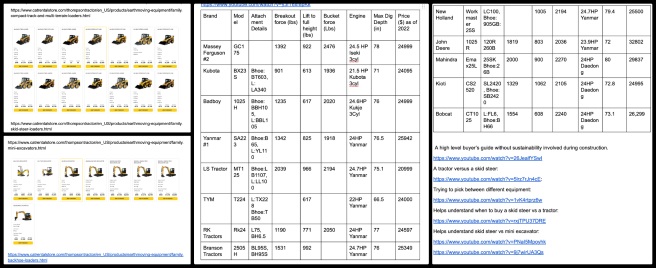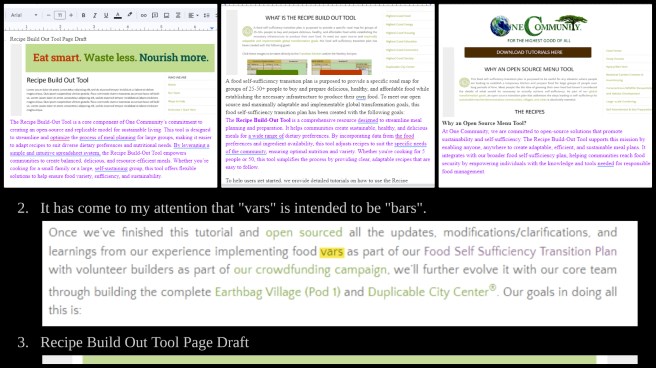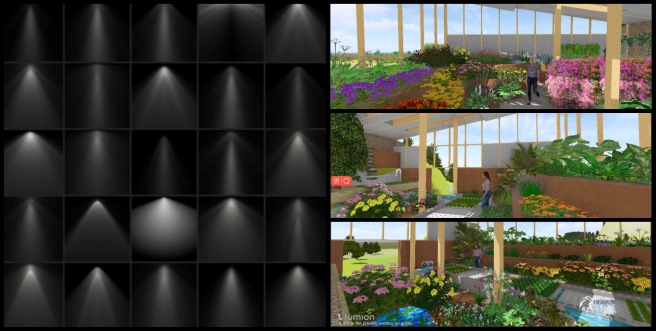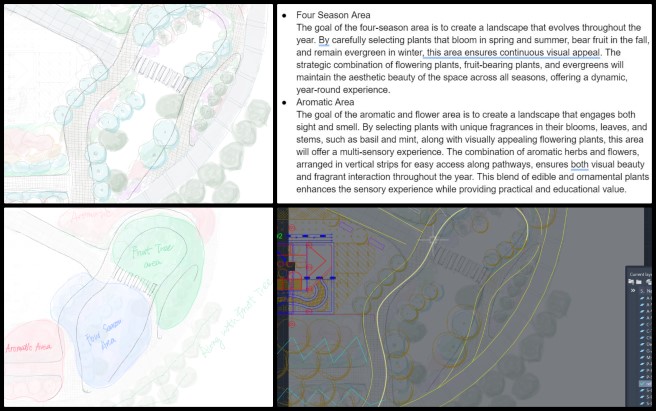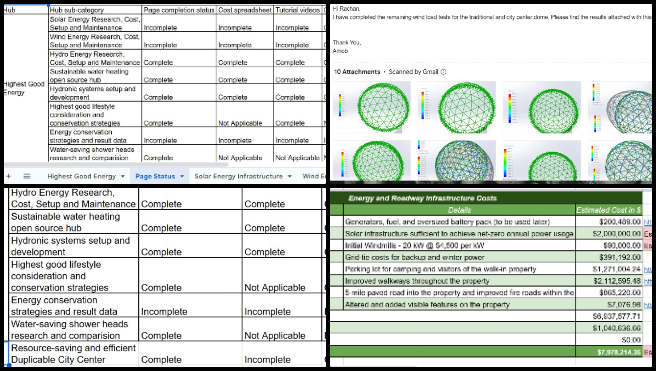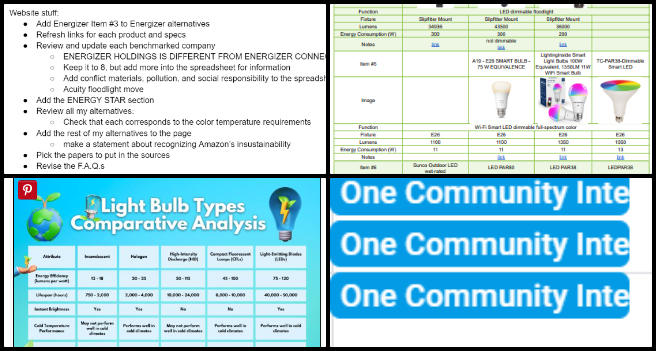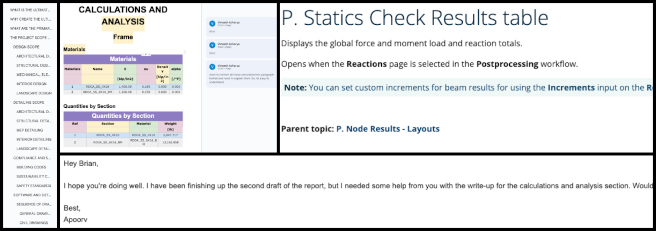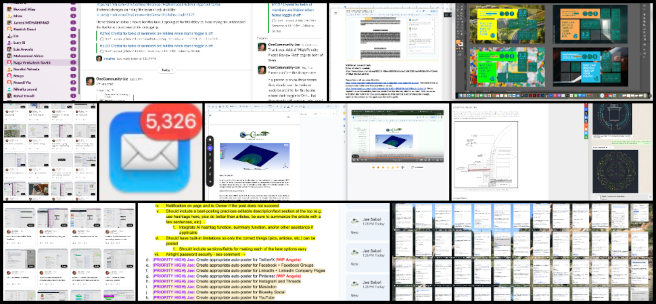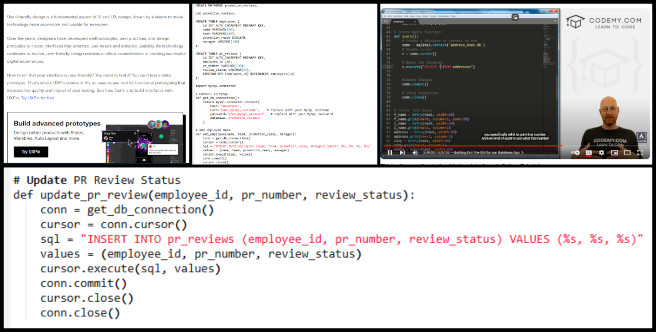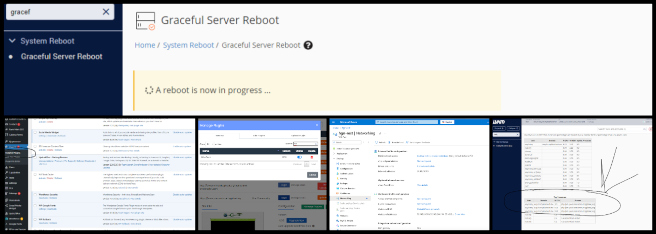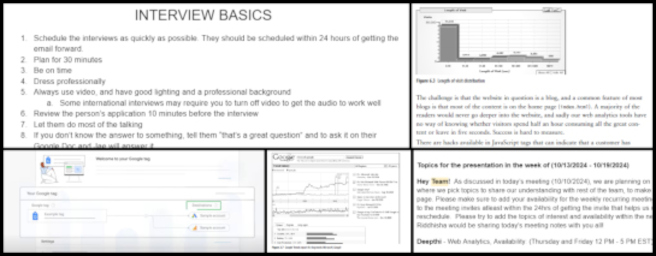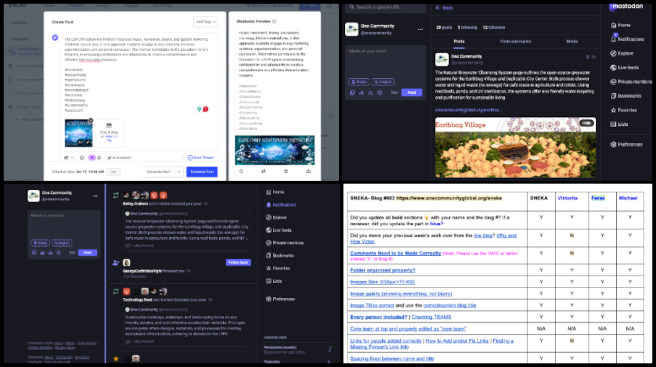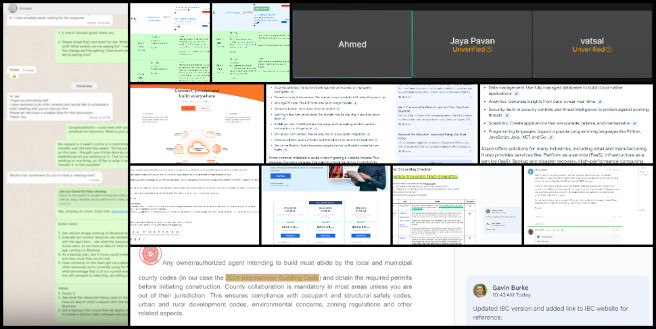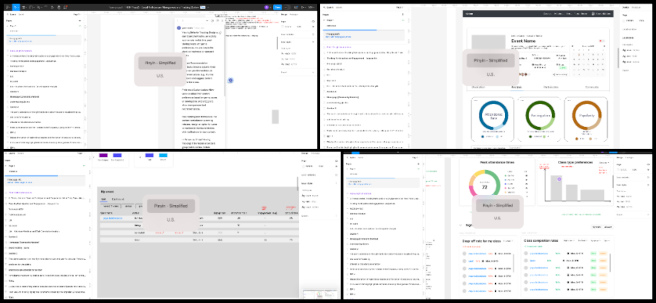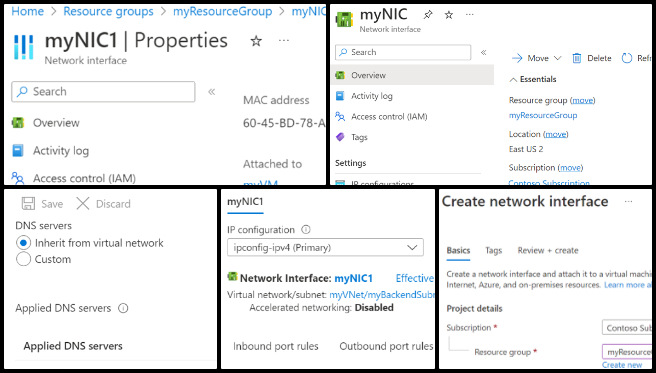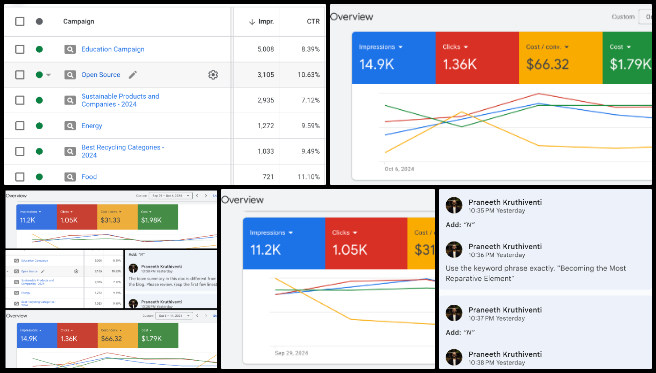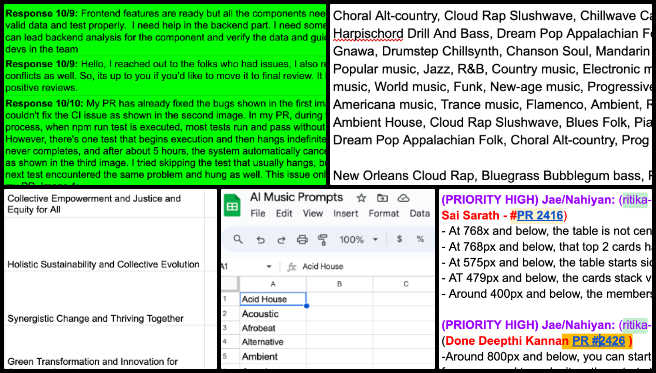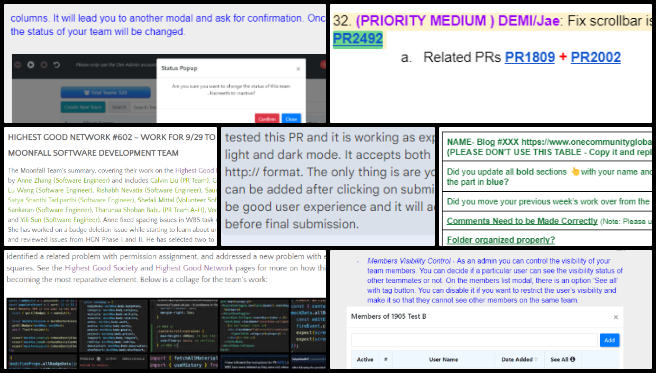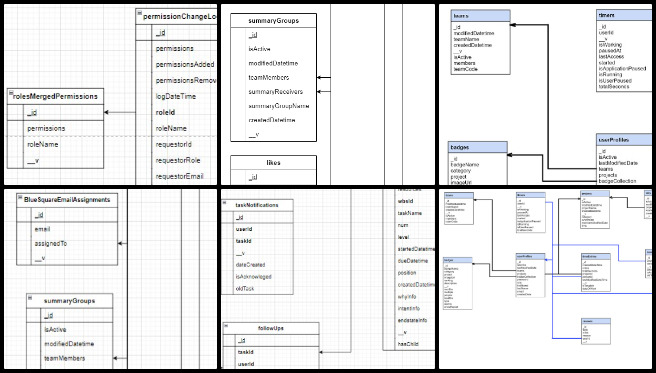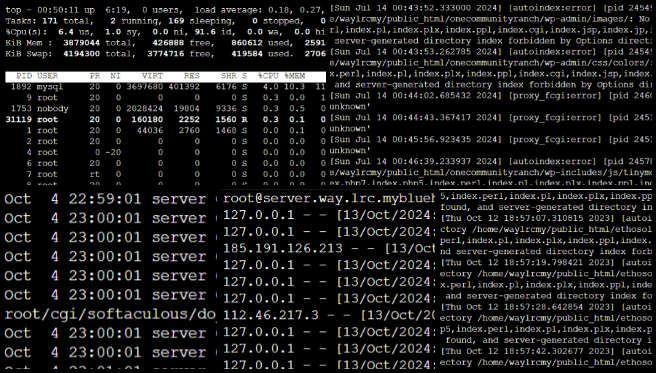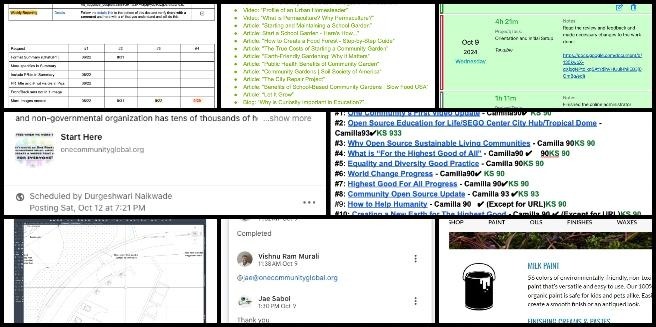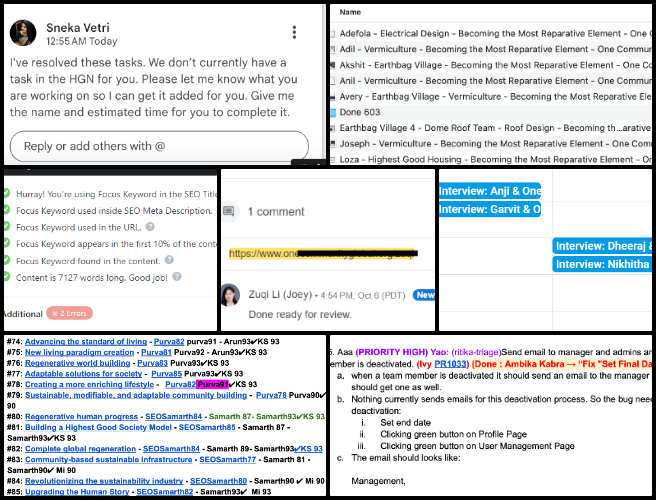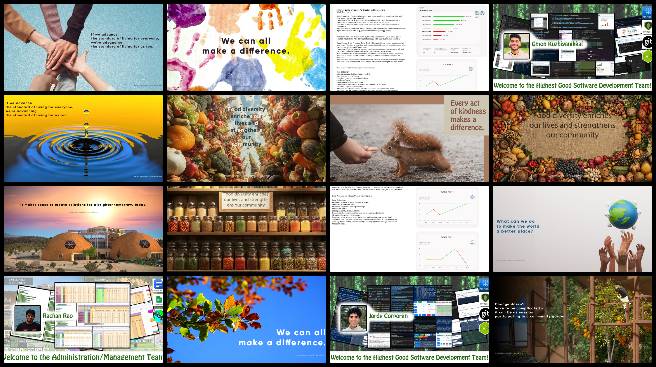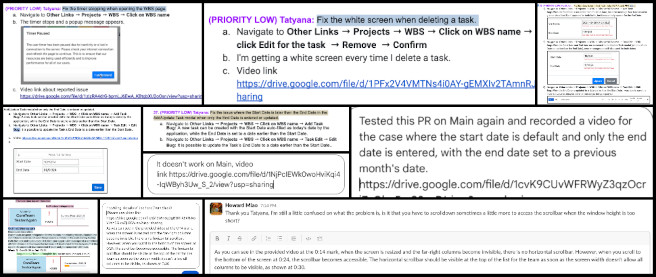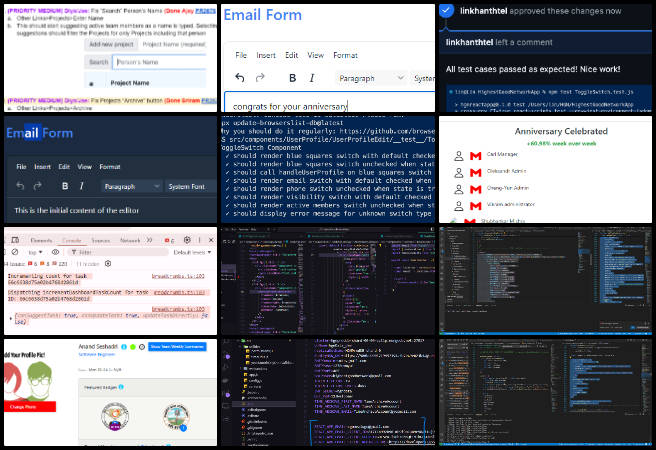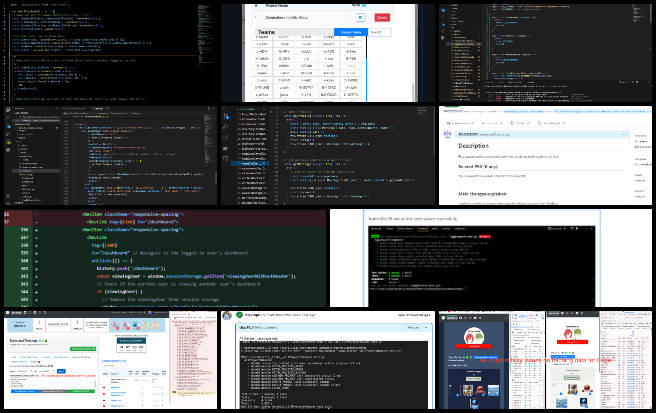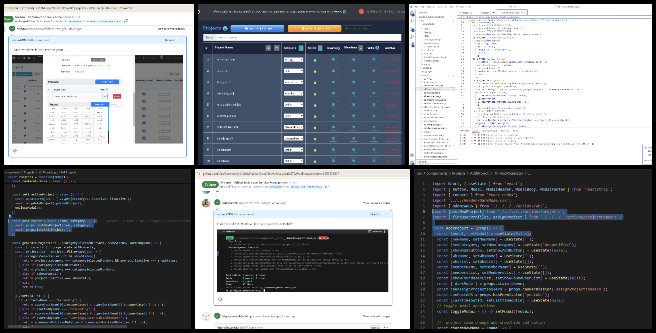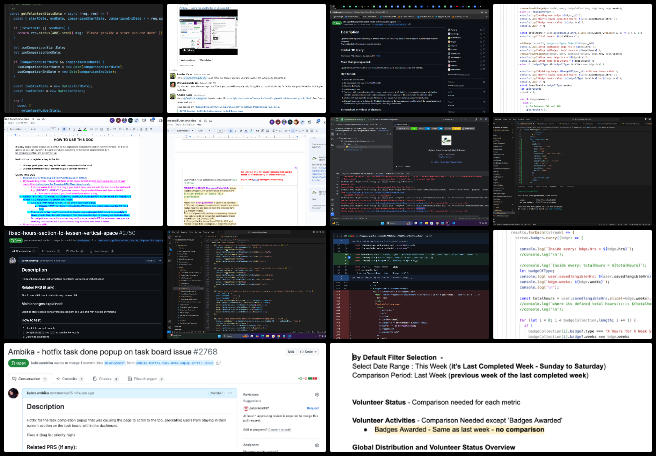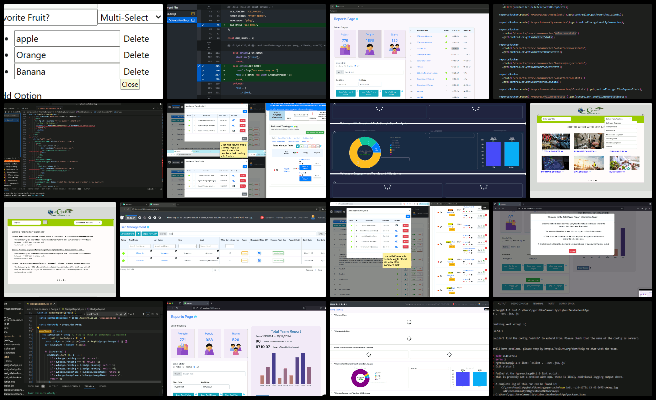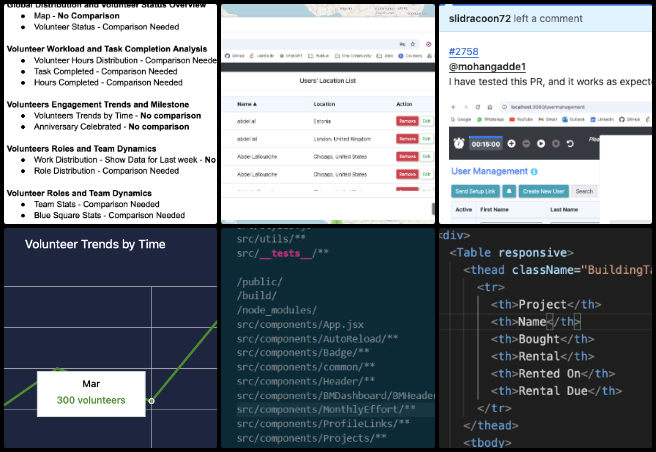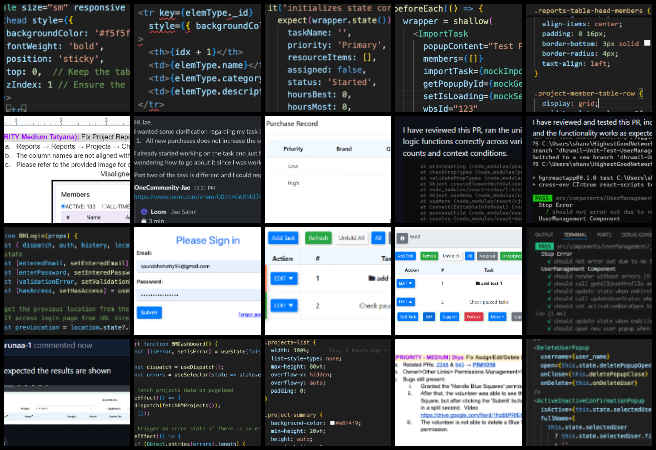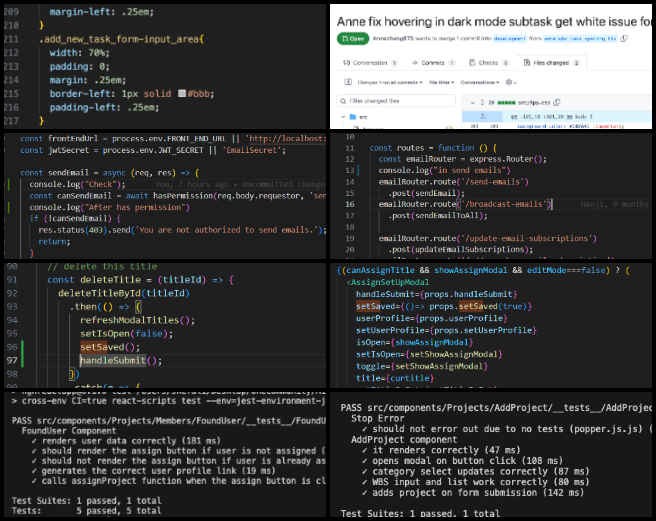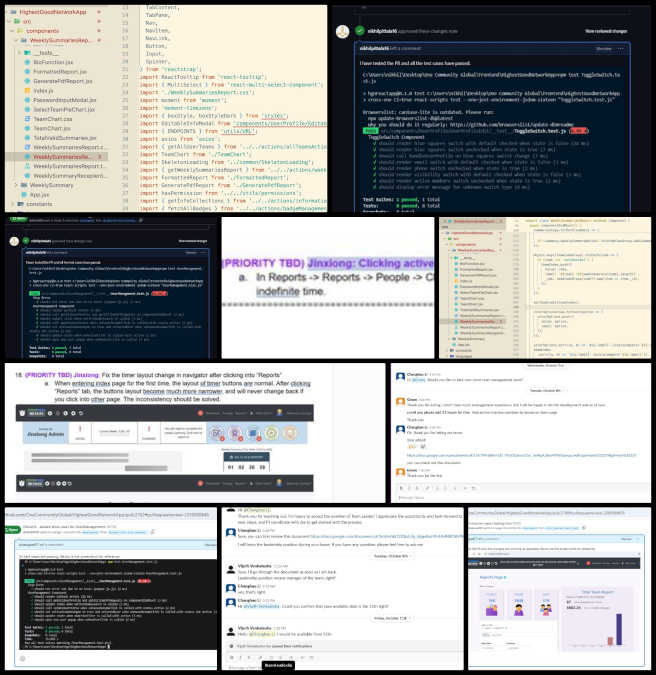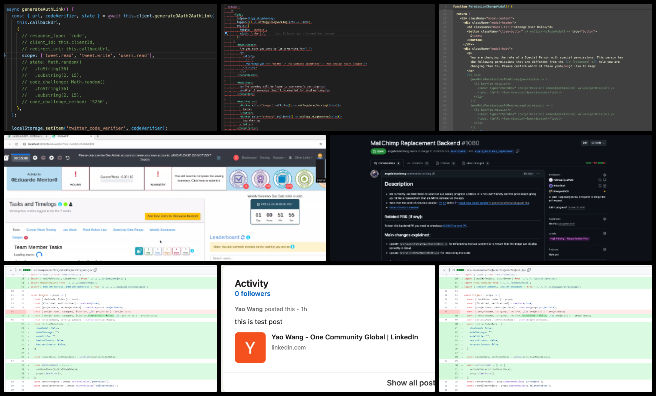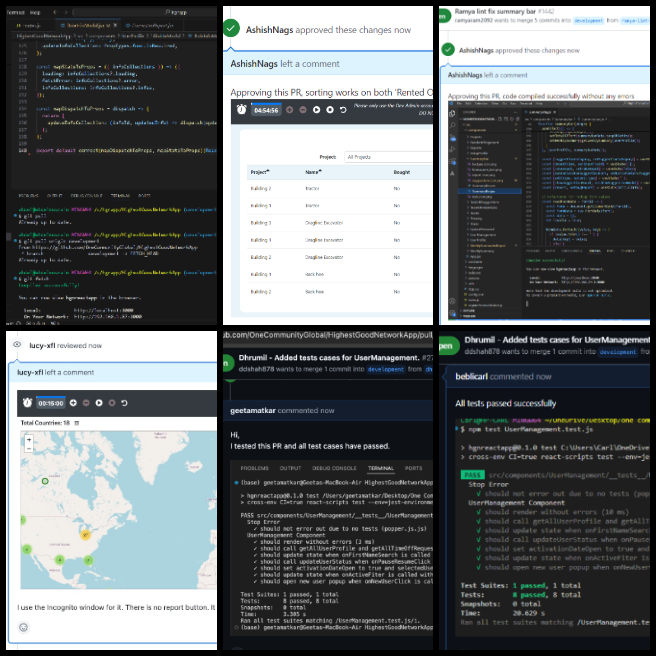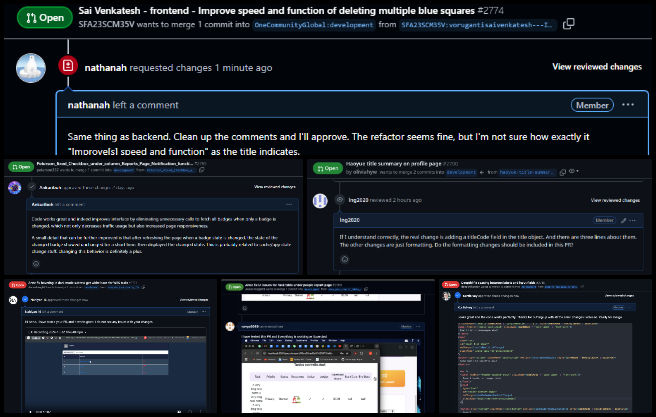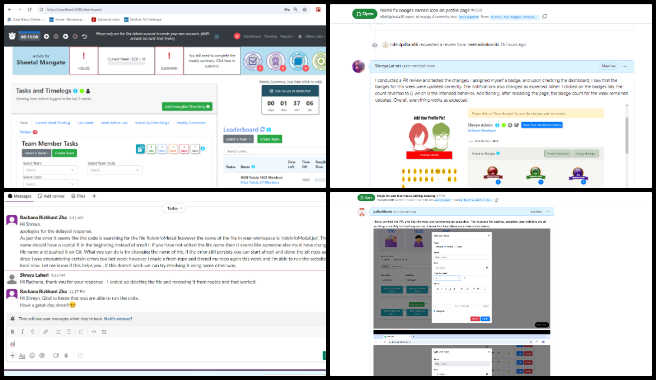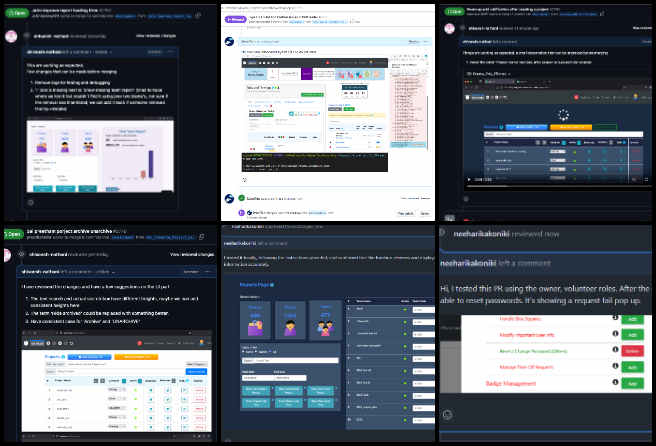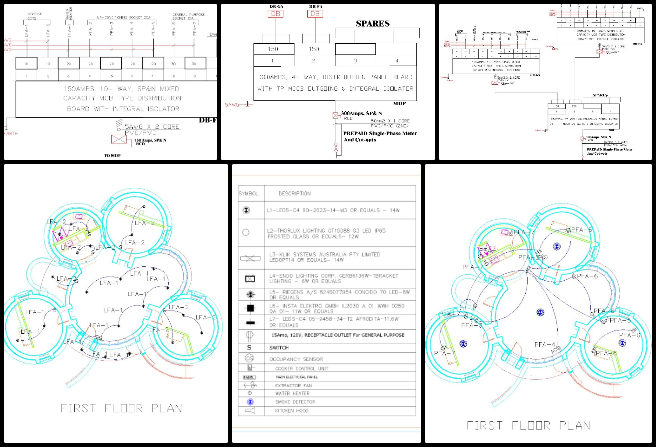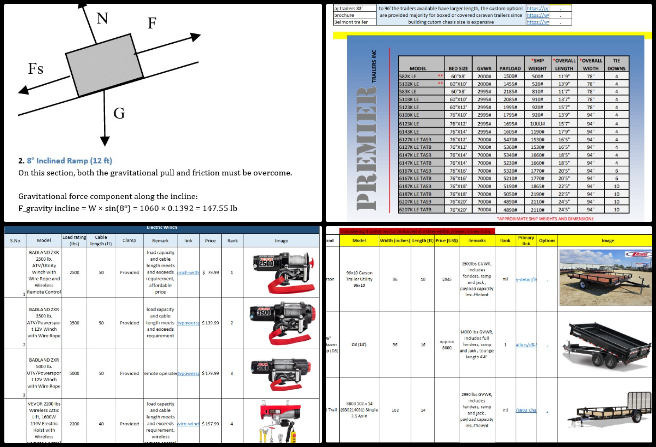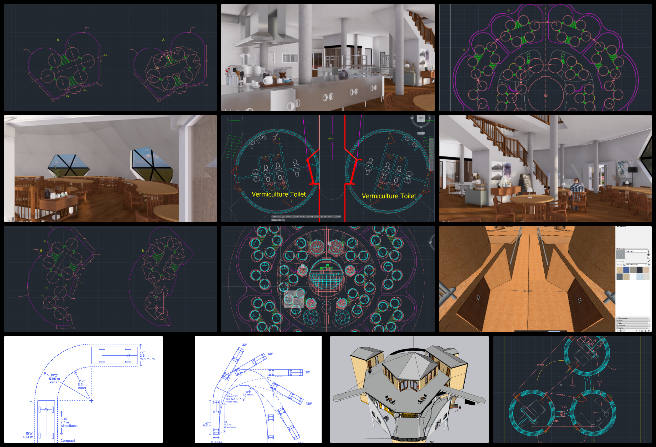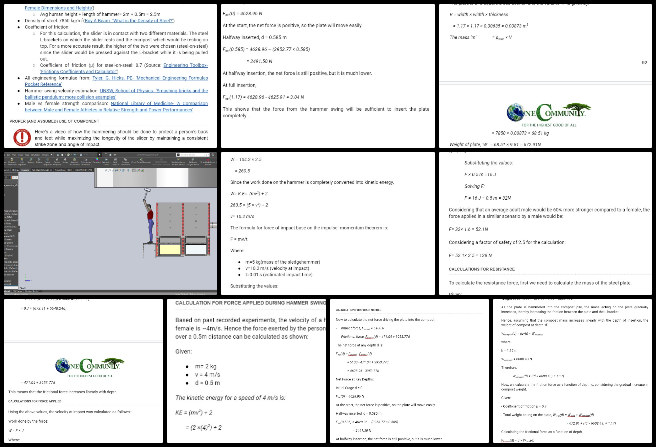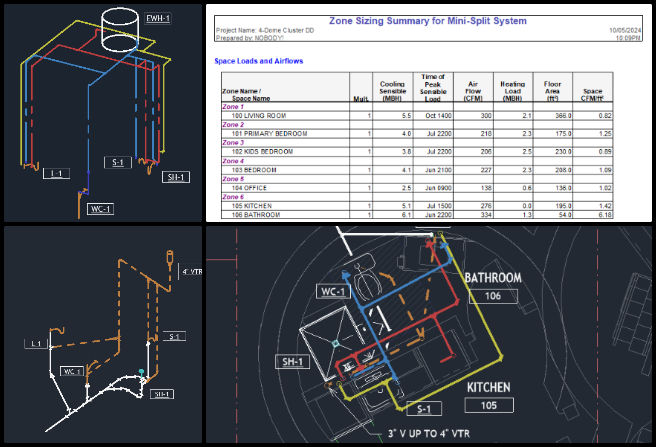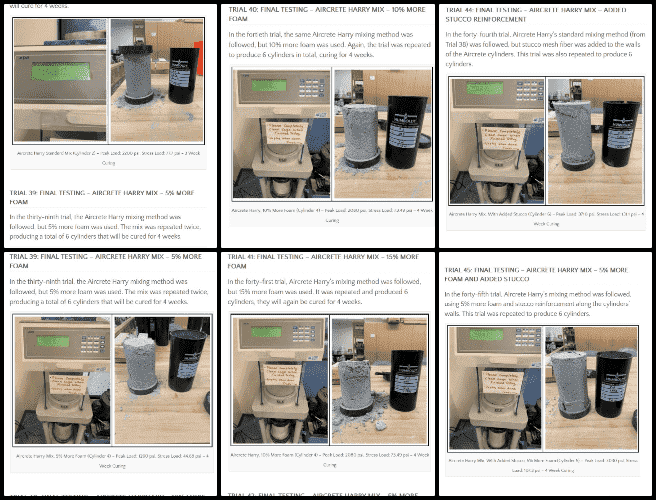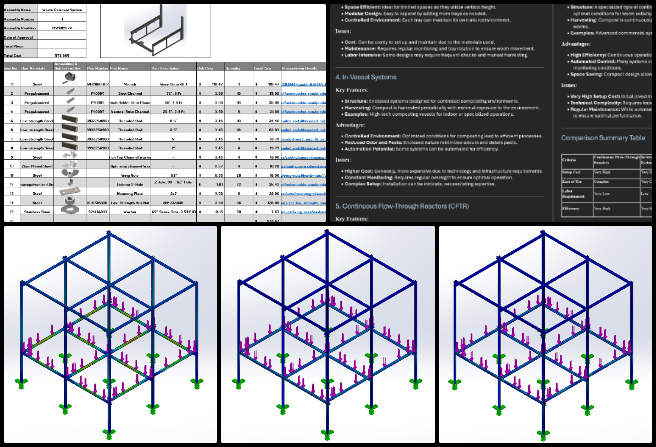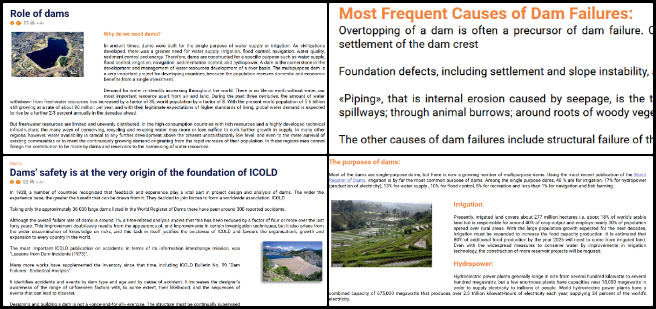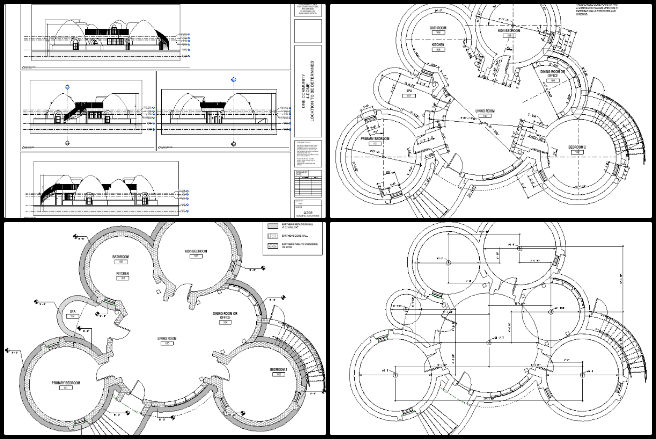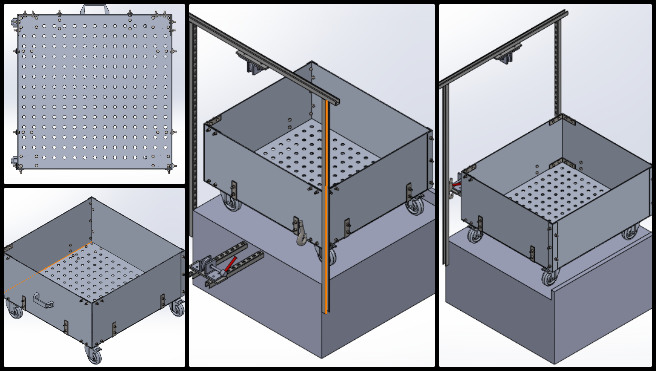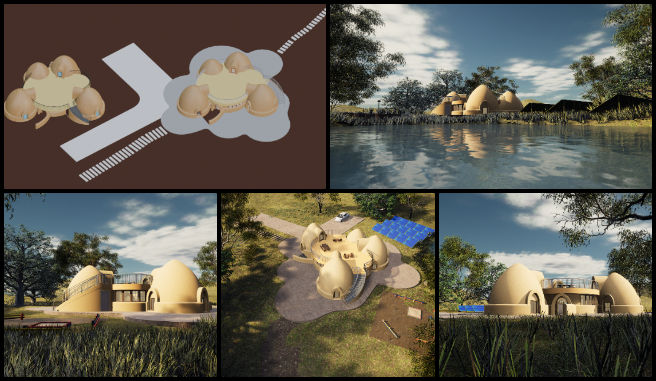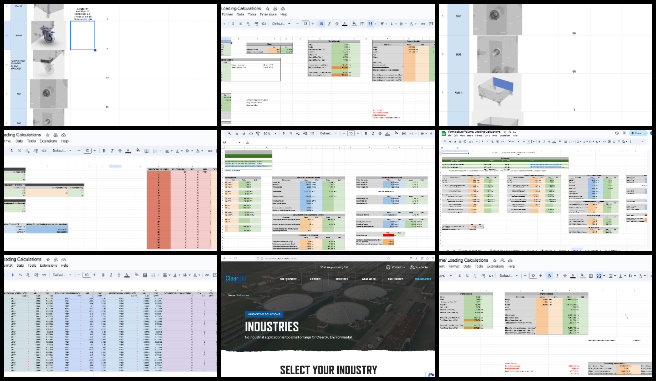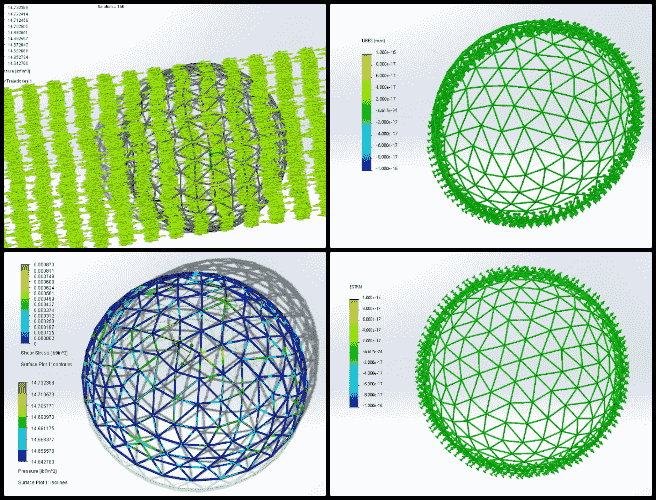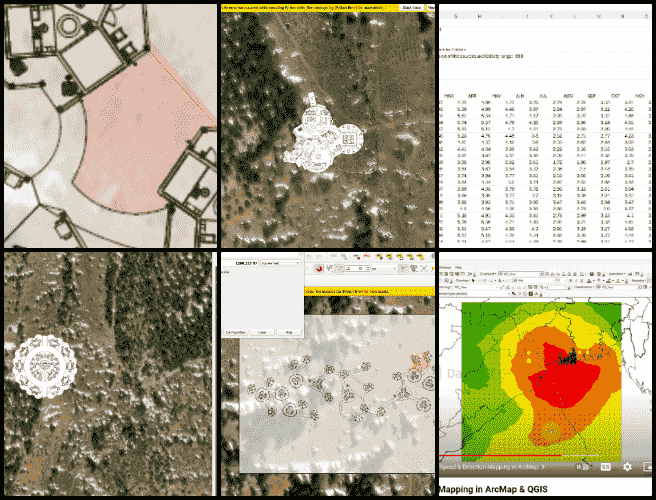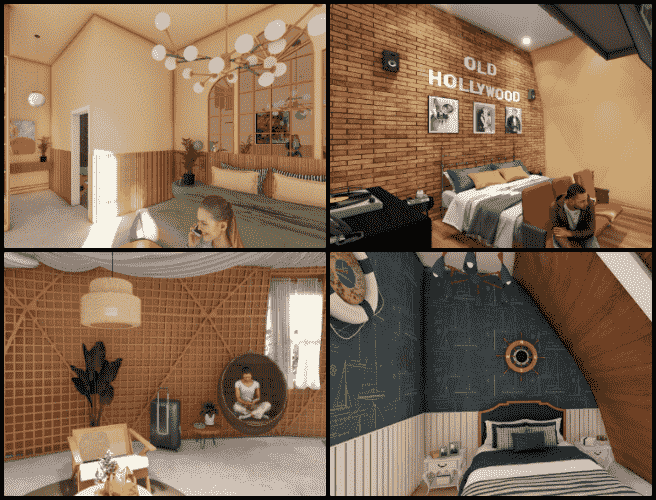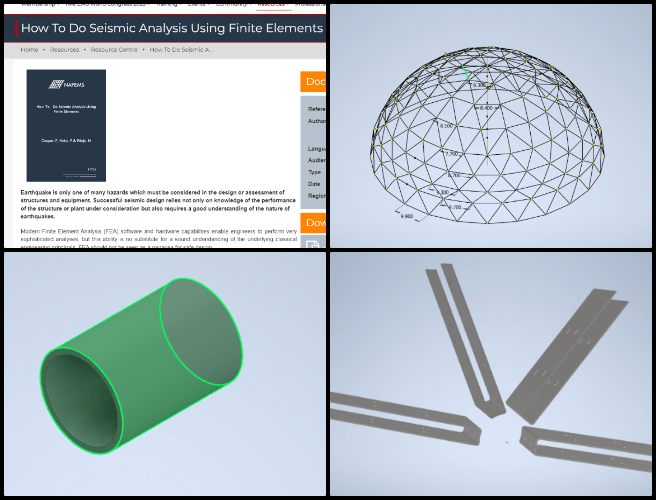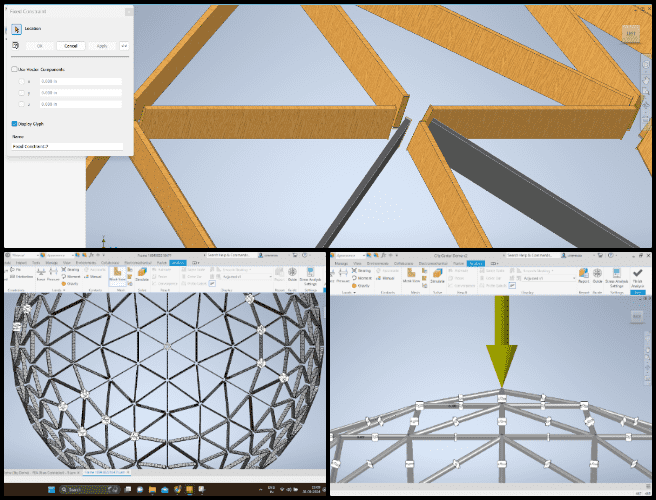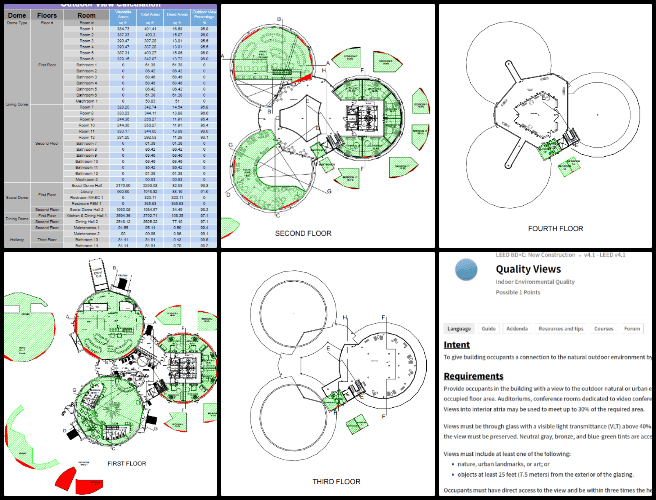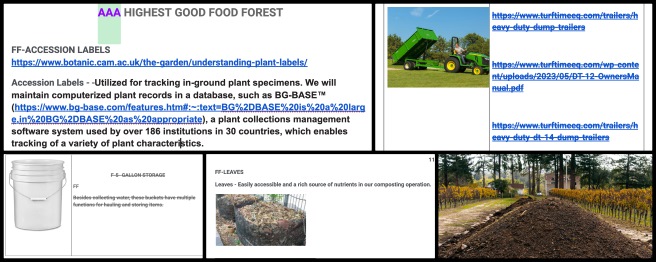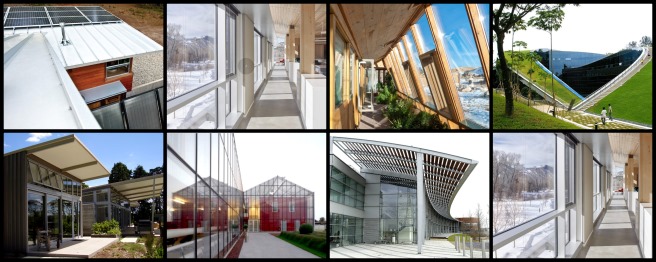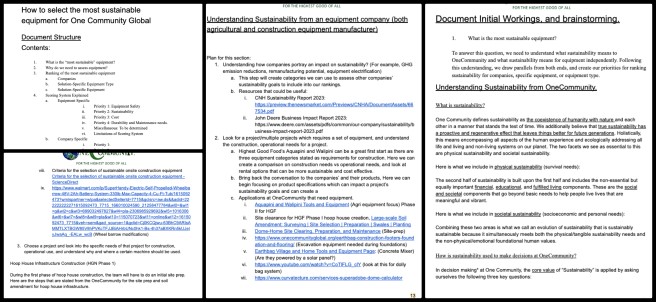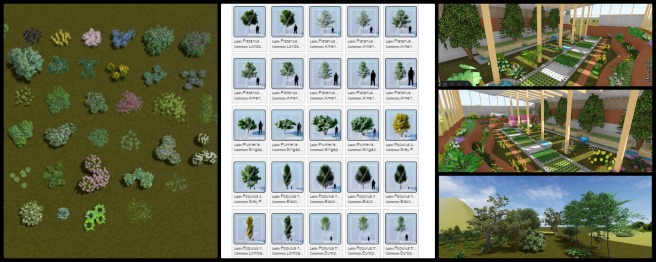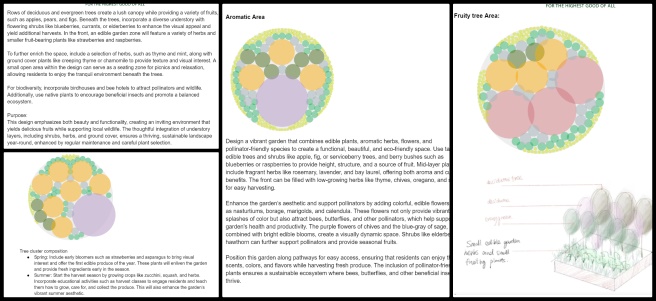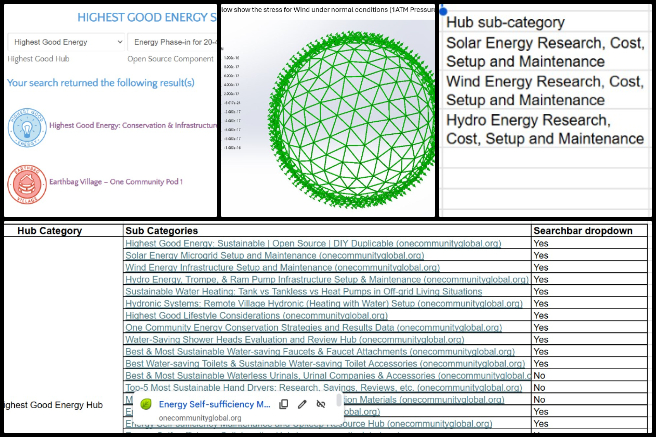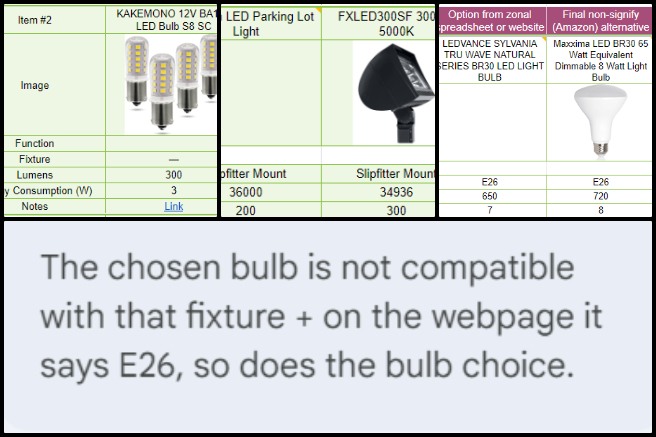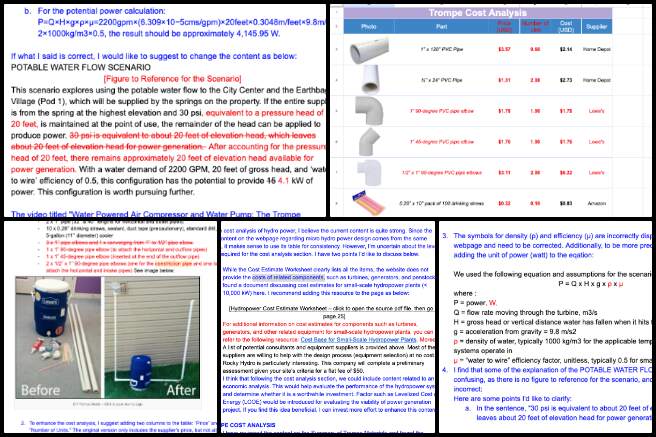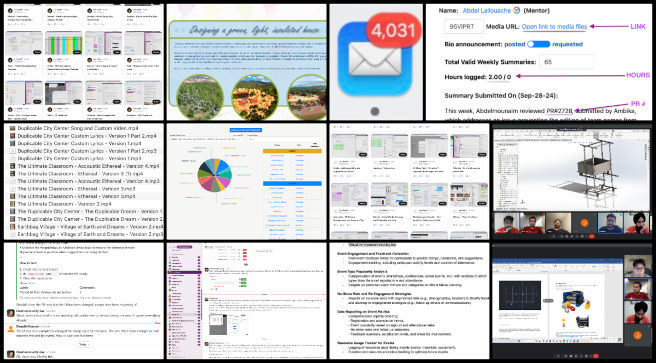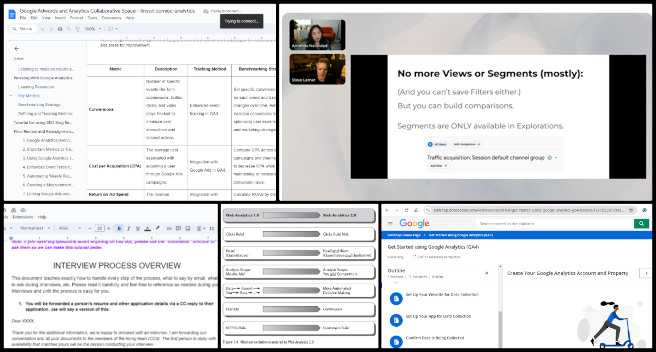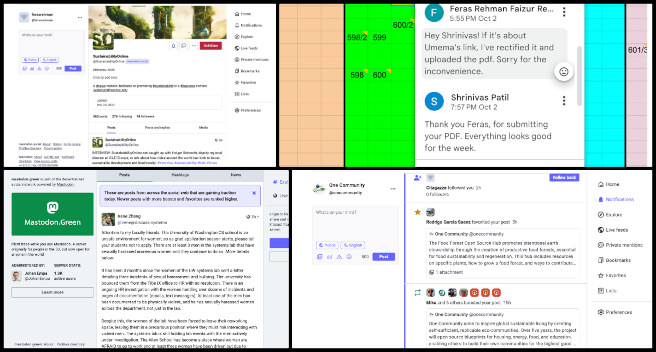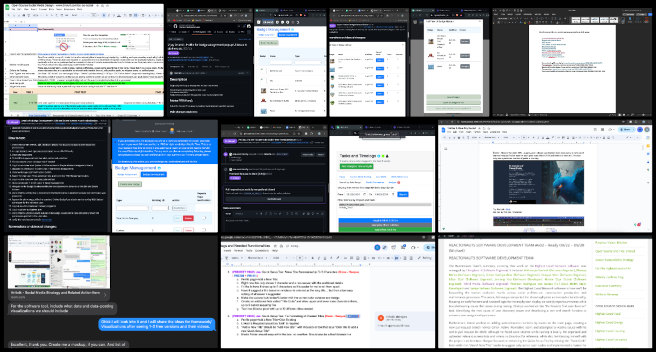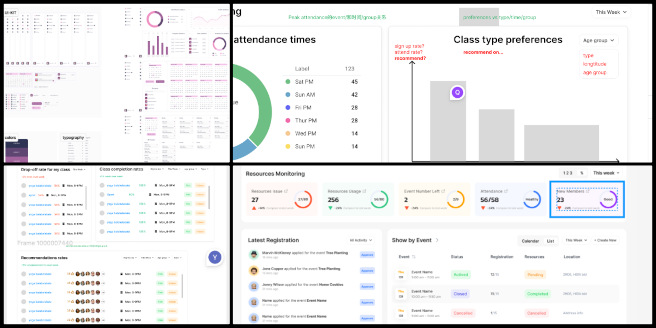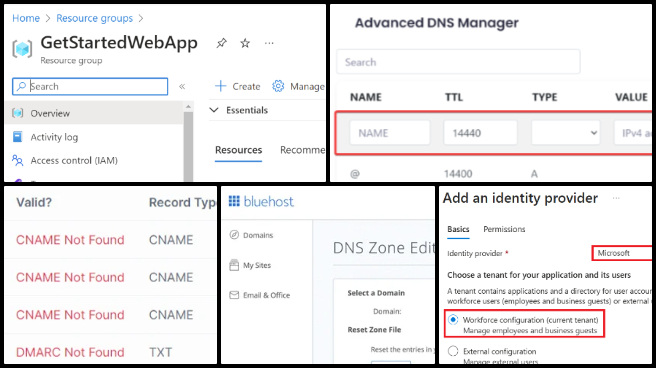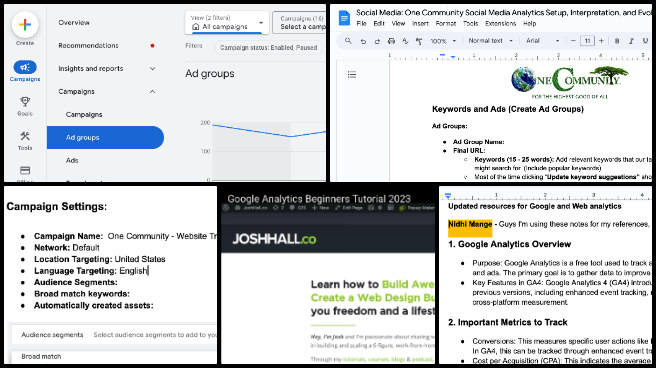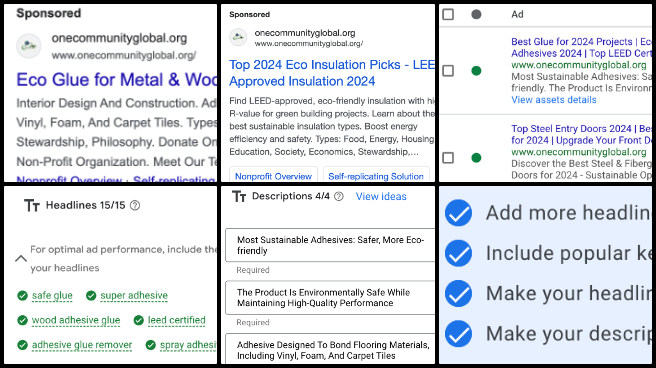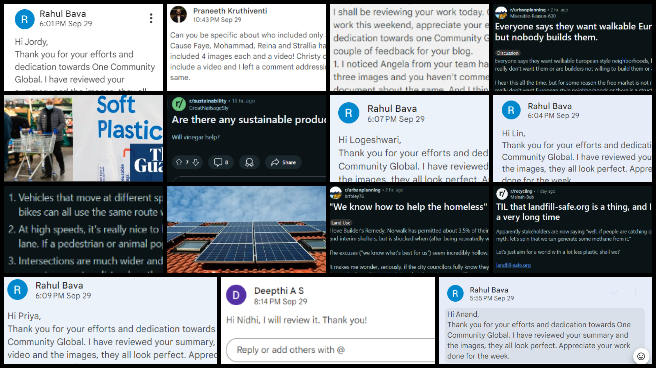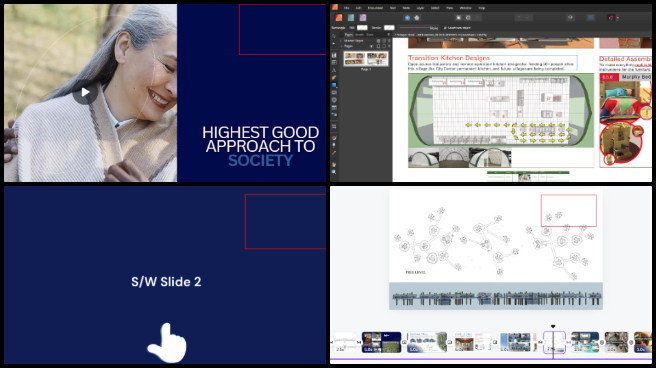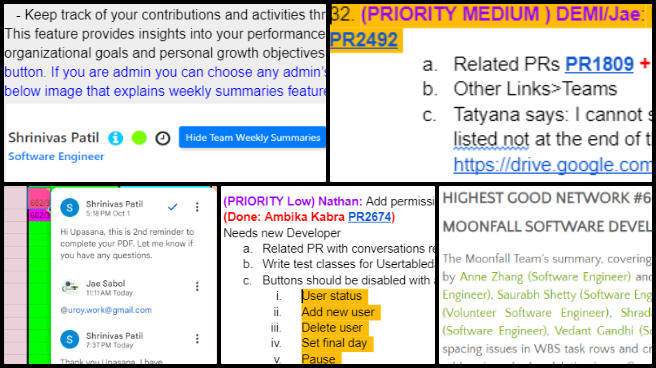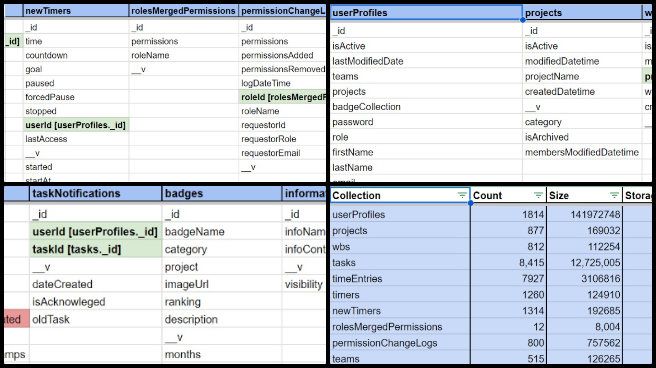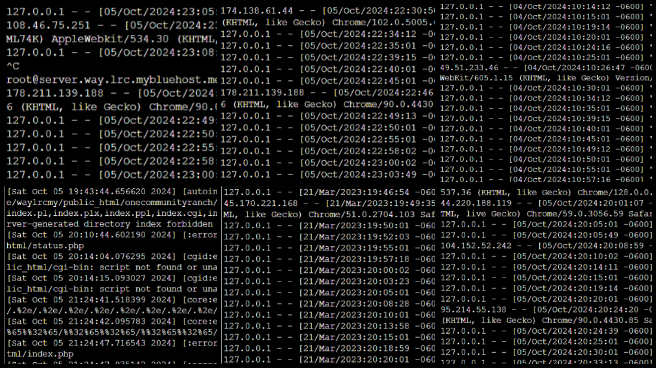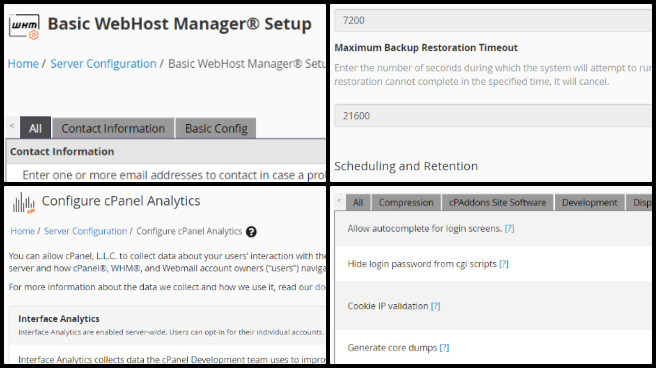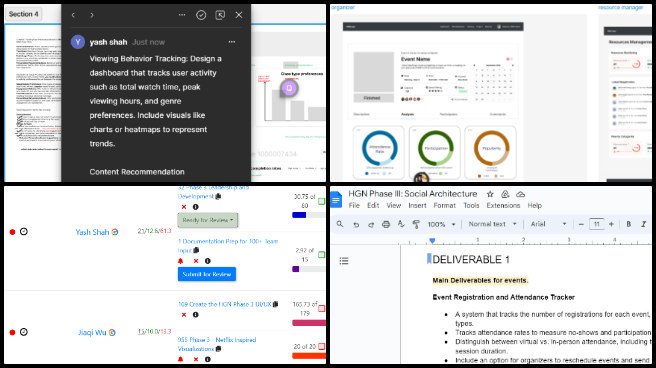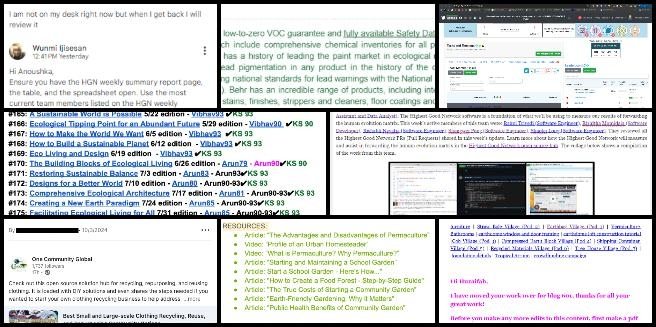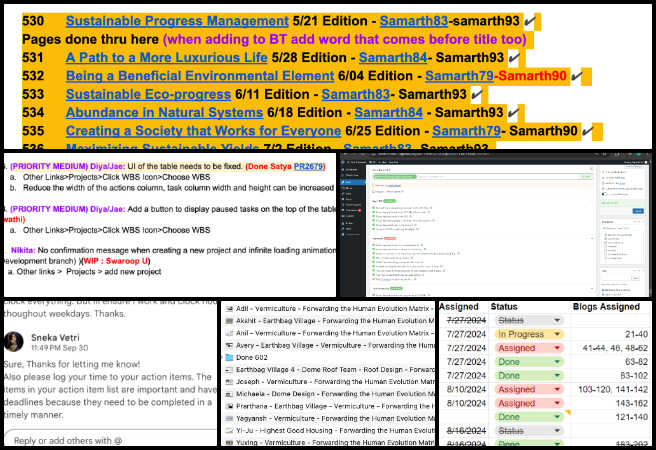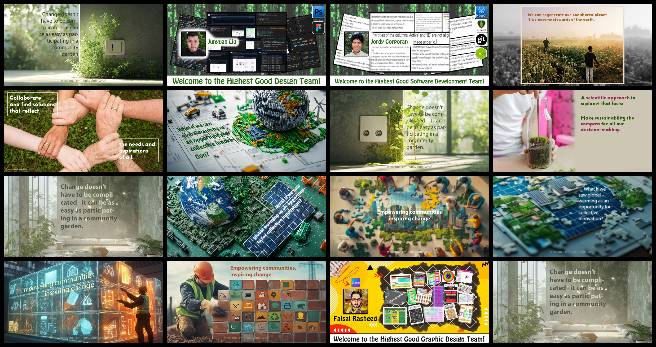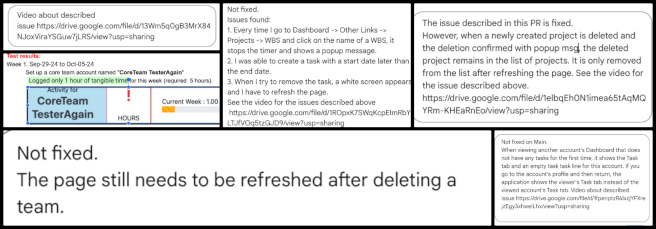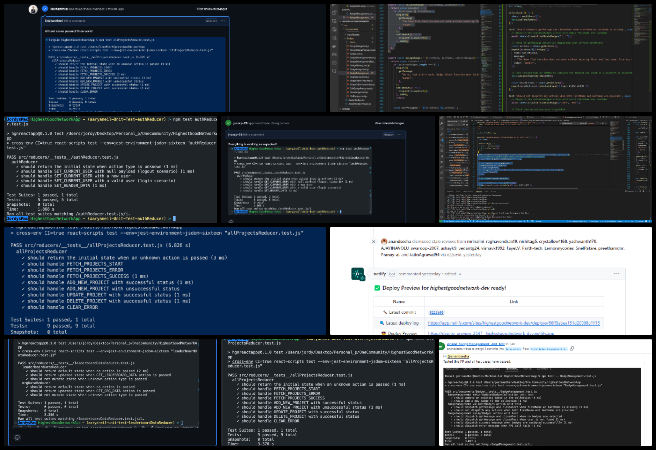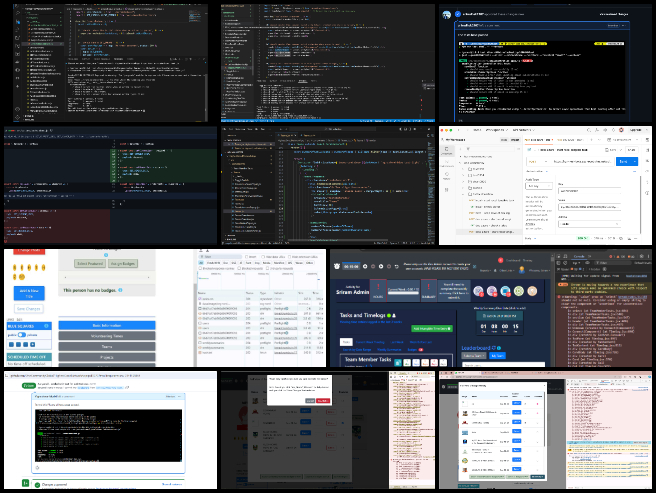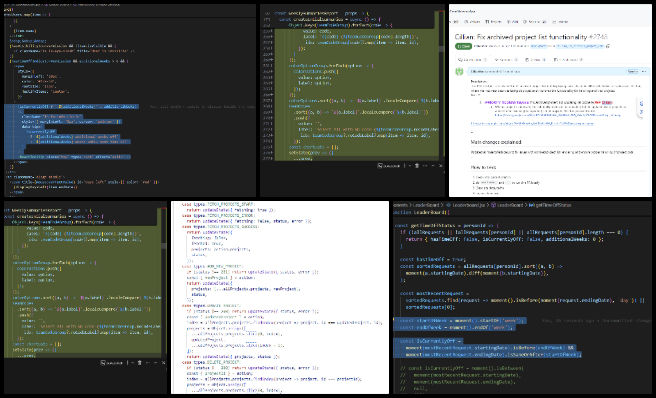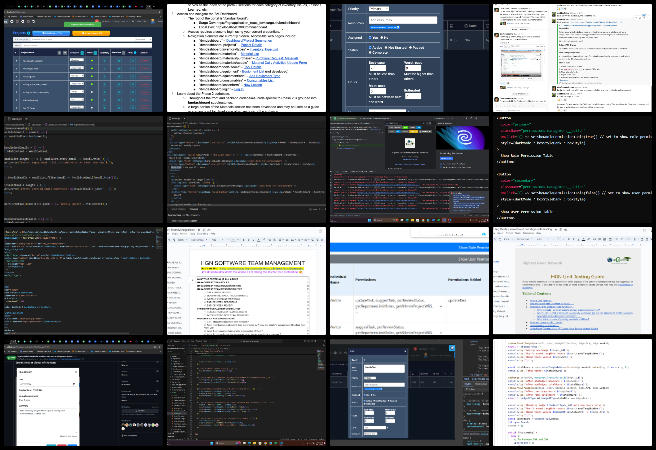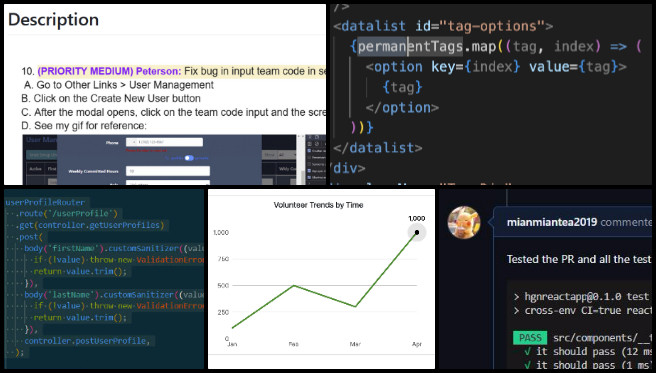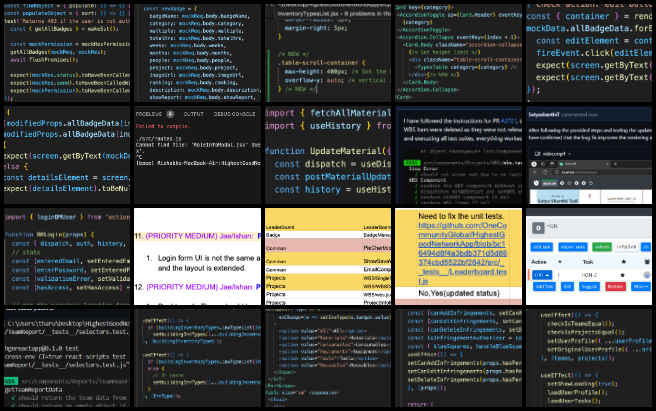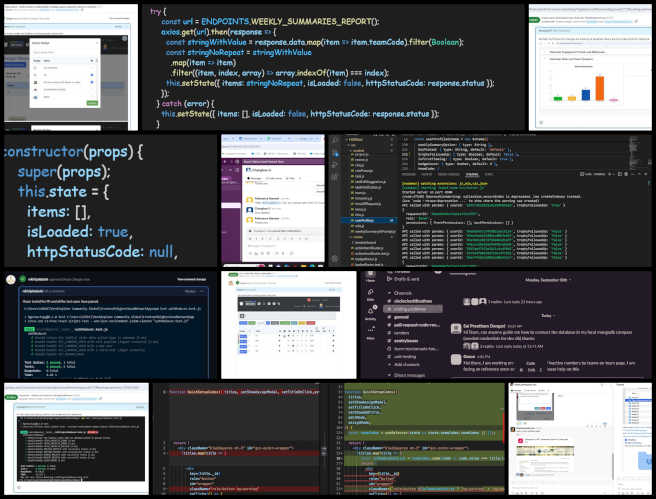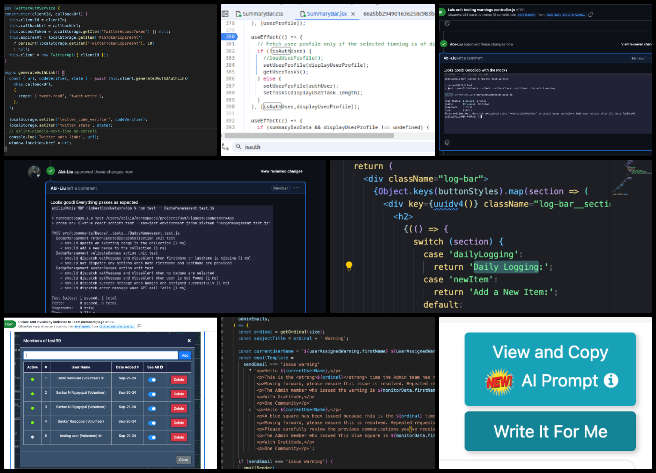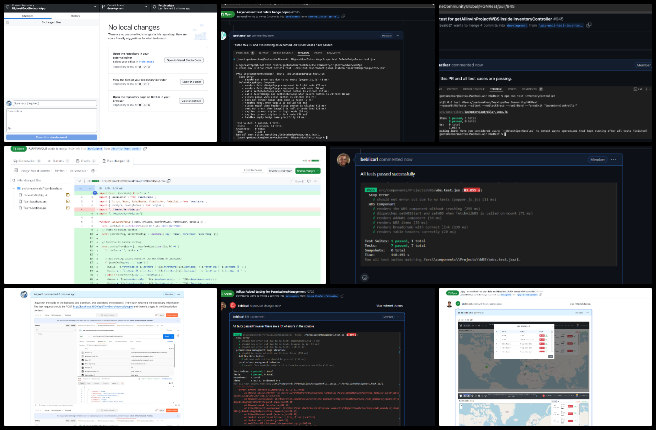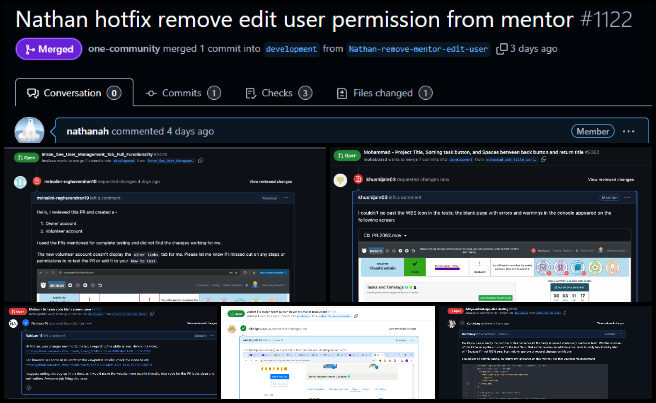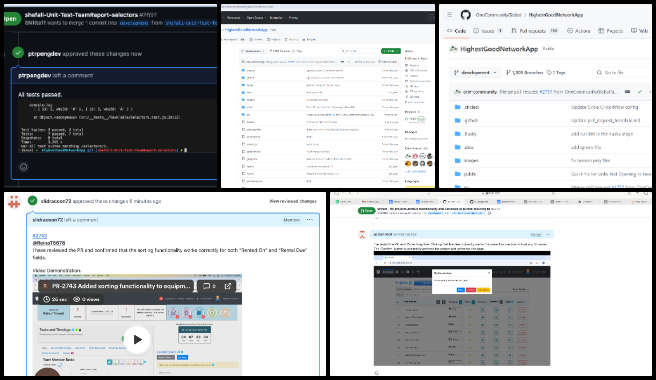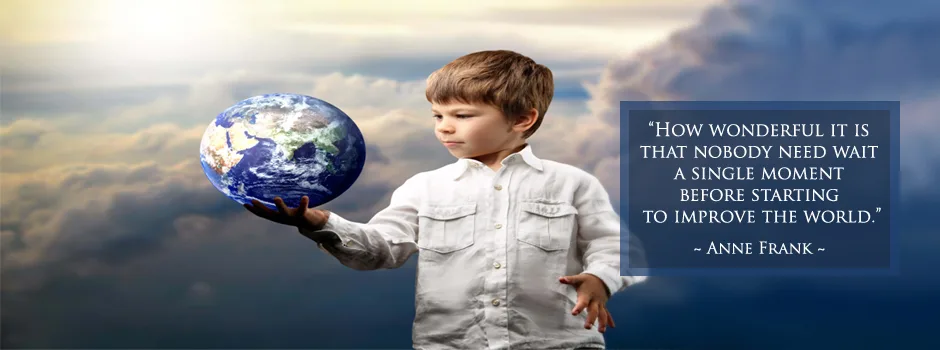
Solutioneering a World that Works for Everyone – One Community Weekly Progress Update #606
Posted on October 28, 2024 by One Community Hs
At One Community, we are solutioneering a world that works for everyone to regenerate our planet and create positive change. Our all-volunteer team is focused on sustainable approaches to food, energy, housing, education, economics, and social architecture. By open sourcing and freely sharing sharing the complete process, we aim to build a self-replicating model that inspires a global collaboration of teacher/demonstration hubs, all for “The Highest Good of All.” Together, we are evolving sustainability and fostering global stewardship practices that promote fulfilled living and lasting impact.
- Here’s our project overview
- Here’s our world-change methodology
- Here’s how this becomes self-replicating
- Here’s how we are open source and free-sharing all the do-it-yourself designs
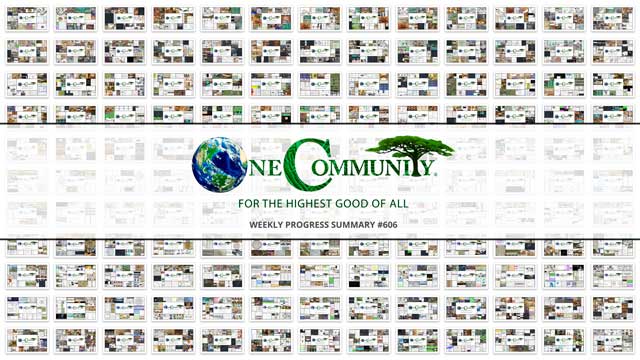
OUR MAIN OPEN SOURCE HUBS
Click on each icon to be taken to the corresponding Highest Good hub page.
One Community’s physical location will forward this movement as the first of many self-replicating teacher/demonstration communities, villages, and cities to be built around the world. This is the October 28th, 2024 edition (#606) of our weekly progress update detailing our team’s development and accomplishments:
Solutioneering a World that Works for Everyone
One Community Progress Update #606
DONATE | COLLABORATE | HELP WITH LARGE-SCALE FUNDING
CLICK HERE IF YOU’D LIKE TO RECEIVE AN EMAIL EACH WEEK WHEN WE RELEASE A NEW UPDATE
YOU CAN ALSO JOIN US THROUGH SOCIAL MEDIA
ONE COMMUNITY WEEKLY UPDATE DETAILS
HIGHEST GOOD HOUSING PROGRESS
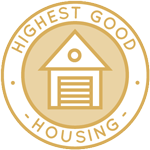 One Community is solutioneering a world that works for everyone through Highest Good housing that is artistic and beautiful, more affordable, more space efficient, lasts longer, DIY buildable, and constructed with healthy and sustainable materials:
One Community is solutioneering a world that works for everyone through Highest Good housing that is artistic and beautiful, more affordable, more space efficient, lasts longer, DIY buildable, and constructed with healthy and sustainable materials:
- Learn about: Our Upcoming Crowdfunding Campaign
- Learn about the different village models: 7 Sustainable Village Models
- Visit the open source portals for the first two: Earthbag Village OS Hub | Straw Bale Village OS Hub
This week, Adefola (Fola) Madehin (Electrical Design Specialist) continued his work with Earthbag Village electrical designs. Fola completed the socket and panel layout for the first floor of the Earthbag Village electrical project. Receptacles were placed in the bedrooms, living room, and kitchen, with the distribution panel installed in the living room. Each room was equipped with its own panel and breakers to enable individual control of the circuits. Additionally, he finalized the lettering of the socket ring circuit, which will be integrated into the electrical panel schematic diagram to ensure clear and accurate labeling for future reference. The Earthbag Village is the first of 7 to be built as the housing component of One Community’s open source model for solutioneering a world that works for everyone. See some of his work in the collage below.
Adil Zulfiquar (Engineer) continued working on the Vermiculture Toilet designs. He focused on implementing changes to the report based on feedback, including the addition of visual illustrations where applicable. The content was refined by incorporating new sections and improving overall readability. References and links to external Excel files and videos were added for relevant topics, and backups were created for the additional PDF references. The Earthbag Village is the first of 7 to be built as the housing component of One Community’s open source model for solutioneering a world that works for everyone. See below for some of the pictures related to this work.
Akshit Sethi (Architectural Designer) continued working on finalizing the interior of the Earthbag Village 4-dome home design. Akshit worked on the EarthBag Village project, concentrating on finalizing all plans and updating drawings in AutoCAD. He made adjustments based on feedback, including modifying dimensions, updating layer types, and ensuring consistency in the area chart drawings to align with the other documentation produced by One Community. These updates were essential in refining the project and ensuring that all plans met the required standards, contributing to the overall accuracy and cohesion of the design documentation. The Earthbag village is the first of 7 villages to be built as part of One Community’s open source model for solutioneering a world that works for everyone. See his work in the collage below.
Anil Karathra (Mechanical Engineer) continued working on the Vermiculture Toilet designs. He focused on team management work which involved assigning tasks, generating a meeting summary, and formatting content on the collaboration document. Sections covering the environmental impact of materials were finalized and prepared for upload, incorporating recent updates to calculations and document formatting based on feedback. Additionally, efforts focused on re-confirming worm density and evaluating its impact on composting efficiency and system design. This included assessing necessary adjustments to ensure accurate system specifications, with a particular emphasis on optimizing the composting process. The approach for solutioneering a world that works for everyone enables the development of innovative solutions that are both environmentally friendly and effective. See below for some of the pictures related to this work.
Charles Gooley (Web Designer) continued working on the Aircrete Engineering and Research: Compression Testing, Mix Ratios, R-value, and More page. He focused on updating the Aircrete Engineering and Research: Compression Testing, Mix Ratios, R-value, and More page to provide detailed engineering steps, research, and tools for verifying the safety of aircrete designs and structures. His tasks included resizing and posting images, adding links to relevant videos, uploading several videos to YouTube, and embedding the video code on the webpage. To improve the page’s accessibility and usefulness, he also added additional resources, a summary section, and a Frequently Asked Questions segment. These updates aim to make the information more comprehensive and user-friendly. Aircrete is an alternative we’re exploring for the Earthbag Village, a foundational part of One Community’s open-source model for solutioneering a world that works for everyone. Take a look at some of this work in the images below.
Joseph Osayande (Mechanical Engineer) continued helping finish the Vermiculture Toilet engineering and design details. He focused on implementing updates to the drawer and main frame structure for the vermiculture chamber. Modifications to the Waste Removal Stand (WRS) were made to align with the revised overall design, and the dimensions of the unistruts were adjusted to accommodate these changes. A finite element analysis (FEA) was conducted to evaluate the impact of these structural adjustments on system integrity. Additionally, brainstorming sessions addressed the need for effective sealing of the main frame structure to prevent waste leakage from the drawer, ensuring a more robust and efficient design. The Earthbag Village is the first of 7 to be built as the housing component of One Community’s open source model for solutioneering a world that works for everyone. See some of his work in the collage below.
Karthik Pillai (Mechanical Engineer) continued helping finish the Vermiculture Toilet engineering and design details and helping with the Earthbag Village 4-dome home roof plan. Karthik focused on refining the waste dumping mechanism in the vermiculture project, improving its load-bearing capacity and enhancing the structural integrity of the system. He completed an iteration of the main structure using Unistruts, providing modular support that will be updated based on feedback from the weekly team meeting. In the four-dome cluster project, Karthik developed an initial layout that included strategic column placements and joist connections, optimizing load distribution to ensure stability across the roof. He conducted a preliminary finite element analysis (FEA) on the roof joist design to identify stress points and evaluate load transfer efficiency, with further modifications planned for discussion at the next team meeting. The Earthbag Village is the first of 7 to be built as the housing component of One Community’s open source model for solutioneering a world that works for everyone. See some of his work in the collage below.
Loza Ayehutsega (Civil Engineer/Assistant Civil Engineer) completed another week working on the Earth Dam risk assessment and dam break hazard assessment. Loza focused on reviewing and editing report documents, addressing comments and making necessary revisions. In parallel, Loza reviewed FEMA documents on Emergency Operations Planning, particularly the Dam Incident Planning Guide. As part of this effort, Loza explored the Federal Emergency Management Agency’s (FEMA) National Dam Safety Program (NDSP) and its Dam Safety Technical Assistance (TA) program. This program encourages emergency managers to collaborate with neighboring communities, agencies, and the private sector to better understand and mitigate the risks posed by local and regional dams. The approach for solutioneering a world that works for everyone enables the development of innovative solutions that are both environmentally friendly and effective. See below for some of the pictures related to this work.
Michaela Silva (Architect) continued working on finalizing the interior of the Earthbag Village 4-dome home design. Michaela focused on progressing the Construction Documents, specifically typing out and placing the California Residential code on a sheet in Revit for reference in constructing a single-family, four-dome home. She also coordinated with the team and worked on gathering updates to ensure the project stayed aligned with current requirements and feedback. The Earthbag village is the first of 7 villages to be built as part of One Community’s open source model for solutioneering a world that works for everyone. See her work in the collage below.
Vimarsh Acharya (Engineering Manager and Technical Reviewer) continued working on the Most Sustainable Paints, Stains, Varnish, Sealers component. Vimarsh worked on a spreadsheet for the sustainable paint documentation, organizing and outlining relevant data. Following this, he began a new task involving the identification and compilation of 20 notable statistics from approximately 10-15 documents related to sustainability and environmental practices. Each document is being reviewed to extract key statistics that highlight its primary data points and insights. The One Community model of combining forward-thinking education with sustainably built classrooms like this is an excellent example of solutioneering a world that works for everyone. See the collage below for his work.
Yagyansh Maheshwari (Mechanical Engineer) continued helping finish the Vermiculture Toilet engineering and design details. Yagyansh worked on optimizing the placement of the wheels to facilitate moving the unit indoors where applicable. He conducted finite element analysis (FEA) on the drawer to evaluate its capacity to withstand the weight load and the pulling force exerted by the winch, making modifications as necessary to achieve suitable FEA results. The Earthbag Village is the first of 7 to be built as the housing component of One Community’s open source model for solutioneering a world that works for everyone. See some of his work in the collage below.
Yuze Tang (Architect) continued working on Vermiculture Toilet designs. He completed a cost-reduction analysis for alternative materials for a drawer project and researched the strength requirements for various materials to contain heavy waste loads in the drawer and adjusted the material thickness accordingly. Yuze compared six materials, primarily evaluating their price, strength, and required thickness to determine the most cost-efficient and durable option. He compiled his findings into a team collaboration document for reference and future use. The approach of solutioneering a world that works for everyone enables the development of innovative solutions that are both environmentally friendly and effective. See below for some of the pictures related to this work.
DUPLICABLE CITY CENTER PROGRESS
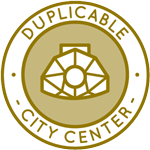 One Community is solutioneering a world that works for everyone through a Duplicable and Sustainable City Center that is LEED Platinum certified/Sustainable, can feed 200 people at a time, provide laundry for over 300 people, is beautiful, spacious, and saves resources, money, and space:
One Community is solutioneering a world that works for everyone through a Duplicable and Sustainable City Center that is LEED Platinum certified/Sustainable, can feed 200 people at a time, provide laundry for over 300 people, is beautiful, spacious, and saves resources, money, and space:
- Learn about this building and it’s function in solutioneering a world that works for everyone: Duplicable City Center Open Source Hub
This week, Arnob Mutsuddi (Mechanical Engineer) continued working on Duplicable City Center structural engineering model and details. He initiated new modifications and continued on the side struts within the U hub connector, with specific work focusing on Row 1. Work also began on modifying the central ring of the U hub connector in Row 2, with subsequent progress updates shared in a team meeting. The meeting covered the ongoing developments in the hub connector design, providing an overview of modifications completed and outlining the next steps. The Duplicable City Center is a foundational part of One Community’s open-source model, which excels in solutioneering a world that works for everyone. This approach is integral to their mission of solutioneering a world that works for everyone through innovative and scalable solutions. See some of this work in the pictures below.
Faeq Abu Alia (Architectural Engineer) continued his work on the Duplicable City Center Eco-kitchen renders. He worked on preparing the City Center kitchen model in SketchUp for the walkthrough video by correctingmodel defects and adding elements such as food and human figures. Additionally, in Lumion, he refined the kitchen model by adjusting materials, incorporating human figures, and selecting the video shots needed for the walkthrough. The Duplicable City Center represents a fundamental element of One Community’s open-source approach, dedicated to solutioneering a world that works for everyone. View examples of this work in the pictures provided below.
Nika Gavran (Industrial Designer) continued her work on the Duplicable City Center dormer window installation plans. She focused on expanding the final document for the dormer window instructions and progressed with the next assembly steps, mainly involving the window’s exterior. She prepared the Keyshot environment to render these final steps and is working towards compiling all slides. As a foundational component of One Community’s open-source strategy, the Duplicable City Center is designed for solutioneering a world that works for everyone. The images below showcase some of this work.
Sanket Basannavar (Mechanical Engineer) continued his research on the structure and materials used in spa covers currently available in the market. He focused on further design and assembly work using SolidWorks. He worked on building and assembling various cover parts, including a 3-part spa cover design consisting of one half-section and two quarter-sections made of aluminum and EPS. Mass analysis was performed on these designs to evaluate their properties. Additionally, he studied the design and assembly of foldable spa covers and holders to understand their construction and functionality. Within One Community’s open-source framework, the Duplicable City Center plays a central role in solutioneering a world that works for everyone. The images below showcase some of this work.
Tasmia Hasan (Design Engineer) continued her work on the structural engineering of the Duplicable City Center. She focused on exploring methods to obtain additional data points for the seismic analysis of the frame, employing various techniques within Autodesk Robot. Additionally, she worked on refining the hub connector drawings, making adjustments to enhance their alignment and ensure a more precise fit with the overall frame structure. As a foundational component of One Community’s open-source strategy, the Duplicable City Center is designed for solutioneering a world that works for everyone. You can see examples of this work in the following images.
Umema Ali (Mechanical Design Engineer) continued working on the Duplicable City Center Engineering. She focused on static structural analysis for the new dome structure and the traditional dome structure, specifically addressing snow loads. She used Inventor software to simulate and analyze the impact of three different snow loads on both designs. This work is part of the ongoing effort to ensure the structural integrity and performance of the domes under varying environmental conditions. Within One Community’s open-source framework, the Duplicable City Center plays a central role in solutioneering a world that works for everyone. The images below showcase some of this work.
Yancong E (Architectural Designer) continued working on the Duplicable City Center project. This week, Yancong continued to explore the USGBC’s requirements for Quality Views, refining the previous tutorial by adding a table of Regularly Occupied Spaces to complete the second half of the step-by-step guidance, including sections on identifying regularly occupied spaces, identifying sight lines to exterior views, and assessing view quality. He also reprinted the AutoCAD floor plans and added a legend section. The Duplicable City Center represents a fundamental element of One Community’s open-source approach, dedicated to solutioneering a world that works for everyone. This innovative initiative aims to showcase how solutioneering a world that works for everyone can transform urban spaces into more sustainable and community-oriented environments. You can see examples of this work in the following images.
HIGHEST GOOD FOOD PROGRESS
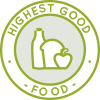 One Community is solutioneering a world that works for everyone through Highest Good food that is more diverse, more nutritious, locally grown and sustainable, and part of our open source botanical garden model to support and share bio-diversity:
One Community is solutioneering a world that works for everyone through Highest Good food that is more diverse, more nutritious, locally grown and sustainable, and part of our open source botanical garden model to support and share bio-diversity:
- Learn about the structures: Hoop House Hub | Aquapini & Walipini Open Source Hub
- See what we’ll be growing and solutioneering a world that works for everyone: Gardens & Hoop Houses | Large-scale Structures | Food Forest | TA
This week, the core team continued their research for the Highest Good Soil Amendment Tools, Equipment, Materials/Supplies list. They enhanced the descriptions of each soil amendment and included accompanying photographs. These additions complemented the previously documented soil amendments of comfrey, chicken manure, food scraps, compost, and leaves. Both documents have been finalized after completing this page and the Orchard document. The Highest Good Food initiative is a key component of One Community’s open source plans, dedicated to solutioneering a world that works for everyone. See their work in the collage below.
Jay Nair (BIM Designer) continued working on Aquapini and Walipini Planting and Harvesting lighting and HVAC design. He focused on researching and analyzing the Ground to Air Heat Transfer (GAHT) system for greenhouse climate control. The GAHT system or a climate battery, utilizes the earth’s thermal mass to regulate greenhouse temperatures by transferring heat underground. This system captures excess warm, humid air during the day, storing it in the soil to provide warmth during cooler nighttime temperatures, and reverses the process as needed to cool the greenhouse. Key components examined include the underground pipes, which facilitate heat transfer and require robust insulation and strategic placement to optimize thermal efficiency. Different insulation methods and backfill options, such as gravel or native soil, were considered for maximizing heat retention and effective moisture management, ultimately contributing to solutioneering a world that works for everyone. The GAHT system’s ability to balance heating and cooling needs was assessed for residential and commercial applications, with attention to the costs, benefits, and specific installation challenges related to soil type, water table, and excavation depth. The Highest Good Food initiative is a key component of One Community’s open source plans, dedicated to solutioneering a world that works for everyone, and exemplifies the organization’s commitment to solutioneering a world that works for everyone through innovative design and implementation. Below are some of the images showcasing this work.
Purva Borkar (Landscape Architect) continued her work on creating an outdoor merge of a food-producing ecosystem and people spaces for the Aquapini and Walipini Planting and Harvesting structures. She conducted a detailed study on sustainable gardening and water management systems, emphasizing food forests and public space design. The research focused on the layering of plants in food forests to enhance biodiversity and productivity. Additionally, strategies for rainwater catchment, swales, and pond systems were explored to ensure efficient water management. Public space design elements, including community gathering areas, walking trails, bioswales, and green roofs, were reviewed. The study also included case studies on enhancing urban spaces with sustainable, interactive features. As part of One Community’s open source efforts, the Highest Good Food initiative embodies a commitment to solutioneering a world that works for everyone. The images below offer a glimpse into these ongoing efforts.
Syahrina Maulida Majid (Volunteer Nutritionist) continued working on creating menu implementation tutorials as a part of One Community’s Transition Food Self-Sufficiency Plan. She focused on reviewing the master recipe template and examining its structure and functionality to ensure it aligns with project needs. She duplicated the template to explore various inputs and outputs, testing the template’s ability to adapt to different dietary preferences and group sizes without impacting the original. Throughout the process, Syahrina recorded notes on any edits needed and questions that arose, identifying areas where clarifications or adjustments could improve the user experience. In addition to testing and documenting edits, she began drafting a raw tutorial to guide users in navigating the template effectively, all while solutioneering a world that works for everyone. This draft includes step-by-step instructions on how to use the template, helping users understand its calculations and features. Syahrina also focused on making the tutorial accessible and easy to follow, based on observations from testing, to streamline implementation for diverse user needs. The Highest Good Food initiative plays a crucial role in One Community’s open source plans, with the aim of solutioneering a world that works for everyone. Her work is showcased in the collage below.
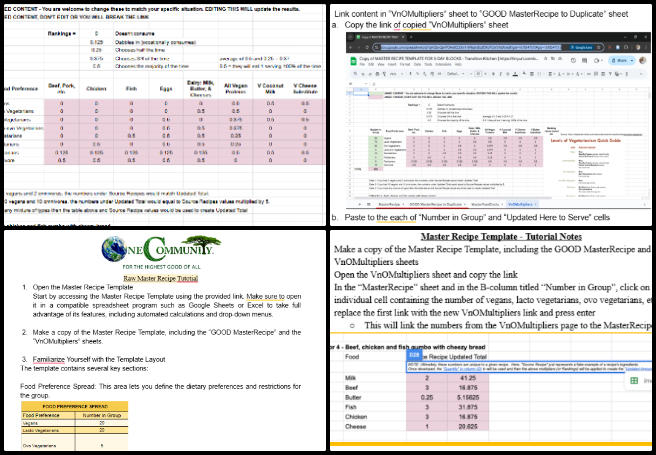
Vatsal Tapiawala (Mechanical Engineer) started working on the design of the greenhouse for the Aquapini and Walipini Planting and Harvesting structures. He watched a 2-hour film by Paul Wheaton that detailed methods and construction techniques for building a passive greenhouse, noting key descriptions along with the pros and cons of the methods for further analysis. In addition, Vatsal researched other potential approaches and materials that might enhance the efficiency and eco-friendliness of the design, aiming to identify elements that could be effectively integrated. The Highest Good Food initiative is a key component of One Community’s open source plans, dedicated to solutioneering a world that works for everyone. See his work in the collage below.
Ziyi Chen (Landscape Designer) continued working on the design of the outdoor spaces for the Aquapini and Walipini Planting and Harvesting structures. She completed the selection of tree species and CAD annotations and began modeling the outdoor area in SketchUp. She organized the outdoor sections of an existing model, correcting line misalignments, adjusting planes, connecting new planes, and unifying materials between new and existing areas. Following CAD drawings, Ziyi added canopy and understory trees into the model, refining tree levels and species combinations. The Highest Good Food initiative is a key component of One Community’s open source plans, dedicated to solutioneering a world that works for everyone. See her work in the collage below.
HIGHEST GOOD ENERGY PROGRESS
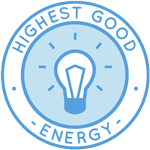 One Community is solutioneering a world that works for everyone through Highest Good energy that is more sustainable, resilient, supports self-sufficiency and includes solar, wind, hydro and more:
One Community is solutioneering a world that works for everyone through Highest Good energy that is more sustainable, resilient, supports self-sufficiency and includes solar, wind, hydro and more:
- Learn about the open source sustainable-energy foundations: Solar, Hydro, and Wind
- Explore our research into the most sustainable products and companies for saving water and energy: Insulation, Eco-laundry, Lightbulbs and Light Bulb Companies, Doors and Door Companies, Windows and Window Companies, Toilets, Faucets and Faucet Accessories, Urinals, and more.
This week, Panambur Rachan Rao (Project Manager) successfully completed the cost analysis template for the Highest Good Energy infrastructure, ensuring it meets all necessary requirements. In addition, he conducted a thorough review of the Energy website, incorporating the feedback received. Rachan also took the initiative to coordinate with the DCC analysis team, gathering important updates on the hub connector design for Rows one, two, and three, which will be crucial for the project’s progress. Within One Community’s open-source framework, the Duplicable City Center plays a central role in developing solutioneering a world that works for everyone. Take a look at some of this work in the images below.
Viktoriia Zakharova (Administrative Assistant) worked on sustainable light bulb options for the Duplicable City Center and the webpage guide, adding information about lighting considerations for sustainability. She verified that each selected light bulb matched the necessary color temperature requirements and included a disclaimer clarifying that Amazon was used as a research platform rather than the primary vendor. She also began researching sustainable lighting fixtures, examining existing types, and watching instructional videos to expand her knowledge in this area. The Duplicable City Center represents a fundamental element of One Community’s open-source approach, dedicated to developing solutioneering a world that works for everyone. View examples of this work in the pictures provided below.
Yi-Ju Lien (Environmental Engineer) completed the hydropower case within the potable water system scenario, examining not only the Duplicable City Center case but also introducing research on the potential for power generation by replacing pressure-breaking elements in the drinking water system with a microturbine, along with findings on recommended equipment selection. Additionally, Yi-Ju worked on the cost analysis of earth dams, providing an overview of cost analysis at various project maturity levels. She discussed concepts such as contingency ratios, unit prices, and cost curves based on unit pricing, integrating suggestions from other research, all while solutioneering a world that works for everyone. For dam safety, Yi-Ju offered more detailed guidance on estimating breach parameters and utilizing physically based computer modeling with HEC-RAS, which aims to improve the understanding of these parameters in risk assessment. The Duplicable City Center represents a fundamental element of One Community’s open-source approach, dedicated to developing solutioneering a world that works for everyone. Below is a collage of this work.
HIGHEST GOOD EDUCATION PROGRESS
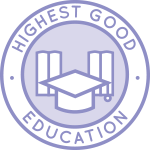 One Community is solutioneering a world that works for everyone through Highest Good education that is for all ages, applicable in any environment, adaptable to individual needs, far exceeds traditional education standards, and more fun for both the teachers and the students. This component of One Community is about 95% complete with only the Open Source School Licensing and Ultimate Classroom construction and assembly details remaining to be finished. With over 8 years of work invested in the process, the sections below are all complete until we move onto the property and continue the development and open sourcing process with teachers and students – a development process that is built directly into the structure of the education program and everything else we’re creating too:
One Community is solutioneering a world that works for everyone through Highest Good education that is for all ages, applicable in any environment, adaptable to individual needs, far exceeds traditional education standards, and more fun for both the teachers and the students. This component of One Community is about 95% complete with only the Open Source School Licensing and Ultimate Classroom construction and assembly details remaining to be finished. With over 8 years of work invested in the process, the sections below are all complete until we move onto the property and continue the development and open sourcing process with teachers and students – a development process that is built directly into the structure of the education program and everything else we’re creating too:
- Program Overview: Education Open Source Hub
- How the components work together in solutioneering a world that works for everyone: How to use the Education for Life Program
- Lesson Plans for Life – Lesson Plans How-to
- Foundations of Outstanding Leaders, Teachers, and Communicators
- Curriculum for Life
- Teaching Strategies for Life
- Learning Tools and Toys for Life
- Evaluation and Evolution
This week, Apoorv Pandey (Mechanical Engineer) continued helping with the engineering details for the Ultimate Classroom part of the Highest Good education component. He continued working on the final draft of the Structural Engineering Report for the Ultimate Classroom Project, focusing on the calculations and analysis section. He researched ways to simplify the explanation of technical tables, such as the static check table and the beam force detail summary, to make the content more accessible to a layperson. Given the complexity of the results, he sought assistance from Jae to help complete the report. Additionally, Apoorv researched to improve the clarity of specific sections and referenced other published materials on One Community’s website to guide his work. The One Community model of combining forward-thinking education with sustainably built classrooms like this is an excellent example of solutioneering a world that works for everyone. This approach exemplifies solutioneering a world that works for everyone by creating environments fostering collaboration and innovation. See the collage below for his work.
HIGHEST GOOD SOCIETY PROGRESS
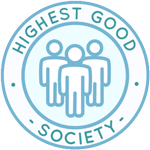 One Community is solutioneering a world that works for everyone through a Highest Good society approach to living that is founded on fulfilled living, the study of meeting human needs, Community, and making a difference in the world:
One Community is solutioneering a world that works for everyone through a Highest Good society approach to living that is founded on fulfilled living, the study of meeting human needs, Community, and making a difference in the world:
- Read the Highest Good society overview: Highest Good Society
- Learn about the model for fulfilled living and sharing and solutioneering a world that works for everyone: A Day in the Life
- Learn about the 4 economic models: RBE | For-profit | Non-profit | Entrepreneurship
- Learn about our open source community collaboration and management software: The Highest Good Network
This week, the core team completed over 63 hours managing One Community’s volunteer-work review not included above, emails, social media accounts, web development, new bug identification and bug-fix integration for the Highest Good Network software, and interviewing and getting set up new volunteer team members. They also shot and incorporated the video above that talks about solutioneering a world that works for everyone and how solutioneering a world that works for everyone is a foundation of the bigger picture of everything One Community is doing. The image below shows some of this work.
Anoushka Hazari (Data Analyst) completed the PR review, finalized team WordPress tasks, and proofread the summary. Collages were created for the blog to improve its presentation and ensure alignment with project goals for publication. Work began on the Figma dashboard using Kernel to connect and transfer data from the provided sheet. To streamline the process, YouTube tutorials were reviewed to gain a better understanding of the tool. She also researched plugins capable of automatically converting Google Sheets data into table format, but issues arose due to the sheet’s large size and lack of organization, causing slow processing and frequent crashes. Additionally, initial design work for the PR Admin data sheet dashboard was started in Figma, focusing on usability and data visualization. While setting up a dashboard layer, the names were mapped, though organizing the PR Reviewing spreadsheet may be necessary to improve mapping efficiency. This work helps One Community’s mission of solutioneering a world that works for everyone and reinforces our commitment to solutioneering a world that works for everyone. The following images show his work for the week.
Aravind Yuvraj (Networks and Security Engineer) focused on migrating the HGN platform from Azure to Bluehost, addressing backend file transfers and database migration processes. Using provided migration resources, there was an emphasis on understanding the steps involved in transferring SQL server database files from Azure’s environment to Bluehost’s infrastructure. Additionally, there was ongoing management of Azure backend files for the HGN site, along with consistent monitoring of site stability to address any issues with support as necessary. Attention was also given to troubleshooting site crashes, with efforts towards maintaining operational continuity throughout the migration process. This work helps One Community’s mission of solutioneering a world that works for everyone and reinforces our commitment to solutioneering a world that works for everyone. The following images show his work for the week.
Deepthi Arcot Subramanyam (Data Analyst) worked on a detailed strategy for the Google Analytics team, focusing on KPI development, mission-specific KPIs, and reviewing team submissions related to the strategy. She collaborated with Riddhisha to consolidate input and submit the initial strategy to Jae, aligning priorities for implementation. Additionally, she led the weekly team meeting to discuss Jae’s feedback and outlined steps for moving forward with the strategy. She also addressed priorities for implementation and identified specific URLs for tracking to support the project’s objectives. This work helps One Community’s mission of solutioneering a world that works for everyone and reinforces our commitment to solutioneering a world that works for everyone. The following images show her work for the week.
Feras Rehman (Data Analyst) continued working on developing One Community’s Mastodon account and strategy. He also managed his part of the One Community Updates Blog and reviewed the work of Viktoriia, Saumit, Praneeth, Rahul, Ratna, and Jessica, providing feedback on identified errors. Five additional posts for Mastodon were scheduled on Buffer for the following week. Targeted strategies for Mastodon were developed and implemented, resulting in a threefold increase in post reach through optimized hashtag usage and improved post structuring. The weekly summary was completed, and images were added to supplement the content. This work helps One Community’s mission of solutioneering a world that works for everyone and reinforces our commitment to solutioneering a world that works for everyone. The following images show his work for the week.
Gavin Burke (Project Manager) assisted the tech team in creating a dummy version of the HGN app to test Bluehost. He organized a team call on Tuesday to clarify tasks, check progress, and ensure team members had the required resources. Gavin assigned Jaya to address issues with the One Community website on Bluehost, Namra to contact customer support for alternative hosting options and to research backing up the HGN app, and Vatsal to manage the creation and testing of the dummy app on Bluehost. On Wednesday, he followed up with Vatsal to confirm the use of a free domain for the dummy app. This work helps One Community’s mission of solutioneering a world that works for everyone and reinforces our commitment to solutioneering a world that works for everyone. The following images show his work for the week.
Hritvik Mahajan (Data Analyst) reviewed blog posts by Huzaifa, Shrinivas, and Mrudula, offering feedback for improvement, and tested multiple pull requests on the development site, coordinating follow-up actions with team members through Slack. He posted content across various joined communities, selected posts for the social media sheet for the upcoming week based on recent engagement insights, and suggested increasing post frequency in communities that showed higher reach and interaction. He continued working on the social media scheduler mockup, tested frontend pull requests, managed GitHub tags, and contributed to social media activity by posting content across all Twitter communities. This work helps One Community’s mission of solutioneering a world that works for everyone and reinforces our commitment to solutioneering a world that works for everyone. The following images show his work for the week.
Jiaqi Wu (UX Designer) had a meeting with the product manager and engineering team to discuss the design implementation of Deliver1. During the meeting, they received feedback suggesting improvements to two features, which Jiaqi has begun addressing. She also attended a design team discussion and afterward contributed to aligning the design system, enhancing visual elements, and removing redundant documents to streamline the team’s resources. This work helps One Community’s mission of solutioneering a world that works for everyone and reinforces our commitment to solutioneering a world that works for everyone. The following images show her work for the week.
Nidhi Mange (Data Analyst) completed administrative tasks, including creating a collage, summary, and working on WordPress SEO for images for nine individuals, while reviewing the work for two others. Following recommendations from Sara, She made specific changes in the blog and thoroughly reviewed the HGN document. She attended a meeting with Riddhisha and the team to discuss SEO strategies and development. Additionally, she held multiple meetings with Shrinivas to go over the processes in the HGN Phase 1 document and the HGN PR Reviews Tracking file. She also worked on the HGN Phase 1 document, adding all urgent priority and High Priority tasks assigned to team members. This work supports One Community’s mission and reinforces our commitment to solutioneering a world that works for everyone. The images below showcase her work for the week.
Praneeth Kruthiventi (Volunteer Data Analyst) focused on addressing issues in ongoing Google Ads campaigns, which were impacted by website-related disruptions. He progressed in his study of Google Analytics, utilizing instructional material provided in a shared document, and prepared for the Google Analytics certification. Additionally, he reviewed training exercises completed by new volunteers and participated in the hiring process for upcoming roles. This work supports One Community’s mission and reinforces our commitment to solutioneering a world that works for everyone. The images below showcase his work for the week.
Rahul Bavanandan (Data Analyst) focused on advancing the HGN Phase 2 Evolution project by translating the Figma designs from Phases 1 and 3 into clear, actionable data requirements for the Phase 2 dashboard. Additionally, he supported the OC Administration project by conducting code reviews and providing feedback to five colleagues to maintain project standards and support One Community Global’s mission. He also contributed to content management for the weekly progress update by organizing summaries and photo collages, aligning them with review criteria, and reviewing submitted content to ensure clarity and accuracy. This work supports One Community’s mission and reinforces our commitment to solutioneering a world that works for everyone. The images below showcase his work for the week.
Shireen Kayal (Humanitarian Program Developer & Data Manager) focused on enhancing presentation materials. She added new slides and fine-tuned the soundtrack to align with the animations and timing. She also improved the software section by adding new slides and aligning images for better visual appeal. In addition, she revamped three slides to increase viewer engagement, adjusted the introduction soundtrack to match the “Highest Good Housing” slide, replaced low-quality images with high-quality ones for clarity, and created custom graphics for the software slides. This work supports One Community’s mission and reinforces our commitment to solutioneering a world that works for everyone. The images below showcase her work for the week.
Shrinivas Patil (Software Engineer) completed work on his blog 605 and provided feedback to each member of Team MoonFall. He assisted Sara in tracking the admin activity sheet and issued reminders to all admins. Additionally, he prepared team collages for Team MoonFall and reviewed the work of two other admins, giving feedback on their summaries, images, and video submissions. He also worked on the HGN PR reviews tracking sheet, compiling all urgent and high-priority tasks, which he color-coded in red, green, and white for easier reference. In collaboration with Nidhi, he created a detailed plan and documentation to streamline this process further. This work supports One Community’s mission and reinforces our commitment to solutioneering a world that works for everyone. The images below showcase his work for the week.
Shuddhendu Mishra (Software Engineer) worked on the database schematics development on the phase 2. He went through the mongoDB collections starting with “building%” as those are the ones involved in phase 2. He went ahead and worked on fnding the relationships between the different collections. He developed the schematic diagram with the help of draw.io tool. This work supports One Community’s mission and reinforces our commitment to solutioneering a world that works for everyone. The images below showcase his work for the week.
Vatsal Mendpara (Security Analyst) worked on resolving website downtime issues, collaborating with the Bluehost team and Aravind to optimize the database. He also focused on migrating the application to Azure, communicating with the Azure team to create backups and coordinating with the Bluehost team on the migration process. Additionally, he set up and tested an HGN app on Bluehost, confirming its functionality. He engaged in multiple calls with the Bluehost team to address the website downtime and explore obtaining a free domain name for deploying the HGN application demo. He also participated in calls with both Azure and Bluehost teams to discuss transferring the highestgood.com domain to Azure. This work supports One Community’s mission and reinforces our commitment to solutioneering a world that works for everyone. The images below showcase his work for the week.
Venkata Jaya Pavan Naru (Volunteer Network And Cybersecurity Engineer) performed website maintenance tasks included discussions with Bluehost about database optimization to prevent issues. Additional conversations with Bluehost addressed recent database crashes, leading to the creation of a support ticket for advanced technical assistance. Temporary server crashes were resolved by adjusting settings in WHM, with Bluehost confirming they would follow up on the ticket request. Support also provided database files requiring modification, and plans were made to collaborate with an SQL administrator to implement these changes. Further maintenance tasks included PHP adjustments to ensure the website’s functionality remained stable. A separate conversation with Gavin focused on a specific task, which was worked on in a Google Doc. This work supports One Community’s mission and reinforces our commitment to solutioneering a world that works for everyone. The images below showcase his work for the week.
Yash Shah (Data Analyst and Team Administrator) created a blog for Dev Dynasty and organized the folder for the week’s tasks. He provided feedback to the UI/UX team on queries related to the comments and feedback section for event participants, noting the remaining tasks to be completed. He led the weekly meeting, logged team updates in a document, and assigned work missing from Figma. Yash also added images from Figma to the document and requested the team complete any outstanding feedback items. He made updates to blog entry #605 and moved work to the Social Architecture page, adding missing points and relevant images. This work supports One Community’s mission and reinforces our commitment to solutioneering a world that works for everyone. The images below showcase his work for the week.
ADMINISTRATION TEAM A-O
The Administration Team’s summary, covering their work administrating and managing most of One Community’s ongoing process for solutioneering a world that works for everyone, was managed by Muhammad Huzaifah (Administrative Assistant) and includes Akilan Kumaran (Data Analyst), Durgeshwari Naikwade (Data Analyst), Jessica Fairbanks (Administrative Assistant), Kishan Sivakumar (Administrative Assistant and Software Team Manager), Jibin Joby (Data Analyst), Vishnu Murali (Data Analyst), Namra Patel (Volunteer Data Analyst), and Olawunmi “Ola” Ijisesan (Administrative and Management Support). This week, Akilan followed up on the weekly summary and joined a Zoom meeting with team members to discuss new tasks focused on improving Google Adwords, with each member presenting ideas for potential website impacts to support solutioneering a world that works for everyone. He also tested bugs in the development environment for functionality checks. Namra researched ChatGPT on GitHub but encountered repeated redirections to documentation and found that available tutorials didn’t fully meet their needs. She eventually located a sales contact link but was unable to connect with a representative and plans to try again. Additionally, Namra researched hosting providers, including Hostinger and Bluehost, for migrating the HGN app from Azure and is seeking further information from a representative. Huzaifah followed up with volunteers for bio registrations and completed weekly administrative tasks, including reviewing other fellows’ work and updating his blog segment. As a deadline administrator, he also addressed task discrepancies among members and forwarded relevant issues to Jae. Durgeshwari updated the LinkedIn analytics report to strategize engagement improvement, collaborated with the Google Analytics team to refine their approach, and developed a plan for “Step 2 – Keyword Research and Rank Math Optimization.” She also created LinkedIn posts and contributed to Binary Brigade for the Highest Good Network Software as part of the One Community Weekly Progress Update #605, solutioneering a world that works for everyone through data-driven insights. Jessica continued her work on integrating Highest Good Food with small-scale organizations, held a meeting with Syahrina to discuss menu implementation tutorials, and developed next-step plans. She completed administrative tasks, including creating a collage and uploading the team summary. Jibin reviewed team assignments, provided feedback, advanced his knowledge of Google Analytics through training videos, and researched MySQL database optimization to improve website performance. In the weekly Google Analytics meeting, he was assigned specific roles and responsibilities and worked on identifying optimal project metrics. Kishan focused on senior admin duties, reviewed volunteer documents, tracked progress, addressed requests, and completed SEO page reviews, finalizing edits based on feedback. He also undertook new admin tasks, revisited optimized pages, and completed the weekly blog for another admin. Ola updated the HGN spreadsheet for accuracy, reviewed PR team compliance, supported team members as needed, monitored PR managers’ work, and organized dedicated folders for each admin team member. Vishnu developed strategies for the Google Analytics team, discussing key metrics like bounce rates and click-through rates. He also engaged in task allocation discussions and watched SEO analytics videos to enhance his knowledge for effective Google Analytics reporting. One Community’s model for solutioneering a world that works for everyone includes developing and maintaining a supportive administration team like this. You can see the work for the team in the image below, showcasing our commitment to solutioneering a world that works for everyone.
ADMINISTRATION TEAM R-Z
The Administration Team’s summary, covering their work administrating and managing most of One Community’s ongoing process for solutioneering a world that works for everyone was managed by Sneka Vetriappan (Data Analyst) and includes Rachna Malav (Data Analyst), Ratna Meena Shivakumar (Data Analyst and Admin), Riddhisha Chitwadgi (Administrative Assistant), T R Samarth Urs (Data Analyst), and Zuqi Li (Administrative Assistant and Economic Analyst). This week, Rachna handled five interviews and recorded meeting notes in the hiring team spreadsheet. She also responded to emails, addressed requests from comments, and worked on SEO pages and assignments. Ratna prepared the weekly summary, created collages for blog posts featuring members from the Education, Core Team, and Highest Good Society groups, and updated around 130 blogs, focusing on formatting and SEO improvements for One Community’s Avatar Page. She scheduled posts for One Community’s social media and reached Blog #300 for AI Music tasks. Riddhisha transferred content for project #605, focusing on SEO optimization, led the analytics team’s meetings, researched user metrics, and prepared a document for Jae’s review, incorporating his feedback. Sneka reviewed time log entries and provided feedback on new members’ reviews, reviewed weekly blog entries for accuracy, addressed errors, and made SEO page edits. She also added summaries and collages to the webpage, ensuring review criteria were met. Samarth led his PR review team, assessed their work on PRs, and provided feedback. He summarized their efforts in a blog post featuring a collage from the PR review team. Zuqi organized the Graphic Design Team’s weekly summary, assisted Samarth with his SEO blogs, and explored Google Analytics and AdWords to research metrics for blog page performance improvement. One Community’s model for solutioneering a world that works for everyone includes developing and maintaining a supportive administration team like this. You can see the work for the team in the image below, showcasing our commitment to solutioneering a world that works for everyone.
GRAPHIC DESIGN TEAM
The Graphic Design Team’s summary was managed by Zuqi Li (Administrative Assistant and Economic Analyst) and included Anusha Tariq (Graphic Designer), Aurora Juang (Graphic Designer), Junyuan Liu (Graphic Designer, UI/UX Designer), Jaime Yao (Creative Technologist), Pranali Desai (Communication Designer) and Ritu Damani (Graphic Designer), covering their work on graphic designs for solutioneering a world that works for everyone. This week, Anusha selected two distinct post design lines for a social media post based on a provided list. She sourced and downloaded suitable images, using tailored fonts for each post—simple for the first and playful for the second—with minor effects added. Aurora reviewed and analyzed One Community’s branding to unify design decisions across all platforms, focusing on consistent use of the color palette and fonts. She examined HTML and CSS sheets, the online book, and the Highest Good Network app, integrating unified elements into a clear graph using Figma and designing a template for brand guidelines. Jaime created visual designs for themes like “Hands of the Future,” “Hourglass of Time,” and “Wind of Change,” each depicting sustainability and generational responsibility through symbolic visuals like planting trees, transforming green technology, and powering wind turbines to solutioneering a world that works for everyone. Junyuan continued work on HGN Phase 3’s Deliverable 1, completing sections on Event Trend, Active Participants, and the Feedback section, while organizing completed sections in Figma. Pranali finished her orientation and setup tasks, installed Adobe Illustrator, and began replacing missing image links, adjusting text box opacity, and generating background images with Adobe Firefly. She focused on graphics for “Best Small and Large-scale Community Recycle Options” and began research for “Most Sustainable Options,” compiling resources into PDFs. Ritu uploaded two volunteer bios to the website, corrected an image error from the previous week, and worked on the ultimate classroom project, modifying the layout by adjusting fonts and overall arrangement. See the Highest Good Society pages for more on how this contributes to solutioneering a world that works for everyone. See the collage below to view some of their work.
HIGHEST GOOD NETWORK PROGRESS
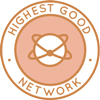 One Community is solutioneering a world that works for everyone through open source Highest Good Network® software that is a web-based application for collaboration, time tracking, and objective data collection. The purpose of the Highest Good Network is to provide software for internal operations and external cooperation. It is being designed for global use in support of the different countries and communities replicating the One Community sustainable village models and related components.
One Community is solutioneering a world that works for everyone through open source Highest Good Network® software that is a web-based application for collaboration, time tracking, and objective data collection. The purpose of the Highest Good Network is to provide software for internal operations and external cooperation. It is being designed for global use in support of the different countries and communities replicating the One Community sustainable village models and related components.
- Learn about our open source community collaboration and management software: The Highest Good Network
This week, the core team continued their work on the Highest Good Network PRs testing, confirming the fixed PRs and resolving several issues. The fixed issues included updating password permissions for the Owner account (PR 2757), resolving the reset password function (PR#1108), stopping the timer upon entering the WBS management page (PR#2649), correcting the email validation failure and success message display (PR2559), addressing tooltip display issues in the Time and Tasks log component (PR2660), and enabling the “Send Emails” function in “Other Links” for users with added permissions (PR2572). Additional fixes addressed link issues within the Quick Setup Tool (PR 2688), adjusted functions within Badges Select Featured and Edit Personal Max (PR2525), and ensured the “Assign Badge” button remains disabled until an entry is made in the input boxes (PR 2539). Outstanding issues include a lack of notifications for managers, admins, and owners when a team member is deactivated (PR1033, PR 1126) and permissions issues with the Assign/Edit/Delete Blue Squares function (PR#1016). Other activities included logging 14 tangible hours for “CoreTeam TesterAgain” for PR958 and creating a new record for the “Fix validation for the Media Folder in the Add New GST form”. We continue to focus on solutioneering a world that works for everyone through iterative improvements and user-centric solutions. See the Highest Good Society and Highest Good Network pages for more on how this relates to solutioneering a world that works for everyone. The collage below shows some of their work.
ALPHA SOFTWARE DEVELOPMENT TEAM
The Alpha Team’s summary, covering their work on the Highest Good Network software software was managed by Lin Khant Htel (Frontend Software Developer) and includes Anand Seshadri (Software Engineer), Carlos Gomez (Full-Stack Software Developer), and Nanguan Lin (Software Developer). The Highest Good Network software is how we will manage and measure our processes for solutioneering a world that works for everyone across our social architecture, construction, production, and maintenance processes, ultimately solutioneering a world that works for everyone. This week, Lin reviewed and suggested improvements for PR #2812, noting that while the UI design was well-executed, there were areas needing refinement. Lin also reviewed the weekly summaries, photos, and videos submitted by his Alpha team members. Anand worked on writing test cases for functions in the UserProfile.jsx component, focusing initially on simpler functions. He began with the handleClose function, creating a test to verify that it is called when the close button is clicked and ensuring that the modal is no longer visible afterward. Next, Anand worked on the handleInputChange function, establishing test cases to confirm that it updates the state with the correct values for each form field, including simulating changes to the first name input and asserting that the state reflects the new value, ultimately solutioneering a world that works for everyone through careful testing and validation of user interactions. He then addressed the validateEmail function, designing tests to verify it returns true for valid email addresses, such as “[email protected],” and false for invalid formats like “invalid-email.” Lastly, Anand developed test cases for the handleFormSubmit function, ensuring it prevents submission when required fields are missing or invalid and displays the appropriate error message. He also verified that the API function is called when all required fields contain valid data. Carlos continued development on a request from Jae to enhance the team hours visualization report page. Key progress included completing the feature allowing manager users to toggle between viewing all members’ values or a single member’s values. Additionally, the UI was improved by centering the toggle button and values around the pie chart. Nanguan joined the development team and began reviewing the documented bugs, contributing to solutioneering a world that works for everyone by ensuring the software functions seamlessly for all users. He identified several issues he wished to address and communicated with Jae to take over those tasks. Nanguan’s primary focus was on resolving linting problems in the badge component on the front end, as well as addressing similar issues in the report component. He concluded the week by uploading pictures and videos along with a summary of his work. See the Highest Good Society and Highest Good Network pages for more on how this relates to solutioneering a world that works for everyone. View some of the team’s work in the collage below.
BINARY BRIGADE SOFTWARE DEVELOPMENT TEAM
The Binary Brigade Team’s summary overseeing advancements in the Highest Good Network software was managed by Anirudh Sampath Kumar (Software Developer) and includes Aaryaneil Nimbalkar (Software Developer), Anirudh Sampath Kumar (Software Developer), Ashay Kalpesh Mehta (Software Engineer), Ashish Nagaraju (Software Engineer), Ashmita Pandey (Software Engineer), Deepthi Kannan (Software Engineer), Huijie Liu (Software Engineer), Sai Venkatesh Voruganti (Volunteer Software Engineer), Sriram Seelamneni (Software Engineer), Xiaolu Li (Software Engineer) and Ziyu Chu (Volunteer Software Engineer). The Highest Good Network software is how we’ll be managing and objectively measuring our process for solutioneering a world that works for everyone through our social architecture, construction, production, and maintenance processes.
This week, Aaryaneil resolved an expired token issue in the CircleCI build pipeline. He performed testing for PR #1150, including verification of all pages affected by the updates. Dependabot alert changes in PR #1105 were assessed across application pages, and PR #1106 was implemented in a local environment to confirm no impact on key components. Further tests evaluated PR #1106’s impact on backend processes for each page, with all test suites reviewed both with and without the dependency changes to detect any potential failures. In alignment with our goal of solutioneering a world that works for everyone, Aditya worked on the Highest Good Network project, focusing on software development tasks that included updates and modifications to an existing pull request, making adjustments based on new requests, and addressing a new bug along with other previously identified issues. He ensured that a missing “Status” column header was added to the Team Member Tasks tab. Anirudh worked on an HGN Phase 1 bug related to the Start Date issue in the Add Task modal on the WBS page in projects. After testing, he identified that while the start date issue did not occur in the add modal, the edit modal displayed a flawed error message and had a formatting issue with the start date. Both issues were addressed, and a pull request (PR 2812) has been submitted. Additionally, Anirudh reviewed several pull requests to ensure code quality and adherence to standards, including PRs 2810, 2815, 2799, 2786, 2783, and 2788. Ashay focused on two main tasks: fixing the issue with the “Delete Featured Badge” on profiles when the screen width is below 1000px, and enhancing the “Sort Inventory” button to allow sorting based on the last modified dateTogether, they are committed to solutioneering a world that works for everyone, addressing challenges with effective and inclusive solutions. He implemented a feature for sorting by changes in project names, but is currently facing a challenge with the delayed visibility of modified project names. Additionally, he is experimenting with CSS to resolve the delete feature issue, ultimately contributing to solutioneering a world that works for everyone.
Ashish reviewed two pull requests (PR 2796 for frontend and PR 2778+1131 for both frontend and backend). After completing these reviews, he began working on a bug fix from the project documentation. Though another developer initially handled most of the bug’s development, Ashish focused on resolving remaining issues with this task. Ashmita improved code quality within the src/reducers/ directory for the Highest Good Network App by addressing linting errors and enhancing code maintainability. Using ESLint and formatting tools, she worked across various files, including multiple reducers like actionItemsReducer, badgeReducer, themeReducer, and weeklySummariesReducer, among others, to establish consistent code structure and improve overall readability, all while solutioneering a world that works for everyone. Deepthi resolved a side-scrolling issue on the Teams page by targeting elements exceeding viewport width. She applied flexible table-layout settings and enabled horizontal scrolling at breakpoints 767px, 479px, 575px, and 400px, making adjustments to padding and font sizes for better content visibility on small screens, thereby improving user experience across various devices. This commitment to solutioneering a world that works for everyone is evident in her approach to enhancing accessibility. Huijie focused on enhancing the meeting scheduling feature and bell notification functionality. She redesigned the meeting forms to better handle fields such as start time, duration, participants, and location. In addition, she implemented these form improvements by updating the corresponding parts in the reducer functions and adjusting the database schema accordingly.
Sai focused on enhancing the Profile Team Code feature to improve usability on screens smaller than 778px, specifically for Admin and Owner logins under the Teams tab in user profiles. This update addressed visibility issues previously identified, where codes displayed well on larger screens but became obscured at reduced sizes. Sai reviewed past fixes to confirm their effectiveness while making changes to the dropdown suggestions and input field interactions. The input field now applies any entered code directly to the user profile, and these codes are visible both in the profile section and on the Weekly Summaries Reports page, solutioneering a world that works for everyone by ensuring accessibility across various devices. This feature now includes suggestions for commonly or recently used codes, along with a dropdown listing all active codes. Sriram worked on addressing feedback for a branch previously merged into development and initiated a new task focused on the dashboard view for other users. He also resolved merge conflicts for two previously handled pull requests. In the spirit of solutioneering a world that works for everyone, Xiaolu concentrated on enhancing unit test coverage for the HGN project, specifically targeting the BlueSquaresTable/BlueSquareTable.jsx component. After reviewing test documentation and requirements, Xiaolu developed tests for the component, tracked in the Unit Test HGN sheet. The tests aim to verify component reliability across different scenarios, including rendering, event handling, and data display, using Jest and React Testing Library. Ziyu began unit testing tasks by writing test cases for QuickSetupModal/QuickSetupModal.jsx to verify the component’s features and hooks. While she developed five specific test cases, some issues prevented all tests from passing, and Ziyu plans code modifications to achieve complete pass success. See the Highest Good Society and Highest Good Network pages for more on how this relates to solutioneering a world that works for everyone. View some of the team’s work in the collage below.
BLUE STEEL SOFTWARE DEVELOPMENT TEAM
The Blue Steel Team’s summary, presenting their work on the Highest Good Network software was managed by Jingyi Jia (Software Engineer, Team Manager), and includes Cillian Ren (Software Engineer), Ramakrishna Aruva (Software Engineer), and Vishavdeep Kaur (Full Stack Developer). The Highest Good Network software is how we’ll be managing and objectively measuring our process for solutioneering a world that works for everyone through our social architecture, construction, production, and maintenance processes. This week, Ramakrishna re-evaluated the PR feedback on his merge request, implementing the necessary adjustments and resubmitted it for further review. He reviewed the bug and functional documentation, examined each issue in detail, identified a specific bug to work on, and requested an assignment with an estimated timeline for resolution. He also began working on a modal popup issue that wasn’t functioning correctly on hover and a hyperlink that was not opening as expected, focusing on pinpointing the root cause of these issues. Vishavdeep reviewed a total of 10 pull requests, providing comments and approvals in the GitHub repository for PRs including PR-2788, PR-2799, PR-2803, PR-2808, and PR-2802, among others, attaching screenshots for reference with each review. Cillian focused on fixing a white screen issue that appeared when deleting a task in the Highest Good Network project, ensuring the user interface remained stable and responsive after task deletion by adding conditional checks to prevent application crashes due to undefined data access, solutioneering a world that works for everyone. He tested multiple task deletion scenarios to confirm that the interface functioned as expected under various conditions. Jingyi addressed a significant bug in the project management system involving a constantly loading icon during project addition with non-unique names. By refining the Redux actions to manage error states effectively, Jingyi ensured that the loading icon now only displays during active API calls and resolves appropriately upon completion.See the Highest Good Society and the Highest Good Network pages to learn more on how their work contributes to solutioneering a world that works for everyone. See below to view images of their work.
CODE CRAFTERS SOFTWARE DEVELOPMENT TEAM
This week, the Code Crafters Team’s summary, covering their work on the Highest Good Network software, was managed by Akilan Kumaran (Software Engineer) and includes Dhrumil Dhimantkumar Shah (Software Engineer), Pavan Swaroop Lebakula (Software Engineer), Summit Kaushal (Backend Software Developer), Swaroop Udgaonkar (Software Engineer), Muzammil Moahmmed (Software Engineer) and Denish Kalariya (Software Engineer). This week, Swaroop discussed merge conflicts in pull request #2784 with Jae and Hritvik, awaiting Jae’s approval on the proposed changes, and continued working on project layout alignment for smaller screens with new ideas and file modifications. He also reviewed his team’s weekly summaries, images, and videos. Dhrumil addressed a bug with the “Export Featured” button that caused the page to go blank upon saving, consulted with his manager and Jae for clarification due to an inaccurate issue description, resolved the bug, and plans to submit a pull request next week. Pavan tested Jae’s suggestions, made adjustments to the vertical spacing and button alignment in the task edit format, and submitted a pull request for review. He also identified a duplicate function of the bell icon and timelog button and sought guidance from Jae. Together, the team is committed to solutioneering a world that works for everyone through their collaborative efforts and innovative solutions. Muzammil worked on issue 104, addressing a color inconsistency in a pie chart that displayed sections in a single color when navigating from the Dashboard to the Reports page, reviewed past pull requests, and is close to resolving the issue, with a pull request expected soon. Summit drafted a report documenting identified bugs, progressed on the Badge Categories action plan, analyzed necessary modifications for a specific badge, and continued refining action items to address streak badge functionality issues. Denish refined the volunteer hour reporting system by categorizing hours into specified ranges (10-19, 20-29, 30-34, 35-39, and 40+), adjusted the code to ensure accurate data output representation, created an endpoint for team access, and tested it in Postman to confirm accuracy and improve the reporting system’s usability. This work helps One Community’s mission of solutioneering a world that works for everyone. The collage below shows the work for this week.
DEV DYNASTY SOFTWARE DEVELOPMENT TEAM
The Dev Dynasty Team’s summary, covering their work on the Highest Good Network software, was managed by Harsh Bodgal (Software Engineer) and includes Ajay Kumar Reddy (Software Engineer), Crystal Low (Software Engineer), Lucy Xi (Software Engineer), Howie Miao (Software Engineer), Jatin Agrawal (Software Engineer), Manikrishna Sanganabatla (Software Engineer), Mrinalini Raghavendran (Software Engineer), Nandini Yelmela (Software Engineer), Sailavanya Narthu (Software Engineer), Shreya Vithala (Software Engineer), Nikita Kolla (Full Stack Developer) and Nishita Gudiniye (Software Engineer). The Highest Good Network software is how we’ll manage and objectively measure our process for solutioneering a world that works for everyone through our social architecture, construction, production, and maintenance processes. This week, Harsh worked on testing the TotalOrgSummary API, enhancing the chart design using Strallia, and refactoring the existing chart structure. The project is currently 90% complete, with only final adjustments and fixes remaining to ensure optimal functionality and presentation of the data visualizations. Ajay added tab preview names for the application, using useLocation and document.title to dynamically update tab titles based on the route, modifying various components, and updating test files with MemoryRouter to support useLocation changes. Nishita concentrated on completing the “Help finish Lint fixing” task, troubleshooting an Airbnb configuration issue with ESLint, collaborating with team members to reinstall configurations, and began working on “TotalOrgSummary” backend tasks to compare Team Stats. Nikita addressed Git errors to complete creating React components for different input methods, then focused on solving an issue with incomplete members list display when the ALL-TIME button is selected. Together, they embody ‘Solutioneering a World that Works for Everyone’ through their collective efforts and innovative contributions. Mrinalini updated the Application Page document with new mockups, addressed a timer reset issue, debugged a Timelog issue, and incorporated feedback on frontend PR #2807, adding analytics options and finalizing wireframes and action items for frontend and backend teams. Crystal worked on displaying weekly reports for deactivated users, debugging report generation and backend code structure for filtering deactivated users. Fangle (Lucy) joined the team, reviewed project requirements, joined discussions, focused on unit testing in Redux, and explored content areas needing unit tests. Howie applied hotfixes, made adjustments to prior solutions, reduced view height for a scrollbar fix, added a double confirmation step for task submission links, and reviewed the system date bug. Jatin worked on improving Total Team Report loading time, handled PR reviews, and backend development for custom forms and permissions, and addressed an issue with profile images. Nandini resolved merge conflicts in CSS and JSX components, reviewing layout and styling in light and dark modes, while Sreehari handled a merge conflict in EffortBar.jsx, troubleshooting “Limit See-All” functionality, and enhancing “Pie Charts” title color adaptation across modes. Together, we are Solutioneering a World that Works for Everyone. Shreya addressed volunteer commitment tracking by correcting additional hours handling in the Highest Good Network application, updating userHelper.js to ensure penalty hours are carried over after five missed entries. And Manikrishna resolved merge conflicts in a PR, encountered Git errors, and created a new PR to continue addressing these issues. Together, they are solutioneering a world that works for everyone, combining their expertise to build impactful solutions. See the Highest Good Society and Highest Good Network pages for more on how this relates to solutioneering a world that works for everyone. View some of the team’s work in the collage below.
EXPRESSERS SOFTWARE DEVELOPMENT TEAM
The Expressers Team’s summary, covering their work on the Highest Good Network software, was managed by Christy Guo (Software Engineer) and includes Faye Lyu (Software Engineer), Mohammad Abbas (Software Engineer), Rahul Trivedi (Software Developer), and Strallia Chao (Software Engineer). The Highest Good Network software is how we’ll manage and objectively measure our process for solutioneering a world that works for everyone through our social architecture, construction, production, and maintenance processes. This week, Christy completed various tasks centered on unit testing and data visualization, including work on a project task chart visualization using D3.js with sorting and filtering capabilities. Faye focused on gathering and validating volunteer metrics, aligning frontend and database keyword mapping, and preparing for her upcoming leave. Rahul reviewed ten pull requests, resolving issues like infinite loading and calendar cropping. Strallia worked on the backend of the Total Org Summary page, identifying missing fields, resolving server errors, and designing a new chart component in Figma. See the Highest Good Society and Highest Good Network pages for more on how this relates to solutioneering a world that works for everyone. See the collage below to view the team’s work this week.
LUCKY STAR SOFTWARE DEVELOPMENT TEAM
The Lucky Star Team’s summary, covering their work on the Highest Good Network software was managed by Anne Zhang (Software Engineer) includes contributions from Chetan Sunku (Software Engineer), Shefali Mittal (Volunteer Software Engineer), Yashwanth Pokala (Software Engineer) and Ziyan Wang (Software Engineer). This week, Chetan continued working on the task related to time updates on the dashboard. He also resumed investigating the issue where logged time is not reflected without a page reload and is still working on identifying a solution. In his approach, he is committed to solutioneering a world that works for everyone. Shefali developed unit tests for the ‘UserProfileEdit/UserProfileEdit.jsx’ component, starting with a review of the existing code. She encountered several errors during testing, researched potential causes, explored solutions, and debugged the issues, with most tests now running properly. Additionally, Shefali worked on PR 2817 and PR 2820. Yashwanth focused on completing a feature and addressing several bugs. As part of his tasks, he explored methods to optimize loading speeds, though the ideal solution is still in progress. Ziyan continued working on the “146 Optimize the app for Safari” task by reviewing console logs, elements, and compatibility issues. Ziyan completed checks for Dashboard, Profile, Task, and Password update sections in Safari. Anne continued fixing UI issues and merging planned functions that overlapped with another teammate’s work. She also investigated ways to improve member column filters and managed responsibilities within the Lucky Star team, including reviewing photos, videos, and summaries submitted by teammates. See the Highest Good Society and Highest Good Network pages for more on how this relates to solutioneering a world that works for everyone. See the collage below to view the team’s work this week.
MOONFALL SOFTWARE DEVELOPMENT TEAM
The Moonfall Team’s summary, covering their work on the Highest Good Network software was managed by Satya Shanthi Tadiparthi (Team Manager), and includes Calvin Liu (PR Team), Newell Yin (Software Engineer), Nikhil Giri (Software Engineer), Saurabh Shetty (Software Engineer), Swathi Dharma Sankaran (Software Engineer), Vedant Gandhi (Software Engineer), and Yili Sun (Software Engineer). This week, Calvin has worked on Bug 14 and troubleshooted an issue with the “Quantity” field in the Material List modal showing “undefined.” He reviewed several files, including `MaterialListView.jsx`, and ran multiple tests on both frontend and backend data transmission to identify the root cause, though the bug remains unresolved. Newell has reimplemented dashboard list features with a virtual list and updated tasks. Also he modified backend Mongoose data aggregation, as well as frontend search and filter displays. Nikhil has tested multiple pull requests (PRs) for functionality, UI compatibility, and responsiveness across both dark and light modes. He has covered areas like date input validation, auto-save, and responsive design adjustments, all while solutioneering a world that works for everyone. Saurabh has worked on resolving hour count update discrepancies across sections, with debugging focused on the task progress section for real-time alignment. Satya has reviewed PRs related to calendar cropping, WeeklySummariesReport, VolunteeringTimeTab, and TimelogNavbar and validated dark mode functionality. Additionally, he managed end-of-week team summaries. Swathi has implemented a new filter button on the WBS page for paused tasks and added a dynamic project name display for Members and WBS pages using a useEffect hook. Vedant has completed a multi-select option and table design bug fix. He started working on a project delete modal bug in dark mode. Yili has implemented permissions for user password resets excluding Owner or Admin roles. She confirmed related bugs on the development branch and finalized a solution. See the Highest Good Society and Highest Good Network pages for more on how this relates to solutioneering a world that works for everyone. Below is a collage for the team’s work:
REACTONAUTS SOFTWARE DEVELOPMENT TEAM
The Reactonauts Team’s summary, covering their work on the Highest Good Network software, was managed by Vijeth Venkatesha (Software Engineer). It included Aishwarya Ramesh (Software Engineer), Dhairya Mehta (Software Engineer), Gmon Kuzhiyanikkal (Software Engineer), Haoyue Wen (Software Engineer), Jinxiong You (Software Developer), Khushi Jain (Software Engineer), Mohan Gadde (Software Engineer), Nikhil Pittala (Software Engineer), Pallavi Thorat (Software Engineer), Peterson Rodrigues dos Santos (Full-Stack MERN Stack Developer), Rishitha Mamidala (Software Engineer) and Saniya Farheen (Software Engineer). The Highest Good Network software is solutioneering a world that works for everyone across social architecture, construction, production, and maintenance processes.
This week, Aishwarya focused on completing the “show trophy icon for anniversaries” functionality for the project. This involved implementing both frontend and backend logic to ensure smooth integration with the existing system. She primarily worked on resolving issues with the trophy icon display on the weekly report summaries page and the dashboard, solutioneering a world that works for everyone by enhancing user engagement and recognition within the platform. Dhairya focused on the “Fix Projects Find User Function” task, demonstrating strong problem-solving skills. Through careful analysis, he identified the root cause of the issue affecting user discovery within the projects section. Building on this understanding, he proactively developed a comprehensive sort and search function aimed at optimizing user assignment processes, improving operational efficiency, and enhancing the overall user experience.
Gmon worked on adding active/inactive team member counts to the team page and created a new pull request branch titled “Gmon-Active-NonActive-team.” He also completed his bio for the main page. While running the code locally, encountered issues causing the code base to crash, so he reached out to the group for assistance. Relevant screenshots and a video highlighting the specific issues were organized and uploaded to Dropbox for easy reference. Additionally, he spent time understanding the project’s architecture and existing features to prepare for upcoming tasks and contributions, solutioneering a world that works for everyone.
Haoyue focused on resolving complex merge conflicts, streamlining the development workflow. She refined several pull requests based on detailed reviewer feedback and participated in meetings to clarify necessary adjustments. Additionally, Haoyue began work on the FAQ feature, conducting research and planning its structure to enhance user support within the application. Jinxiong focused on identifying and fixing bugs in the HGN Apps, aiming to improve both functionality and performance. He completed last week’s bug fixes, published the relevant branch, and submitted a Pull Request. Khushi continued developing the mockup design for the “New Position Setup Page,” focusing on refining key sections and interactive elements. She added sections for the Header, Fixed Fields, General Questionnaire, Customizable Fields, Ads Link, and Review & Save. Additionally, Khushi introduced buttons for preview, save, and cancel options, updated the add and edit buttons for customizable fields, and rearranged the Ads Link buttons for clarity. Together, the team is solutioneering a world that works for everyone.
Mohan’s worked on a display issue in the team code functionality, specifically targeting how the code appears across various screen sizes to ensure consistent visibility and proper alignment regardless of device or window dimensions. Additionally, attention was given to a UI problem affecting the team name display in dark mode, where the text was not visible due to color contrast issues. Both tasks involved adjustments to the code and interface design aimed at enhancing usability and maintaining visual clarity across different viewing modes and environments, ultimately solutioneering a world that works for everyone.
Nikhil completed 12 PR reviews across front-end and back-end tasks, ensuring alignment with project requirements. His work involved evaluating code changes, identifying potential issues, and verifying functionality through unit testing. The reviews focused on maintaining code quality, consistency, and adherence to best practices across various project components. Through these efforts, he contributed to seamless update integration and helped resolve issues encountered during development. The tasks spanned multiple areas, requiring attention to both functionality and design elements. By addressing each review, he was dedicated to solutioneering a world that works for everyone, ensuring that the software met the highest standards for all users.
Pallavi began working on development tasks, selecting a bug from the Highest Good Network (HGN) bug document to address. She focused on PR #2197, aiming to improve the search functionality on the User Management page by allowing spaces to act as exact match indicators. Previously, when a user entered a search term like “test ” with a trailing space, the search would return results containing “test” in any part of the name, rather than limiting it to an exact match. To resolve this, Pallavi revised the code, replacing the previous filtering logic with a refined approach that trims and standardizes the search input. This solution now compares search terms directly with user first and last names to ensure exact matches when a space is included. Filters on user role, email, weekly committed hours, and conditions for active and paused status remain unchanged. In her work, Pallavi embodies the principle of solutioneering a world that works for everyone by creating user-friendly features. She also reviewed backend concepts, focusing on Node.js, to support her development work.
Peterson fixed a bug on the “Dashboard” page that occurred when an admin or owner viewed the account of a volunteer without tasks. The fix adjusted the “Team Member Tasks” table so that, in such cases, it now starts on the “Current Week Timelog” tab instead of opening directly on the “Tasks” tab, improving navigation and user experience. Rishitha focused on lint fixing within the user management folder, addressing code style issues to improve consistency and maintainability. She refactored test files to enhance the structure and readability of the codebase, removing unused imports, updating outdated syntax, and clarifying functions without altering functionality. Additionally, she worked on the backend for the material purchase approval process, completing routing and controllers and testing the functionality using Postman, all while solutioneering a world that works for everyone. Saniya addressed the assigned bug and ensured that the functionality was stable before submitting it for review. During testing, she encountered an intermittent issue where the dashboard did not consistently provide access to team member details. And Vijeth focused on team management and bug hunting across Phases 1 and 2, identifying a new bug and providing a video for reference. See the Highest Good Society and Highest Good Network pages for more on how this relates to solutioneering a world that works for everyone. See the Highest Good Society and Highest Good Network pages for more on how this relates to solutioneering a world that works for everyone. The collage below shows a compilation of the work from this team.
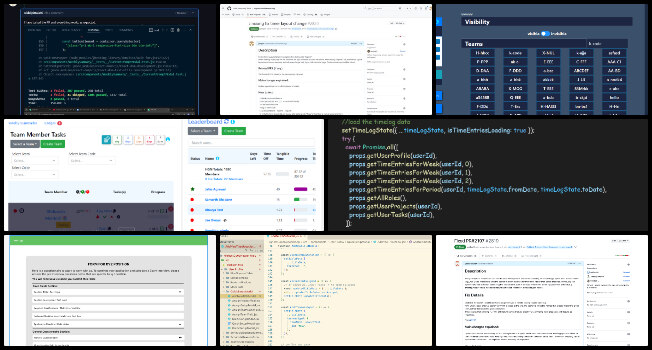
SKYE SOFTWARE DEVELOPMENT TEAM
The Skye Team’s summary covering their work on the Highest Good Network software was managed by Deepthi Arcot Subramanyam (Data Analyst) and Luis Arevalo (Software Engineer) and the team includes Abi Liu (Software Developer), Sai Preetham Dongari (Full Stack Developer), Snehal Dilip Patare (Software Engineer) and Yao Wang (Software Engineer). The Highest Good Network software supports the solutioneering a world that works for everyone, social architecture, construction, production, and maintenance processes. This week, Luis focused on creating new warnings, and addressing issues in connecting the frontend to the backend. Initially, he stored the data locally and sent it via a post request, but after brainstorming and consulting ChatGPT, he determined it was more effective to retrieve users’ warnings through a get request, all while solutioneering a world that works for everyone. He then implemented this approach, adding backend logic to filter the warnings and flag specific ones as needed, ultimately solutioneering a world that works for everyone. Abi worked on updating a query, developing a rough draft of the new version, and planning to begin testing and refining it next week. They continued to refactor the query and set up the parameters required for the route, ensuring alignment with project needs. Additionally, they researched MongoDB aggregation techniques to refine the query process and enhance data retrieval accuracy.Yao worked on replacing the auto post page with a primary focus on backend code. During development, an issue emerged where post requests were not functioning as expected, leading to extensive debugging. Jae provided an updated layout for the page, requiring Yao to adapt by creating a sample page using HTML to translate the design from Figma to code. This work involved aligning the new layout with backend processes and ensuring consistency with overall system functionality, all while solutioneering a world that works for everyone. The debugging process revealed discrepancies in data handling, which were systematically addressed to progress toward stable integration. Snehal concentrated on fixing a bug related to deleting project members from the member list. She made adjustments to the Member.jsx and Members.jsx files, with Members.jsx defining the layout of the member table. Previously, the table lacked a designated name for its content, which she resolved by adding a table content label in the Members.jsx file. Additionally, she implemented a delete member button in Member.jsx next to each member in the table. Sai focused on restoring missing search functionality on the Team Member Page within the Reports section by implementing the necessary logic to ensure proper search bar operation. He also addressed test case errors and raised a pull request to improve the search functionality in the application. See the Highest Good Society and Highest Good Network pages for more on how this relates to solutioneering a world that works for everyone. See below for some of the team’s work.
SOFTWARE PR REVIEW TEAM A-K
The PR Review Team’s summaries for team members’ names starting with A-K and covering their work on the Highest Good Network software was managed by Anoushka Hazari (Data Analyst). The Highest Good Network software is a foundation of what we’ll be using to measure our results for solutioneering a world that works for everyone. This week’s active members of this team were: Abdelmounaim Lallouache (Software Developer), Anoushka (Software Engineer), Bhavya Prakash (Software Engineer), Carl Bebli (Software Engineer), Geeta Matkar (Software Engineer), Koushica Bosadi Ulaganathan (Software Engineer) and Kurtis Ivey (Full Stack Developer). They reviewed all the Highest Good Network PRs (Pull Requests) shared in this week’s update. Learn more about how the Highest Good Network will measure and assist in solutioneering a world that works for everyone in the Highest Good Network open source hub. The collage below shows a compilation of the work from this team.
SOFTWARE PR REVIEW TEAM L-Sg
The PR Review Team’s summary for team members’ names starting with L-Sg and covering their work on the Highest Good Network software was managed by Saumit Chinchkhandi (Administrative Assistant and Software Engineer). The Highest Good Network software is a foundation of what we’ll be using to measure our results of solutioneering a world that works for everyone. This week’s active members of this team were: Muhideen Mustapha (Software Engineer), Nahiyan Ahmed (Full Stack Software Developer), Nathan Hoffman (Software Engineer), Nikhitha Kalinga (Software Engineer), Rachana Rizhkant Zha (Software Engineer), Riu Liu (Software Engineer), Rupa Bhatia (Software Engineer), and Samarth Bhadane (Software Engineer). They reviewed all the Highest Good Network PRs (Pull Requests) shared in this week’s update. Learn more about how the Highest Good Network measures and assists in solutioneering a world that works for everyone in the Highest Good Network open source hub. The collage below shows a compilation of the work from this team.
SOFTWARE PR REVIEW TEAM Sh-Z
The PR Review Team’s summary for team members’ names starting with Sh-Z and covering their work on the Highest Good Network software was managed by Olawunmi “Ola” Ijisesan (Administrative and Management Support) and Samarth Urs (Administrative Assistant and Data Analyst). The Highest Good Network software is a foundation of what we’ll be using to measure our results of solutioneering a world that works for everyone. This week’s active members of this team were: Sharadha Shivakumar (Software Engineer), Shashank Halanur Veeresh Kumar (Software Engineer), Sheetal Mangate (Software Engineer), Shengwei “Peter” Peng (Software Engineer), Shivansh Nathani (Software Engineer), Shreya Laheri (Software Developer), Vaibhavi Madhav Deshpande (Software Engineer), Neeharika Koniki (Software Engineer, Developer), Yiyun Tan (Software Engineer), and Zhimin Liang (Full Stack Developer). They reviewed all the Highest Good Network PRs (Pull Requests) shared in this week’s update. Learn more about how the Highest Good Network will measure and assist in solutioneering a world that works for everyone in the Highest Good Network open source hub. c
AND WE PRODUCED THIS WEEKLY UPDATES BLOG – CLICK HERE TO SUBSCRIBE
FOLLOW ONE COMMUNITY’S PROGRESS (click icons for our pages)
INVESTOR PAGES
GET INVOLVED
One Community Welcomes Faeq Abu Alia to the Architecture Team!
Posted on October 26, 2024 by One Community Hs
One Community welcomes Faeq Abu Alia to the Architecture Team as our newest Volunteer/Consultant!
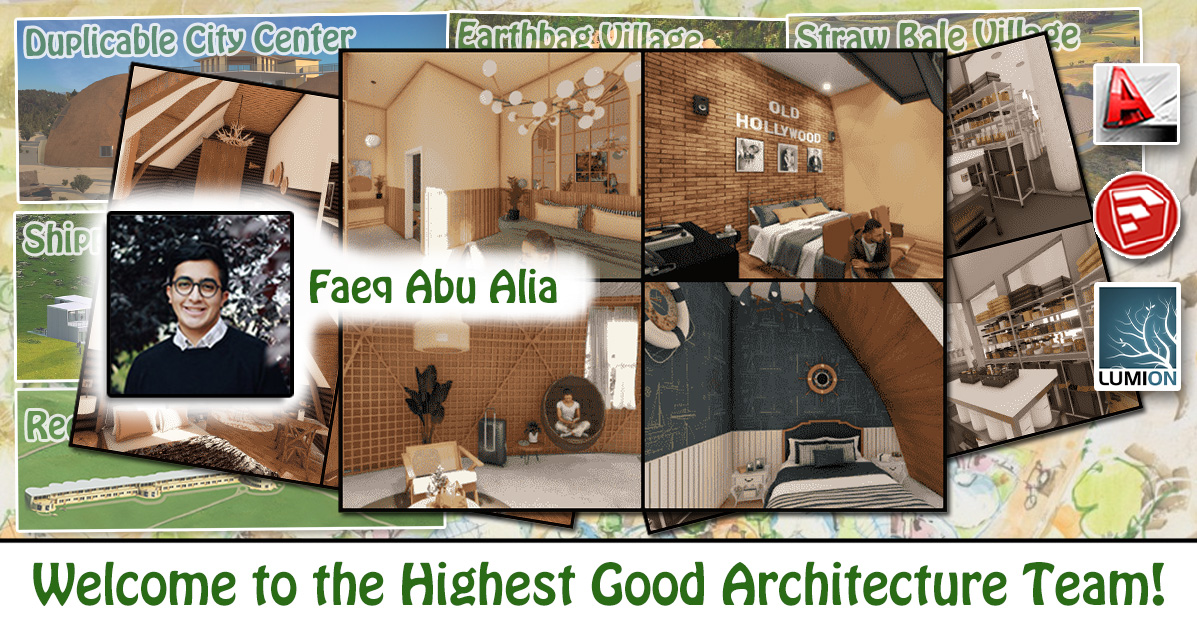
Faeq holds a bachelor’s degree in architectural engineering from Birzeit University-Palestine. He has a deep interest in sustainable architecture and contemporary design. Faeq is passionate about creating functional and environmentally responsible spaces. The dedication to environmentally conscious building design that Faeq exhibits in his work is evident in his emphasis on energy efficiency and sustainability. He has worked on various volunteer and freelance projects, as well as collaborations with global organizations. As a member of the One Community team, Faeq is contributing to the modeling and design of the Duplicable City Center, creating visual presentations and walkthrough videos that have enhanced the user experience.
WELCOME TO THE TEAM FAEQ!
FOLLOW ONE COMMUNITY’S PROGRESS (click icons for our pages)
INVESTOR PAGES
GET INVOLVED
One Community Welcomes Vigneshwar Muriki to the Software Development Team!
Posted on October 26, 2024 by One Community Hs
One Community welcomes Vigneshwar Muriki to the Software Team as our newest Volunteer/Consultant!
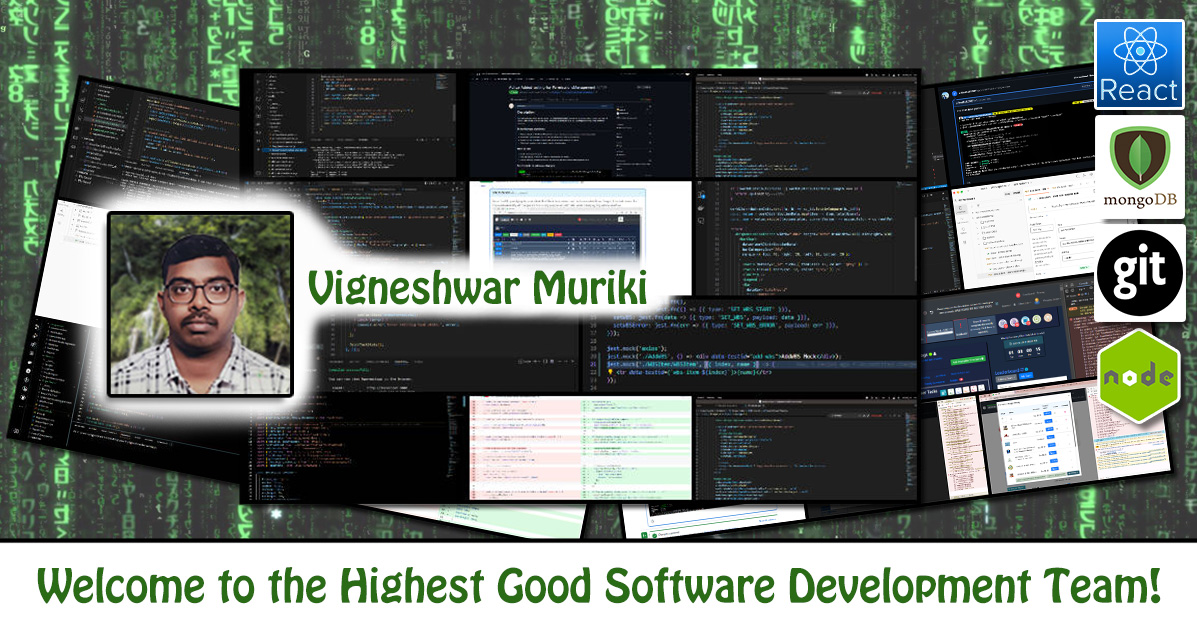
Vigneshwar has over a year of software engineering experience, including his time at One Community. He has demonstrated success working on complex software projects, improving user engagement and efficiency through innovative solutions. Vigneshwar believes in optimizing code and resources to contribute to both software reliability and sustainability. He has worked on enhancing user interfaces and database management while employing technologies like Google Maps API, React, and Node.js. As a member of the One Community team working on the Highest Good Network software, Vigneshwar has contributed to improving volunteer data accessibility and overall user satisfaction.
WELCOME TO THE TEAM VIGNESHWAR!
FOLLOW ONE COMMUNITY’S PROGRESS (click icons for our pages)
INVESTOR PAGES
GET INVOLVED
One Community Welcomes Mrudula Chavali to the Administration Team!
Posted on October 24, 2024 by One Community Hs
One Community welcomes Mrudula Chavali to the Administration Team as our newest Volunteer/Consultant!
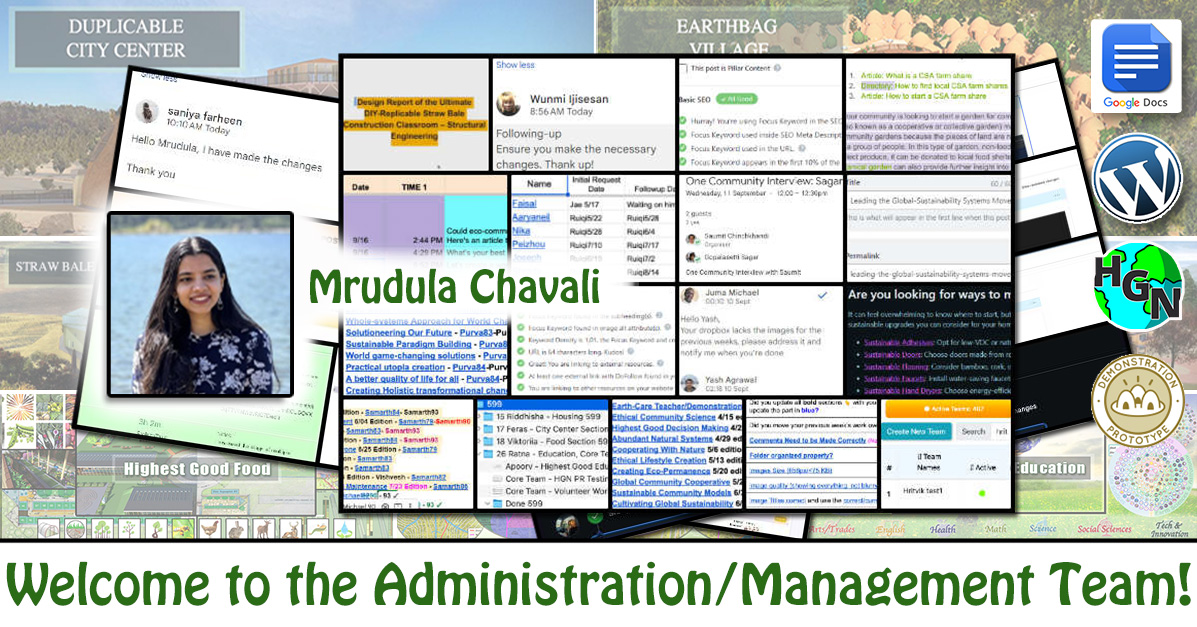
Mrudula brings over 2 years of technical experience and 1 year of management expertise to diverse projects. Driven by a commitment to sustainability, She focuses on bringing together technology, administration and humanity, maximizing resource efficiency and time management; she focuses on contributing to projects that positively impact both the environment and the economy and excels in fast-paced and time-constraint environments, delivering efficient solutions to complex challenges. In her role as a member of One Community, Mrudula manages the Highest Good Network software team and software PR/frontend testing. She conducts interviews as a part of the hiring team and thoroughly reviews and refines technical open-source documentation of various sustainable projects to ensure precision, clarity, and quality.
WELCOME TO THE TEAM MRUDULA!
FOLLOW ONE COMMUNITY’S PROGRESS (click icons for our pages)
INVESTOR PAGES
GET INVOLVED
One Community Welcomes Junyuan Liu to the Design Team!
Posted on October 24, 2024 by One Community Hs
One Community welcomes Junyuan Liu to the Design Team as our newest Volunteer/Consultant!
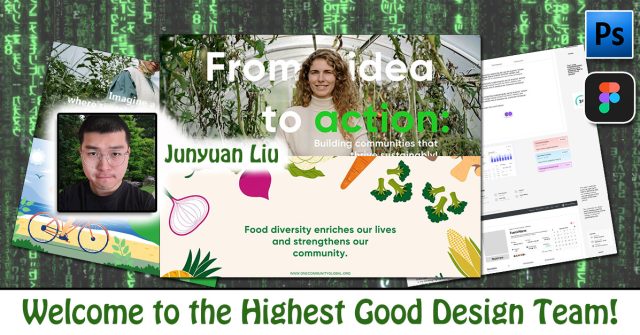
Junyuan is a versatile designer with a passion for combining design with public service. He enjoys tackling challenges across diverse fields and has collaborated on projects in manufacturing, healthcare, and sustainability. His deep understanding of user needs enables him to strategically analyze and tailor content to suit various audiences. With experience working across multiple industries and cultures, Junyuan excels in diverse environments and offers unique perspectives. As a member of the One Community team, he has played a key role in developing a wide range of visual content for social media promotion. Additionally, he has contributed as a UI/UX designer, crafting the interface and interaction design for Phase 3 of One Community’s Highest Good Network application.
WELCOME TO THE TEAM JUNYUAN!
FOLLOW ONE COMMUNITY’S PROGRESS (click icons for our pages)
INVESTOR PAGES
GET INVOLVED
One Community Welcomes Aditya Sure to the Software Development Team!
Posted on October 24, 2024 by One Community Hs
One Community welcomes Aditya Sure to the Software Team as our newest Volunteer/Consultant!
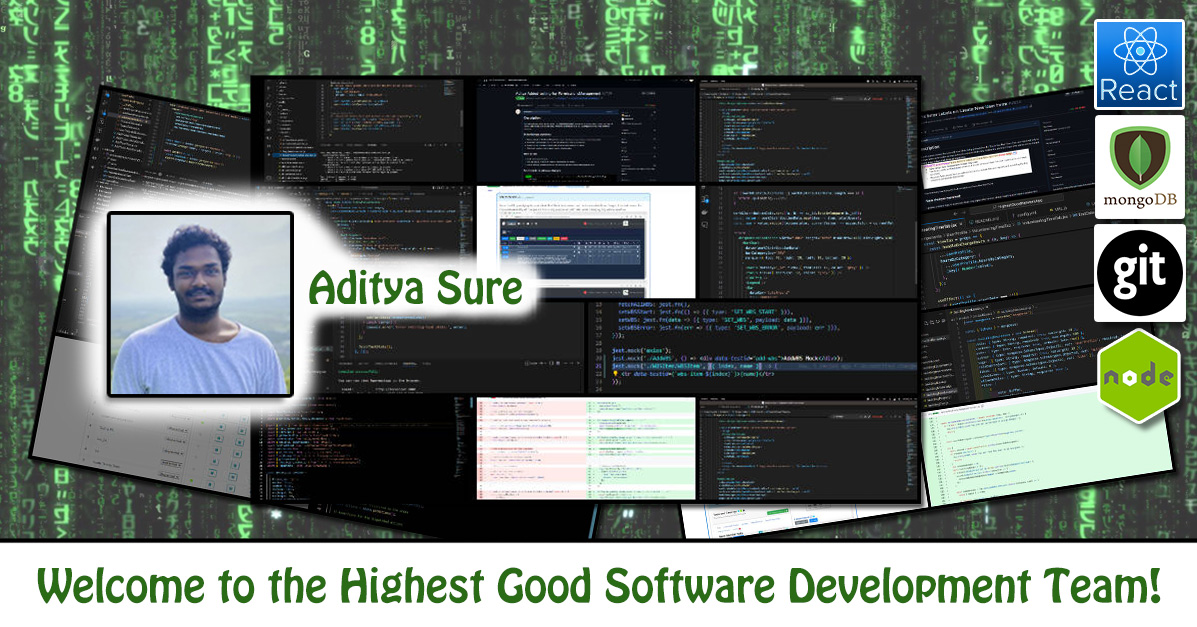
Aditya has a strong background in software development, specializing in full-stack development and cloud computing. He has worked with modern technologies, including React, Node.js, and AWS to build scalable applications and seamless user experiences. As a member of the One Community team, Aditya has contributed to improving key features of the Highest Good Network project, resolving critical bugs, and enhancing the functionality of the notification systems for task deadlines.
WELCOME TO THE TEAM ADITYA!
FOLLOW ONE COMMUNITY’S PROGRESS (click icons for our pages)
INVESTOR PAGES
GET INVOLVED
One Community Welcomes Jordy Corporan to the Software Development Team!
Posted on October 23, 2024 by One Community Hs
One Community welcomes Jordy Corporan to the Software Development Team as our newest Volunteer/Consultant!
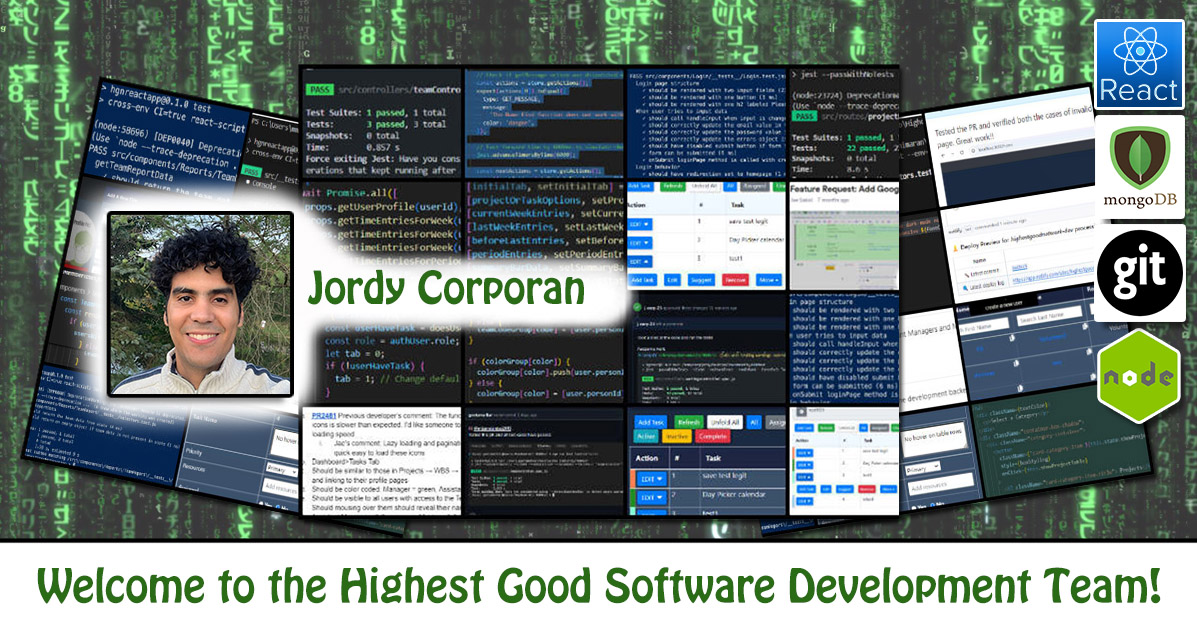
Jordy is a proficient full stack developer with experience in the QA space and Finance. He has extensive experience with technologies such as Javascript, React.js, Node.js, Express.js, and tailwind css. As a software engineer for One Community working on the open source Highest Good Network Software, Jordy has been instrumental in enhancing the robustness of the backend application by creating comprehensive unit tests, and writing over 30 test cases covering every aspect of the business logic. He has also served as a mentor to other developers on the team, conducting peer programming sessions and helping them resolve complex issues and grow their skills. Currently, Jordy is working on more unit tests.
WELCOME TO THE TEAM JORDY!
FOLLOW ONE COMMUNITY’S PROGRESS (click icons for our pages)
INVESTOR PAGES
GET INVOLVED
Highest Good Eco-cooperative Solutions – One Community Weekly Progress Update #605
Posted on October 21, 2024 by One Community Hs
At One Community, we are developing highest good eco-cooperative solutions to regenerate our planet and create a world that works for everyone. Our all-volunteer team is focused on sustainable approaches to food, energy, housing, education, economics, and social architecture. By open sourcing and free sharing the complete process, we aim to build a self-replicating model that inspires a global collaboration of teacher/demonstration hubs, all for “The Highest Good of All.” Together, we are evolving sustainability and fostering global stewardship practices that promote fulfilled living and lasting positive change.
- Here’s our project overview
- Here’s our world-change methodology
- Here’s how this becomes self-replicating
- Here’s how we are open source and free-sharing all the do-it-yourself designs
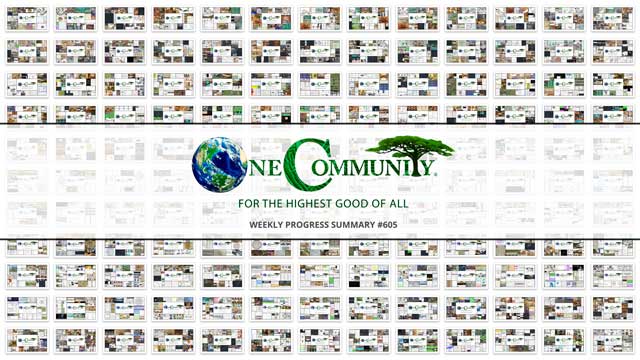
OUR MAIN OPEN SOURCE HUBS
Click on each icon to be taken to the corresponding Highest Good hub page.
One Community’s physical location will forward this movement as the first of many self-replicating teacher/demonstration communities, villages, and cities to be built around the world. This is the October 21st, 2024 edition (#605) of our weekly progress update detailing our team’s development and accomplishments:
Highest Good Eco-cooperative Solutions
One Community Progress Update #605
DONATE | COLLABORATE | HELP WITH LARGE-SCALE FUNDING
CLICK HERE IF YOU’D LIKE TO RECEIVE AN EMAIL EACH WEEK WHEN WE RELEASE A NEW UPDATE
YOU CAN ALSO JOIN US THROUGH SOCIAL MEDIA
ONE COMMUNITY WEEKLY UPDATE DETAILS
HIGHEST GOOD HOUSING PROGRESS
 One Community is developing highest good eco-cooperative solutions through Highest Good housing that is artistic and beautiful, more affordable, more space efficient, lasts longer, DIY buildable, and constructed with healthy and sustainable materials:
One Community is developing highest good eco-cooperative solutions through Highest Good housing that is artistic and beautiful, more affordable, more space efficient, lasts longer, DIY buildable, and constructed with healthy and sustainable materials:
- Learn about highest good eco-cooperative solutions: Our Upcoming Crowdfunding Campaign
- Learn about the different village models: 7 Sustainable Village Models
- Visit the open source portals for the first two: Earthbag Village OS Hub | Straw Bale Village OS Hub
This week, Adefola (Fola) Madehin (Electrical Design Specialist) continued his work with Earthbag Village electrical designs. Fola completed the lighting, socket, and panel layout for the Earthbag Village 4 dome project. Receptacles were placed in the bedrooms and living room, with the distribution panel installed in the living room and additional receptacles positioned in the dome rooms. All designs adhered to the American standard for single-phase voltage at 120 volts. The Earthbag Village is the first of 7 to be built as the housing component of One Community’s open source model for developing highest good eco-cooperative solutions. See some of his work in the collage below.
Adil Zulfiquar (Engineer) continued working on the Vermiculture Toilet designs. He focused on finalizing the report on the vermiculture container transport solution. Feedback from the initial report was reviewed, and additional sketches and images were incorporated to better explain the overall requirements and proposed solutions for transportation. Extra context was added to each segment of the report, along with references. The final Excel tables were created to support the content, and backups were prepared to ensure all data was securely stored. The Earthbag Village is the first of 7 to be built as the housing component of One Community’s open source model for developing highest good eco-cooperative solutions. See below for some of the pictures related to this work.
Akshit Sethi (Architectural Designer) continued working on finalizing the interior of the Earthbag Village 4-dome home design. Akshit worked on the EarthBag Village project, focusing on finalizing all plans. This included updating the internal and external clusters, refining room layouts, and revising the master plan to ensure accuracy and cohesion across the project. These updates contribute to a more comprehensive and coordinated design for the village. The Earthbag village is the first of 7 villages to be built as part of One Community’s open source model for developing highest good eco-cooperative solutions. See his work in the collage below.
Anil Karathra (Mechanical Engineer) continued working on the Vermiculture Toilet designs. He focused on team management and documentation tasks, including refining engineering documents based on feedback and making updates. Visuals and animations were created to support the vermiculture toilet project. The CAD model of the slider was edited, a new finite element analysis (FEA) was performed, and the results were incorporated into the document. Research was also conducted on the environmental impacts of materials used for the vermiculture toilets, with findings documented. In addition, Anil focused on compiling weekly summaries, generating pictures, and preparing a bio for website publication. The approach for developing highest good eco-cooperative solutions enables the development of innovative solutions that are both environmentally friendly and effective. See below for some of the pictures related to this work.
Joseph Osayande (Mechanical Engineer) continued helping finish the Vermiculture Toilet engineering and design details. Joseph researched methods for controlling odors in vermiculture systems, exploring both biological and mechanical options. A short report summarizing these odor control methods was prepared. Additionally, research on pest management strategies for vermiculture systems was initiated, with ideas being formulated on how these strategies could be integrated into the current vermiculture build. The Earthbag Village is the first of 7 to be built as the housing component of One Community’s open source model for developing highest good eco-cooperative solutions. See some of his work in the collage below.
Karthik Pillai (Mechanical Engineer) continued helping finish the Vermiculture Toilet engineering and design details. Karthik focused on refining the Unistrut assembly by integrating the drawer and side panels and making structural modifications based on feedback from the weekly meeting. He redesigned the waste dumping assembly, incorporating a sign post and a newalpopin and rocker mechanism to enhance structural stability, followed by performing finite element analysis (FEA) to ensure the system’s performance under load. Additionally, in the four-dome cluster project, Karthik worked on analyzing the roof joist using software tools and aimed to assist his teammates with the FEA of the roof joist. The Earthbag Village is the first of 7 to be built as the housing component of One Community’s open source model for developing highest good eco-cooperative solutions. See some of his work in the collage below.
Michaela Silva (Architect) continued working on finalizing the interior of the Earthbag Village 4-dome home design. Michaela linked the MEP Revit model to the main 4-dome model, enabling a 3D comparison of layouts to identify any potential conflicts. The team decided to use Pex pipes due to their flexibility in accommodating the dome’s curves. Following this decision, she updated the Revit model to reflect the necessary cavity design for the plumbing pipes. The Earthbag village is the first of 7 villages to be built as part of One Community’s open source model for developing highest good eco-cooperative solutions. See her work in the collage below.
Yuxing Xu (VFX Artist) continued working on making videos for the Earthbag Village 4-dome home design. Yuxing worked on finalizing the flyover videos for the scene, making adjustments to the parking area, foliage, flowers, and cameras for three videos. He discussed the video with Jae and made improvements to the camera path based on their conversation. Additionally, he focused on finalizing the character and textures, ensuring the delivery of both videos and images. The Earthbag Village is the first of 7 to be built as the housing component of One Community’s open source model for developing highest good eco-cooperative solutions. See some of his work in the collage below.
Yuze Tang (Architect) continued working on Vermiculture Toilet designs. He spent time researching alternative materials for a drawer project, examining the prices and properties of various materials, including aluminum, stainless steel, carbon steel, galvanized steel, Baltic birch plywood, and fluorescent acrylic. Due to the varying strengths of these materials, he adjusted the thickness specifications and revisited the material pricing accordingly. The approach of developing highest good eco-cooperative solutions enables the development of innovative solutions that are both environmentally friendly and effective. See below for some of the pictures related to this work.
DUPLICABLE CITY CENTER PROGRESS
 One Community is developing highest good eco-cooperative solutions through a Duplicable and Sustainable City Center that is LEED Platinum certified/Sustainable, can feed 200 people at a time, provide laundry for over 300 people, is beautiful, spacious, and saves resources, money, and space:
One Community is developing highest good eco-cooperative solutions through a Duplicable and Sustainable City Center that is LEED Platinum certified/Sustainable, can feed 200 people at a time, provide laundry for over 300 people, is beautiful, spacious, and saves resources, money, and space:
- Learn about this building and it’s function in highest good eco-cooperative solutions: Duplicable City Center Open Source Hub
Arnob Mutsuddi (Mechanical Engineer) continued working on Duplicable City Center structural engineering model and details. He calculated the measurements to update the report for the Traditional vs. Stress test, and the wind load analysis report for the same test was revised with the latest results. A bio was provided for inclusion on the collaborators page, and editing began on the U hub connector. Work continued on modifying the hub connector for row 2 of the geodesic dome. A team meeting was held to discuss work progress, and insights were shared on simulation result data provided by teammates. The Duplicable City Center is a foundational part of One Community’s open-source model, which excels in becoming the developing highest good eco-cooperative solutions. This approach is integral to their mission of developing highest good eco-cooperative solutions through innovative and scalable solutions. See some of this work in the pictures below.
Chris Blair (GIS Technician/Horticulturist) continued working with GIS data as part of One Community’s Permaculture Design that includes the location of the Duplicable City Center. He continued learning how to use QGIS, an open-source GIS software, with the goal of recreating his previous work from proprietary software to improve future access to the data. He created maps displaying watershed basins, water flow, slope, solar aspect, and solar potential of the property. Chris also began re-digitizing the villages and community center based on updated area measurements of their footprints. Within One Community’s open-source framework, the Duplicable City Center plays a central role in developing highest good eco-cooperative solutions. The images below showcase some of this work.
Faeq Abu Alia (Architectural Engineer) continued his work on the Duplicable City Center kitchen shelving and adding dry-storage food items. He worked on preparing the City Center kitchen in SketchUp for the walkthrough video. He also focused on the walkthrough video for Room 12, utilizing SketchUp for modeling and Lumion for rendering, ensuring accurate representations and realistic visuals to effectively showcase the overall design and functionality of both spaces. The Duplicable City Center represents a fundamental element of One Community’s open-source approach, dedicated to developing highest good eco-cooperative solutions. View examples of this work in the pictures provided below.
Nika Gavran (Industrial Designer) continued her work on the Duplicable City Center dormer window installation plans. She focused on expanding the final document for the dormer window instructions, with particular attention to incorporating rock wool insulation. She removed shadows from the images, rerendered them, and arranged everything into a more appealing layout. Preview images showing the placement of insulation were added to the materials list, positioned next to the insulation dimensions for clarity. Nika also worked on compiling all the slides to ensure the instructions are clear and organized. As a foundational component of One Community’s open-source strategy, the Duplicable City Center is designed for developing highest good eco-cooperative solutions. The images below showcase some of this work.
Sanket Basannavar (Mechanical Engineer) continued his research on the structure and materials used in spa covers currently available in the market. He explored designs for spa covers and cover handlers, including a modular panel design with unistruts, a folding cover with hydraulic lifters, a sliding cover with a track system, and an aluminum frame cover with lift-assist hinges. Sanket also proposed a bi-fold cover with hydraulic lift assist and a smart cover with an integrated solar panel option. Additionally, he studied the use of hydraulic lifters in spa covers and performed finite element analysis (FEA) on existing spa cover lifters in the market. He designed a basic foldable cover focusing on the top half and evaluated its weight and mass properties. Within One Community’s open-source framework, the Duplicable City Center plays a central role in developing highest good eco-cooperative solutions. The images below showcase some of this work.
Tasmia Hasan (Design Engineer) continued her work on the structural engineering of the Duplicable City Center. She completed a seismic analysis. Initially, she attempted to perform the analysis using SolidWorks but encountered challenges. After further research, she determined that Autodesk Robot is more commonly used for this type of work. Using U.S. building codes, Tasmia calculated displacement values under specific loads to simulate earthquake conditions and obtained results within the Autodesk Robot application. As a foundational component of One Community’s open-source strategy, the Duplicable City Center is designed for developing highest good eco-cooperative solutions. You can see examples of this work in the following images.
Umema Ali (Mechanical Design Engineer) continued working on the Duplicable City Center Engineering. She updated the spreadsheet with the results of the vertical load static structural analysis completed using Inventor. Work also began on the static structural analysis for snow loads, focusing on the new dome structure and the traditional structure. Inventor was utilized to assess performance under these specific load conditions. Within One Community’s open-source framework, the Duplicable City Center plays a central role in developing highest good eco-cooperative solutions. The images below showcase some of this work.
Yancong E (Architectural Designer) continued working on the Duplicable City Center project. He fixed problems in the AutoCAD file, recalculated the visible and dead areas for certain rooms, and adjusted the corresponding data and formatting in the spreadsheet based on Jae’s feedback. He also reviewed the USGBC’s requirements for Quality Views points and step-by-step guidance and started working on the final report. The Duplicable City Center represents a fundamental element of One Community’s open-source approach, dedicated to developing highest good eco-cooperative solutions. This innovative initiative aims to showcase how developing highest good eco-cooperative solutions can transform urban spaces into more sustainable and community-oriented environments. You can see examples of this work in the following images.
HIGHEST GOOD FOOD PROGRESS
 One Community is developing highest good eco-cooperative solutions throug Highest Good food that is more diverse, more nutritious, locally grown and sustainable, and part of our open source botanical garden model to support and share bio-diversity:
One Community is developing highest good eco-cooperative solutions throug Highest Good food that is more diverse, more nutritious, locally grown and sustainable, and part of our open source botanical garden model to support and share bio-diversity:
- Learn about the structures: Hoop House Hub | Aquapini & Walipini Open Source Hub
- See what we’ll be growing and developing highest good eco-cooperative solutions: Gardens & Hoop Houses | Large-scale Structures | Food Forest | TA
This week, the core team continued their research for the Highest Good Soil Amendment Tools, Equipment, Materials/Supplies list. They supplemented the existing descriptions of soil amendments and added corresponding photos. These updates included comfrey, chicken manure, food scraps, compost, and leaves. The Highest Good Food initiative is a key component of One Community’s open source plans, dedicated to developing highest good eco-cooperative solutions. See their work in the collage below.
Jay Nair (BIM Designer) continued working on Aquapini and Walipini Planting and Harvesting lighting and HVAC design. He focused on researching the climate battery system and exploring its integration into greenhouse designs. The research covered the principles of thermal mass storage and how the climate battery utilizes underground pipes to store daytime heat for release during cooler periods, optimizing energy efficiency. Jay examined the ideal configurations, such as trench depth, pipe layout, and air circulation mechanisms, assessing their feasibility for the specific greenhouse footprint. Challenges like condensation management, potential blockages, and the effectiveness of insulation layers around the trench were studied, with strategies proposed for mitigation. Additionally, Jay investigated the incorporation of passive ventilation systems to enhance the climate battery’s functionality, maintaining stable temperatures and humidity levels throughout the year. The Highest Good Food initiative is a key component of One Community’s open source plans, dedicated to developing highest good eco-cooperative solutions, and exemplifies the organization’s commitment to developing highest good eco-cooperative solutions through innovative design and implementation. Below are some of the images showcasing this work.
Purva Borkar (Landscape Architect) started her work on creating an an outdoor blend of a food-producing ecosystem and people-friendly spaces for the Aquapini and Walipini Planting and Harvesting structures. A detailed study was conducted on sustainable gardening and water management systems, emphasizing food forests and public space design. The research covered the layering of plants in food forests to enhance biodiversity and productivity. Additionally, strategies for rainwater catchment, swales, and pond systems were explored for efficient water management. Public space design elements, such as community gathering areas, walking trails, bioswales, and green roofs, were reviewed. The study also included case studies focused on enhancing urban spaces with sustainable, interactive features. As part of One Community’s open source efforts, the Highest Good Food initiative embodies a commitment to developing highest good eco-cooperative solutions. The images below offer a glimpse into these ongoing efforts.
Syahrina Maulida Majid (Volunteer Nutritionist) continued working on creating menu implementation tutorials as a part of One Community’s Transition Food Self-Sufficiency Plan. She focused on refining the “Recipe Build Out Tool Home Page Mockups” and documenting corrections for the food self-sufficiency transition plan. She ensured the accuracy of all food resources listed and communicated updates with the team through Google Docs. Additionally, she worked on reviewing and testing the master menu template to create a user-friendly and adaptable tutorial for various dietary needs. In this process, she identified gaps, made updates, and simplified the tutorial for easier implementation. Syahrina also had a discussion with Jessica regarding the tutorial-building process, communicated any issues found, and ensured that all resources were backed up for future use. The Highest Good Food initiative plays a crucial role in One Community’s open source plans, with the aim of developing highest good eco-cooperative solutions. Her work is showcased in the collage below.
Xuanjun Liu (Landscape Designer) continued working on the Cloud Forest House Zenapini renderings in Lumion. The tasks involved refining material details by adjusting plant materials, structural materials, ground cover, and various shapes and forms to create a more natural appearance consistent with the look of a cloud forest. Lighting materials were added to the site to enhance the overall atmosphere and integrate with the natural elements of the design. Fog effects were also experimented with to simulate the intended cloud forest atmosphere. Highest Good Food is key to developing Highest Good eco-cooperative solutions within One Community’s open source plans. See some of this work in the pictures below.
Ziyi Chen (Landscape Designer) continued working on the design of the outdoor spaces for the Aquapini and Walipini Planting and Harvesting structures. She focused on completing detailed CAD drawings and finalizing tree species. Careful planning and technical accuracy are required to ensure the design elements meet project specifications. Building on a previously selected list, Ziyi narrowed down plant species with an emphasis on low-maintenance options to support sustainability. The selected tree species were incorporated into the design plan, and preparations were made for marking them to align with the project’s sustainability objectives. The Highest Good Food initiative is a key component of One Community’s open source plans, dedicated to developing highest good eco-cooperative solutions. See her work in the collage below.
HIGHEST GOOD ENERGY PROGRESS
 One Community is designing highest good eco-cooperative solutions through Highest Good energy that is more sustainable, resilient, supports self-sufficiency and includes solar, wind, hydro and more:
One Community is designing highest good eco-cooperative solutions through Highest Good energy that is more sustainable, resilient, supports self-sufficiency and includes solar, wind, hydro and more:
- Learn about the open source sustainable-energy foundations: Solar, Hydro, and Wind
- Explore our research into the most sustainable products and companies for saving water and energy: Insulation, Eco-laundry, Lightbulbs and Light Bulb Companies, Doors and Door Companies, Windows and Window Companies, Toilets, Faucets and Faucet Accessories, Urinals, and more.
This week, Panambur Rachan Rao (Project Manager) continued managing the Highest Good energy work-remaining analysis and managing the City Center hub connector team. He revised the DCC dome structure stress test spreadsheet with the latest values. He also collaborated with the analysis team on their updates and upcoming tasks. Additionally, Rachan updated the Highest Good Energy spreadsheet based on the feedback received, including color-coding tasks that he can handle and those that should be assigned to a specialist. Within One Community’s open-source framework, the Duplicable City Center plays a central role in developing highest good eco-cooperative solutions. Take a look at some of this work in the images below.
Viktoriia Zakharova (Administrative Assistant) worked on finalizing the sustainable light bulb alternatives web guide, updating product pages, specification sheet links, and replacing outdated listings with new ones. Viktoriia also researched the presence of conflict minerals in the lighting industry. Additionally, she handled administrative tasks by reviewing and publishing the work of the Highest Good food team. The Duplicable City Center represents a fundamental element of One Community’s open-source approach, dedicated to developing highest good eco-cooperative solutions. View examples of this work in the pictures provided below.
HIGHEST GOOD EDUCATION PROGRESS
 One Community is developing highest good eco-cooperative solutions through Highest Good education that is for all ages, applicable in any environment, adaptable to individual needs, far exceeds traditional education standards, and more fun for both the teachers and the students. This component of One Community is about 95% complete with only the Open Source School Licensing and Ultimate Classroom construction and assembly details remaining to be finished. With over 8 years of work invested in the process, the sections below are all complete until we move onto the property and continue the development and open sourcing process with teachers and students – a development process that is built directly into the structure of the education program and everything else we’re creating too:
One Community is developing highest good eco-cooperative solutions through Highest Good education that is for all ages, applicable in any environment, adaptable to individual needs, far exceeds traditional education standards, and more fun for both the teachers and the students. This component of One Community is about 95% complete with only the Open Source School Licensing and Ultimate Classroom construction and assembly details remaining to be finished. With over 8 years of work invested in the process, the sections below are all complete until we move onto the property and continue the development and open sourcing process with teachers and students – a development process that is built directly into the structure of the education program and everything else we’re creating too:
- Program Overview: Education Open Source Hub
- How the components work together in developing highest good eco-cooperative solutions: How to use the Education for Life Program
- Lesson Plans for Life – Lesson Plans How-to
- Foundations of Outstanding Leaders, Teachers, and Communicators
- Curriculum for Life
- Teaching Strategies for Life
- Learning Tools and Toys for Life
- Evaluation and Evolution
This week, Brian Mwoyowatidi (Graduate Structural Engineer) continued helping with the engineering details for the Ultimate Classroom part of the Highest Good education component. Brian continued working on the Engineering Report and Tutorial for the Ultimate Classroom, adding the load factors considered for the footer, foundation, and flooring of the Ultimate Classroom. He has added the dead loads, long-term live loads, and live loads. He also included a 21-minute training video for Trench and Excavation Safety. The One Community model of combining forward-thinking education with sustainably built classrooms like this is an excellent example of developing highest good eco-cooperative solutions. This approach exemplifies developing highest good eco-cooperative solutions by creating environments fostering collaboration and innovation. See the collage below for his work.
HIGHEST GOOD SOCIETY PROGRESS
 One Community is developing highest good eco-cooperative solutions through a Highest Good society approach to living that is founded on fulfilled living, the study of meeting human needs, Community, and making a difference in the world:
One Community is developing highest good eco-cooperative solutions through a Highest Good society approach to living that is founded on fulfilled living, the study of meeting human needs, Community, and making a difference in the world:
- Read the Highest Good society overview: Highest Good Society
- Learn about the model for fulfilled living and sharing: A Day in the Life
- Learn about the 4 economic models: RBE | For-profit | Non-profit | Entrepreneurship
- Learn about our open source community collaboration and management software: The Highest Good Network
This week, the core team completed over 67 hours managing One Community’s volunteer-work review not included above, emails, social media accounts, web development, new bug identification and bug-fix integration for the Highest Good Network software, and interviewing and getting set up new volunteer team members. They also shot and incorporated the video above, that talks about developing highest good eco-cooperative solutions and how developing highest good eco-cooperative solutions is a foundation of the bigger picture of everything One Community is doing. The image below shows some of this work.
Aravind Yuvraj focused on addressing issues related to a website crash that resulted in losing the latest file. Efforts were made to restore the site, but the latest file could not be recovered. Coordination with the Bluehost support team was necessary to resolve the issue, and backups of the site’s files were saved using the File Manager. The site was eventually restored with the assistance of Bluehost, although there were ongoing challenges in fixing the underlying problem that caused the site to go down. This work helps One Community’s mission of developing highest good eco-cooperative solutions and reinforces our commitment to developing highest good eco-cooperative solutions. The following images show his work for the week.
Deepthi Arcot Subramanyam (Data Analyst) focused on developing the strategy for the Google Analytics team, identifying key performance indicators (KPIs) that could be utilized across all pages. She analyzed the top pages requiring tracking and held a meeting with the Google Analytics team to discuss their perspectives on the strategy. Deepthi connected with Riddhisha to plan the next steps for submitting the strategy and gathered input from Jae regarding mission-specific KPIs. Additionally, she worked on summarizing the Skye Team’s activities, organizing folders, and creating a collage. This work helps One Community’s mission of developing highest good eco-cooperative solutions and reinforces our commitment to developing highest good eco-cooperative solutions. The following images show her work for the week.
Feras Rehman (Data Analyst) continued working on developing One Community’s Mastodon account and strategy. He also managed his part of the One Community Updates Blog where he reworked the blog code #604 and provided feedback to Pavithra Doraiswamy. Additionally, six Mastodon posts were scheduled on Buffer for the upcoming week. Targeted strategies for Mastodon were developed and implemented, leading to a fourfold increase in post reach through the use of optimized hashtags and improved post structuring. Images were added to supplement a summary, enhancing its content and clarity. This work helps One Community’s mission of developing highest good eco-cooperative solutions and reinforces our commitment to developing highest good eco-cooperative solutions. The following images show his work for the week.
Gavin Burke worked with the tech team to address routine outages of the One Community Website. He had a meeting with Jaya and Aravind to establish priorities and set up a group chat with the entire team to improve communication. Gavin welcomed new team members, Namra and Vishnu, assigned them tasks, and provided support to help them get started. Additionally, he researched potential solutions for improving the website’s stability, including the option of switching to a different hosting provider and identifying issues that could impact performance. This work helps One Community’s mission of developing highest good eco-cooperative solutions and reinforces our commitment to developing highest good eco-cooperative solutions. The following images show his work for the week.
Hritvik Mahajan (Data Analyst) worked on the social media scheduler by providing steps and suggestions as requested. Hritvik collaborated with team members, tested several pull requests (PRs) on the development site, and addressed Phase 1 bugs. He began organizing and updating a new document and the Figma page, as reviewed by Jae, using ideas from other schedulers and selecting posts for Twitter. Hritvik provided feedback on Pavithra’s and Shuning’s initial admin training, continued PR testing, and managed tags on GitHub. He also contributed to the Figma design for the social media scheduler, incorporating screenshots, posted updates across 11 Twitter communities, and started assisting with pending PRs. This work helps One Community’s mission of developing highest good eco-cooperative solutions and reinforces our commitment to developing highest good eco-cooperative solutions. The following images show his work for the week.
Jiaqi Wu (UX Designer) had a meeting with the team to align on the requirements for the first delivery, clarifying the data and cross-metric relationships that needs to be tracked. She also met with her design teammates and identified overlaps in their work. After discussing the issue with them, they decided to integrate these elements into a new version. This work helps One Community’s mission of developing highest good eco-cooperative solutions and reinforces our commitment to developing highest good eco-cooperative solutions. The following images show her work for the week.
Nidhi Mange (Data Analyst) analyzed Google Ads and developed strategies for optimization, which were discussed with the team during a meeting with Riddhisha. Nidhi updated the Google Doc with these strategies and collaborated with Akilan to further refine them. She also created a document for a team presentation, covering the potential benefits and impact of Google Ads. Additionally, Nidhi worked on SEO tasks, including creating collages and editing summaries for WordPress for 11 team members. Toward the end of the week, she reviewed social media documents and updated her own materials for submission to Riddhisha. This work supports One Community’s mission and reinforces our commitment to developing highest good eco-cooperative solutions. The images below showcase her work for the week.
Praneeth Kruthiventi (Volunteer Data Analyst) worked on developing a strategy for launching additional campaigns by identifying relevant keywords, crafting headlines, and writing descriptions for new Google Ad Groups. He updated and documented a step-by-step tutorial on managing and reviewing Google Ads campaigns for future training. Praneeth also reviewed training exercises completed by new volunteers and contributed to the hiring process. This work supports One Community’s mission and reinforces our commitment to developing highest good eco-cooperative solutions. The images below showcase his work for the week.
Rahul Bavanandan (Data Analyst) worked on the HGN Phase 2 Evolution project, translating Figma designs from Phases 1 and 3 into data requirements for the Phase 2 dashboard. He initiated the design process for visualizations in Figma by referencing the “HGN Phase II: Materials, Equipment, Tools and Project Tracking System Outline” document. In addition, Rahul reworked the #604 Blog page by adding photos, finishing a team collage, and contributing to data strategies and dashboard development. He also provided code reviews for colleagues and curated content for One Community Global’s weekly progress updates. This work supports One Community’s mission and reinforces our commitment to developing highest good eco-cooperative solutions. The images below showcase his work for the week.
Shireen Kayal (Humanitarian Program Developer & Data Manager) focused on editing the video as requested. She incorporated a scrolling section, working to balance smooth, slow scrolling and sections that still move too quickly. Shireen adjusted the soundtrack to better synchronize with the footage, replaced it with a new extended version, and added new footage for Global Sustainability Systems. She also developed a theme for the Everything Open Sourced slides, assigning each one a unique color and adding animations to the objects and images. Additionally, Shireen edited the pages and images to remove backgrounds, ensured synchronization within the slides, and aligned images for consistent scaling. She has reorganized sections of the slides as necessary to enhance the overall presentation. This work supports One Community’s mission and reinforces our commitment to developing highest good eco-cooperative solutions. The images below showcase her work for the week.
Shrinivas Patil (Software Engineer) completed work on blog 604 and provided feedback to every member of Team MoonFall. He also contributed to the blog for Team Lucky Star, integrating it into his page, and prepared team collages for both teams. In addition, Shrinivas reviewed the work of two other admins, offering feedback on their summaries, images, and video submissions. He conducted frontend testing on several pull requests, providing feedback and suggestions to aid the development team in merging open PRs. Shrinivas also worked on the user manual, adding content related to project listing, task management, special permissions, the edit history tab, and weekly summaries access. This work supports One Community’s mission and reinforces our commitment to developing highest good eco-cooperative solutions. The images below showcase his work for the week.
Shuddhendu Mishra (Software Engineer) worked on the database schematics for phase 2 but encountered difficulties in locating the necessary database credentials. He reviewed the available documentation to understand the differences between the phase 1, phase 2, and phase 3 databases. Once the credentials are obtained, Shuddhendu will proceed with building the schematics. This work supports One Community’s mission and reinforces our commitment to developing highest good eco-cooperative solutions. The images below showcase his work for the week.
Vatsal Mendpara (Security Analyst) worked on restoring the website, which was down due to issues with a broken backup restore. He collaborated with the Bluehost team to troubleshoot the problem and attempted to restore data from the broken backup files. Vatsal also worked on creating a comprehensive system backup to ensure data safety and prevent future issues. Additionally, he worked with Aravind on various database restoration efforts and continued troubleshooting the website downtime. Vatsal focused on recovering data from corrupted databases and guided Namra to gather information about an HGN application on Azure. He also identified a non-corrupted database version to update the website. This work supports One Community’s mission and reinforces our commitment to developing highest good eco-cooperative solutions. The images below showcase his work for the week.
Venkata Jaya Pavan Naru (Volunteer Network And Cybersecurity Engineer) summarized Bluehost’s suggestions since October 11th, met with Gavin to discuss permanent solutions, and reviewed plan changes with Bluehost. Website maintenance included activating the W3TC plugin, optimizing cache, and making server adjustments. He checked and restored the dates up to October 8th to determine if there were any missing files after October 7th. Venkata also removed the human check for the website to improve user experience. This work supports One Community’s mission and reinforces our commitment to developing the highest good eco-cooperative solutions. The images below showcase his work for the week.
Yash Shah (Data Analyst and Team Administrator) created a blog for Team Dev Dynasty and a collage for the team. Feedback was provided to team members, and changes were made to the blog. He led the weekly Phase 3 meeting, providing task updates and helping a new teammate understand the Figma and Social Architecture document. Yash also worked with Shreya on modifying Figma and preparing the necessary documents. Additionally, he cleaned the document for Phase 3 and provided a flowchart for implementation, which Shreya worked on. This work supports One Community’s mission and reinforces our commitment to developing highest good eco-cooperative solutions. The images below showcase his work for the week.
ADMINISTRATION TEAM A-O
The Administration Team’s summary, covering their work administrating and managing most of One Community’s ongoing process for implementing highest good eco-cooperative solutions was managed by Muhammad Huzaifah (Administrative Assistant) and includes Akilan Kumaran (Data Analyst), Durgeshwari Naikwade (Data Analyst), Jessica Fairbanks (Administrative Assistant), Kishan Sivakumar (Administrative Assistant and Software Team Manager), Jibin Joby (Data Analyst), Vishnu Murali (Data Analyst), Namra Patel (Volunteer Data Analyst), Mrudula Chavali (Administrative Assistant and Data Analyst), and Olawunmi “Ola” Ijisesan (Administrative and Management Support). This week, Akilan followed up on the weekly summary and participated in a Zoom meeting with team members to discuss task progression for improving highest good eco-cooperative solutions, website analytics, and Google AdWords. He also tested bugs in the development environment. Namra attempted to contact Azure’s support team but was unable to reach a representative. She continued work on the migration plan and analyzed HGN resources using the Metrics function, retrieving data from various endpoints to gain insights into system performance. Huzaifah completed his weekly administrative tasks, reviewed volunteer work, and provided feedback. He was assigned a new role as ‘Deadline Administrator’, where he followed up with volunteers on time-logging and task deadlines. Durgeshwari collaborated with the Google Analytics team, developed a strategy for keyword research and Rank Math optimization, created LinkedIn posts, and contributed to the Binary Brigade for the Highest Good Network software. Jessica completed administrative tasks by uploading a collage and team summary, met with Syahrina to discuss the food self-sufficiency plan, and progressed on integrating Highest Good Food into small-scale organizations through research and updates. Jibin reviewed his team’s work, attended his first Google Analytics team meeting, reviewed the Google AdWords and Analytics document, and completed training in highest good eco-cooperative solutions, Google Analytics. Kishan focused on senior admin duties, reviewed volunteer documents, tracked progress, addressed requests, and worked on SEO pages. He revisited optimized pages based on feedback and completed a weekly blog. Mrudula worked on her weekly blog, re-did her PR team’s work due to server issues, and started training on phase 1 software areas, reviewing related videos and documents. Ola reviewed the PR team’s work, oversaw managers’ tasks, corrected documentation errors in HGN spreadsheets, and followed up on tasks needing revisions. Vishnu transitioned into the role of Team Admin, joined the Google Analytics team, reviewed documentation, completed training videos, identified key KPIs for reporting, and helped troubleshoot a website crash by examining the database. One Community’s model for implementing highest good eco cooperative solutions includes developing and maintaining a supportive administration team like this. You can see the work for the team in the image below, showcasing our commitment to implementing highest good eco-cooperative solutions.
ADMINISTRATION TEAM R-Z
The Administration Team’s summary, covering their work administrating and managing most of One Community’s ongoing process for developing highest good eco-cooperative solutions was managed by Sneka Vetriappan (Data Analyst) and includes Rachna Malav (Data Analyst), Ratna Meena Shivakumar (Data Analyst and Admin), Riddhisha Chitwadgi (Administrative Assistant), Saumit Chinchkhandi (Administrative Assistant and Software Engineer), T R Samarth Urs (Data Analyst), and Zuqi Li (Administrative Assistant and Economic Analyst). This week, Rachna scheduled and interviewed three candidates, documenting the meeting insights in the hiring team spreadsheet. She worked on completing her pending SEO pages. Ratna prepared the weekly summary, created collages for blog posts, updated blogs for SEO optimization, and scheduled social media posts while continuing her research on Google Analytics. Riddhisha transferred content to blog post #604, integrated keywords for SEO, led the Analytics team’s meeting, and drafted a basic strategy. Saumit interviewed two candidates, tested frontend PRs, communicated with developers on Slack, reviewed submissions, and updated his WordPress page. Sneka attached supporting pictures for the weekly summary, reviewed time log entries, added summaries and collages to the webpage, and provided feedback on summaries and images. Samarth managed a PR review team, evaluated their work, provided feedback, and summarized their contributions in a blog post. Zuqi organized the weekly summary for the Graphic Design Team, followed up on unfinished SEO blogs, and researched key metrics for tracking blog page performance. One Community’s model for developing highest good eco-cooperative solutions includes developing and maintaining a supportive administration team like this. You can see the work for the team in the image below, showcasing our commitment to developing highest good eco-cooperative solutions.
GRAPHIC DESIGN TEAM
The Graphic Design Team’s summary was managed by Zuqi Li (Administrative Assistant and Economic Analyst) and included Anusha Tariq (Graphic Designer), Menaka Deepak (Graphic Designer/ Art Director), Junyuan Liu (Graphic Designer, UI/UX Designer), Jaime Yao (Creative Technologist) and Ritu Damani (Graphic Designer), covering their work on graphic designs for developing highest good eco-cooperative solutions. This week, Anusha focused on improving the quality of bio images by cropping and editing them according to the provided instructions. She created announcement images and resolved a temporary issue with the website server being down before applying the correct SEO settings for the announcements on the website. Jaime worked on creating announcement images and webpages for Aishwarya and Faeq and continued developing visuals based on One Community Global’s themes, with a particular focus on the “Kindness Map” concept. This design illustrated how acts of kindness, such as sustainable agriculture projects and clean water initiatives, are interconnected across the globe, emphasizing global collaboration and community empowerment. The project required integrating creative visual storytelling with key sustainability themes, including highest good eco-cooperative solutions, to communicate the impact of collective kindness and global unity. Junyuan met with Yash and other designers to discuss the progress of HGN Phase 3, address questions regarding Deliverable 1 content, and confirm task distribution for integrating various sections. He continued working on the design of Deliverable 1, focusing on charts for the data collection section of the Main Dashboard and developing content for the feedback page and frequency of participation page. Menaka created and uploaded new social media images to Dropbox, including versions of A55, A54, A53, and A51. She worked on bio images and announcement visuals for Kyrene, Hritvik, and Yagyansh and handled their respective web announcements in WordPress. Additionally, Menaka developed and uploaded three versions of A42 to Dropbox. Ritu uploaded two previous volunteer post announcements to the website, created two new volunteer posts, and made edits based on feedback. She also started working on the ultimate classroom layout book, beginning with redoing fonts and planning the overall layout. See the Highest Good Society pages for more on how this contributes to developing highest good eco-cooperative solutions. See the collage below to view some of their work.
HIGHEST GOOD NETWORK PROGRESS
 One Community is developing highest good eco-cooperative solutions through open source Highest Good Network® software that is a web-based application for collaboration, time tracking, and objective data collection. The purpose of the Highest Good Network is to provide software for internal operations and external cooperation. It is being designed for global use in support of the different countries and communities replicating the One Community sustainable village models and related components.
One Community is developing highest good eco-cooperative solutions through open source Highest Good Network® software that is a web-based application for collaboration, time tracking, and objective data collection. The purpose of the Highest Good Network is to provide software for internal operations and external cooperation. It is being designed for global use in support of the different countries and communities replicating the One Community sustainable village models and related components.
- Learn about our open source community collaboration and management software: The Highest Good Network
This week, the core team continued their work on the Highest Good Network PRs testing, confirming the fixed PRs and resolving several issues. The Fixed PRs include the Tasks “Active” column filter (PR#2712), the addition of invisibility indicators for people in their Teams page view (PR2702), the scrollbar issue on the Team Management page (PR2492), and the disablement of Edit and Delete buttons for badges based on permissions (PR2544). They also confirmed the fix for users without the ‘Create New Badge’ permission still being able to create badges (PR2771), the ability to edit end and start dates (FE#2655 + BE#1092), and preventing non-Owner/Admin users from editing the team code (PR2686). Issues that were not fixed included the requirement for a related link when submitting a review task (PR2703, 2787), improving the User Management page search function to include spaces (PR2197), email validation failure and success message location (PR2559), and the reset password function (PR#1108). Additionally, they logged 3 hours of tangible time for Week 3 of “CoreTeam TesterAgain” to test PR958 and provided Week 2 results. They also created a record to fix the issue for non-Owner/Admin accounts with the ‘Edit Team 4-Digit Codes’ permission. They also reported a bug related to the Timelog display on the viewer’s Dashboard after viewing another user’s Timelog. We continue to focus on developing highest good eco-cooperative solutions through iterative improvements and user-centric solutions. See the Highest Good Society and Highest Good Network pages for more on how this relates to developing highest good eco-cooperative solutions. The collage below shows some of their work.
ALPHA SOFTWARE DEVELOPMENT TEAM
The Alpha Team’s summary, covering their work on the Highest Good Network software software was managed by Lin Khant Htel (Frontend Software Developer) and includes Anand Seshadri (Software Engineer), and Carlos Gomez (Full-Stack Software Developer). The Highest Good Network software is how we will manage and measure our processes for developing highest good eco-cooperative solutions across our social architecture, construction, production, and maintenance processes. This week, Lin reviewed and approved PR #2799, familiarizing himself with the codebase and running tests on his local machine, where all 11 test cases passed. He also reviewed the weekly summaries, photos, and videos submitted by his Alpha team members. Carlos worked on enhancing the team hours visualization report page based on Jae’s request, focusing on improving the user interface for better display of team member data. He implemented conditional code to show a “No data” pie chart when there are no active members, centered and aligned selected members within the chart, and started developing a feature that allows users to toggle between viewing all member tags or only a single member’s tag. Anand worked on updating the issue thread of PR 2335 in the project documentation, linking an unresolved issue to a new developer. He also added test cases for the User Profile test class, including tests to verify the opening and closing of the user details modal, validation of the First Name field, validation of the email field with incorrect input, and checking password mismatch error messages in the password change fields. See the Highest Good Society and Highest Good Network pages for more on how this relates to developing highest good eco-cooperative solutions. View some of the team’s work in the collage below.
BINARY BRIGADE SOFTWARE DEVELOPMENT TEAM
The Binary Brigade Team’s summary overseeing advancements in the Highest Good Network software was managed by Vijay Anand Pandian (Full Stack Software Engineer) and includes Aaryaneil Nimbalkar (Software Developer), Abhinav Ankur (Software Engineer), Aditya Sure (Software Engineer), Anirudh Sampath Kumar (Software Developer), Ashay Kalpesh Mehta (Software Engineer), Ashmita Pandey (Software Engineer), Deepthi Kannan (Software Engineer), Huijie Liu (Software Engineer), Sandhya Adavikolanu (Software Developer), Xiaolu Li (Software Engineer) and Ziyu Chu (Volunteer Software Engineer). The Highest Good Network software is how we’ll be managing and objectively measuring our process for highest good eco-cooperative solutions through our social architecture, construction, production, and maintenance processes.
This week, Aaryaneil worked on moving the development site for Surge to a new domain, surgedev.highestgood.com. This involved editing the CircleCI deployment script and deploying the application to the new domain. He also encountered an SSL certificate issue, as Surge does not support custom domain certificates, and is working to resolve it. Additionally, Aaryaneil researched the feasibility of merging serve-static and axios versions in the HGNRest and HGN Frontend projects, testing the impact of these upgrades on the dependency trees. Abhinav developed the initial versions of all assigned pages, basing his work on the Phase 2 wireframes. He focused on accurately replicating the layout, structure, and key elements across each page, ensuring they aligned with the provided wireframes and supported the goals of highest good eco-cooperative solutions. His work laid the groundwork for future development and enhancements while prioritizing best practices for user experience and usability. Aditya focused on various tasks for the Highest Good Network project, contributing to multiple pull requests and creating new ones. He resolved issues, finalized a pull request, and moved older pull requests to new repositories. Additionally, he created new branches to address the task deadline notification and bell notification features, all in line with highest good eco-cooperative solutions. Anirudh worked on a bug in HGN Phase 2 related to the Purchase Request: Materials page, where form submissions with a 0 quantity showed an internal server error instead of the correct error message. He tested the form to ensure proper error handling. Anirudh also addressed a bug in HGN Phase 1 involving start and end dates when adding or editing tasks on the project page. He confirmed that the issue with the start date did not occur when adding tasks, but the error message in edit mode was flawed. He fixed part of the formatting issue, but further work is ongoing.
Ashay worked on the “Sort Inventory” button to enable sorting based on the last modified date. He implemented sorting functionality for project name changes, but discovered that modified project names were not updating instantly, causing a delay in visibility. He plans to adjust the method used for name modification to resolve the issue. Additionally, Ashay found that categories were changed to “unspecified” and began investigating the cause of this alteration. Ashmita worked on improving the code quality within the src/components/SetupProfile/ and src/components/common/ directories of the HighestGoodNetworkApp. Using ESLint and code formatting tools, she modified several components to enhance maintainability and consistency across the codebase, focusing on key files related to setup profiles and common components, all contributing to highest good eco-cooperative solutions. Deepthi worked on PR 2416, focusing on testing and implementing UI changes for the teams overview file. She also reviewed feedback on several existing front-end pull requests, collaborated with reviewers to gather input, and continued efforts to get the PRs merged into the development branch. Huijie focused on developing the meeting scheduling feature and the bell notification functionality. She ensured that the page permissions were correctly configured for different user roles, allowing proper access control. Additionally, Huijie implemented both the create and read operations for meetings, ensuring smooth functionality for scheduling and managing meetings, all in pursuit of highest good eco-cooperative solutions.
Sandhya worked on setting up and developing features for the HGN Software Development project. She cloned the frontend (HighestGoodNetworkApp) and backend (HGNRest) repositories from GitHub, switched to the development branches, and configured her environment by installing Node.js v14.21.3 and npm 6.x using nvm for version management. Sandhya installed dependencies for both repositories, created .env files with necessary configurations, and adjusted settings as required. She developed the TaskCompletedBarChart feature, ensuring proper interaction between frontend and backend, committed her changes, and submitted a detailed Pull Request, while also addressing issues and engaging with the team on Slack. By contributing to this project, Sandhya is helping to create the highest good eco-cooperative solutions that benefit the community. Vijay worked on several tasks related to HGN Software Development. He reviewed pull requests, including unit test code refactoring that added test files to the appropriate folders (PR #2783), unit tests for the ToggleSwitch component to ensure functionality across various switch types (PR #2761), and improvements to the checkbox in the badge development component (PR #2765). Vijay also addressed a badge management component route issue by implementing Redux state management to preserve the active tab’s state, even after a page reload (PR #2800). Additionally, he reviewed PRs related to deleting and adding teams in the profile page’s Teams tab (PR #2806) and a fix for the one-day discrepancy in start dates between the user management and reports pages for accounts without logged time (PR #2798). Xiaolu continued addressing a UI issue in Firefox related to the Timer component, where extra up and down arrows appeared next to the time numbers under the Initial Goal section. After discussing with the manager and researching potential solutions, Xiaolu modified the Countdown.module.css code to correct the issue in Firefox without affecting Chrome. Their collaborative efforts contribute to the highest good eco-cooperative solutions by enhancing the user experience and ensuring functionality across different platforms. A pull request has been created and is awaiting review. Ziyu began working on unit test tasks for the QuickSetupModal/QuickSetupModal.jsx component. She set up the initial framework, including importing necessary modules, mocking dependencies, and initiating the test process. Ziyu also outlined five test cases to evaluate the component’s functionality and hooks, with plans to complete the specific code for these tests in the coming days. See the Highest Good Society and Highest Good Network pages for more on how this relates to highest good eco-cooperative solutions. View some of the team’s work in the collage below.
BLUE STEEL SOFTWARE DEVELOPMENT TEAM
The Blue Steel Team’s summary, presenting their work on the Highest Good Network software was managed by Jingyi Jia (Software Engineer, Team Manager), and includes Cillian Ren (Software Engineer) and Ramakrishna Aruva (Software Engineer). The Highest Good Network software is how we’ll be managing and objectively measuring our process for developing highest good eco-cooperative solutions through our social architecture, construction, production, and maintenance processes. This week, Ramakrishna completed the conversion of the weekly summary class components into functional components but encountered failing unit tests. He spent the week troubleshooting these issues, experimenting with various approaches in search of a solution. Cillian focused on resolving a white screen problem that occurred when deleting a task in the Highest Good Network project, part of the highest good eco-cooperative solutions initiative. He inspected the code to identify the cause and made necessary corrections to ensure that the interface functioned correctly post-deletion. Cillian also completed tests across different task deletion scenarios and adjusted the functionality based on team feedback to enhance user experience. Meanwhile, Jingyi reviewed five pull requests: PR#2798, PR#2794, PR#2796, PR#2782, and PR#2736. She resolved merge conflicts with the development branch and initiated a new pull request to address the ongoing issue of the loading icon persisting when adding new projects, thereby improving the responsiveness and efficiency of the user interface. See the Highest Good Society and the Highest Good Network pages to learn more on how their work contributes to developing highest good eco-cooperative solutions. See below to view images of their work.
CODE CRAFTERS SOFTWARE DEVELOPMENT TEAM
The Code Crafters Team’s summary, covering their work on the Highest Good Network software, was managed by Akilan Kumaran (Software Engineer) and includes Ambika Kabra (Software Engineer), Dhrumil Dhimantkumar Shah (Software Engineer), Pavan Swaroop Lebakula (Software Engineer), Summit Kaushal (Backend Software Developer), Swaroop Udgaonkar (Software Engineer), Muzammil Moahmmed (Software Engineer) and Denish Kalariya (Software Engineer). The Highest Good Network software is how we’ll manage and objectively measure our process for developing highest good eco-cooperative solutions through our social architecture, construction, production, and maintenance processes. This week, Ambika created pull request 2796 in the frontend repository and investigated an issue in the Add/Update Task modal where the Start Date appeared later than the End Date when only the End Date was updated. This required reviewing previous pull requests and examining task database entries. She also addressed a cropping issue in the Reports > Team calendar and submitted the pull request for review. During debugging, Ambika identified that team members were not appearing in the table due to code being commented out in a previous pull request. She also reviewed the calendar pages to assess the impact of the cropping issue. Denish focused on documenting issues and bugs related to graphical report representations for the Weekly Volunteer Summary and led a team meeting to analyze the challenges and assign tasks for resolution, all contributing to highest good eco-cooperative solutions. Additionally, Denish worked on resolving an inconsistency between the frontend and backend hour ranges, aligning them for optimal system performance. Dhrumil submitted a pull request for the teams module and began work on Bug 124, ensuring the “Export Featured” button is disabled when no badges are featured, seeking clarification on the issue from Jae. Summit worked on a badge update issue caused by caching, adjusting the created date to ensure proper badge assignment for milestones and addressing a TypeError in the backend that was preventing badge awards. Pavan worked on improving the task editing interface to reduce vertical space and addressed button alignment issues, as well as fixing a navigation issue with the ‘Timelog’ and Bell icons. Through these efforts, the team is committed to developing the highest good eco-cooperative solutions, enhancing overall functionality and user experience. Muzammil worked on resolving a color inconsistency in a pie chart when navigating between the Dashboard and Reports pages, investigating the root cause by reviewing previous pull requests. Swaroop worked on optimizing the alignment of projects, teams, and reports for smaller screens, reviewed a previously merged pull request, and assisted Geeta, a volunteer, with setting up her local environment for the HGN project, while also reviewing team summaries, photos, and videos as part of his Manager in Training role. See the Highest Good Society and Highest Good Network pages for more on how this relates to developing highest good eco-cooperative solutions. The collage below shows the work for this week.
DEV DYNASTY SOFTWARE DEVELOPMENT TEAM
The Dev Dynasty Team’s summary, covering their work on the Highest Good Network software, was managed by Harsh Bodgal (Software Engineer) and includes Ajay Kumar Reddy (Software Engineer), Crystal Low (Software Engineer), Howie Miao (Software Engineer), Jatin Agrawal (Software Engineer), Manikrishna Sanganabatla (Software Engineer), Mrinalini Raghavendran (Software Engineer), Nandini Yelmela (Software Engineer), Sailavanya Narthu (Software Engineer), Shreya Vithala (Software Engineer), Nikita Kolla (Full Stack Developer) and Nishita Gudiniye (Software Engineer). The Highest Good Network software is how we’ll manage and objectively measure our process for developing highest good eco-cooperative solutions through our social architecture, construction, production, and maintenance processes. This week, Harsh analyzed API changes and prepared a document to track these updates. He also updated the document that tracks frontend feature development. Additionally, Harsh held a meeting to explain tasks and recent changes to the team and coordinated with team members to clarify design changes. He tested the updates to the Total Hours Worked chart and addressed a text display issue related to the generate PDF button. Ajay focused on resolving a date mismatch issue between the user management and reports pages, identifying that inconsistent date handling in the frontend caused the problem. He implemented UTC formatting with moment.js to correct it and developed Python scripts to verify the fix. Mrinalini worked on debugging a timer reset issue during page reloads and refined mockups based on feedback from Jae, updating a Google document with new design changes. Nishita completed the “Help finish Lint fixing” task, resolving an ESLint configuration issue, and began working on backend tasks involving Team Stats. These efforts contribute to highest good eco-cooperative solutions, ensuring effective collaboration and development across the team. Howie addressed hotfixes, including adjusting the teams scrollbar and updating the task submission link with a double confirmation process. Sailavanya made progress in resolving a blank page issue, resolving most conflicts, though one remains, which she continues to address. Crystal worked on ensuring deactivated users no longer appear in the Weekly Summaries Reports, clarifying the interpretation of the “endDate” to filter users correctly. These efforts contribute to the highest good eco-cooperative solutions by enhancing overall system functionality and user experience. Manikrishna reviewed multiple pull requests, addressing merge conflicts, and researched options for implementing a share PDF button. Shreya deleted a duplicated leaderboard test file, added new test cases, and began a new task related to processing additional core team hours, creating new branches for frontend and backend code changes. Nikita developed React components for the Google Forms replacement task, integrating Redux and completing the required functionality, and began focusing on styling the components. Jatin worked on creating a backend for a custom form similar to Google Forms. He developed the necessary models, routes, and controllers for the form. He also began testing the functionality to ensure it stores data and provides the expected results. In addition, Jatin reviewed the implementation to identify potential improvements in the workflow. See the Highest Good Society and Highest Good Network pages for more on how this relates to developing highest good eco-cooperative solutions. View some of the team’s work in the collage below.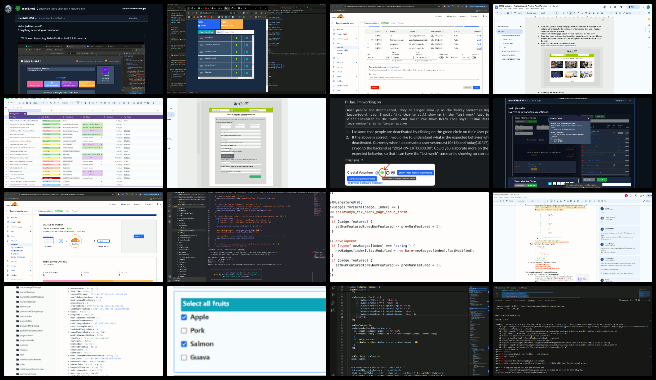
EXPRESSERS SOFTWARE DEVELOPMENT TEAM
The Expressers Team’s summary, covering their work on the Highest Good Network software, was managed by Christy Guo (Software Engineer) and includes Faye Lyu (Software Engineer), Rahul Trivedi (Software Developer), Reina Takahara (Software Developer), and Strallia Chao (Software Engineer). The Highest Good Network software is how we’ll manage and objectively measure our process for developing highest good eco-cooperative solutions through our social architecture, construction, production, and maintenance processes. This week, Christy worked on a project task chart visualization using D3.js, integrating sorting and filtering features to display tasks based on their completion status, hours, and remaining hours. Faye continued debugging the SummaryBar component in HGN Software Development, focusing on fixing bugs and improving its functionality. Rahul improved the responsiveness of the Reports Team Member page and tested it in both light and dark modes. Reina applied feedback to ensure correct project names, adjusted navigation, and worked on displaying tags for lesson submissions. Strallia updated PR#2767 by adding dark mode, custom tooltips, and responsiveness to the line chart. See the Highest Good Society and Highest Good Network pages for more on how this relates to developing highest good eco-cooperative solutions. See the collage below to view the team’s work this week.
LUCKY STAR SOFTWARE DEVELOPMENT TEAM
The Lucky Star Team’s summary, covering their work on the Highest Good Network software, was managed by Anne Zhang (Software Engineer) includes contributions from Chetan Sunku (Software Engineer), Gaurav Setty (Software Engineer), Shefali Mittal (Volunteer Software Engineer), Yashwanth Pokala (Software Engineer) and Ziyan Wang (Software Engineer). The Highest Good Network software is how we’ll manage and objectively measure our process for developing highest good eco-cooperative solutions through our social architecture, construction, production, and maintenance processes. This week, Anne focused on resolving conflicts in previous pull requests, fixing UI issues, and merging functions that overlapped with a teammate’s work. She also managed the Lucky Star team and reviewed photos, videos, and summaries submitted by members. Chetan created a hotfix branch to address an issue from the previous week and resumed work on dashboard time updates, where logged time is not reflected without a page reload, and is continuing to investigate the problem. Gaurav refined the Quick Setup Tool by optimizing APIs, ensuring automatic updates with the removal of the “Save Changes” button, and testing for functionality and edge cases. Shefali developed unit tests for the UserProfileEdit/UserProfileEdit.jsx component, debugging errors encountered during testing, with additional work needed to resolve failing test cases. Yashwanth completed work on the task “Make permissions changes to an individual show up in the tracking below,” presented the changes to Jae, and incorporated feedback, with additional hours allocated for further modifications. All these efforts contribute to highest good eco-cooperative solutions. He also made progress on fixing the Category column on the Projects page by writing a controller class, creating a MongoDB model for permission-related logs, updating routes, and implementing the UI. Ziyan began work on the “146 Optimize the app for Safari” task, reviewing compatibility issues but encountering build errors, including a “module not found” issue and dependency conflicts, which are still under investigation. Additionally, Ziyan uploaded images to the Week 3 folder. See the Highest Good Society and Highest Good Network pages for more on how this relates to developing highest good eco-cooperative solutions. See the collage below to view the team’s work this week.
MOONFALL SOFTWARE DEVELOPMENT TEAM
The Moonfall Team’s summary, covering their work on the Highest Good Network software was managed by Lu Wang (Team Manager), and includes Calvin Liu (PR Team), Nikhil Giri (Software Engineer), Rishabh Nevatia (Software Engineer), Saurabh Shetty (Software Engineer), Satya Shanthi Tadiparthi (Software Engineer), Swathi Dharma Sankaran (Software Engineer), Vedant Gandhi (Software Engineer), and Yili Sun (Software Engineer). The Highest Good Network software is how we’ll manage and objectively measure our process for developing highest good eco-cooperative solutions through our social architecture, construction, production, and maintenance processes. This week, Calvin worked on PR 2786 to address Bug 16 in the Inventory Type List by adding a scrollable feature to limit table height. He has alternated row colors for readability and a hover effect for improved feedback. He has enhanced table styling and resolved an issue with inline background styles that was overriding the global hover effect by moving the alternating row colors to the CSS file, improving both user interaction and maintainability. Lu has focused on managing her team and trained assistant manager Satya in team management processes. She has reviewed his progress, and completed unit testing tasks. Additionally, she has ensured all tests were passed and comments were added. Nikhil worked on developing an auto-poster for Facebook and Facebook Groups to replace the service provided by OnlyWire. He has reviewed several pull requests, and ensured consistency in start dates across reports, user management pages, and proper date picker visibility in both normal and dark modes, all while contributing to highest good eco-cooperative solutions. Rishabh has focused on phase 2 of the application and resolved discussions with teammates, all while aligning their efforts with highest good eco-cooperative solutions. He has started the first part of a task related to access restrictions for owner users, and addressed encountered errors. Saurabh has addressed a login form UI issue. He has verified and closed the task for phase 2, and began working on logging time for tasks. Also, he has identified that the hour count updated correctly for the current week and leaderboard but not for the team member’s task progress. Satya worked on PR reviews and unit test verifications, including the Login component, DeleteBadgePopup, LeaderBoard component tests, Teams component API calls, and unit tests for ColorsGenerator and PeopleReport selectors. Additionally, she has contributed to a UI layout fix for mobile and tablet views. She has balanced technical work with team management tasks and reviewed team members’ progress reports. Swathi has enhanced the task management interface and raised PR 2789 to align the task display for resources. Together, these efforts contribute to the development of highest good eco-cooperative solutions, ensuring that our project aligns with sustainable and community-focused goals. She has refined the filtering logic for paused tasks, and tested the changes across various scenarios for consistency. Vedant has continued work on phase 2 bugs and improved the table design, scrollable region visibility. He has explored multi-select options for project display while resolving a failing test from a previous pull request. Yili has fixed a page freezing issue in the Reports section when clicking on active green or grey dots and addressed the unit test for PR 2785, which dealt with the Assign/Edit/Delete Blue Squares Permission functionality. See the Highest Good Society and Highest Good Network pages for more on how this relates to developing highest good eco-cooperative solutions. Below is a collage for the team’s work:
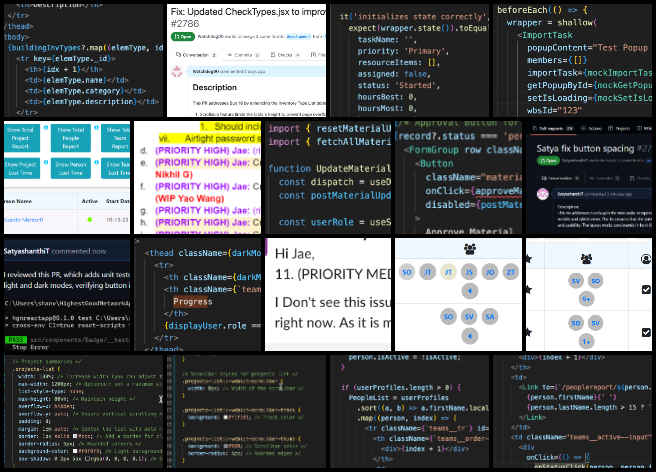
REACTONAUTS SOFTWARE DEVELOPMENT TEAM
The Reactonauts Team’s summary, covering their work on the Highest Good Network software, was managed by Vijeth Venkatesha (Software Engineer). It included Dhairya Mehta (Software Engineer), Gmon Kuzhiyanikkal (Software Engineer), Haoyue Wen (Software Engineer), Jinxiong You (Software Developer), Khushi Jain (Software Engineer), Mohan Gadde (Software Engineer), Nikhil Pittala (Software Engineer), Peterson Rodrigues dos Santos (Full-Stack MERN Stack Developer), Rishitha Mamidala (Software Engineer) and Saniya Farheen (Software Engineer). The Highest Good Network software is highest good eco-cooperative solutions across social architecture, construction, production, and maintenance processes.
This week, Dhairya focused on addressing the “Fix Projects find user function” task with dedicated effort, showcasing adept problem-solving skills. Through meticulous analysis, he accurately identified the root cause of the issue affecting user discovery within the projects section. Leveraging this understanding, Dhairya took proactive steps to develop a comprehensive sort and search function. This strategic initiative is aimed at optimizing user assignment processes within the project section, thereby improving operational efficiency and enhancing the overall user experience. By implementing these improvements, Dhairya is contributing to the highest good eco-cooperative solutions, promoting sustainability and collaboration in our projects.
Gmon worked on his new task on adding active/inactive numbers by teams on the team page, and a new pull request branch has been created, and it is called Gmon-Active-NonActive-team. He has also completed his bio for publishing on the main page too. However, he is facing an issue while running the code, and the code base is crashing when it is running locally. Gmon is trying to fix the error in the code as of now. All the relevant screenshots and video to highlight specific issues are added. Additionally, he spent time understanding the project’s architecture and existing features, ensuring they were well-prepared for upcoming tasks and contributions, focusing on the highest good eco-cooperative solutions.
Haoyue resolved several merge conflicts and made improvements to existing code by addressing issues and refining imperfections based on reviewer feedback. Additionally, she initiated work on the new FAQ feature, beginning the research and planning phase to ensure a smooth implementation that will enhance user support within the application. Jinxiong worked on identifying and addressing bugs in the HGN Apps, with a focus on improving functionality and performance. He concentrated on resolving a layout change issue with the header and identified the source of the problem in the CSS file. After addressing the issue, the layout was corrected. He plans to publish the Pull Request on GitHub on Saturday.
Khushi worked on creating a mockup design for the “New Position Setup Page.” She reviewed the project requirements and began her research to develop a draft design for the page, which allows the Owner to create application options that will appear on the app’s Application Page. The mockup includes fixed fields that are mandatory for all applicants, along with customizable fields that the Owner can edit or add to tailor the application to specific positions. Using elements from the existing Collaboration Page as a reference, she designed fields and layout components. Additionally, Khushi incorporated a feature for a general questionnaire that can be tailored to the applicant’s title or profession, aligning with highest good eco-cooperative solutions to ensure sustainability and community focus in the hiring process. She also added an “Ads Link” feature, allowing users to access a direct link to an ad when available, or alternatively, to link to multiple general pages if no specific ad link is provided. To visualize interactive elements within the mockup, she created placeholders for icons, buttons, toggles, and dropdowns to indicate user interaction points. Currently, the mockup includes sections for the Header, Fixed Fields, General Questionnaire, Customizable Fields, Ads Link, and Review & Save, with plans to continue developing additional sections that contribute to the highest good eco-cooperative solutions. Nikhil completed 12 PR reviews, focusing on front-end, back-end, and unit testing tasks. The reviews involved evaluating code changes for functionality, consistency, and adherence to project standards. In addition to identifying potential issues, Nikhil collaborated with team members to provide feedback and ensure smooth integration of updates. These tasks required attention to both the technical aspects of the code and the overall workflow to maintain the project’s stability and progress.PR #2799, PR #2798, PR #2796, PR #2795, PR #2794, PR #2792, PR #2782, PR #2783, PR #2790, PR #2788, PR #2789, and PR #2786.
Mohan focused on optimizing the team management process within the Profile section. He worked on improving the “Delete Team” and “Assign Team” functions, which currently require a manual save between actions. The goal was to implement an auto-save feature when deleting or adding a team to streamline the process and enhance efficiency. Peterson enhanced the 404 error page, which is displayed when a user attempts to access a non-existent page. The improvements included adding an image to the page and updating the displayed message. Additionally, the colors of the image, text, and app background now automatically adjust to the theme selected by the user, whether dark or light.
Rishitha focused on lint fixing within the user management folder, identifying and resolving code style issues to improve consistency and maintainability. She completed code refactoring for 18 files, optimizing the structure and readability of the codebase. The changes included removing unused imports, updating outdated syntax, and improving function clarity without altering functionality. There are five remaining files that require refactoring, which will be addressed in the following week to finalize the updates to this portion of the project, contributing to highest good eco-cooperative solutions initiative.
Saniya addressed a bug related to the dashboard, specifically modifying the prompt that appears when clicking the red or green circle next to a person’s name. She made changes to adjust the behavior of the prompt triggered by this action. Additionally, she was able to access a person’s tasks as demonstrated in a video from Jae. In a separate task, she accessed a team member’s tasks and documented the results through a screen recording. She is currently reviewing and testing to verify if the bug is resolved and plans to proceed with pull requests once confirmation is achieved, contributing to highest good eco-cooperative solutions.
Vijeth Venkatesha focused primarily on team management, spending time understanding the team management process and communicating with team members to address their queries. He also organized and hosted the weekly team meeting to gather updates from each member. See the Highest Good Society and Highest Good Network pages for more information on how this relates to highest good eco-cooperative solutions. See the collage below for the team’s work this week.
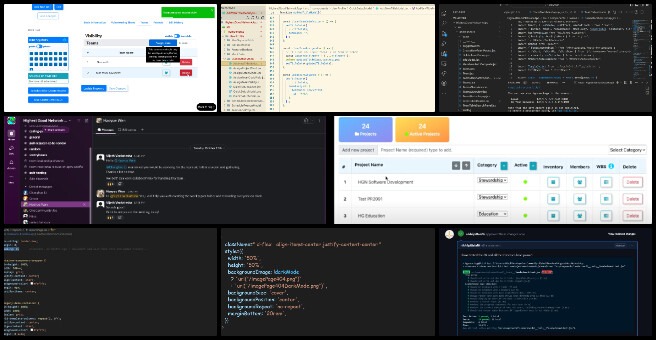
SKYE SOFTWARE DEVELOPMENT TEAM
The Skye Team’s summary covering their work on the Highest Good Network software was managed by Deepthi Arcot Subramanyam (Data Analyst) and Luis Arevalo (Software Engineer) and the team includes Angela Cheng (Full Stack Developer), Abi Liu (Software Developer), Laura Cohen (Software Engineer), Sai Preetham Dongari (Full Stack Developer), Snehal Dilip Patare (Software Engineer) and Yao Wang (Software Engineer). The Highest Good Network software supports highest good eco-cooperative solutions, social architecture, construction, production, and maintenance processes. This week, Luis began laying the groundwork for creating new warnings based on Jae’s feedback. He encountered issues with the front end crashing and created a new branch, facing challenges with integrating the new code. After working through the problems, he integrated his previous code into the new branch. He started creating the modal and made the necessary adjustments. He also documented notes for the upcoming tasks, including adjusting the button’s distance and ensuring that when a button is selected, a modal appears, similar to issuing warnings after two have been given. Abi researched strategies for embedding graphs into emails, participated in a group meeting to discuss back-end API development, and assisted Denish in understanding API requirements. He also worked on refactoring the volunteer trends method by creating its own route and fixing the query, contributing to highest good eco-cooperative solutions. Laura reviewed front-end and back-end code in the HighestGoodNetworkApp and HGNRest to aid the implementation of the permission change modal. She added code to the modal and made adjustments through trial and error to determine the correct placement for integrating it into the application. Angela focused on creating a replacement service for the HGN Software Development project, debugging Twitter OAuth 2.0 methods, and ensuring support for both base64 and URL image types for Twitter and Pinterest. She discussed API sources with a colleague and reviewed the Onlywire API to decide between using it or building a solution. She researched JavaScript scheduling options, specifically the node-schedule and agenda packages, and explored MongoDB integration for saving scheduled posts with the Agenda package. Yao replaced the “onlywire” feature to enable posting on LinkedIn by creating a front-end UI layout that posts to LinkedIn through APIs sourced from the LinkedIn developer page. Additionally, they focused on developing solutions for the highest good eco-cooperative solutions. Snehal created a pull request (PR#2801) to address a user ID change in the dashboard and began working on a bug related to deleting members from the projects on the member’s page. She reviewed comments on PR#2801 and made necessary changes, with plans to continue resolving the bug. Sai addressed the missing search functionality on the Team Member Page, beginning by understanding the existing code and what was required to implement the feature. He identified gaps in front-end event handling and back-end API routes, created a new GitHub branch for his work, and made code adjustments to improve the display of search results on the Team Report page. He also documented his progress with weekly summaries and Dropbox images. His contributions are part of our commitment to developing highest good eco-cooperative solutions. See below for some of the team’s work.
SOFTWARE PR REVIEW TEAM A-H
The PR Review Team’s summary for team members’ names starting with A-H and covering their work on the Highest Good Network software was managed by Anoushka Hazari (Data Analyst). The Highest Good Network software is a foundation of what we’ll be using to measure our results for developing highest good eco-cooperative solutions. This week’s active members of this team were: Abdelmounaim Lallouache (Software Developer), Anoushka (Software Engineer), Ashish Nagraju (Software Engineer), Bhavya Prakash (Software Engineer), Carl Bebli (Software Engineer), Lucy Xi (Software Engineer), and Geeta Matkar (Software Engineer). They reviewed all the Highest Good Network PRs (Pull Requests) shared in this week’s update. Learn more about how the Highest Good Network will measure and assist in developing highest good eco-cooperative solutions in the Highest Good Network open source hub. The collage below shows a compilation of the work from this team.
![]() SOFTWARE PR REVIEW TEAM I-N
SOFTWARE PR REVIEW TEAM I-N
The PR Review Team’s summary for team members’ names starting with I-N and covering their work on the Highest Good Network software was managed by Saumit Chinchkhandi (Administrative Assistant and Software Engineer). The Highest Good Network software is a foundation of what we’ll be using to measure our results of developing highest good eco-cooperative solutions. This week’s active members of this team were: Koushica Bosadi Ulaganathan (Software Engineer), Kurtis Ivey (Software Engineer), Nahiyan Ahmed (Full Stack Software Developer), Nanguan Lin (Software Engineer), Nathan Hoffman (Software Engineer), Navya Sri Ankireddy (Software Engineer), Newell Yin (Software Engineer), and Nikhitha Kalinga (Software Engineer). They reviewed all the Highest Good Network PRs (Pull Requests) shared in this week’s update. Learn more about how the Highest Good Network measures and assists in developing highest good eco-cooperative solutions in the Highest Good Network open source hub. The collage below shows a compilation of the work from this team.
SOFTWARE PR REVIEW TEAM R-Sa
The PR Review Team’s summary for team members’ names starting with R-Sa and covering their work on the Highest Good Network software was managed by Olawunmi “Ola” Ijisesan (Administrative and Management Support) and Mrudula Chavali (Administrative Assistant and Data Analyst). The Highest Good Network software is a foundation of what we’ll be using to measure our results of developing highest good eco-cooperative solutions. This week’s active members of this team were: Pallavi Thorat (Software Engineer), Rachana Rizhkant Zha (Software Development Engineer), Rashmitha Yadhav (Software Engineer), Rupa Bhatia (Software Engineer), Sharadha Shivakumar (Software Engineer), Shashank Kumar (Software Engineer), Sheetal Mangate (Software Engineer), Shengwei Peng (Software Engineer), Shreya Laheri (Software Developer). They reviewed all the Highest Good Network PRs (Pull Requests) shared in this week’s update. Learn more about how the Highest Good Network will measure and assist in developing highest good eco-cooperative solutions in the Highest Good Network open source hub. The collage below shows a compilation of the work from this team.
SOFTWARE PR REVIEW TEAM Si-Z
The PR Review Team’s summary for team members’ names starting with Si-Z and covering their work on the Highest Good Network software was managed by Olawunmi “Ola” Ijisesan (Administrative and Management Support) and Samarth Urs (Administrative Assistant and Data Analyst). The Highest Good Network software is a foundation of what we’ll be using to measure our results of highest good eco-cooperative solutions. This week’s active members of this team were: Shivansh Nathani (Software Engineer), Vaibhavi Madhav Deshpande (Software Engineer), Neeharika Koniki (Software Engineer, Developer), Yiyun Tan (Software Engineer), and Zhimin Liang (Full Stack Developer). They reviewed all the Highest Good Network PRs (Pull Requests) shared in this week’s update. Learn more about how the Highest Good Network will measure and assist in highest good eco-cooperative solutions in the Highest Good Network open source hub. The work helps One community’s mission of highest good eco-cooperative solutions and reinforces our commitment to a better living quality for all people. The collage below shows a compilation of the work from this team.
AND WE PRODUCED THIS WEEKLY UPDATES BLOG – CLICK HERE TO SUBSCRIBE
FOLLOW ONE COMMUNITY’S PROGRESS (click icons for our pages)
INVESTOR PAGES
GET INVOLVED
Human Orchestrated Eco-abundance – One Community Weekly Progress Update #604
Posted on October 14, 2024 by One Community Hs
At One Community, we are designing human orchestrated eco-abundance to create a world that works for everyone. Our all-volunteer team is building a self-replicating model that integrates sustainable approaches to food, energy, housing, education, economics, and social architecture. By open sourcing and free sharing the entire process, we aim to foster a global collaboration of teacher/demonstration hubs, all for “The Highest Good of All.” Through these efforts, we are evolving sustainability, regenerating our planet, and inspiring fulfilled living for people everywhere.
- Here’s our project overview
- Here’s our world-change methodology
- Here’s how this becomes self-replicating
- Here’s how we are open source and free-sharing all the do-it-yourself designs
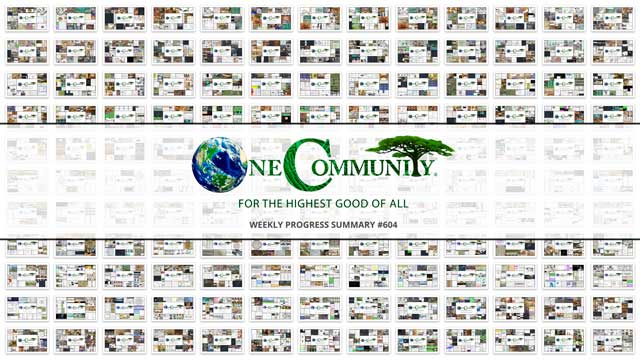
OUR MAIN OPEN SOURCE HUBS
Click on each icon to be taken to the corresponding Highest Good hub page.
One Community’s physical location will forward this movement as the first of many self-replicating teacher/demonstration communities, villages, and cities to be built around the world. This is the October 14th, 2024 edition (#604) of our weekly progress update detailing our team’s development and accomplishments:
Human Orchestrated Eco-abundance
One Community Progress Update #604
DONATE | COLLABORATE | HELP WITH LARGE-SCALE FUNDING
CLICK HERE IF YOU’D LIKE TO RECEIVE AN EMAIL EACH WEEK WHEN WE RELEASE A NEW UPDATE
YOU CAN ALSO JOIN US THROUGH SOCIAL MEDIA
ONE COMMUNITY WEEKLY UPDATE DETAILS
HIGHEST GOOD HOUSING PROGRESS
 One Community is designing human orchestrated eco-abundance through Highest Good housing that is artistic and beautiful, more affordable, more space efficient, lasts longer, DIY buildable, and constructed with healthy and sustainable materials:
One Community is designing human orchestrated eco-abundance through Highest Good housing that is artistic and beautiful, more affordable, more space efficient, lasts longer, DIY buildable, and constructed with healthy and sustainable materials:
- Learn about designing human orchestrated eco-abundance: Our Upcoming Crowdfunding Campaign
- Learn about the different village models: 7 Sustainable Village Models
- Visit the open source portals for the first two: Earthbag Village OS Hub | Straw Bale Village OS Hub
This week, Adil Zulfiquar (Engineer) continued working on the Vermiculture Toilet designs. A transportation report was compiled, addressing requirements, considerations, and the selection of equipment and accessories. The report evaluates supporting accessories for transportation, ensuring alignment with operational and safety standards. It details the selection process for an electric winch, focusing on technical specifications and performance. An analysis of trailer selection was also included, emphasizing load capacity, material handling, and safety compliance. A report on the selection of an Electric Utility Vehicle (EUV), covering specifications, load capacity, and compliance with industry standards, was submitted for review and approval. Additionally, calculations and finite element analysis (FEA) for hammer impact on the slider, prepared by Anil, were reviewed. The Earthbag Village is the first of 7 to be built as the housing component of One Community’s open source model for designing human orchestrated eco-abundance. See below for some of the pictures related to this work.
Akshit Sethi (Architectural Designer) continued working on finalizing the interior of the Earthbag Village 4-dome home design. Akshit worked on the AutoCAD file for The EarthBag Village, focusing on creating sets of external and internal clusters and detailed plans for walls and furniture placement within the domes. This involved updating the existing design of the Murphy bed dome and replacing it with revised plans to ensure accuracy and consistency throughout the project. The Earthbag village is the first of 7 villages to be built as part of One Community’s open source model for designing human orchestrated eco-abundance. See his work in the collage below.
Anil Karathra (Mechanical Engineer) continued working on the Vermiculture Toilet designs. He made the final changes to the vermiculture collaboration document based on recent feedback. The slider was redesigned to include reinforcements, and FEA was conducted on the updated design. Reviewing tasks were assigned to team members, and partial swing calculations were added to the document. Following further feedback, the document was revised again with additional reviewing tasks delegated. Research on ventilation and temperature control systems continued, and impact force was recalculated by reducing the swing distance to assess if the space under the toilet would be sufficient. The weekly team meeting was led, updates were provided, and team members were reminded of their action items. New FEA was performed on the slider using revised calculations, and the relevant documentation was updated. The approach for designing human orchestrated eco-abundance enables the development of innovative solutions that are both environmentally friendly and effective. See below for some of the pictures related to this work.
Avery Hamilton (Mechanical Designer) continued working on finalizing the interior of the Earthbag Village 4-dome home design. Avery selected HVAC equipment and modeled it in Revit. He addressed various modeling setup tasks and resolved related issues. Additionally, he selected plumbing fixtures and coordinated rough plumbing. The Revit model was updated and uploaded to the weekly collaboration folder. Avery also created plumbing fixture schedules and updated the mechanical plumbing schedule sheets. He completed the weekly summary and uploaded the necessary documents. The Earthbag village is the first of 7 villages to be built as part of One Community’s open source model for designing human orchestrated eco-abundance. See his work in the collage below.
Charles Gooley (Web Designer) continued working on the Aircrete Engineering and Research: Compression Testing, Mix Ratios, R-value, and More page. He worked on the Aircrete Engineering and Research: Compression Testing, Mix Ratios, R-value, and More page. His tasks involved resizing and posting multiple images, adding links to relevant videos, uploading several videos to YouTube, and embedding the necessary code into the webpage. The page details the engineering steps, research, resources, and tools used to verify the safety of aircrete designs and structures. Aircrete is an alternative we’re exploring for the Earthbag Village, a foundational part of One Community’s open-source model for designing human orchestrated eco-abundance. Take a look at some of this work in the images below.
Joseph Osayande (Mechanical Engineer) continued helping finish the Vermiculture Toilet engineering and design details. Joseph identified and documented changes affecting the Winch Removal System (WRS), such as an 8-inch increase in the drawer with wheels, which required modifications to the vertical unistruts. An additional FEA analysis was performed to assess any changes in stress or strain resulting from these adjustments. The steel insertion plate was also reviewed and cross-checked, confirming earlier observations made by a colleague. Additionally, reports were updated with new information obtained through research and formatted to meet the specified requirements. The Earthbag Village is the first of 7 to be built as the housing component of One Community’s open source model for designing human orchestrated eco-abundance. See some of his work in the collage below.
Prarthana Jathar (Architectural Designer) focused her work on the Earthbag Village project. She specifically worked on the 4-dome cluster roof design, section views, and related reports. She exported the Revit model to Rhino, created internal renders using TwinMotion, and participated in a weekly meeting to discuss task progress. Additionally, she worked on rendering internal views using Revit and Enscape and downloaded the necessary components for the renderings. The Earthbag Village is the first of 7 to be built as the housing component of One Community’s open source model for designing human orchestrated eco-abundance. Take a look at some of this work in the images below.
Vimarsh Acharya (Engineering Manager and Technical Reviewer) began working on the Most Sustainable Paints, Stains, Varnish, Sealers component. Vimarsh researched eco-friendly paint companies and identified three key brands: Pure Original USA, Green Planet Paint, and Clare Paint, with details submitted for further evaluation. Additionally, he began investigating eco-friendly primer companies to expand the scope of the research, aiming to gather relevant information on sustainable options within the paint industry. The One Community model of combining forward-thinking education with sustainably built classrooms like this is an excellent example of designing human orchestrated eco-abundance. See the collage below for his work.
Yagyansh Maheshwari (Mechanical Engineer) continued helping finish the Vermiculture Toilet engineering and design details. Yagyansh focused on optimizing the bolt length, reducing it to the minimum required specifications. Where applicable, the bolts were replaced with lock bolts for enhanced security. He also checked the fit of the drawer with the dome and conducted finite element analysis (FEA) on the drawer to evaluate its capacity to withstand both the weight and the pulling force exerted by the winch. The Earthbag Village is the first of 7 to be built as the housing component of One Community’s open source model for designing human orchestrated eco-abundance. See some of his work in the collage below.
Yuxing Xu (VFX Artist) continued working on making videos for the Earthbag Village 4-dome home design. Yuxing focused on refining details in the scene, including importing the Tesla charger stand model and improving the surrounding area of the building. He worked specifically on enhancing the ground surface to create a more natural appearance and improved the grass and foliage around the building. The week concluded with the export of videos for the flythrough visualization. The Earthbag Village is the first of 7 to be built as the housing component of One Community’s open source model for designing human orchestrated eco-abundance. See some of his work in the collage below.
Yuze Tang (Architect) continued working on Vermiculture Toilet designs. Yuze focused on two main tasks. The first task involved reviewing calculations made by Anil, which were shared in the team document. These calculations aimed to determine the resistance of a steel plate and compare the impact of a full swing of a hammer versus a partial swing. The calculations were clear and logical, with only minor typos and small calculation differences identified. The second task involved researching alternative materials for the frame structure of the drawer. Due to difficulties in finding a product with the exact dimensions of the drawer, a price comparison was conducted between aluminum sheets and wooden sheets. The results indicated that using wood as an alternative material would not reduce the cost of the drawer. The approach of designing human orchestrated eco-abundance enables the development of innovative solutions that are both environmentally friendly and effective. See below for some of the pictures related to this work.
EARTHBAG VILLAGE 4-DOME ROOF TEAM
The Earthbag Village 4-dome Roof Team was managed by Khushboo Parmar (Project Manager) and includes Karthik Pillai (Volunteer Mechanical Engineer) and Yusuf Thanawala (Structural Engineer). The Earthbag Village forms the basis of One Community’s open source model for designing human orchestrated eco-abundance. This week highlights key developments in the 4-Dome Roof Cluster project. Khushboo prepared and led a meeting to address potential blockers and propose solutions, managed various administrative tasks, and conducted research on Earthbag structures and environmentally sustainable materials. Additionally, she oversees the work of Michaela Silva, Adefola Madehin, Prarthana Jathar, and Avery Hamilton. Yusuf completed the analysis and design for the 4-Dome loft structure, worked on report sections, and reviewed previous calculations in Excel. He is also exploring construction plans for a typical wood loft. Karthik focused on the finite element analysis (FEA) of the pin in the vermiculture toilet waste dumping mechanism, working to finalize the pin dimensions and structure. He continued optimizing the Unistrut structure for the toilet design, aiming to complete this task soon. In the four-dome cluster project, Karthik designed and analyzed roof structures using SolidWorks Civil, planned design iterations for the roof and columns, and reviewed relevant engineering standards to ensure compliance. The Earthbag village is an integral part of One Community’s open source model for designing human orchestrated eco-abundance. See their work in the collage below.
DUPLICABLE CITY CENTER PROGRESS
 One Community is designing human orchestrated eco-abundance through a Duplicable and Sustainable City Center that is LEED Platinum certified/Sustainable, can feed 200 people at a time, provide laundry for over 300 people, is beautiful, spacious, and saves resources, money, and space:
One Community is designing human orchestrated eco-abundance through a Duplicable and Sustainable City Center that is LEED Platinum certified/Sustainable, can feed 200 people at a time, provide laundry for over 300 people, is beautiful, spacious, and saves resources, money, and space:
- Learn about this building and it’s function in designing human orchestrated eco-abundance: Duplicable City Center Open Source Hub
This week, Arnob Mutsuddi (Mechanical Engineer) continued working on Duplicable City Center structural engineering model and details. He worked on the flow simulation analysis on SolidWorks for 150 mph wind loads, which was completed, and a new analysis for 80 mph wind loads on the Traditional Dome structure was initiated and finished. Additionally, work began on the flow simulation analysis for 150 mph wind loads for the same structure, which was also completed. Assistance was provided to a new team member with a structural analysis task, and a team meeting was held. The Duplicable City Center is a foundational part of One Community’s open-source model, which excels in designing human orchestrated eco-abundance. This approach is integral to their mission of designing human orchestrated eco-abundance through innovative and scalable solutions. See some of this work in the pictures below.
Chris Blair (GIS Technician/Horticulturist) continued working with GIS data as part of One Community’s Permaculture Design that includes the location of the Duplicable City Center. He continued learning how to use QGIS, an open-source GIS software, with the goal of recreating his previous work from proprietary software to improve future access to the data. He completed the import of PDFs of the city center and villages into QGIS, georeferencing them to create raster data, and digitized both the structures and their footprints on the land. He also identified and marked discrepancies between the village sizes displayed on the website and those observed when scaling the blueprints in QGIS. Within One Community’s open-source framework, the Duplicable City Center plays a central role in designing human orchestrated eco-abundance. The images below showcase some of this work.
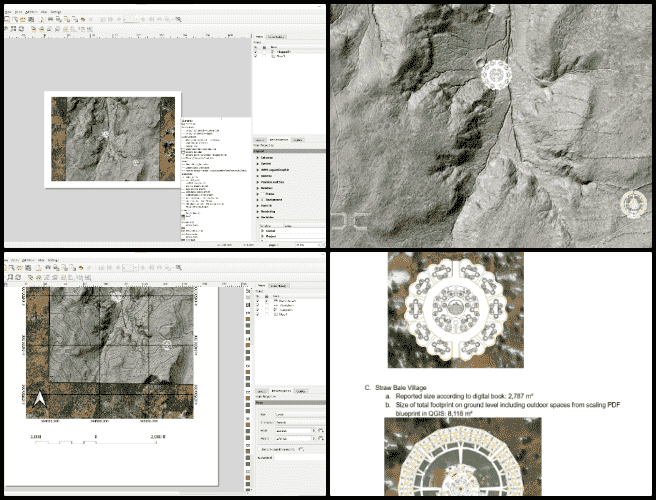
Faeq Abu Alia (Architectural Engineer) continued his work on the Duplicable City Center kitchen shelving and adding dry-storage food items. He focused on fixing the walkthrough video for room 3 using SketchUp and Lumion, while also working on the walkthrough videos for rooms 9, 10, and 11 using the same software. The tasks involved ensuring the visual quality of each video, making necessary adjustments to the design specifications, and addressing any issues during the rendering process. Faeq concentrated on refining the transitions and architectural details in each room’s walkthrough to maintain consistency and align with the overall project requirements. The Duplicable City Center represents a fundamental element of One Community’s open-source approach, dedicated to designing human orchestrated eco-abundance. View examples of this work in the pictures provided below.
Nika Gavran (Industrial Designer) continued her work on the Duplicable City Center dormer window installation plans. This week, Nika focused on expanding the final document for the dormer window instructions, with a specific emphasis on incorporating rock wool insulation. She removed shadows from the images, rerendered them, and arranged everything in a more appealing layout. Nika also added a materials section dedicated to the insulation. She is working towards compiling all the slides and will continue making progress in the coming weeks. As a foundational component of One Community’s open-source strategy, the Duplicable City Center is designed for designing human orchestrated eco-abundance. The images below showcase some of this work.
Tasmia Hasan (Design Engineer) continued her work on the structural engineering of the Duplicable City Center. This week, Tasmia focused on seismic load analysis for a structural frame. She reviewed previous research and used Autodesk Robot to perform several iterations of the analysis, ensuring it adhered to US seismic code requirements. Adjustments were made to the frame based on initial findings, but the results appeared inconsistent. As a result, she ran additional iterations in SolidWorks to refine the frame design and address potential issues with the load distribution or structural integrity. As a foundational component of One Community’s open-source strategy, the Duplicable City Center is designed for designing human orchestrated eco-abundance. You can see examples of this work in the below images.
Umema Ali (Mechanical Design Engineer) continued working on the Duplicable City Center Engineering. She worked on static structural analysis for both the new dome structure and the traditional dome structure, focusing on vertical load conditions. She used HyperWorks for the analysis and verification of results. Additionally, she performed Finite Element Analysis (FEA) for the same structures using Inventor and cross-checked the results in HyperWorks to ensure consistency and accuracy. Within One Community’s open-source framework, the Duplicable City Center plays a central role in designing human orchestrated eco-abundance. The images below showcase some of this work.
Yancong E (Architectural Designer) continued working on the Duplicable City Center project. This week, Yancong fixed issues in the AutoCAD files and added comments for the Social Dome and Dining Dome basements. He also addressed problems with the Room 12 model based on Jae’s suggestions, including adding a new roof and resolving a material issue with the mirrors in the bedroom and bathroom. The Duplicable City Center represents a fundamental element of One Community’s open-source approach, dedicated to designing human orchestrated eco-abundance. This innovative initiative aims to showcase how designing human orchestrated eco-abundance can transform urban spaces into more sustainable and community-oriented environments. You can see examples of this work in the images below.
HIGHEST GOOD FOOD PROGRESS
 One Community is designing human orchestrated eco-abundance through Highest Good food that is more diverse, more nutritious, locally grown and sustainable, and part of our open source botanical garden model to support and share bio-diversity:
One Community is designing human orchestrated eco-abundance through Highest Good food that is more diverse, more nutritious, locally grown and sustainable, and part of our open source botanical garden model to support and share bio-diversity:
- Learn about the structures: Hoop House Hub | Aquapini & Walipini Open Source Hub
- See what we’ll be growing and designing human orchestrated eco-abundance: Gardens & Hoop Houses | Large-scale Structures | Food Forest | TA
This week, the core team continued their research for the Highest Good Soil Amendment Tools, Equipment, Materials/Supplies list. Their focus centered on identifying specific soil amendments to enhance soil structure, fertility, and nutritional content. Potential additions included organic matter sources like leaves, compost, cardboard, organic food scraps, chicken manure, rabbit manure, comfrey, woodchips, and weeds. The Highest Good Food initiative is a key component of One Community’s open source plans, dedicated to designing human orchestrated eco-abundance. See their work in the collage below.
Surya Teja Anumolu (Volunteer Mechanical Engineer) continued his work on the Highest Good Food most sustainable construction and agricultural equipment. He focused on identifying the best equipment for excavating Aquapini and Walipini Planting and Harvesting structures. He developed an initial framework centered on three key factors: the volume of soil to be excavated, the time required for completion, and the associated costs. The Walipini excavation was estimated to require 12,000 cubic feet of soil removal, with a timeline ranging from one to six months depending on the equipment and manpower involved. To gather insights on budgeting and resources, Surya engaged with three construction equipment dealers, contractors, and rental service providers. The Highest Good Food initiative is a key component of One Community’s open source plans, dedicated to designing human orchestrated eco-abundance. This approach is critical to designing human orchestrated eco-abundance and ensures alignment with the initiative’s goals. See his work in the collage below.
Syahrina Maulida Majid (Volunteer Nutritionist) started working on create menu implementation tutorials as a part of One Community’s Transition Food Self-Sufficiency Plan. Her work involved drafting page content for the Recipe Build-Out Tool and reviewing the master menu template to ensure all necessary resources and details were there. This included checking for consistency with One Community’s existing style and ensuring that the structure aligned with the broader food self-sufficiency transition plan. Additionally, any corrections, comments, or necessary updates were documented clearly in a shared Google Doc for ease of communication with the team. The focus was on creating a clear and informative layout that outlined the tool’s purpose and available resources, maintaining alignment with the project’s objectives. The Highest Good Food initiative plays a crucial role in One Community’s open-source plans, aiming to design human orchestrated eco-abundance. Her work is showcased in the collage below.
Xuanjun Liu (Landscape Designer) continued working on the Cloud Forest House Zenapini renderings in Lumion. The process included further searching for corresponding plant materials in the Lumion plant library or online resources, and conducting preliminary tests on their appearance. Additionally, the preliminary tests on lighting materials and their performance were conducted in Lumion. Parts of initially tested plants were placed into the site and arranged in dense, reasonable groupings. Furthermore, parts of figures, water features, and effects were added. Highest Good Food is key to designing human orchestrated eco-abundance within One Community’s open source plans. See some of this work in the pictures below.
Ziyi Chen (Landscape Designer) continued working on the design of the outdoor spaces for the Aquapini and Walipini Planting and Harvesting structures. She finalized the zoning and transferred the sketch into CAD to start preparing the detail drawings. The aromatic area, which primarily consists of small trees, shrubs, and flowering ground covers to enhance interaction with people, was placed south of the food structure to minimize shading of the trees during winter. Similar considerations were applied to the northern section of the overall design area. The Highest Good Food initiative is a key component of One Community’s open source plans, dedicated to designing human orchestrated eco-abundance. See her work in the collage below.
HIGHEST GOOD ENERGY PROGRESS
 One Community is designing human orchestrated eco-abundance through Highest Good energy that is more sustainable, resilient, supports self-sufficiency and includes solar, wind, hydro and more:
One Community is designing human orchestrated eco-abundance through Highest Good energy that is more sustainable, resilient, supports self-sufficiency and includes solar, wind, hydro and more:
- Learn about the open source sustainable-energy foundations: Solar, Hydro, and Wind
- Explore our research into the most sustainable products and companies for saving water and energy: Insulation, Eco-laundry, Lightbulbs and Light Bulb Companies, Doors and Door Companies, Windows and Window Companies, Toilets, Faucets and Faucet Accessories, Urinals, and more.
This week, Panambur Rachan Rao (Project Manager) completed the Highest Good energy site status task and reviewed the cost spreadsheet p1d, as well as the cost spreadsheets on the HGE pages. Any deficiencies were documented on the spreadsheet available through One Community. Rachan also coordinated with the DCC analysis team to provide guidance on their upcoming tasks and to receive an update on their weekly progress. Within One Community’s open-source framework, the Duplicable City Center plays a central role in designing human orchestrated eco-abundance. Take a look at some of this work in the images below.
Viktoriia Zakharova (Administrative Assistant) worked on finalizing the web page layout for the sustainable light bulb guide on One Community’s website. She revised the DCC lightbulb alternatives table, incorporating various light bulb options, pictures, and links. She also updated the light bulb types comparison graphic and added content about the importance of sustainable lighting. A plan was outlined detailing the remaining steps needed to complete the web page. Vika interviewed three volunteer candidates, discussed their professional goals, provided feedback, and helped prepare them to start. Additionally, she reviewed the training process for a new administrative assistant. The Duplicable City Center represents a fundamental element of One Community’s open-source approach, dedicated to designing human orchestrated eco-abundance. View examples of this work in the pictures provided below.
Yi-Ju Lien (Environmental Engineer) updated the content on Hydro Power/Energy Setup and Maintenance, to ensure all resources are accessible. She revised the DIY TROMPE tutorial by incorporating a report that compares the performance of different pipe sizes and added a YouTube video to clarify the steps and processes involved in making the trompe. Additionally, she worked on the economic analysis of the hydro energy project and introduced the concept of Levelized Cost of Energy (LCOE), an index used to evaluate project profitability. Within One Community’s open-source framework, the Duplicable City Center plays a central role in designing human orchestrated eco-abundance. Take a look at some of this work in the images below.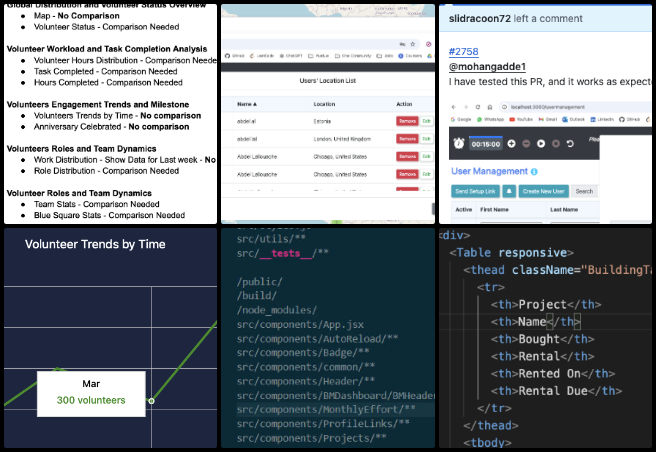
HIGHEST GOOD EDUCATION PROGRESS
 One Community is designing human orchestrated eco-abundance through Highest Good education that is for all ages, applicable in any environment, adaptable to individual needs, far exceeds traditional education standards, and more fun for both the teachers and the students. This component of One Community is about 95% complete with only the Open Source School Licensing and Ultimate Classroom construction and assembly details remaining to be finished. With over 8 years of work invested in the process, the sections below are all complete until we move onto the property and continue the development and open sourcing process with teachers and students – a development process that is built directly into the structure of the education program and everything else we’re creating too:
One Community is designing human orchestrated eco-abundance through Highest Good education that is for all ages, applicable in any environment, adaptable to individual needs, far exceeds traditional education standards, and more fun for both the teachers and the students. This component of One Community is about 95% complete with only the Open Source School Licensing and Ultimate Classroom construction and assembly details remaining to be finished. With over 8 years of work invested in the process, the sections below are all complete until we move onto the property and continue the development and open sourcing process with teachers and students – a development process that is built directly into the structure of the education program and everything else we’re creating too:
- Program Overview: Education Open Source Hub
- How the components work together in designing human orchestrated eco-abundance: How to use the Education for Life Program
- Lesson Plans for Life – Lesson Plans How-to
- Foundations of Outstanding Leaders, Teachers, and Communicators
- Curriculum for Life
- Teaching Strategies for Life
- Learning Tools and Toys for Life
- Evaluation and Evolution
This week, Apoorv Pandey (Mechanical Engineer) continued helping with the engineering details for the Ultimate Classroom part of the Highest Good education component. He continued working on the final draft of the Structural Engineering Report for the Ultimate Classroom Project, concentrating on the calculations and analysis section. Due to the complexity of the results, he is seeking assistance from his senior engineer, Brian Muigai Mwaniki (Structural Engineer) to complete the report. He did additional research to enhance the clarity and articulation of specific sections and referenced other published pages on One Community’s website to guide his work. The One Community model of combining forward-thinking education with sustainably built classrooms like this is an excellent example of designing human orchestrated eco-abundance. This approach exemplifies designing human orchestrated eco-abundance by creating environments fostering collaboration and innovation. See the collage below for his work.
Brian Mwoyowatidi (Graduate Structural Engineer) continued helping with the engineering details for the Ultimate Classroom part of the Highest Good education component. He continued on the Engineering Report and Tutorial for the Ultimate Classroom, adding introductory paragraphs to several sections, including the Material Selection for the Flooring Type. He also included brief explanatory paragraphs for the AutoCAD drawing illustrations of the Footer, Foundation, and Flooring system. Brian formatted all AutoCAD drawing headings to H6 and researched OSHA Trench and Excavation Safety Guidelines, backing them up in PDF format on Dropbox and adding reference links in the report. Additionally, he included images showing the curing process and formwork for the slab-on-grade. The One Community model of combining forward-thinking education with sustainably built classrooms like this is an excellent example of designing human orchestrated eco-abundance. This approach exemplifies designing human orchestrated eco-abundance by creating environments fostering collaboration and innovation. See the collage below for his work.
HIGHEST GOOD SOCIETY PROGRESS
 One Community is designing human orchestrated eco-abundance through a Highest Good society approach to living that is founded on fulfilled living, the study of meeting human needs, Community, and making a difference in the world:
One Community is designing human orchestrated eco-abundance through a Highest Good society approach to living that is founded on fulfilled living, the study of meeting human needs, Community, and making a difference in the world:
- Read the Highest Good society overview: Highest Good Society
- Learn about the model for fulfilled living and sharing: A Day in the Life
- Learn about the 4 economic models: RBE | For-profit | Non-profit | Entrepreneurship
- Learn about our open source community collaboration and management software: The Highest Good Network
This week, the core team completed over 64 hours managing One Community’s volunteer-work review not included above, emails, social media accounts, web development, new bug identification and bug-fix integration for the Highest Good Network software, and interviewing and getting set up new volunteer team members. They also shot and incorporated the video above that talks about designing human orchestrated eco-abundance and how designing human orchestrated eco-abundance is a foundation of the bigger picture of everything One Community is doing. The image below shows some of this work.
Anoushka Hazari (Data Analyst) did extensive research on optimizing and streamlining the logging process to enhance efficiency. After evaluating various options, she decided to implement MySQL to automate workflows related to promotions and reviews. Following the guidance of YouTube tutorials, she set up MySQL and connected it to Python, allowing her to begin building the solution effectively. In addition to her technical work, Anoushka addressed Sara’s comment regarding Fangle and promptly completed the fix for page 603 as requested. This work helps One Community’s mission of designing human orchestrated eco-abundance and reinforces our commitment to designing human orchestrated eco-abundance. The below images show her work for the week.
Aravind Yuvraj (Networks and Security Engineer) is in the process of migrating the Highest Good Network website to Bluehost. This involves reading the Bluehost knowledge base to understand the migration process and contacting their team for configuration details. He has also been exploring the Bluehost panel to gather statistics and check Azure resources. Additionally, he contacted the Bluehost team regarding slowness issues with the Onecommunityglobal website and about active plugins. This work helps One Community’s mission of designing human orchestrated eco-abundance and reinforces our commitment to designing human orchestrated eco-abundance. The following images show his work for the week.
Deepthi Arcot Subramanyam (Data Analyst) collaborated with Riddhisha and Jae to plan a strategy for the Google Analytics team. She participated in meetings with Riddhisha and the Google Analytics team to discuss progress and plan the agenda for the following week. Additionally, she developed a strategy for an upcoming team presentation and focused on making progress with the Google Analytics certification, along with reviewing web analytics resources and learning about different KPIs. She also contributed to the Hiring team with six interviews for Software and Admin roles. As part of Team Skye, she worked on the blog, reviewing weekly summaries and preparing the team summary and collage. Lastly, she reviewed the administrative tasks for two new members of the admin team. This work helps One Community’s mission of designing human orchestrated eco-abundance and reinforces our commitment to designing human orchestrated eco-abundance. The following images show her work for the week.
Feras Rehman (Data Analyst) continued working on developing One Community’s Mastodon account and strategy. He also managed his part of the One Community Updates Blog and reviewed the work of Sneka, Rahul, Mrudula, Riddhisha, and Jessica providing feedback on the errors identified. In addition, six more posts were scheduled on Buffer for the upcoming week, and five additional posts were planned for the research for Mastodon. He also gained valuable insights into optimizing post reach by leveraging effective structure and identifying relevant hashtags, which increased visibility by 3x. Images were added to supplement the weekly summary. This work helps One Community’s mission of designing human orchestrated eco-abundance and reinforces our commitment to designing human orchestrated eco-abundance. The following images show his work for the week.
Gavin Burke (Project Manager) began his training as a Project Manager and was assigned to assist the tech team with the migration of the One Community Website and HGN network to Bluehost. After a briefing with Jae and a team call that clarified the issues, he focused on keeping the team organized by outlining tasks for each member. In addition, Gavin did independent research to better understand the migration challenges. He also reviewed the Earthbag Municipality/County Involvement page, making minor edits, and updating the resources. This work helps One Community’s mission of designing human orchestrated eco-abundance and reinforces our commitment to designing human orchestrated eco-abundance. The following images show his work for the week.
Hritvik Mahajan (Data Analyst) reviewed Riddhisha and Yash’s weekly blog post and provided suggestions for improvement. He tested multiple pull requests on the front end, addressed merge issues, and communicated with team members on Slack regarding change requests. He also shared screenshots for community posts with Jae, prepared content for his announcement, joined additional communities approved by Jae, reposted content in each community using relevant hashtags, and began selecting communities for daily reposting. He also started designing the Figma prototype for the social media scheduler and posting app, researched various platforms, and uploaded screenshots to Figma. Hritvik managed GitHub tags for Phase 1 bugs, followed up with team members on Slack, and provided feedback on Shrinivas’s review of Namra’s training work. He reviewed Vishnu’s work and offered suggestions. Additionally, he posted and reposted in 11 Twitter communities, researched hashtag strategies, identified key dates for future posts, and started selecting appropriate communities for content from the previous month. This work helps One Community’s mission of designing human orchestrated eco-abundance and reinforces our commitment to designing human orchestrated eco-abundance. The following images show his work for the week.
Jiaqi Wu (UX Designer) contributed to the data tracking visualization project, similar to platforms like Netflix, by engaging in discussions to enhance clarity and usability. This included refining elements such as Content Recommendation Feedback, Preference Customization, Rescheduling and Notifications, adjusting color schemes, and adding filters to improve accessibility of information. Additionally, she worked on the design system, exploring potential improvements and ensuring consistency across the project. This work helps One Community’s mission of designing human orchestrated eco-abundance and reinforces our commitment to designing human orchestrated eco-abundance. The following images show her work for the week.
Masoom Ahmed Siddique (Senior Network engineer) focused on the Highest Good Network software for optimizing internal network settings, including firewall, routing, and load balancing for primary and backup servers. He also reviewed database transfer, DNS updates, and SSL setup to ensure secure migration. Sahil held a meeting to assign tasks and coordinated with Bluehost support on migration issues and upgrades. This work supports One Community’s mission and reinforces our commitment to designing human orchestrated eco-abundance. The images below showcase his work for the week.
Praneeth Kruthiventi (Volunteer Data Analyst) monitored active Google Ads campaigns focused on Sustainable Products and Companies, as well as Best Recycling Categories. He worked on developing a strategy for launching additional campaigns by identifying relevant keywords, headlines, and descriptions for new Google Ad Groups. He also initiated the creation of a reporting mechanism to track the performance of active campaigns, with the goal of providing monthly updates to Jae. In addition, he created a tutorial for managing and reviewing Google Ads campaigns, documenting each step for future training. He reviewed training exercises completed by new volunteers and contributed to the hiring process. This work supports One Community’s mission and reinforces our commitment to designing human orchestrated eco-abundance. The images below showcase his work for the week.
Rahul Bavanandan (Data Analyst) made progress on several fronts. In the HGN Phase 2 Evolution project, he further analyzed the Phase 1 and 3 Figma designs to identify essential data points and user interactions for integration into the Phase 2 dashboard. His research into data visualization libraries and tools is ongoing to ensure a user-friendly final product. He continued his efforts to expand his Reddit presence with active participation in subreddit discussions to increase his comment karma and community recognition, laying the groundwork for deeper engagement and future content aligned with One Community Global’s mission. His administrative tasks for One Community Global included completing manager ratings, providing feedback to four individuals across various teams on their code, and adding weekly summaries and collages to the webpage. This work supports One Community’s mission and reinforces our commitment to designing human orchestrated eco-abundance. The images below showcase his work for the week.
Ritika Rao (Virtual Personal Assistant) created an automated spreadsheet to generate AI prompts from blog data, incorporating randomized genres and additional terms. She expanded the project by exploring and adding various music genres. In addition, she marked the inactive user tasks in the bug tracker sheet and followed up with active users to obtain their status. She also reviewed the phase 1 bugs document and identified items requiring action. This work supports One Community’s mission and reinforces our commitment to designing human orchestrated eco-abundance. The images below showcase her work for the week.
Shrinivas Patil (Software Engineer) completed work on his blog 603 and provided feedback to all members of Team MoonFall. He reviewed the work of two other admins, giving them feedback on their summaries, images, and video submissions. He also assisted Jae in reviewing the work of two new trainees. He performed frontend testing on several pull requests and gave feedback to help the development team merge these PRs into the platform. Additionally, he worked on the user manual, adding content related to team management and project management, including team listing, visibility toggles, managing team members, and editing or deleting teams. This work supports One Community’s mission and reinforces our commitment to designing human orchestrated eco-abundance. The images below showcase his work for the week.
Shuddhendu Mishra (Software Engineer) completed designing the database schematics for phase 1. After evaluating various tools for schema development, he chose to use draw.io. He reviewed each collection, examined the data in them, and derived the relationships between the collections. The relationships were then saved as a PNG file for the reference. This work supports One Community’s mission and reinforces our commitment to designing human orchestrated eco-abundance. The images below showcase his work for the week.
Vatsal Mendpara (Security Analyst) focused on server performance and security, including contacting Bluehost to discuss migration issues and collaborating with Aravind on migration progress and strategies. He also met with Ahmed, Daniel, and Jaya to discuss website and application issues, and is creating a report on system availability and configuration. Additionally, he monitored resources, checked error and application logs for maintenance, and worked with Aravind to address website downtime. The relationships were then saved as a PNG file for the reference. This work supports One Community’s mission and reinforces our commitment to designing human orchestrated eco-abundance. The images below showcase his work for the week.
Venkata Jaya Pavan Naru (Volunteer Network And Cybersecurity Engineer) monitored the website daily doing some tweaks as wells as worked with blue host customer support to get permanant solution for website crashes. He escalated the problem to higher technical support for a permanent solution. He disabled PHP-FPM to improve performance, removed the Nitropack plugin, and monitored the website and process manager every 30 minutes. He had meeting with Gavin’s team to discuss tasks that needs to be completed. This work supports One Community’s mission and reinforces our commitment to designing human orchestrated eco-abundance. The images below showcase his work for the week.
Yash Shah (Data Analyst and Team Administrator) created a blog for Dev Dynasty and organized the folder for the week. He also set up the weekly Phase 3 call with team members and provided feedback on Figma for the event-based platform during a team meeting for Phase 3. Additionally, changes to the previous week’s blog were made and communicated. He also worked on modifications to existing Figma designs and explained the concept and deliverables to a new teammate. This work supports One Community’s mission and reinforces our commitment to designing human orchestrated eco-abundance. The images below showcase his work for the week.
ADMINISTRATION TEAM A-O
The Administration Team’s summary, covering their work administrating and managing most of One Community’s ongoing process for implementing human orchestrated eco-abundance was managed by Muhammad Huzaifah (Administrative Assistant) and includes Akilan Kumaran (Data Analyst), Durgeshwari Naikwade (Data Analyst), Jessica Fairbanks (Administrative Assistant), Kishan Sivakumar (Administrative Assistant and Software Team Manager), Jibin Joby (Data Analyst), Vishnu Murali (Data Analyst), Michael Juma (Administrative Assistant), Mrudula Chavali (Administrative Assistant and Data Analyst), and Olawunmi “Ola” Ijisesan (Administrative and Management Support). This week, Akilan followed up on the weekly summary and participated in a Zoom meeting to discuss task progression aimed at improving website analytics. He also tested bugs in the development environment. Durgeshwari worked on LinkedIn social media posts, provided feedback to new trainees, and conducted research on analytics and strategy development. She also contributed to the Binary Brigade for the Highest Good Network Software. Jessica completed administrative tasks, including creating a collage, uploading Blue Steel Team’s work, and progressing on the Highest Good Food infrastructure rollout, all while designing human orchestrated eco-abundance to ensure a sustainable future for the community. She also scheduled a meeting with Syahrina to discuss collaboration opportunities. Jibin completed his onboarding process, learned to create weekly summaries using ChatGPT, and edited images with FotoJet and GIMP. He was promoted to an admin position and began managing a team. Kishan focused on senior admin duties by reviewing volunteer documents, tracking progress, and addressing requests. He also worked on SEO pages, revisited previously optimized pages, and began new admin tasks. Together, their efforts contribute to designing human orchestrated eco-abundance, ensuring that all projects align with sustainable goals and collaborative strategies. Michael prepared a weekly summary, researched sustainable paint companies, and updated content on product features and market changes. He also conducted research on Google Adwords and Analytics while reviewing team member Chris’s time logs and tasks on the GIS Project. Mrudula worked on her weekly blog, checked PR work, and completed a final review of technical documents, including collaborations with Chris Blair and Apoorv Pandey. Ola followed up on undone tasks, reviewed the PR team’s weekly progress, managed Pinterest scheduling, and ensured the PR updates were accurately documented. Vishnu completed his onboarding, gained experience with FotoJet and GIMP, and submitted assignments for review. He also updated the organization’s blog and ensured proper image naming conventions. One Community’s model for implementing human orchestrated eco abundance includes developing and maintaining a supportive administration team like this. You can see the work for the team in the image below, showcasing our commitment to implementing human orchestrated eco-abundance.
ADMINISTRATION TEAM R-Z
The Administration Team’s summary, covering their work administrating and managing most of One Community’s ongoing process for designing human orchestrated eco-abundance was managed by Sneka Vetriappan (Data Analyst) and includes Rachna Malav (Data Analyst), Ratna Meena Shivakumar (Data Analyst and Admin), Riddhisha Chitwadgi (Administrative Assistant), Saumit Chinchkhandi (Administrative Assistant and Software Engineer), T R Samarth Urs (Data Analyst), and Zuqi Li (Administrative Assistant and Economic Analyst). This week, Rachna scheduled and interviewed four candidates, documented an interview outcome with a detailed explanation video, and managed emails and SEO page assignments based on admin feedback. Ratna focused on preparing the weekly summary, creating collages for blog posts, updating blogs for SEO optimization, scheduling posts on social media, and studying Google Analytics, alongside reviewing around 100 blogs for the AI Music tasks. Riddhisha handled various marketing and admin duties, including improving blog content and SEO, editing images, proofreading, transferring content to blog #603, and reviewing the housing team’s work. She also studied Google Analytics. Saumit interviewed a candidate for the admin team, conducted frontend testing for multiple PRs, resolved conflicts, and reviewed PR submissions for volunteers. He updated his WordPress page and provided feedback to volunteers, concluding with a Zoom call to clarify the PR review process, all while focusing on designing human orchestrated eco-abundance in their projects. Sneka dedicated time to reviewing timelog entries, adjusting them, providing feedback, and handling administrative tasks, while also working on SEO page alterations and reviewing AI Music Creation documents. Samarth managed a PR review team, evaluated their work, provided feedback, and summarized it in a blog post that required no adjustments. He also optimized blog #539 for SEO. Zuqi organized the Graphic Design Team’s weekly summary, followed up on unfinished SEO blogs, reviewed Samarth’s optimized blogs, and researched key metrics to track blog performance. One Community’s model for designing human orchestrated eco-abundance includes developing and maintaining a supportive administration team like this. You can see the work for the team in the image below, showcasing our commitment to designing human orchestrated eco-abundance.
GRAPHIC DESIGN TEAM
The Graphic Design Team’s summary was managed by Zuqi Li (Administrative Assistant and Economic Analyst) and included Anusha Tariq (Graphic Designer), Menaka Deepak (Graphic Designer/ Art Director), Junyuan Liu (Graphic Designer, UI/UX Designer), Jaime Yao (Creative Technologist) and Ritu Damani (Graphic Designer), covering their work on graphic designs for designing human orchestrated eco-abundance. This week, Anusha handled website uploads and resolved a technical issue related to Dropbox. She also edited the background of a photo and created both an announcement post and a bio picture for the website to ensure smooth content updates and proper presentation. Jaime worked on creating announcement images and websites for Vigneshwar, Aditya, and Mrudula, while also developing social media images based on discussions held throughout the week. The visual concepts focused on themes like food diversity, sustainability, and community unity, resulting in designs such as “World on a Plate,” “Sustainable Building Blocks,” and “Recipe for Unity.” These designs were aimed at enhancing digital and social media platforms, with a professional and cohesive aesthetic, designing human orchestrated eco-abundance to inspire and engage the audience. Junyuan began the next phase of HGN Phase 3, focusing on Tracking Participation and Engagement by gathering relevant information and researching its application. He created sections to outline how course activity could be displayed based on time of day, participation type, and course format, including a visual representation of attendee participation frequency across courses. Menaka created bio images and announcement images for Yash Agrawal and worked on web announcements in WordPress. She also created and uploaded new social media images to Dropbox, including versions for A74, A68, A65, A62, A60, A58, and A56. Ritu created two volunteer announcement posts, published two previous announcements on the website, and completed the final edit of the tree house village book. She was also assigned the ultimate classroom task, created a social media post, and continued work on additional posts. See the Highest Good Society pages for more on how this contributes to designing human orchestrated eco-abundance. See the collage below to view some of their work.
HIGHEST GOOD NETWORK PROGRESS
 One Community designing human orchestrated eco-abundance through open source Highest Good Network® software that is a web-based application for collaboration, time tracking, and objective data collection. The purpose of the Highest Good Network is to provide software for internal operations and external cooperation. It is being designed for global use in support of the different countries and communities replicating the One Community sustainable village models and related components.
One Community designing human orchestrated eco-abundance through open source Highest Good Network® software that is a web-based application for collaboration, time tracking, and objective data collection. The purpose of the Highest Good Network is to provide software for internal operations and external cooperation. It is being designed for global use in support of the different countries and communities replicating the One Community sustainable village models and related components.
- Learn about our open source community collaboration and management software: The Highest Good Network
This week, the core team continued their work on the Highest Good Network PRs testing, confirming the fixed PRs and resolving several issues. The Fixed PRs included adding permission checks to disable relevant buttons in User Management (PR 2674), enabling auto-refresh after editing a team name (PR 2728), and fixing the team toggle (PR 2718). However, some issues remained unresolved, such as the Start Date issue in the Add Task modal (PR 2335) and the need to add a button for creating a new project instead of using the text input area above the search bar (PR 2694). They also provided details and a video for the scrollbar issue on the Team Management page (PR 2492). They logged two hours of tangible time in Week 2 for “CoreTeam TesterAgain” to test the Core Team email showing incorrect hours for the unique Core Team role (PR 958), including Week 1 results. Additionally, they recorded and reported a new bug regarding the Task End Date being earlier than the Start Date and another issue where clicking on the name of a WBS in the Projects section stops the timer and shows a popup message. Lastly, they reported a bug related to a white screen appearing when deleting a task. We continue to focus on designing human orchestrated eco-abundance through iterative improvements and user-centric solutions. See the Highest Good Society and Highest Good Network pages for more on how this relates to designing human orchestrated eco-abundance. The collage below shows some of their work.
ALPHA SOFTWARE DEVELOPMENT TEAM
The Alpha Team’s summary, covering their work on the Highest Good Network software was managed by Lin Khant Htel (Frontend Software Developer) and includes Anand Seshadri (Software Engineer), and Carlos Gomez (Full-Stack Software Developer). The Highest Good Network software is how we will manage and measure our processes for designing human orchestrated eco-abundance across our social architecture, construction, production, and maintenance processes. This week, Lin reviewed and approved PR #2761, becoming familiar with the codebase and running tests on his local machine, where all test cases passed. He also reviewed the weekly summaries, photos, and videos submitted by his Alpha team members. Carlos completed the Anniversary celebrated component by adapting the UI to match the Figma design, including creating the week-over-week comparison subtitle, Gmail icon, and implementing detailed styles and responsive views. He committed the final changes, created the frontend pull request #2772 and backend pull request #1128, and resolved conflicts with the development branch. Anand worked on resolving issues in the AddTask Modal related to his merged PR 2335. He tested three key issues: the timer stopping when navigating to the modal page, an inconsistency with the start date during form submission, and an error in the Controller Row addition logic when removing a task, all while designing human orchestrated eco-abundance in the background. Although the second issue persisted despite the implemented fix, he added comments to the report, and it has been reassigned to a developer. Additionally, Anand worked on unit test cases for the UserProfile, covering the display and functionality of the modal for editing user profile details and the image upload feature, which allows users to change their profile picture. See the Highest Good Society and Highest Good Network pages for more on how this relates to designing human orchestrated eco-abundance. View some of the team’s work in the collage below.
BINARY BRIGADE SOFTWARE DEVELOPMENT TEAM
The Binary Brigade Team’s summary overseeing advancements in the Highest Good Network software was managed by Vijay Anand Pandian (Full Stack Software Engineer) and includes Aaryaneil Nimbalkar (Software Developer), Abhinav Ankur (Software Engineer), Aditya Sure (Software Engineer), Anirudh Sampath Kumar (Software Developer), Ashmita Pandey (Software Engineer), Deepthi Kannan (Software Engineer), Huijie Liu (Software Engineer), Sai Venkatesh Voruganti (Volunteer Software Engineer), Sriram Seelamneni (Software Engineer), Vigneshwar Muriki (Software Engineer), Xiaolu Li (Software Engineer) and Ziyu Chu (Volunteer Software Engineer). The Highest Good Network software is how we’ll be managing and objectively measuring our process for designing human orchestrated eco-abundance through our social architecture, construction, production, and maintenance processes.
This week, Aaryaneil focused on merging two notification systems into a single codebase as part of the Highest Good Network project, ensuring smooth integration that supports the broader mission of designing human orchestrated eco-abundance. His work involved handling multiple pull requests and addressing issues from a previous pull request to streamline the code and enhance project functionality. Abhinav focused on validating the functionality of the `UserProfileEditContainer` component using React Testing Library. He developed test cases to ensure the component correctly interacts with the Redux store and accurately renders user profile information. The tests confirmed that the component rendered without errors and dispatched the appropriate actions, retrieving and displaying the expected user data. Aditya worked on software development tasks for the Highest Good Network project, focusing on merging two notification systems into a single codebase to simplify future implementation. He merged functions, handled multiple pull requests, and addressed issues from a previous pull request. These efforts were aimed at streamlining the code and improving the overall functionality of the project, ultimately contributing to designing human orchestrated eco-abundance. Anirudh worked on a bug from HGN Phase 2, conducting tests to ensure the issue was resolved. He contributed to multiple pull requests, conducting unit tests, reviewing code, and ensuring it adhered to coding standards to maintain high-quality code throughout the process. Ashmita addressed linting issues in the src/actions directory of the HighestGoodNetworkApp. Using ESLint, she reduced the number of errors and warnings across various files, improving overall code quality and readability. Deepthi resolved various UI and functionality issues, including adjusting the layout of the SEND EMAILS page, fixing alignment issues on the ‘Volunteer Agreement Confirmed’ checkbox, and addressing dropdown menu problems. She also improved the formatting of the Weekly Summaries submission page for better usability. Huijie modified the bar chart PR to address the requested changes and focused on developing the meeting scheduling feature. She implemented both the backend and frontend to enable users to schedule new meetings and ensured that meeting information are properly stored in the database. Additionally, she tested the popup errors during the creation of new users, contributing to the team’s goal of designing human orchestrated eco-abundance through efficient and effective code development.
Sai worked on improving the speed and functionality of deleting multiple blue squares in both the backend and frontend. He replaced the callback approach with async/await in the backend and simplified error handling. On the frontend, Sai consolidated props destructuring and moved formatting logic into JSX, reducing redundant conditions and improving code readability. Sriram made progress on fixing the user_id bug related to the dashboard page. He resolved an issue with the dashboard link in the header, ensuring it correctly displayed the current logged-in user’s dashboard. His efforts align with the team’s broader goal of designing human orchestrated eco-abundance. Sriram also began working on a new task to address the display of other users’ dashboards. Vigneshwar encountered an issue in his test case where the `projectReportViewData` function was failing due to a missing `wbs` state, leading to a TypeError. To resolve this, Vigneshwar modified the function using optional chaining and a fallback mechanism to handle missing or incomplete state data, ensuring the function returned an empty array if necessary. Vijay worked on resolving several issues within the HGN Software Development project. He focused on fixing a bug in the “Filter by Bio Status” feature in the weekly summaries report component (PR #5b99f051). Additionally, he investigated the root cause of a bug in the Team Members tasks component while consolidating and verifying the team’s weekly summary. Vijay also reviewed various pull requests, including updates to the info modal message (PR #2766), unit tests for `allProjectsReducer` (PR #2739), `UpdatePassword` component (PR #2732), and `PermissionsManagement` component (PR #2729). Xiaolu continued optimizing the app for Chrome and Firefox as part of the HGN Phase I Bugs and Needed Functionalities. She identified and attempted to resolve issues with the search button functionality and UI display problems in Firefox, although the problems remain unresolved and she has reached out for further assistance. Ziyu continued working on optimizing the app for Microsoft Edge. After comparing data fetching sections in both Edge and Chrome, she did not identify any compatibility issues. In the pursuit of creating a seamless user experience, the team is dedicated to designing human orchestrated eco-abundance, ensuring that technology harmonizes with user needs and environmental considerations. Ziyu also completed three pull request reviews, approving and commenting as needed to contribute to the overall development effort. See the Highest Good Society and Highest Good Network pages for more on how this relates to designing human orchestrated eco-abundance. View some of the team’s work in the collage below.
BLUE STEEL SOFTWARE DEVELOPMENT TEAM
The Blue Steel Team’s summary, presenting their work on the Highest Good Network software was managed by Jingyi Jia (Software Engineer, Team Manager), and includes Cillian Ren (Software Engineer) and Vishavdeep Kaur (Full stack Developer). The Highest Good Network software is how we’ll be managing and objectively measuring our process for designing human orchestrated eco-abundance through our social architecture, construction, production, and maintenance processes. This week, Cillian focused on enhancing the project deletion functionality within the Highest Good Network project, aiming to ensure the Projects page automatically refreshes when a project is deleted. His work included analyzing code segments to pinpoint the cause of update delays, troubleshooting, and making the necessary adjustments for instant updates. He also collaborated with team members to aid in refining user experience and project management processes. Meanwhile, Vishavdeep reviewed ten pull requests, including PR-2765, PR-2762, PR-2758, PR-2766, PR-2761, PR-2773, PR-2770, PR-2737, PR-2739, and PR-2738, ensuring each was up to project standards by providing detailed feedback, attaching screenshots and videos for clearer understanding, and approving them. Jingyi reviewed multiple pull requests such as PR#2780, PR#2748, PR#2736, PR#2696, and PR#2746. Alongside these reviews, Jingyi worked on refining the functionality to eliminate infinite reloading issues observed when adding new projects. After synchronizing with the development branch, Jingyi realized that the Safari browser inconsistencies had been resolved in another update. This led Jingyi to focus on fine-tuning the solutions to enhance the user interface’s responsiveness by addressing the persistent loading icon issue effectively. See the Highest Good Society and the Highest Good Network pages to learn more on how their work contributes to designing human orchestrated eco-abundance. See below to view images of their work.
CODE CRAFTERS SOFTWARE DEVELOPMENT TEAM
The Code Crafters Team’s summary, covering their work on the Highest Good Network software, was managed by Akilan Kumaran (Software Engineer) and includes Ambika Kabra (Software Engineer), Denish Kalariya (Software Engineer), Dhrumil Dhimantkumar Shah (Software Engineer), Muzammil Moahmmed (Software Engineer), Pavan Swaroop Lebakula (Software Engineer), Summit Kaushal (Backend Software Developer), and Swaroop Udgaonkar (Software Engineer). The Highest Good Network software is how we’ll manage and objectively measure our process for achieving human orchestrated eco-abundance through our social architecture, construction, production, and maintenance processes. This week Ambika addressed issues with the profile deactivation button, implementing a warning message when users are made inactive and removing a duplicate file. She also worked on permissions for the “Create New Badge” feature and prepared PR 2771 for review while debugging permission changes and implementing a cron job for user deactivation. Denish focused on phase 2 of a project, adding functionality to the dashboard and collaborating with Harsh on backend requirements involving MongoDB and Express. Dhurmil worked on unit test cases for Teams and faced technical challenges related to permissions, with support from Jae. Muzammil focused on resolving a color discrepancy bug in a pie chart on the Reports page and began working on a fix after reviewing past pull requests. Pavan worked on vertical space alignment issues in the task edit view, addressing feedback from Jae, and is making changes to the alignment of buttons and warning messages. Summit re-tested badge categories related to housing, food, and education, identifying bugs such as incorrect badge assignments and over-assignment issues, and shared his findings with Jae. He also tested team lead badges and other badge categories, identifying further issues. Swaroop continued work on PR #1016 and submitted PR #2784 for review, while also managing the team’s summaries and following up with members. See the Highest Good Society and Highest Good Network pages for more on how this relates to designing human orchestrated eco-abundance. The collage below shows some of this work.
DEV DYNASTY SOFTWARE DEVELOPMENT TEAM
The Dev Dynasty Team’s summary, covering their work on the Highest Good Network software, was managed by Harsh Bodgal (Software Engineer) and includes Ajay Kumar Reddy (Software Engineer), Crystal Low (Software Engineer), Howie Miao (Software Engineer), Jatin Agrawal (Software Engineer), Manikrishna Sanganabatla (Software Engineer), Mrinalini Raghavendran (Software Engineer), Nandini Yelmela (Software Engineer), Nikita Kolla (Full Stack Developer), Nishita Gudiniye (Software Engineer), Sailavanya Narthu (Software Engineer), and Shreya Vithala (Software Engineer). The Highest Good Network software is how we’ll manage and objectively measure our process for designing human orchestrated eco-abundance through our social architecture, construction, production, and maintenance processes. This week, Harsh worked on listing the requirements of the API VolunteerStats for Total Org Summary and explained them to Strallia and Denish. They also assisted Manikrishna with the Fix PDF Button in TotalOrgSummary by discussing its shortcomings and conducting research. Additionally, the user helped Faye with creating a pull request. Ajay managed previous pull requests on GitHub, addressing merge block issues by requesting changes from reviewers and updating instructions, all while designing human orchestrated eco-abundance to ensure a more sustainable and collaborative development environment. He also debugged a Date Mismatch Issue on the reports page, identifying a frontend code discrepancy affecting date display synchronization. Nikita developed React components for the Google Forms replacement, focusing on the Question Maker component and integrating Redux while enhancing styling and adding further form components. Mrinalini refined her work based on feedback, debugged local setup issues, and reviewed backend and frontend PRs, including #2714, #2700, #2705, and #2696. She initiated work on the ‘Application Page’ task, creating mockups using Figma and collaborating on design refinements, all contributing toward designing human orchestrated eco-abundance. Nishita addressed ESLint and Prettier setup issues related to Airbnb configuration and consulted team members to resolve errors. Sailavanya tackled a CI build issue causing a blank page due to an API token error, undergoing troubleshooting steps to pinpoint and address the root cause. Manikrishna implemented a SharePDF button for TotalOrgSummary, achieving basic functionality despite encountering testing challenges. Crystal completed hiding team member tasks based on visibility toggles and began implementing deactivated user visibility in the “last week” tab. Howie focused on resolving a system date bug by updating websocket configurations and considering alternative backend solutions. Jatin optimized loading time for the Total Team Report and began designing the schema for a Google Form feature. See the Highest Good Society and Highest Good Network pages for more on how this relates to designing human orchestrated eco-abundance. View some of the team’s work in the collage below.
![]() EXPRESSERS SOFTWARE DEVELOPMENT TEAM
EXPRESSERS SOFTWARE DEVELOPMENT TEAM
The Expressers Team’s summary, covering their work on the Highest Good Network software, was managed by Christy Guo (Software Engineer) and includes Faye Lyu (Software Engineer), Mohammad Abbas (Software Engineer), Rahul Trivedi (Software Developer), Reina Takahara (Software Developer), and Strallia Chao (Software Engineer). The Highest Good Network software is how we’ll manage and objectively measure our process for designing human orchestrated eco-abundance through our social architecture, construction, production, and maintenance processes. This week, Christy managed multiple unit tests, including testing subscription updates, validating inventory management, and ensuring accurate handling of user authorization and data integrity. Feya worked on improving code quality by configuring ESLint and Prettier. Mohammad dedicated 5 hours to the hour delay task, addressing timing issues with system updates, and another 5 hours on the badge hour display task, improving search functionality. Rahul concentrated on testing and verifying functionality across multiple pull requests to improve performance. Reina focused on making updates to both the backend and frontend. Strallia enhanced a line chart component and contributed to backend development. See the Highest Good Society and Highest Good Network pages for more on how this relates to designing human orchestrated eco-abundance. See the collage below to view the team’s work this week.
MOONFALL SOFTWARE DEVELOPMENT TEAM
The Moonfall Team’s summary, covering their work on the Highest Good Network software was managed by Anne Zhang (Software Engineer) and includes Calvin Liu (PR Team), Lu Wang (Software Engineer), Nikhil Giri (Software Engineer), Rishabh Nevatia (Software Engineer), Satya Shanthi Tadiparthi (Software Engineer), Saurabh Shetty (Software Engineer), Swathi Dharma Sankaran (Software Engineer), Tharunaa Shoban Babu (PR Team A-H), Vedant Gandhi (Software Engineer), and Yili Sun (Software Engineer). This week, Calvin focused on addressing Bug 16 in the Inventory Type List by updating the CheckTypes.jsx file to improve the table’s functionality and appearance. He made four key updates, including fixing the table header during scrolling, adding scroll functionality, improving styling with padding and alternating row colors, and introducing a hover effect. Nikhil has assigned as “Manager-in-training” on team Moonfall and worked on fixing the Project Report formatting by addressing CSS issues in the “Project member table” component. Also, he has pushed code changes to GitHub. Rishabh has worked on a feature from phase 2 of the application and completed the second part of its development. He has participated in ongoing discussions about designing the system for new functionality, specifically the approval process for the purchase order. , contributing to the team’s vision of designing human orchestrated eco-abundance. Satya has concentrated on testing pull requests related to unit testing and bug resolution across different components, such as ToggleSwitch, UserManagement, UpdatePassword, and PermissionsManagement. He has ensured that input validation and error handling were properly tested. Saurabh has worked on resolving a task related to the login form UI, which differed from the Phase 1 dashboard login page. Additionally, he has identified the need for further investigation to address layout discrepancies. He has submitted the issue for review. Swathi has made adjustments for proper alignment within a table and implemented a flexbox layout for resource icons. He has added a button to filter paused tasks. Tharunaa has completed ten pull request this week and covered a range of tasks like bug fixes, feature enhancements, and performance optimizations, which improved the project’s functionality and stability. Vedant has resolved a merge conflict on a previous pull request and attempted to fix a failing test case. He has began working on a new bug from phase 2, all while designing human orchestrated eco-abundance to ensure sustainable development within the project. Yili has addressed and fixed the issues in PR #2583 related to User Management UI problems. He has resolved merge conflicts, and fixed the Assign/Edit/Delete Blue Squares Permission issues, ensuring volunteers could manage Blue Squares correctly. See the Highest Good Society and Highest Good Network pages for more on how this relates to designing human orchestrated eco-abundance. Below is a collage for the team’s work.
LUCKY STAR SOFTWARE DEVELOPMENT TEAM
The Lucky Star Team’s summary, covering their work on the Highest Good Network software was managed by Anne Zhang (Software Engineer) and includes Chetan Sunku (Software Engineer), Gaurav Setty (Software Engineer), and Shefali Mittal (Volunteer Software Engineer). This week, Anne Zhang focused on ensuring that text backgrounds remain dark when hovering in dark mode, and previously adjusted the spacing between tasks and subtasks in light mode. She also managed the new team lucky star and reviewed materials submitted by group members. Chetan Sunku has revisited a past bug that had been resolved and merged but was found unresolved during a final check; after further analysis, he was able to solve the issue. Gaurav Setty has refined the Quick Setup Tool by implementing additional changes to APIs and integrated the removal of the “Save Changes” button for automatic updates. Their efforts exemplify a commitment to designing human orchestrated eco-abundance, ensuring a seamless and efficient user experience. He has restructured APIs for efficiency, and performed extensive testing to ensure functionality. Shefali Mittal has focused on refactoring unit test code for 16 files and reorganized them into the correct folder structure. She has added tests for various components, and submitted a pull request (PR 2783) with updates to the unit test excel. See the Highest Good Society and Highest Good Network pages for more on how this relates to designing human orchestrated eco-abundance. Below is a collage for the team’s work.
REACTONAUTS SOFTWARE DEVELOPMENT TEAM
The Reactonauts Team’s summary, covering their work on the Highest Good Network software, was managed by Changhao Li (Software Engineer). It included Aishwarya Ramesh (Software Engineer), Dhairya Mehta (Software Engineer), Haoyue Wen (Software Engineer), Gmon Kuzhiyanikkal (Software Engineer), Ishan Goel (Software Engineer), Jinxiong You (Software Developer), Khushi Jain (Software Engineer), Mohan Gadde (Software Engineer), Nikhil Pittala (Software Engineer), Peterson Rodrigues dos Santos (Full-Stack MERN Stack Developer), Rishitha Mamidala (Software Engineer), Saniya Farheen (Software Engineer), and Yash Agrawal (Software Engineer). The Highest Good Network software is designing human orchestrated eco-abundance across social architecture, construction, production, and maintenance processes.
This week, Aishwarya completed the showtrophyicon anniversaries functionality, implemented both frontend and backend logic, and resolved the trophy icon display function on the weekly report summaries page and API error issues. Changhao worked on unit test development, managed the software development team, and assisted the new team members with development-related issues. He checked the previous PRs and filtered out the unfinished parts on GitHub. Changhao also hosted the weekly team meeting to discuss progress and plans and created the weekly team folder for uploading photos and videos. Other tasks addressed include time log and task progress, assisting the team with development-related issues, and adding times to assigned tasks for teammates to keep working on unfinished work. The team’s efforts this week contribute to designing human orchestrated eco-abundance, ensuring both functionality and sustainability in their development processes.
Dhairya addressed the “Fix Projects find user function” task, identified the root cause affecting user discovery, and developed a sort and search function to optimize user assignment processes within the project section. Haoyue assisted the team leader with organizational tasks, resolved merge conflicts and deployment errors, adjusted pull requests based on reviewer feedback, and initiated research and planned the FAQ feature to enhance user support. Together, they contributed to designing human orchestrated eco-abundance by ensuring smoother collaboration and more efficient user support systems.
Gmon added active/inactive numbers by teams on the team page and created a new pull request branch titled Gmon-Active-NonActive-team. He completed his bio for publication on the main page but faced issues running the code, which crashed locally, and sought assistance from the group while trying to resolve the error. Gmon also organized relevant screenshots and a video to illustrate specific issues, uploading them to Dropbox for reference. Through his efforts, he is committed to designing human orchestrated eco-abundance in the project, ensuring that all functionalities align with sustainable practices.
Jinxiong identified and addressed bugs in the HGN Apps, particularly a freezing issue caused by an active button click and a layout change in the timer after accessing the “Reports” section. He also worked on the timer layout issue over the weekend. Ishan resolved high-priority bugs by reproducing matters on the local system and provided necessary comments and screenshots for pull requests on GitHub. He also submitted a weekly summary report and resized screenshots for Dropbox, all contributing to the overarching goal of designing human orchestrated eco-abundance.
Khushi tested and reviewed multiple pull requests related to bug fixes and UI enhancements, including the archived project list functionality, modifications to the title summary on the profile page, and fixes for the user list’s UI/UX issues. Khushi also developed a mockup design for the “Create New Position Setup Page”, with a focus on designing human orchestrated eco-abundance, enhancing user experience and system efficiency. Mohan improved the functionality of the Teams section, especially the “Delete Team” and “Assign Team” features under the Profile section. The current process required a manual save between deleting and adding a team, which slows down the workflow. The goal was to implement an auto-save function when deleting or adding a team, eliminating the need for a separate save action and making the process more efficient.
Nikhil completed 12 pull request reviews for both front-end and back-end tasks and unit testing to maintain the quality and performance of the application. Peterson resolved a new bug on the “User Management” page where a “Team Code” created during user setup would not appear correctly when viewing the user profile. Rishitha completed two medium-priority pull requests and fixed functionality for materials and tools purchase requests, updating the “Submit” button to “Purchase” and resolved critical bugs related to the display and functionality of purchase actions. The team remains dedicated to designing human orchestrated eco-abundance, ensuring that all features contribute to a harmonious and sustainable user experience.
Saniya modified the prompt behavior on the dashboard related to user actions but encountered an access issue for task assignments and planned to discuss it with her manager. Yash set up and completed the spreadsheet for actionable items related to the listing and bidding engine. The spreadsheet included vital information such as task descriptions, deadlines, responsibilities, and status updates. The tool provided a clear overview of the work needed for the listing and bidding engine, which will help track progress and ensure all necessary steps are taken. See the Highest Good Society and Highest Good Network pages for more information on how this relates to designing human orchestrated eco-abundance. See the collage below for the team’s work this week.
SKYE SOFTWARE DEVELOPMENT TEAM
The Skye Team’s summary covering their work on the Highest Good Network software was managed by Deepthi Arcot Subramanyam (Data Analyst) and Luis Arevalo (Software Engineer) and the team includes Angela Cheng (Full Stack Developer), Abi Liu (Software Developer), Laura Cohen (Software Engineer), Sai Preetham Dongari (Full Stack Developer), Snehal Dilip Patare (Software Engineer), and Yao Wang (Software Engineer). The Highest Good Network software supports designing human orchestrated eco-abundance, construction, production, and maintenance processes. This week, Luis finalized his pull request to implement email notifications when issuing a warning. After consulting with Jae and adding a dummy email for testing purposes, he submitted the code for review by others. He then began foundational work for creating a new warning, which will issue warnings when blue squares are cleared due to users not submitting a summary or logging sufficient hours. Luis identified the location of the relevant modal in the code, added two buttons, and considered options for state management. He also developed a plan to integrate the backend with the current function that modifies blue squares. Abi, worked focusing on creating a document outlining the necessary changes to the backend. He also spent time researching how to embed graphs within the body of an email. Laura continued reviewing the front-end code in HighestGoodNetwork to understand similar files and identify those needed for her feature implementation. Her task involves creating a confirmation modal that appears when changing a role for someone with custom role permissions differing from the new role permissions, all while designing human orchestrated eco-abundance to enhance user experience and functionality. She created a new component called “PermissionChangeModal” and outlined its skeleton and pseudocode, while also examining the back-end code in HGNRest to determine the necessary model properties. Angela worked on debugging backend code for the HGN Software Development project, where she encountered an “Unsupported Authentication” error, noting that only OAuth 1.0a User Context and OAuth 2.0 User Context were supported. After researching documentation related to OAuth 2.0 and exploring authentication methods, she used Postman to simulate the authorization process but faced challenges with different OAuth libraries. As a temporary solution, she hard-coded the app token and app secret into the .env file and plans to continue with the OAuth 1.0a approach. Yao researched the need for Google AI packages to update the Node version to 18 and explored generative AI tools for the “AI Write for Me” button. Yao also started a new task to create a feature that posts content from the HGN app to multiple social media platforms, for which he set up accounts on OnlyWire and LinkedIn for testing. Snehal addressed an issue related to toggling the username view in the user dashboard, identifying that the problem stemmed from the useState for displaying the user incorrectly toggling due to state for the user_id parameter. She modified the implementation, removing the use of useState for DisplayUserId, resolving the bug and ensuring the user_id displays correctly. She is now assessing potential impacts and plans to create a pull request by Saturday. Sai Preetham made progress on the archive/unarchive feature for projects, including improvements to state management that allow for better tracking of archived and active projects. This work contributes to designing human orchestrated eco-abundance by enhancing user experience and promoting seamless content sharing. He updated modal dialogs for user confirmation, added tests to ensure the feature functioned as expected, and raised pull requests for both frontend and backend changes. On the backend, controller updates were made to handle archiving and unarchiving, ensuring proper database updates. He also completed his weekly summary and managed files in Dropbox for organization and accessibility. The team’s efforts contribute to designing human orchestrated eco-abundance, showcasing their commitment to enhancing functionality while maintaining user-centric design principles. Below is the collage for the team’s work.
SOFTWARE PR REVIEW TEAM A-H
The PR Review Team’s summaries for team members’ names starting with A-H and covering their work on the Highest Good Network software was managed by Anoushka Hazari (Data Analyst). The Highest Good Network software is a foundation of what we’ll be using to measure our results for designing human orchestrated eco-abundance. This week’s active members of this team were: Abdelmounaim Lallouache (Software Developer), Ashish Nagraju (Software Engineer), Carl Bebli (Software Engineer), Lucy Xi (Software Engineer), and Geeta Matkar (Software Engineer). They reviewed all the Highest Good Network PRs (Pull Requests) shared in this week’s update. Learn more about how the Highest Good Network will measure and assist in designing human orchestrated eco-abundance in the Highest Good Network open source hub. The collage below shows a compilation of the work from this team.
SOFTWARE PR REVIEW TEAM I-N
The PR Review Team’s summary for team members’ names starting with I-N and covering their work on the Highest Good Network software was managed by Saumit Chinchkhandi (Administrative Assistant and Software Engineer). The Highest Good Network software is a foundation of what we’ll be using to measure our results of designing human orchestrated eco-abundance. This week’s active members of this team were: Kashish Desai (Software Engineer), Kurtis Ivey (Software Engineer), Nahiyan Ahmed (Full Stack Software Developer), Nanguan Lin (Software Engineer), Nathan Hoffman (Software Engineer), Navya Sri Ankireddy (Software Engineer), and Newell Yin (Software Engineer). They reviewed all the Highest Good Network PRs (Pull Requests) shared in this week’s update. Learn more about how the Highest Good Network measures and assists in designing human orchestrated eco-abundance in the Highest Good Network open source hub. The collage below shows a compilation of the work from this team.
SOFTWARE PR REVIEW TEAM R-Sa
The PR Review Team’s summary for team members’ names starting with R-Sa and covering their work on the Highest Good Network software was managed by Olawunmi “Ola” Ijisesan (Administrative and Management Support) and Mrudula Chavali (Administrative Assistant and Data Analyst). The Highest Good Network software is a foundation of what we’ll be using to measure our results of designing human orchestrated eco-abundance. This week’s active members of this team were: Pallavi Thorat (Software Engineer), Rachana Rizhkant Zha (Software Development Engineer), Sheetal Mangate (Software Engineer), Shaolei Long (Software Engineer), and Shreya Laheri (Software Developer). They reviewed all the Highest Good Network PRs (Pull Requests) shared in this week’s update. Learn more about how the Highest Good Network will measure and assist in designing human orchestrated eco-abundance in the Highest Good Network open source hub. The collage below shows a compilation of the work from this team.
SOFTWARE PR REVIEW TEAM Si-Z
The PR Review Team’s summary for team members’ names starting with Si-Z and covering their work on the Highest Good Network software was managed by Olawunmi “Ola” Ijisesan (Administrative and Management Support) and Samarth Urs (Administrative Assistant and Data Analyst). The Highest Good Network software is a foundation of what we’ll be using to measure our results of designing human orchestrated eco-abundance. This week’s active members of this team were: Neeharika Koniki (Software Engineer, Developer), Shivansh Nathani (Software Engineer), Vaibhavi Madhav Deshpande (Software Engineer), and Yiyun Tan (Software Engineer). They reviewed all the Highest Good Network PRs (Pull Requests) shared in this week’s update. Learn more about how the Highest Good Network will measure and assist in designing human orchestrated eco-abundance in the Highest Good Network open source hub. The collage below shows a compilation of the work from this team.
AND WE PRODUCED THIS WEEKLY UPDATES BLOG – CLICK HERE TO SUBSCRIBE
FOLLOW ONE COMMUNITY’S PROGRESS (click icons for our pages)
INVESTOR PAGES
GET INVOLVED
Becoming the Most Reparative Element – One Community Weekly Progress Update #603
Posted on October 7, 2024 by One Community Hs
At One Community, we are becoming the most reparative element in the journey to regenerate our planet and create a world that works for everyone. Our all-volunteer team is building a self-replicating model focused on sustainable approaches to food, energy, housing, education, economics, and social architecture. By open sourcing and free sharing the entire process, we aim to inspire a global network of teacher/demonstration hubs, all for “The Highest Good of All.” Together, we are evolving sustainability and fostering fulfilled living through global stewardship practices designed to last for generations.
- Here’s our project overview
- Here’s our world-change methodology
- Here’s how this becomes self-replicating
- Here’s how we are open source and free-sharing all the do-it-yourself designs
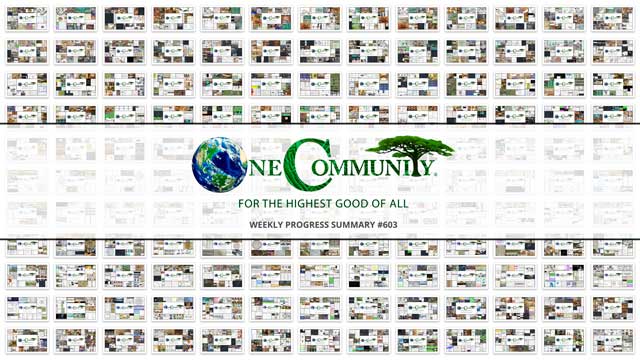
OUR MAIN OPEN SOURCE HUBS
Click on each icon to be taken to the corresponding Highest Good hub page.
One Community’s physical location will forward this movement as the first of many self-replicating teacher/demonstration communities, villages, and cities to be built around the world. This is the October 7th, 2024 edition (#603) of our weekly progress update detailing our team’s development and accomplishments:
Becoming the Most Reparative Element
One Community Progress Update #603
DONATE | COLLABORATE | HELP WITH LARGE-SCALE FUNDING
CLICK HERE IF YOU’D LIKE TO RECEIVE AN EMAIL EACH WEEK WHEN WE RELEASE A NEW UPDATE
YOU CAN ALSO JOIN US THROUGH SOCIAL MEDIA
ONE COMMUNITY WEEKLY UPDATE DETAILS
HIGHEST GOOD HOUSING PROGRESS
 One Community is becoming the most reparative element through Highest Good housing that is artistic and beautiful, more affordable, more space efficient, lasts longer, DIY buildable, and constructed with healthy and sustainable materials:
One Community is becoming the most reparative element through Highest Good housing that is artistic and beautiful, more affordable, more space efficient, lasts longer, DIY buildable, and constructed with healthy and sustainable materials:
- Learn about: Our Upcoming Crowdfunding Campaign
- Learn about the different village models: 7 Sustainable Village Models
- Visit the open source portals for the first two: Earthbag Village OS Hub | Straw Bale Village OS Hub
This week, Adefola (Fola) Madehin (Electrical Design Specialist) continued his work with Earthbag Village electrical designs. Fola completed the lighting and power design for the first floor of the Earthbag Village 4 Dome Project. The design covered essential elements such as lighting fixtures, switches, cable wiring, exhaust fans, and kitchen hoods. Socket provisions were made for appliances including TVs, air conditioning units, dishwashers, washing machines, and electric cookers. A main electrical panel schematic diagram was also developed, outlining circuit connections and specifying cable. The Earthbag Village is the first of 7 to be built as the housing component of One Community’s open source model for becoming the most reparative element. See some of his work in the collage below.
Adil Zulfiquar (Engineer) continued working on the Vermiculture Toilet designs. This model aims to offer sustainable solutions that not only address waste processing but also enhance living standards by becoming the most reparative element. Adil held a discussion with the architect to evaluate the feasibility of widening the ramp and the factors involved. The wide-body trailer list page was updated to incorporate additional considerations and challenges. A list of electric winch options was explored and organized, followed by finalizing and verifying the calculations for winch requirements to load containers at various angles. Options for utility trailers were prepared, taking into account the new wide-body design requirement. Custom trailer options were researched and analyzed through discussions with vendors to better understand their offerings, while further insights were gained into the container loading and unloading processes. The Earthbag Village is the first of 7 to be built as the housing component of One Community’s open source model for becoming the most reparative element. See some of his work in the collage below. See below for some of the pictures related to this work.
Akshit Sethi (Architectural Designer) continued working on finalizing the interior of the Earthbag Village 4-dome home design. Akshit worked on the AutoCAD file to address the size discrepancies between the ramp and paths in the SketchUp and CAD files. In addition to resolving these inconsistencies, he focused on elevating the document to a professional standard, ensuring it aligned with the quality of existing drawings by One Community. His tasks included adding precise dimensions and correcting any issues related to sizes and standards, ensuring the file met all necessary specifications for further use. The Earthbag village is the first of 7 villages to be built as part of One Community’s open source model for becoming the most reparative element. See his work in the collage below.
Anil Karathra (Mechanical Engineer) continued working on the Vermiculture Toilet designs. Anil researched the forces involved in swinging a hammer for impact and developed a CAD model to calculate the space required under an eco-toilet cabin. He participated in a team meeting and worked on the finite element analysis (FEA) of a winch system. Additionally, he modified the task list by adding new sections and completed document formatting tasks. Anil recalculated previous numbers for a new FEA based on his research on the forces applied to swing a hammer. He also updated the hammer impact calculations in a slide for the vermiculture collaboration document. The approach of becoming the most reparative element enables the development of innovative solutions that are both environmentally friendly and effective. See below for some of the pictures related to this work.
Avery Hamilton (Mechanical Designer) continued working on finalizing the interior of the Earthbag Village 4-dome home design. Avery worked on developing a HAP model, documenting both the HAP assumptions and the envelope dimensions to ensure accuracy. The process included routing the rough-ins for plumbing systems, which required detailed planning to accommodate the building layout. Avery also created Revit risers for both domestic and sanitary piping systems, ensuring proper integration within the overall design. In addition to these tasks, Avery did research on the 2018 International Residential Code (IRC), focusing specifically on the requirements for residential range hoods and domestic water recirculation systems to ensure compliance with current regulations. The Earthbag village is the first of 7 villages to be built as part of One Community’s open source model for becoming the most reparative element. See his work in the collage below.
Charles Gooley (Web Designer) continued working on the Aircrete Engineering and Research: Compression Testing, Mix Ratios, R-value, and More page. He worked on the engineering steps, research, resources, and tools used to verify the safety of aircrete designs and structures. The tasks involved resizing and posting multiple images, adding links to several videos, and handling the resizing and posting of images for 64 mixing procedures. Aircrete is an alternative we’re exploring for the Earthbag Village, a foundational part of One Community’s open-source model for becoming the most reparative element. Take a look at some of this work in the images below.
Joseph Osayande (Mechanical Engineer) continued helping finish the Vermiculture Toilet engineering and design details. Joseph focused on enhancing the bill of materials (BOM) by adding images and providing more extensive details for each part, as well as a breakdown of the overall costs. A mesh was created for the main structure of the vermiculture chamber, followed by analysis to gather the required outputs. Additionally, the reports comparing the vermiculture systems and the walkthrough for the FEA analysis were converted to the default format required for One Community Global. The Earthbag Village is the first of 7 to be built as the housing component of One Community’s open source model for becoming the most reparative element. See some of his work in the collage below.
Loza Ayehutsega (Civil Engineer/Assistant Civil Engineer) completed another week working on the Earth Dam risk assessment and dam break hazard assessment. Loza followed webinars and conferences about dam safety engineering. She is a member of ICOLD (International Commission on Large Dams). The International Commission on Large Dams (ICOLD) is a prominent international non-governmental organization dedicated to professionally sharing information regarding large dams. Dam safety engineering is a critical field that focuses on the design, evaluation, monitoring, and rehabilitation of dams to ensure their integrity and the safety of surrounding communities. This discipline encompasses various methodologies, risk management practices, and technological solutions that aim to reduce the likelihood of dam failures and their associated consequences. Ensuring dam safety measures and preparedness are a foundation of One Community’s open source earthworks as part of becoming the most reparative element. See the pictures below for examples related to her work.
Michaela Silva (Architect) continued working on finalizing the interior of the Earthbag Village 4-dome home design. Michaela focused on coordinating the updated 4-dome floor plans with the MEP and Roof Deck teams, and confirmed that the team was using the correct structural plan. She also reviewed electrical drawings and schedules to ensure they aligned with the architectural plan. In addition to this coordination, Michaela continued updating the plan views to incorporate the latest design changes. The Earthbag village is the first of 7 villages to be built as part of One Community’s open source model for becoming the most reparative element. See her work in the collage below.
Yagyansh Maheshwari (Mechanical Engineer) continued helping finish the Vermiculture Toilet engineering and design details. Yagyansh worked on reducing the bolt length to the minimum, and the bolt was replaced with a lock bolt where required. The fit of the drawer to the dome was checked, and finite element analysis (FEA) was performed on the drawer to assess its capacity to handle the weight and the pulling force of the winch. The Earthbag Village is the first of 7 to be built as the housing component of One Community’s open source model for becoming the most reparative element. See some of his work in the collage below.
Yuxing Xu (VFX Artist) continued working on making videos for the Earthbag Village 4-dome home design. Yuxing focused on the updated building model, receiving the obj file and improving the geometry by separating material layers and fixing mesh openings. He imported the model into Unreal Engine for material assignment and made adjustments to the surrounding environment, with particular attention to refining the shape of the pond.The Earthbag Village is the first of 7 to be built as the housing component of One Community’s open source model for becoming the most reparative element. See some of his work in the collage below.
Yuze Tang (Architect) started working on Vermiculture Toilet designs. Yuze focused on three primary tasks. The first task involved finalizing the aesthetic enhancements to a spreadsheet, excluding Joseph’s table, as it was noted in last week’s meeting that Joseph would handle that section. Next, Yuze initiated a new spreadsheet aimed at analyzing cost reduction for a drawer project. This involved constructing the table and transferring data from the CAD file. The final task entailed researching the development of home biogas systems, with plans to compile the findings into a Word document. The approach of becoming the most reparative element enables the development of innovative solutions that are both environmentally friendly and effective. See below for some of the pictures related to this work.
EARTHBAG VILLAGE 4-DOME ROOF TEAM
The Earthbag Village 4-dome Roof Team was managed by Khushboo Parmar (Project Manager) and includes Karthik Pillai (Volunteer Mechanical Engineer) and Yusuf Thanawala (Structural Engineer). The Earthbag Village forms the basis of One Community’s open source model for becoming the most reparative element. This week, Khushboo led the Earthbag Village MEP bi-weekly meeting, concentrating on team communication to initiate the project’s HVAC component while ensuring alignment between mechanical and architectural aspects. The meeting addressed blockers and questions to facilitate project progress. Additionally, she chaired the 4-Dome Cluster Roof weekly meeting, where she ensured project alignment and established next steps. Khushboo also handled administrative tasks, including verifying that all team members had access to project documents. Khushboo also manages Michaela Silva, Adefola Madehin, Prarthana Jathar, and Avery Hamilton. Karthik did a wood FEA analysis using Tekla software, exploring its functionalities through tutorials to effectively tackle current design challenges and enhance structural analysis. Yusuf completed his STAAD model and is currently working on the report elements for the 4-Dome structural report, referencing similar previous calculations from the project and planning to include STAAD verification calculations. He aims to complete this task by Sunday and will forward it for review to all involved. The Earthbag village is an integral part of One Community’s open source model for becoming the most reparative element. See their work in the collage below.
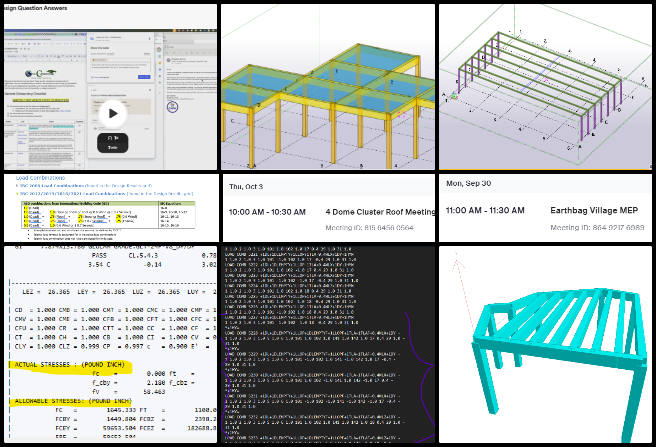
DUPLICABLE CITY CENTER PROGRESS
 One Community is becoming the most reparative element through a Duplicable and Sustainable City Center that is LEED Platinum certified/Sustainable, can feed 200 people at a time, provide laundry for over 300 people, is beautiful, spacious, and saves resources, money, and space:
One Community is becoming the most reparative element through a Duplicable and Sustainable City Center that is LEED Platinum certified/Sustainable, can feed 200 people at a time, provide laundry for over 300 people, is beautiful, spacious, and saves resources, money, and space:
- Learn about this building and it’s function in becoming the most reparative element: Duplicable City Center Open Source Hub
This week, Arnob Mutsuddi (Mechanical Engineer) continued working on Duplicable City Center structural engineering model and details. He studied the Traditional Dome vs. City Center Dome Structural Engineering Loading Comparison Report and attended a meeting to outline the next steps for the project. A work plan for the week was divided during another team meeting. Assistance was provided to a new team member with finite element analysis (FEA). Previous wind load test results were reviewed and integrated into the new iteration. A new flow simulation analysis was initiated on SolidWorks for 80 mph wind loads and completed. Work on a new flow simulation analysis for 150 mph wind loads is ongoing. The Duplicable City Center is a foundational part of One Community’s open-source model, which excels in becoming the most reparative element. This approach is integral to their mission of becoming the most reparative element through innovative and scalable solutions. See some of this work in the pictures below.
Chris Blair (GIS Technician/Horticulturist) continued working with GIS data as part of One Community’s Permaculture Design that includes the location of the Duplicable City Center. He worked with GIS data as part of One Community’s Permaculture Design. He used QGIS, an open-source GIS software, to recreate previous work from proprietary software for improved data access. He enhanced the accuracy of digitized villages on the map, imported PDFs of the city center and villages into QGIS, geo referenced them to create raster data, and digitized both structures and land footprints. He also researched methods for obtaining wind data and different types of wind maps. Within One Community’s open-source framework, the Duplicable City Center plays a central role in becoming the most reparative element. The images below showcase some of this work.
Faeq Abu Alia (Architectural Engineer) continued his work on the Duplicable City Center kitchen shelving and adding dry-storage food items. He focused on addressing feedback related to rooms 4 through 8 in SketchUp by enhancing their visual appearance with additional design elements and rendering them in Lumion. The tasks involved refining specific details in each room to improve their overall presentation. Faeq also completed the walkthrough videos for these five rooms using Lumion, ensuring they accurately reflected the updates made. The Duplicable City Center represents a fundamental element of One Community’s open-source approach, dedicated to becoming the most reparative element. View examples of this work in the pictures provided below.
Nika Gavran (Industrial Designer) continued her work on the Duplicable City Center dormer window installation plans. She focused on expanding the final document for the dormer window instructions by incorporating rock wool insulation into the instructions. She removed shadows from images and arranged all re-rendered images into an appealing layout. Additionally, Nika added a materials section for the insulation and compiled all the slides for the document. As a foundational component of One Community’s open-source strategy, the Duplicable City Center is designed for becoming the most reparative element. The images below showcase some of this work.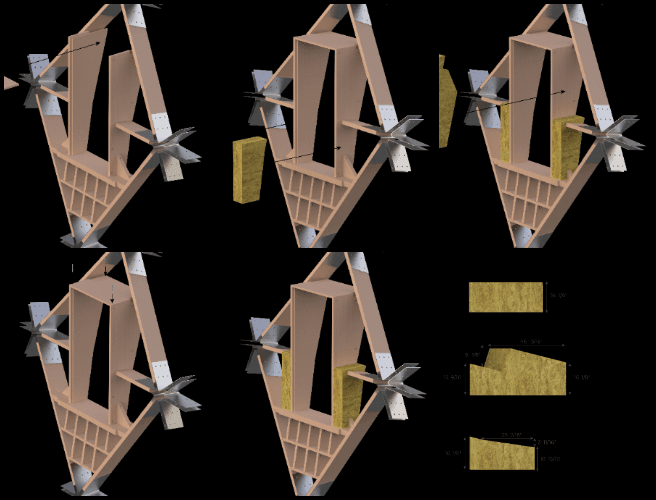
Tasmia Hasan (Design Engineer) continued her work on the structural engineering of the Duplicable City Center. She worked on the hub connector design before receiving clarification from Jae and Rachan. After discussing with the team, a plan was developed for the finite element analysis (FEA). Tasmia then progressed to working on the seismic analysis of the frame, referencing YouTube tutorials and adding constraints to the frame design. As a foundational component of One Community’s open-source strategy, the Duplicable City Center is designed for becoming the most reparative element. You can see examples of this work in the following images.
Umema Ali (Mechanical Design Engineer) began working on the Duplicable City Center Engineering. She performed Finite Element Analysis (FEA) on the vertical load for both the new dome structure and the traditional dome structure. Umema continued her progress by working on the structural analysis of the traditional dome, focusing on defining the boundary conditions and creating the mesh. Additionally, she initiated static analysis of the traditional dome to verify structural integrity. Within One Community’s open-source framework, the Duplicable City Center plays a central role in becoming the most reparative element. The images below showcase some of this work.
Yancong E (Architectural Designer) continued working on the Duplicable City Center project. He checked the USGBC website to find the specific requirements for Quality Views and the criteria for earning points. He continued working in AutoCAD to calculate the Outdoor View percentage for each room, completing the illustration and calculation for all three domes. Additionally, he compared the floor plan with the SketchUp model to identify areas that need adjustments. The Duplicable City Center represents a fundamental element of One Community’s open-source approach, dedicated to becoming the most reparative element. This innovative initiative aims to showcase how becoming the most reparative element can transform urban spaces into more sustainable and community-oriented environments. You can see examples of this work in the following images.
HIGHEST GOOD FOOD PROGRESS
 One Community is becoming the most reparative element through Highest Good food that is more diverse, more nutritious, locally grown and sustainable, and part of our open source botanical garden model to support and share bio-diversity:
One Community is becoming the most reparative element through Highest Good food that is more diverse, more nutritious, locally grown and sustainable, and part of our open source botanical garden model to support and share bio-diversity:
- Learn about the structures: Hoop House Hub | Aquapini & Walipini Open Source Hub
- See what we’ll be growing and becoming the most reparative element: Gardens & Hoop Houses | Large-scale Structures | Food Forest | TA
This week, the core team reviewed and finalized the entries in the Highest Good Energy Tools Equipment, Materials/Supplies document. They subsequently transitioned to the Highest Good Food Forest Tools, Equipment, Materials/Supplies document, identifying and noting on the Master tools list the necessary items for inclusion in the Highest Good Food Forest document. With these actions, their contributions to the Highest Good Food Forest document are complete. The Highest Good Food initiative is a key component of One Community’s open source plans, dedicated to becoming the most reparative element. See their work in the collage below.
Jay Nair (BIM Designer) continued working on Aquapini and Walipini Planting and Harvesting lighting and HVAC design. He focused on refining the Design Guidelines for the Walipini 1 project, incorporating both passive and active design strategies. He expanded existing sections, such as Passive Solar Heating, Thermal Mass for Heat Storage, and an Optimized Floor Plan for Sun Penetration, using data from the 2030 Palette and Climate Consultant software to better suit the greenhouse’s needs. He also added detailed sections on Wind-Protected Outdoor Spaces, Window Overhangs and Sunshades, and Climate-Responsive Construction, ensuring the design is responsive to local climatic conditions. Additionally, Jay integrated sections on specific strategies like Earth Sheltering and Flat Roofs, with enhanced recommendations for material use, insulation, and solar reflectance tailored to optimize the greenhouse’s thermal performance and energy efficiency. Throughout the process, the goal was to create a well-rounded, climate-adaptive design that balances energy savings with ideal growing conditions for the plants. The Highest Good Food initiative is a key component of One Community’s open source plans, dedicated to becoming the most reparative element, and exemplifies the organization’s commitment to becoming the most reparative element through innovative design and implementation. Below are some of the images showcasing this work.
Surya Teja Anumolu (Volunteer Mechanical Engineer) started his work on the Highest Good Food most sustainable construction and agricultural equipment. He structured his research to identify the best equipment available on the market. His initial framework focused on three key areas: the sustainability goals of both One Community and equipment manufacturers and how well they align, the specific projects within One Community that require equipment, and the unique needs of each project to determine the most suitable equipment types. For example, the Highest Good Food project involves extensive construction activities, such as excavation, grading, and mowing, to prepare the sites for foundational work. Surya also explored similar projects online to find examples and scenarios showcasing the use of different types of equipment. The Highest Good Food initiative is a key component of One Community’s open source plans, dedicated to becoming the most reparative element. This approach is important to becoming the most reparative element and ensures alignment with the initiative’s goals. See his work in the collage below.
Xuanjun Liu (Landscape Designer) started to work on the Cloud Forest House Zenapini renderings in Lumion. The process involved setting up and adjusting the relevant software and model parameters, as well as importing the original SketchUp model into Lumion. Layers were divided for easier manipulation. The primary focus was on studying plant materials, referring to the original plant research and plan. She then searched the Lumion plant library and online resources to find appropriate plant model performances and organized preliminary tests on their appearance and arrangement to align with the existing design. Highest Good Food is key to becoming the most reparative element within One Community’s open source plans. See some of this work in the pictures below.
Ziyi Chen (Landscape Designer) continued working on the design of the outdoor spaces for the Aquapini and Walipini Planting and Harvesting structures. Based on the principle of food forest composition, the aromatic zone and flowering zone were merged, while the hidden treasure zone was eliminated and replaced with the distribution of rhizome plants across each zone. Additionally, a lower layer and a ground layer were added to the fruit tree area to satisfy the composition requirements of the food forest. Illustrations of the plant composition for each area were also provided, with trees categorized into seven groups based on diameter to represent different levels. The Highest Good Food initiative is a key component of One Community’s open source plans, dedicated to becoming the most reparative element. See her work in the collage below.
HIGHEST GOOD ENERGY PROGRESS
 One Community is becoming the most reparative element through Highest Good energy that is more sustainable, resilient, supports self-sufficiency and includes solar, wind, hydro and more:
One Community is becoming the most reparative element through Highest Good energy that is more sustainable, resilient, supports self-sufficiency and includes solar, wind, hydro and more:
- Learn about the open source sustainable-energy foundations: Solar, Hydro, and Wind
- Explore our research into the most sustainable products and companies for saving water and energy: Insulation, Eco-laundry, Lightbulbs and Light Bulb Companies, Doors and Door Companies, Windows and Window Companies, Toilets, Faucets and Faucet Accessories, Urinals, and more.
This week, Panambur Rachan Rao (Project Manager) focused on completing the Highest Good Energy webpage spreadsheet based on earlier feedback. He coordinated with Upasana to clarify work requirements and identified the missing elements in the HGE search bar and dropdown. Additionally, Rachan met with the Duplicable City Center team to collect their weekly updates, which he then reported to his executives. The Duplicable City Center team managed an analysis based on the feedback received earlier this week. Within One Community’s open-source framework, the Duplicable City Center plays a central role in becoming the most reparative element. Take a look at some of this work in the images below.
Viktoriia Zakharova (Administrative Assistant) updated information on sustainable lighting options for Duplicable City Center, focusing on Signify products and light bulbs available on Amazon. She revised the prices, availability, and characteristics of various light bulbs in the existing database. She also found new alternatives for step lights and floodlights that meet Duplicable City Center’s lighting and sustainability needs. Additionally, she interviewed five volunteer candidates for One Community and completed her regular administrative responsibilities. The Duplicable City Center represents a fundamental element of One Community’s open-source approach, dedicated to becoming the most reparative element. View examples of this work in the pictures provided below.
Yi-Ju Lien (Environmental Engineer) continued reviewing the content of the tutorial on Hydro Power/Energy Setup and Maintenance, offering suggestions for improvement. She focused on the cost analysis, revising the existing spreadsheet to enhance its accuracy. Additionally, she provided resources on the methodology for estimating costs of small-scale hydropower components, such as turbines, enabling users to calculate expenses, which is the necessary data when using the Hydropower Cost Estimate Worksheet. Within One Community’s open-source framework, the Duplicable City Center plays a central role in becoming the most reparative element. Take a look at some of this work in the images below.
HIGHEST GOOD EDUCATION PROGRESS
 One Community is becoming the most reparative element through Highest Good education that is for all ages, applicable in any environment, adaptable to individual needs, far exceeds traditional education standards, and more fun for both the teachers and the students. This component of One Community is about 95% complete with only the Open Source School Licensing and Ultimate Classroom construction and assembly details remaining to be finished. We’ll report on the final two elements to be finished as we develop them.
One Community is becoming the most reparative element through Highest Good education that is for all ages, applicable in any environment, adaptable to individual needs, far exceeds traditional education standards, and more fun for both the teachers and the students. This component of One Community is about 95% complete with only the Open Source School Licensing and Ultimate Classroom construction and assembly details remaining to be finished. We’ll report on the final two elements to be finished as we develop them.
With over 8 years of work invested in the process, the sections below are all complete until we move onto the property and continue the development and open sourcing process with teachers and students – a development process that is built directly into the structure of the education program and everything else we’re creating too:
- Program Overview: Education Open Source Hub
- How the components work together in becoming the most reparative element: How to use the Education for Life Program
- Lesson Plans for Life – Lesson Plans How-to
- Foundations of Outstanding Leaders, Teachers, and Communicators
- Curriculum for Life
- Teaching Strategies for Life
- Learning Tools and Toys for Life
- Evaluation and Evolution
This week, Apoorv Pandey (Mechanical Engineer) continued helping with the engineering details for the Ultimate Classroom part of the Highest Good education component. He continued working on the final draft of the Structural Engineering Report for the Ultimate Classroom Project. He focused on reformatting the report to ensure it was easily understandable by engineers and laypersons, providing clearer explanations for sections such as the project scope, calculations, and analysis. He did additional research to improve the clarity and articulation of certain sections. Apoorv also referenced other published pages on One Community’s website to guide his work. The One Community model of combining forward-thinking education with sustainably built classrooms like this is an excellent example of becoming the most reparative element. This approach exemplifies becoming the most reparative element by creating environments fostering collaboration and innovation. See the collage below for his work.
Vimarsh Acharya (Engineering Manager and Technical Reviewer) continued helping with the engineering details for the Ultimate Classroom part of the Highest Good education component. He updated a document titled “Most Sustainable Paints, Primers, Varnishes, Stains, and Sealers” to reflect recent changes and new information. Following this task, he began working on converting various YouTube video files into audio format. This work involved extracting audio tracks from the selected videos to facilitate easier access and consumption of the content. The tasks were approached systematically to ensure accuracy and efficiency. The One Community model of combining forward-thinking education with sustainably built classrooms like this is an excellent example of becoming the most reparative element. See the collage below for his work.
HIGHEST GOOD SOCIETY PROGRESS
 One Community is becoming the most reparative element through a Highest Good society approach to living that is founded on fulfilled living, the study of meeting human needs, Community, and making a difference in the world:
One Community is becoming the most reparative element through a Highest Good society approach to living that is founded on fulfilled living, the study of meeting human needs, Community, and making a difference in the world:
- Read the Highest Good society overview: Highest Good Society
- Learn about the model for fulfilled living and sharing: A Day in the Life
- Learn about the 4 economic models: RBE | For-profit | Non-profit | Entrepreneurship
- Learn about the most sustainable stewardship practices for small and large-scale community recycling, reuse, and repurposing options covering Clothing, Paper, Plastic, Glass, Styrofoam, and Non-recyclables
This week, the core team completed over 68 hours managing One Community’s volunteer-work review not included above, emails, social media accounts, web development, new bug identification and bug-fix integration for the Highest Good Network software, and interviewing and getting set up new volunteer team members. They also shot and incorporated the video above that talks about becoming the most reparative element and how becoming the most reparative element is a foundation of the bigger picture of everything One Community is doing. The image below shows some of this work.
Anoushka Hazari (Data Analyst) completed the code for automated notifications and is waiting to receive the Slack API to test it, as notifications will be sent there. Despite encountering errors while integrating with the Google Sheets API, she actively worked to resolve them. To better understand the project, Anoushka watched PR clarification and Loom videos. Additionally, she began learning Figma and set up her Google Cloud Console account to enable real-time data processing for the sheet. Following YouTube tutorials and consulting ChatGPT, she obtained the API key for live updates. This work helps One Community’s mission of becoming the most reparative element and reinforces our commitment to becoming the most reparative element. The following images show her work for the week.
Deepthi Arcot Subramanyam (Data Analyst) completed the final portion of the training by reviewing the administrative work of peer admins, as well as blogs and weekly summaries. She participated in an Admin promotion call with Jae and joined both the Analytics and hiring teams, taking time to understand the work within those groups. Additionally, Deepthi had a call with Riddhisha and had another call with the new Google Analytics team to plan the upcoming strategy and provided an overview of Web Analytics to the team. Additionally, She also spent time learning about the web and Google Analytics while working on the weekly summary. This work helps One Community’s mission of becoming the most reparative element and reinforces our commitment to becoming the most reparative element. The following images show her work for the week.
Feras Rehman (Data Analyst) continued working on developing One Community’s Mastodon account and strategy. He also managed his part of the One Community Updates Blog and collages, and reviewed the work of Sneka, Rahul, Mrudula, Riddhisha, and Jessica, providing feedback on the errors identified. Seven additional Mastodon posts were scheduled on buffer for the next week. He also reviewed several Mastodon pages focused on environmental sustainability, gaining insights into optimizing post reach through effective structure and relevant hashtags. A mini case study has been started to analyze the impact of these strategies on engagement, particularly around topics like climate action and eco-friendly practices. Images were added to supplement the weekly summary. This work helps One Community’s mission of becoming the most reparative element and reinforces our commitment to becoming the most reparative element. The following images show his work for the week.
Hritvik Mahajan (Data Analyst) worked on Michael’s blog post by creating content and a collage, providing comments on team documents, and reviewing Riddhisha’s work. He prepared content for posting and scheduled posts for the following day. Additionally, he researched platforms for Twitter analytics and post-scheduling on BlueSkySocial, shared findings with Jae, and explored ways to increase engagement. Hritvik compiled a list of communities on Twitter and tested engagement by posting 2-3 posts in selected communities. Additionally, He tested several pull requests on the development site, managed tags, and followed up with team members on Slack. He also gathered screenshots of social media analytics and post-scheduling tools to create mockups for software development. This work helps One Community’s mission of becoming the most reparative element and reinforces our commitment to becoming the most reparative element. The following images show his work for the week.
Jiaqi Wu (UX Designer) participated in a team meeting with Yash, engineers, and other designers to facilitate project progress. The team discussed data visualization for a Netflix-like data tracking system and identified areas for improvement. Jiaqi contributed to discussions on how to enhance clarity, including modifying color schemes and adding filters to make the information more accessible. Additionally, she collaborated with other designers on aspects of the design system, exploring potential improvements and ensuring consistency across the project. This work helps One Community’s mission of becoming the most reparative element. The following images show her work for the week.
Masoom Ahmed Siddique (Senior Network engineer) focused on the Highest Good Network software for selecting the right SSL certificate, ensuring proper installation, and configuring settings for optimal security. This included generating private keys, addressing renewals, and resolving issues. Additionally, he worked on software updates, database optimization, load balancing, caching, and server resource management while transferring an SSL certificate from Azure to Bluehost and using Cloudflare for enhanced security. This work supports One Community’s mission and reinforces our commitment to becoming the most reparative element. The images below showcase his work for the week.
Nidhi Mange (Data Analyst) worked on SEO optimization tasks on WordPress, created collages, and wrote individual summaries for content updates. She also focused on various aspects of Google Analytics and Google Ads strategy, moving the documented steps from ‘Praneeth Kruthiventi – One Community Google Ads Strategy’ into the ‘Social Media: One Community Social Media Analytics Setup, Interpretation, and Evolution’ document to create a new campaign, including ad groups, keywords, headlines, and descriptions, while formatting the content and reviewing the social media page. She watched tutorial videos on Google Analytics to enhance her understanding and made notes for the team’s reference in the Google AdWords document. She attended a meeting with Riddhisha and the team to discuss the next steps for the Google Analytics project and later reviewed the document shared by Jae. In her meeting with Akilan, she helped clarify his doubts about AdWords and assisted with administrative tasks. This work supports One Community’s mission and reinforces our commitment to becoming the most reparative element. By enhancing our skills and collaboration, we are dedicated to becoming the most reparative element in our community initiatives. The images below showcase her work for the week.
Praneeth Kruthiventi (Volunteer Data Analyst) published two Google Ads campaigns focused on Sustainable Products and Companies, and Best Recycling Categories. He identified relevant keywords, headlines, and descriptions to develop 17 Google Ad Groups across both campaigns, which are now published. He discussed the launch strategy with Jae, moving forward with these campaigns while monitoring performance to optimize the Google Ads account. He documented each step and decision during the development of the marketing strategy for future training use. In addition, he reviewed the training exercises completed by new volunteers and assisted in the hiring process. This work supports One Community’s mission and reinforces our commitment to becoming the most reparative element. The images below showcase his work for the week.
Rahul Bavanandan (Data Analyst) dedicated time to expanding his presence on Reddit by actively participating in discussions within several subreddits. He focused on commenting thoughtfully on various posts to increase his comment karma and become a more recognized member of certain communities. This strategy is intended to lay the groundwork for him to engage more deeply in conversations and contribute original content that aligns with One Community Global’s mission. Additionally, he continued his focus on code reviews, providing feedback to three individuals across four different teams: Team Expressers, Team Skye, Binary Brigade, and Society K-Z Individuals. He added the weekly summaries and collages to the webpage, fulfilled conditions on the review table, and reviewed summaries and pictures, providing feedback. This work supports One Community’s mission and reinforces our commitment to becoming the most reparative element. The images below showcase his work for the week.
Shireen Kayal (Humanitarian Program Developer & Data Manager) updated 17 book pages according to the specified requirements, edited the video, removed unnecessary slides, and adjusted the music track, shortening the video’s duration to 9 minutes and 55 seconds. She also removed page numbers from the book pages and added a scrolling effect. This work supports One Community’s mission and reinforces our commitment to becoming the most reparative element. The images below showcase her work for the week.
Shrinivas Patil (Software Engineer) completed his blog 602 and provided feedback for each individual in Team MoonFall. He reviewed the work of three other admins, giving feedback on their summaries, images, and video submissions. He also assisted Sara in completing her admin feedback spreadsheet by reviewing other admins’ PDFs and blogs. He also worked on frontend testing on several pull requests and provided feedback, helping the development team merge open PRs into the development platform. He worked on the user manual, adding content and submitting it for review, and completed the user manual section for the profile page of the application. Additionally, he reviewed the work of new trainees and provided feedback on their admin tasks, which is vital to becoming the most reparative element in our community efforts. This work supports One Community’s mission and reinforces our commitment to becoming the most reparative element. The images below showcase his work for the week.
Shuddhendu Mishra (Software Engineer) worked on analyzing various MongoDB collections and their relationships. He manually reviewed each collection and its respective fields to understand how the data is stored and connected. This work supports One Community’s mission and reinforces our commitment to becoming the most reparative element. The images below showcase his work for the week.
Vatsal Mendpara (Security Analyst) worked on contacting the Bluehost and Hostinger teams to find solutions for cost management and service optimization. He is creating a detailed report for the team regarding an existing problem and potential solutions, while also checking Bluehost’s server status and settings. He further investigated the cause of a server outage, researched faulty plugins and their alternatives, and began checking server security measures based on information provided by Aravind. Vatsal also worked on regular log checks, looking for anything suspicious, and assisted Aravind with firewall layout and server maintenance. This work supports One Community’s mission and reinforces our commitment to becoming the most reparative element. The images below showcase his work for the week.
Venkata Jaya Pavan Naru made website adjustments, cleared the cache, and investigated Bluehost hosting performance issues. After identifying a corrupt plugin, “blackhole-bad-bots,” causing 404 errors, a Bluehost agent removed it, re-scanned the site, and updated permalinks. PHP tweaks and memory limit increases were applied for performance. He also explored new hosting providers for better service at a lower cost. This work supports One Community’s mission and reinforces our commitment to becoming the most reparative element. The images below showcase his work for the week.
Yash Shah (Data Analyst and Team Administrator) created a blog for Dev Dynasty and reviewed the contributions of other volunteers. He led the weekly call for Phase 3 development, where he provided feedback on the Figma design and shared his perspectives on key deliverables outlined in the ‘HGN Phase III: Social Architecture’ document. He also updated the Phase 3 deliverables, incorporating feedback, resource tracking, engagement strategies, and communication features. Additionally, Yash recommended essential features along with UX ideas to enhance the overall user experience. This work supports One Community’s mission and reinforces our commitment to becoming the most reparative element. The images below showcase his work for the week.
ADMINISTRATION TEAM A-O
The Administration Team’s summary, covering their work administrating and managing most of One Community’s ongoing process for becoming the most reparative element was managed by Muhammad Huzaifah (Administrative Assistant) and includes Akilan Kumaran (Data Analyst), Durgeshwari Naikwade (Data Analyst), Jessica Fairbanks (Administrative Assistant), Kishan Sivakumar (Administrative Assistant and Software Team Manager), Michael Juma (Administrative Assistant), Mrudula Chavali (Administrative Assistant and Data Analyst), and Olawunmi “Ola” Ijisesan (Administrative and Management Support). This week, Akilan followed up on last week’s reviews, revisited the after-training document, and met with Jae to discuss team allocation and clarify training process questions. He created an account as outlined in the document, watched a tutorial on starting the testing process, and reviewed Google Analytics training materials. Akilan also held a Zoom meeting with team members to better understand task progression and met with Nidhi to discuss Google Analytics and AdWords, receiving assistance on administrative tasks. Huzaifah completed his weekly administrative tasks, reviewed fellow volunteers’ work, and provided feedback, becoming the most reparative element in enhancing team collaboration and productivity. In his project manager role, he assisted his team with their work and time-logging process, reviewed Rachan’s feedback, and ensured relevant volunteers were present in the blog, forwarding discrepancies to Sara. Durgeshwari attended the Google Analytics team’s weekly meeting, reviewed documents and videos shared by Jae, created LinkedIn posts, and provided feedback to new trainees to help improve their communication and project development. She also did research on analytics and strategy development to focus on becoming the most reparative element in the project’s overall framework. Jessica continued her work on integrating Highest Good Food into small-scale organizations by adding content on the sustainability, community-building, educational, and permaculture benefits of the program. She collaborated with a new volunteer on Transition Kitchen content and completed her administrative tasks while providing feedback to fellow administrators. Kishan focused on senior admin duties, reviewed volunteer documents for progress, and addressed requests. He completed final checks on 40 SEO pages, worked on newly assigned admin tasks, and revisited previously optimized pages based on peer feedback. Michael prepared and uploaded the weekly summary into the HGN dashboard, updated content, and removed outdated information related to paints and varnishes, assessing product market presence and improvements. He also reviewed and followed up on time logs and tasks completed by a team member (Chris) on the GIS Project. Mrudula worked on her weekly blog, reviewed the work of volunteers, provided feedback, and followed up with her team on PR Review updates. She reviewed and edited technical documents, focusing on format and content, including the Footprints of Villages and Community Center, Ultimate Classroom Footer, Foundation and Flooring Design, and Light Bulb Webpage Updated Content. Ola scheduled a Pinterest image upload live stream, resized images for clarity, and supervised the PR teams to ensure quality standards were met. She addressed necessary changes and monitored training sessions while providing additional guidance to a new team member in the PR admin review manager role. One Community’s model for becoming the most reparative element includes developing and maintaining a supportive administration team like this. You can see the work for the team in the image below, showcasing our commitment to becoming the most reparative element.
ADMINISTRATION TEAM R-Z
The Administration Team’s summary, covering their work administrating and managing most of One Community’s ongoing process for becoming the most reparative element was managed by Sneka Vetriappan (Data Analyst) and includes Rachna Malav (Data Analyst), Ratna Meena Shivakumar (Data Analyst and Admin), Riddhisha Chitwadgi (Administrative Assistant), Saumit Chinchkhandi (Administrative Assistant and Software Engineer), and T R Samarth Urs (Data Analyst). This week, Rachna interviewed three candidates for a volunteer role, documented the meetings in the hiring spreadsheet, wrapped up SEO pages, and checked with admins regarding final page reviews. Ratna focused on preparing the weekly summary and creating collages for blog posts related to the Education, Core, and Highest Good Society teams. She reviewed and optimized blogs for SEO, refined the One Community Avatar page, scheduled social media posts, and researched Instagram threads for optimization. Ratna also reviewed Google Analytics documentation to enhance website performance , with the goal of the site becoming the most reparative element in the overall user experience. Riddhisha worked on marketing and SEO updates for past blogs, analyzed Google Analytics data, and reviewed strategy documents. She handled administrative tasks for blog #602, provided feedback, collected images, and worked with the housing and earthbag village teams. Saumit interviewed a candidate for the admin team, worked on frontend testing for numerous PRs, communicated with developers, reviewed PRs from volunteers, and followed up on suggested changes. He also updated his WordPress page with team summaries and collages. Sneka reviewed timelogs, SEO pages, and feedback from teammates, managed tutorials, and added summaries and collages to the webpage. Samarth managed a PR review team, evaluated their work, provided feedback, and summarized their efforts in a blog post that included collages. One Community’s model for becoming the most reparative element includes developing and maintaining a supportive administration team like this. You can see the work for the team in the image below, showcasing our commitment to becoming the most reparative element.
GRAPHIC DESIGN TEAM
The Graphic Design Team’s summary was managed by Zuqi Li (Administrative Assistant and Economic Analyst) and included Anusha Tariq (Graphic Designer), Jaime Yao (Creative Technologist) and Ritu Damani (Graphic Designer), covering their work on graphic designs for becoming the most reparative element. This week, Anusha completed the web upload for an announcement, ensuring correct SEO settings and the inclusion of necessary links. The announcement was formatted with cropped and expanded images of the required dimensions, and a bio picture was edited to meet specifications. An issue with Dropbox access was reported, and a link for the images was provided as an alternative. Jaime focused on creating visual content for One Community, centered on becoming the most reparative element in fostering sustainability and community empowerment. Several ideas were developed, including “A Puzzle of Solutions,” “Blocks of Progress,” and “Building the Future.” In “A Puzzle of Solutions,” puzzle pieces depicting sustainable technologies formed a vibrant Earth, while “Blocks of Progress” featured a construction worker stacking glass blocks symbolizing community efforts. “Building the Future” showed a group of people assembling a city skyline puzzle with each piece representing projects like green rooftops, wind farms, schools, and recycling centers. These visuals captured the spirit of collective action toward a sustainable future. Ritu created two volunteer announcement posts and completed three social media posts, with a fourth in progress. She also edited and updated the tree house village book based on feedback and was assigned additional tasks. See the Highest Good Society pages for more on how this contributes to becoming the most reparative element. See the collage below to view some of their work.
HIGHEST GOOD NETWORK PROGRESS
 One Community is becoming the most reparative element through open source Highest Good Network® software that is a web-based application for collaboration, time tracking, and objective data collection. The purpose of the Highest Good Network is to provide software for internal operations and external cooperation. It is being designed for global use in support of the different countries and communities replicating the One Community sustainable village models and related components.
One Community is becoming the most reparative element through open source Highest Good Network® software that is a web-based application for collaboration, time tracking, and objective data collection. The purpose of the Highest Good Network is to provide software for internal operations and external cooperation. It is being designed for global use in support of the different countries and communities replicating the One Community sustainable village models and related components.
- Learn about our open source community collaboration and management software: The Highest Good Network
This week, the core team continued their work on the Highest Good Network PRs testing, confirming the fixed PRs and resolving several issues. Included for the week was the creation of the Quick-setup function permission (PR 2374 and PR 1078), replacement of the Badge Assignment search function (PR 2539), correction of invalid password alerts displaying appropriately (PR 2549), addition of permission buttons for components (PR 2512), fixing date validation to ensure the “To” date is later than the “From” date (PR 2587), and resolving page freeze issues when editing team names on the Team Management page (PR 1087 and PR 2627). These improvements contribute significantly to the overall user experience, becoming the most reparative element in addressing past issues. Additional fixes included improvements to the Tasks Contributed section on the People Reports page (PR 2651 and PR 2707), UX improvements for the Weekly Summary (PR 2622), and disabling the Badge Assignment tab unless a user has permission to assign badges (PR 2548). However, some issues remain unresolved, such as the reversion of the “Tasks” tab to the “Current Week Timelog” tab for volunteer accounts (PR 2342), indefinite loading indicators when creating new projects (PR 2596), a start date issue in the Add Task modal (PR 2335), and the scrollbar issue on the Team Management page (PR 2492), the need to manually refresh the page after deleting a team (PR 2728). Additionally, they logged 1 hour of tangible time for “CoreTeam TesterAgain” to test Core Team email hours (PR 958) and reported a problem with the Owner account’s inability to change other users’ passwords. We continue to focus on becoming the most reparative element through iterative improvements and user-centric solutions. See the Highest Good Society and Highest Good Network pages for more on how this relates to becoming the most reparative element. The collage below shows some of their work.
ALPHA SOFTWARE DEVELOPMENT TEAM
The Alpha Team’s summary, covering their work on the Highest Good Network software software was managed by Lin Khant Htel (Frontend Software Developer) and includes Anand Seshadri (Software Engineer), Jordy Corporan (Software Engineer) and Vishnu Priya Atheti (Software Developer). The Highest Good Network software is how we will manage and measure our processes for becoming the most reparative element across our social architecture, construction, production, and maintenance processes. This week, Lin reviewed and approved PR #2739, familiarizing himself with the codebase and running tests on his local machine, where all 9 test cases passed. He also reviewed the weekly summaries, photos, and videos submitted by his Alpha team members. Anand worked on improving the test case for badge validation in BadgeManagement.test.js, updating it to reflect the correct messages after changes were made to the original file, and merged PR 2740. He also fixed the date issue in the Edit Time feature while adding tasks, with those changes merged as well. Additionally, Anand resolved and merged merge conflicts related to the suggestion counter and dark mode in PR 2250. He began testing user profile features, focusing on assigned and subscribed sets, validating general texts, active popups, and component mounts, ultimately becoming the most reparative element in the team’s development process. Jordy made steady progress by reviewing additional pull requests, particularly on unit tests for the frontend impacting state management, enhancing his understanding of testing best practices and guidelines. Priya focused on reviewing the Phase III documentation guide and related resources, along with exploring the Figma design documentation for the application’s screens, which helped her gain a better understanding of the application’s functionality, design principles, and overall project requirements. See the Highest Good Society and Highest Good Network pages for more on how this relates to becoming the most reparative element. View some of the team’s work in the collage below.
BINARY BRIGADE SOFTWARE DEVELOPMENT TEAM
The Binary Brigade Team’s summary overseeing advancements in the Highest Good Network software was managed by Anirudh Sampath Kumar (Software Developer) and includes Aaryaneil Nimbalkar (Software Developer), Abhinav Ankur (Software Engineer), Ashay Kalpesh Mehta (Software Engineer), Ashmita Pandey (Software Engineer), Deepthi Kannan (Software Engineer), Huijie Liu (Software Engineer), Sai Venkatesh Voruganti (Volunteer Software Engineer), Sriram Seelamneni (Software Engineer), Vigneshwar Muriki (Software Engineer), Xiaolu Li (Software Engineer) and Ziyu Chu (Volunteer Software Engineer). The Highest Good Network software is how we’ll be managing and objectively measuring our process for becoming the most reparative element through our social architecture, construction, production, and maintenance processes.
This week, Aaryaneil continued work on transitioning the website to the highestgood.com domain by researching efficient methods for the domain move. He gained access to Cloudflare and Netlify to manage the domain redirection and configured the subdomain old.highestgood.com to maintain the Surge link. Aaryaneil created unit tests for actionItemsReducer.js, covering scenarios such as returning the action payload for the GET_ACTION_ITEMS action, handling unknown action types, and managing a null initial state. He also wrote unit tests for errorsReducer.js to handle cases like GET_ERRORS, CLEAR_ERRORS, and returning the correct state for unknown or missing actions. Additionally, he developed unit tests for handleSuccessReducer.js, including cases for handling REQUEST_SUCCEEDED, REQUEST_FAILED, unknown action types, and returning the default state when no action is provided. Abhinav worked on validating the functionality of the `ToggleSwitch` component using React Testing Library, becoming the most reparative element in ensuring a seamless user experience across the platform. All eight test cases passed, confirming that the component correctly renders different switch types, manages states, triggers the `handleUserProfile` function on state changes, and displays error messages for unknown switch types. The tests covered rendering, state behavior, and event handling effectively. Anirudh reviewed and approved three pull requests: PR 1114, PR 2738 & PR 2739 (which are related to each other), and PR 2740. For each, he performed unit testing, verified the code for adherence to the team’s coding standards, and focused on maintaining high code quality. In addition to this, Anirudh was added to the development team and worked on resolving a bug in HGN Phase 2. The issue involved the ‘Add Equipment’ page not redirecting to the equipment page after form submission. Anirudh identified the cause, implemented a fix, tested it, and raised a pull request (PR 2753) to address the problem, ultimately becoming the most reparative element in ensuring the project’s success and maintaining high code quality. Ashay implemented sorting based on the last modified item in the “Projects” section, ensuring that whenever he modifies a WBS or project name, the project moves to the top of the list as the most recently modified. He identified an issue where the project name change does not immediately reflect; the updated name only appears after clicking on the WBS and refreshing the page, while simply refreshing causes the project name to revert to its previous state. Ashay also noted that all fields in the categories section are appearing as undefined, preventing further actions. Additionally, clicking on “Inventory” redirects users back to the dashboard instead of the intended page, becoming the most reparative element in addressing these navigation issues.
Ashmita focused on addressing linting issues in the src/actions directory, using ESLint and other code formatting tools to improve code quality. She resolved errors and warnings, reducing the total from 368 to 251 across multiple files. These included allTeamsAction.js, authActions.js, badgeManagement.js, blueSquareEmailBCCAction.js, bmdashboard/invTypeActions.js, followUpActions.js, index.js, mouseoverTextAction.js, notificationAction.js, projectMembers.js, projects.js, reasonsActions.js, sendEmails.js, task.js, timeEntries.js, title.js, userManagement.js, userProfile.js, warnings.js, wbs.js, weeklySummaries.js, weeklySummariesAIPrompt.js, weeklySummariesReport.js, and weeklySummariesReportRecepients.js. Deepthi worked on resolving issues related to the weekly summaries page in PR 2246, testing both the existing PR and the development branch, making necessary changes, and updating in a new PR. She is also working on enhancing the Teams page by adding a title with an “i” icon and adjusting the alignment for improved interface, preparing to create a PR for these changes. Additionally, she is addressing feedback on PR 2426 based on the received reviews, becoming the most reparative element in the development process by continuously refining the user interface and ensuring high code quality. Huijie completed the recalculation of tangible hours by rechecking the async processing pattern in the fix PR and using Postman to initiate the recalculation task on the Azure server. She made an API call to trigger the task and later performed another API call to retrieve the status, confirming the task completion with a message and timestamp. Additionally, she worked on resolving error popups during user creation by fixing the backend code, ultimately becoming the most reparative element in the project by ensuring a seamless user experience. Sai worked on enhancing the performance of the blue square deletion feature in the Profile > Blue Square Section. Previous versions of the feature had issues, such as squares reappearing after deletion or not being deleted at all. To resolve these problems, Sai analyzed and debugged the underlying React and Node.js code to improve the reliability of the deletion process and provide a smoother user experience. Sriram worked on resolving merge conflicts in one of his pull requests to prepare it for merging and completed a re-review of another requested pull request. He began addressing a new task related to fixing the user_id bug and made progress on that. In addition, he re-visited the WBS unit testing task and reviewed feedback on the related pull request. While reviewing the progress on the bug fix, he started a new branch and made further progress, becoming the most reparative element in the team’s efforts to enhance the application’s functionality.
Vigneshwar focused on improving the testing coverage for Redux action creators and thunks were instrumental in becoming the most reparative element of the codebase. His work involved writing unit tests for the `getProjectReport` function and related action creators, such as `getProjectReportBegin` and `getProjectReportEnd`. Additional test cases were introduced to cover various execution scenarios, including ensuring that actions are dispatched in the correct sequence and handling potential failures. These tests also verify the proper handling of errors, such as when fetching project details or other resources fails, and confirm that no actions are dispatched if the projectId is invalid. In cases where partial data fetching fails, the test cases ensure the process continues for other parts while validating the payloads passed to dispatched actions, ultimately becoming the most reparative element in enhancing the system’s resilience and reliability. Vigneshwar also utilized `jest.spyOn` to track asynchronous dispatch calls, adding validation to the asynchronous behavior of the code. Xiaolu focused on optimizing the app for Firefox as part of the HGN Phase I Bugs and Needed Functionalities task. After testing the app’s functionality, data, and interface in Firefox, Xiaolu found that it performed consistently with Chrome, with no bugs identified so far. A video comparison was recorded and placed in the video summary folder. Additionally, Xiaolu encountered issues while running the app in Chrome. When logged in as an admin, attempting to delete a badge resulted in a failure and an error in the browser console. Similarly, when logged in as a volunteer and trying to save changes to badges, the browser console showed a 403 error. Screenshots of these issues have been uploaded to the week 3 folder for review, highlighting the need for robust troubleshooting measures that contribute to becoming the most reparative element in the app’s development process. Ziyu began working on bug-fixing tasks. She selected the task “Optimize the app for Edge” and is currently investigating whether there are any JavaScript errors in the console for both Chrome and Microsoft Edge. During this comparison, she identified some compatibility issues with the Edge browser as well as a bug on the profile page. Ziyu is now working on fixing the compatibility issues related to the Edge browser. See the Highest Good Society and Highest Good Network pages for more on how this relates to becoming the most reparative element. View some of the team’s work in the collage below.
BLUE STEEL SOFTWARE DEVELOPMENT TEAM
The Blue Steel Team’s summary, presenting their work on the Highest Good Network software was managed by Jingyi Jia (Software Engineer, Team Manager), and includes Cillian Ren (Software Engineer) and Ramakrishna Aruva (Software Engineer). The Highest Good Network software is how we’ll be managing and objectively measuring our process for becoming the most reparative element through our social architecture, construction, production, and maintenance processes. This week, Cillian worked on identifying and resolving issues with the project list functionality in the Highest Good Network project, concentrating on the root cause of errors in the archived project list. His efforts included troubleshooting, reviewing the codebase, and making necessary adjustments to ensure the project list displayed the correct data. Jingyi completed a follow-up pull request to gray out names on the leaderboard for individuals currently on time off and integrated a tooltip feature to provide clarity on the duration of time off. These updates were tested to ensure they met the specified requirements without introducing new issues. Meanwhile, Ramakrishna enhanced the rendering functionality of the weekly summary component by pulling the latest development updates and refactoring methods within class components into functional equivalents. See the Highest Good Society and the Highest Good Network pages to learn more on how their work contributes to becoming the most reparative element. See below to view images of their work.
CODE CRAFTERS SOFTWARE DEVELOPMENT TEAM
The Code Crafters Team’s summary, covering their work on the Highest Good Network software, was managed by Akilan Kumaran (Software Engineer) and includes Ambika Kabra (Software Engineer), Chetan Sunku (Software Engineer), Denish Kalariya (Software Engineer), Dhrumil Dhimantkumar Shah (Software Engineer), Muzammil Moahmmed (Software Engineer), Pavan Swaroop Lebakula (Software Engineer), Summit Kaushal (Backend Software Developer), Swaroop Udgaonkar (Software Engineer), and Yashwanth Pokala (Software Engineer). The Highest Good Network software is how we’ll manage and objectively measure our process for becoming the most reparative element through our social architecture, construction, production, and maintenance processes. This week, Ambika created pull request 2741 in the frontend repository and worked on fixing the “Set Final Day” function. She added a hotfix as per Jae’s request on Slack to address the issue of media URLs not being visible in user profile titles. Ambika also reviewed the implementation of the active status feature, set up a Google Cloud account, followed the setup instructions to create API keys using her personal email, and watched instructional videos related to Ivy’s pending work. Additionally, she reviewed the implementation of PR 1033 and other features, and attempted to configure emails using her personal Gmail account. Chetan revisited a previously resolved bug for a hotfix that had passed multiple reviews but could not be recreated by higher authorities. Upon further investigation, Chetan discovered that the solution, which had worked earlier, was no longer functioning and is continuing to investigate the issue, becoming the most reparative element in the team’s efforts to maintain system stability. Denish completed five pull request reviews and transitioned to the Software Development team under Summit’s supervision. He reviewed the Phase 1 and Phase 2 documentation, selected the implementation of sorting and searching functionalities for the Project Details view, and shared his plan with Jae for the next steps. Muzammil joined Code Crafters as a software engineer and connected with the team manager to understand processes such as pull requests, bug fixing, and unit testing, ultimately becoming the most reparative element by reviewing key documents related to the HGN phases. Pavan worked on reducing vertical space usage in the Dashboard Task’s “Edit” formatting and investigated a date selector issue on Mac devices, though the issue could not be reproduced. Swaroop completed adding a notification feature for new project creation and reviewed Diya’s pull requests while researching relevant JavaScript functions for his next task. He also followed up on team members’ submissions through Slack and direct messages as part of his responsibilities as a Manager in Training. Dhrumil worked on unit test cases for UserManagement.jsx and contacted Jae to resolve a permission access issue before moving on to Teams.jsx unit test cases. Yashwanth continued working on the “Make permissions changes to an individual” feature and discussed extending the hours for the task with Jae. He also completed the “update password error” task and submitted it for review, before beginning work on another task requested by Jae. Summit focused on badge update issues, identifying additional bugs related to aggregation and implementation, and communicated team expectations to new members while continuing to investigate badge discrepancies. See the Highest Good Society and Highest Good Network pages for more on how this relates to becoming the most reparative element. The collage below shows some of this work.
DEV DYNASTY SOFTWARE DEVELOPMENT TEAM
The Dev Dynasty Team’s summary, covering their work on the Highest Good Network software, was managed by Harsh Bodgal (Software Engineer) and includes Ajay Kumar Reddy (Software Engineer), Crystal Low (Software Engineer), Howie Miao (Software Engineer), Jatin Agrawal (Software Engineer), Manikrishna Sanganabatla (Software Engineer), Nandini Yelmela (Software Engineer), Sailavanya Narthu (Software Engineer), Shreya Vithala (Software Engineer), Nikita Kolla (Full Stack Developer) and Nishita Gudiniye (Software Engineer). The Highest Good Network software is how we’ll manage and objectively measure our process for becoming the most reparative element through our social architecture, construction, production, and maintenance processes. This week, Harsh added tasks to the bug documentation, discussed backend implementations with Faye, and assisted Howie with refactoring a feature by analyzing the existing code and requirements. He also onboarded a new volunteer and collaborated with Faye on analyzing progress in totalOrgsummary, focusing on APIs and missing data for charts, as well as identifying gaps in data for charts in total orgsummary. Crystal worked on resolving an issue in the Tasks section, ensuring team members with the visibility toggle set to “off” cannot view other team members’ tasks. She implemented backend changes to verify team visibility status and confirmed that this functionality works for users with the volunteer role. Testing is ongoing for other roles before pushing the code, becoming the most reparative element in enhancing data security and user experience within the project. Ajay improved the Team Locations search functionality by fixing an issue where the search results did not display all columns properly. He adjusted the search list box to show all three columns: Name, Email, and Location, and added sorting capabilities to the “User List.” He modified ListUsersPopUp.jsx, TeamLocations.css, and TeamLocations.jsx to implement these changes. Shreya focused on writing unit tests for the FormattedReport component of the Weekly Summaries Report feature, testing rendering, error handling, and filtering functionalities. She also worked on improving unit tests for the Leaderboard feature to ensure reliable test coverage and functionality, becoming the most reparative element in the overall development process. Nishita contributed to the “Help finish Lint fixing” task, learning Prettier and ESLint to improve code quality. After resolving node version issues, she made configuration changes to identify linting errors. Howie focused on resolving an old system date timelog bug and learned websockets to develop a backend solution for retrieving the system date, addressing challenges with the webhook call. He also dealt with issues from a previous hotfix earlier in the week. Jatin worked on improving the loading time for total team reports. He determined that calculations should be saved in the backend to reduce frontend load times, though the issue remains unresolved. A replacement service for the HGN Software Development project was also a focus, with tasks involving implementing TwitterAuthService on the frontend, testing, and debugging the PinterestAuthService class. A new class was introduced for more secure user login and authentication. The team made solid progress on resolving bugs, improving backend efficiency, and enhancing overall functionality. See the Highest Good Society and Highest Good Network pages for more on how this relates to becoming the most reparative element. View some of the team’s work in the collage below.
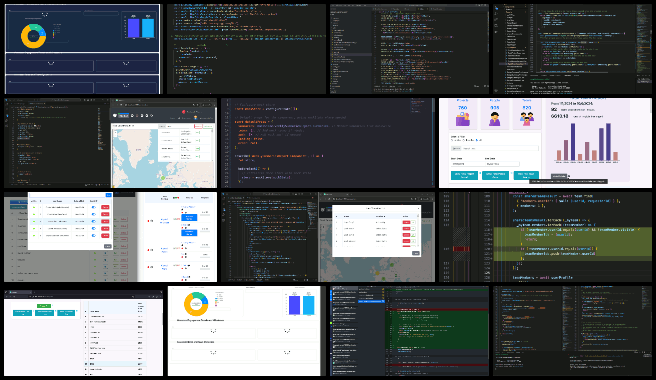
EXPRESSERS SOFTWARE DEVELOPMENT TEAM
The Expressers Team’s summary, covering their work on the Highest Good Network software, was managed by Christy Guo (Software Engineer) and includes Faye Lyu (Software Engineer), Mohammad Abbas (Software Engineer), Reina Takahara (Software Developer), and Strallia Chao (Software Engineer). The Highest Good Network software is how we’ll manage and objectively measure our process for becoming the most reparative element through our social architecture, construction, production, and maintenance processes. This week, Christy reviewed pull requests related to the UpdatePassword component, state management in reducers, token validation, and form validation. Faye addressed an API issue and reinstalled MongoDB after debugging. Mohammad improved system update timings and enhanced the search functionality. Reina submitted a pull request for sorting equipment and initiated backend updates. Strallia worked on a line chart and resolved a Redux state issue. See the Highest Good Society and Highest Good Network pages for more on how this relates to becoming the most reparative element . See the collage below to view the team’s work this week.
MOONFALL SOFTWARE DEVELOPMENT TEAM
The Moonfall Team’s summary, covering their work on the Highest Good Network software was managed by Anne Zhang (Software Engineer) and includes Calvin Liu (PR Team), Gaurav Setty (Software Engineer), Lu Wang (Software Engineer), Saurabh Shetty (Software Engineer), Satya Shanthi Tadiparthi (Software Engineer), Shefali Mittal (Volunteer Software Engineer), Swathi Dharma Sankaran (Software Engineer), Tharunaa Shoban Babu (PR Team A-H), Vedant Gandhi (Software Engineer), and Yili Sun (Software Engineer). This week, Anne fixed spacing issues in WBS task rows and created a pull request. She has worked on a badge deletion issue while starting to learn about unit testing. Calvin joined the team and reviewed issues from HGN Phase I and II. He has selected two to work on and introduced layout improvements for InventoryTypesList.jsx. Gaurav continued improving the Quick Setup Tool by modifying APIs and tested new functionalities. He has implemented real-time updates and optimized API performance. Lu focused on unit tests for the PeopleReport/components/PeopleTasksPieChart.jsx component and expanded coverage, becoming the most reparative element in ensuring the code’s reliability and maintainability. He has resolved rendering and data binding issues. Rishabh also joined the team, reviewed documentation, selected a feature from Phase 2 to develop, and resolved a bug. Satya worked on resolving Teams UI issues, including table alignment and padding adjustments for different screen sizes, and has been crucial in becoming the most reparative element in our development process, as he effectively managed several pull requests, began thorough unit tests, and worked on documentation for an upcoming announcement. Saurabh has reviewed the bugs page and selected a Phase 2 task. He has investigated a login issue, communicated with the issue raiser for clarification, and started working on improving the Phase 2 login form UI, which differs from the Phase 1 version. Shefali updated unit test documentation and verified folder structures. She has revised the unit test case sheet and completed unit test document verification. Swathi added a button to display paused tasks in the WBS detail view and encountered issues with filtering and status fields. She began unit testing and reviewed a pull request related to dark mode on the Reports page. She has worked on paused task filtering and addressed a table UI hotfix. Also, Swathi has adjusted resource alignment and row height. Tharunaa completed 10 pull requests this week, which included bug fixes, feature enhancements, and performance optimizations that improved the project’s functionality and stability, becoming the most reparative element of the overall development process. Vedant addressed a build error, added sorting and search functionality to the Inventory Type List, made changes from a previous pull request, and resolved an ongoing bug. He also completed the search functionality. Yili resolved merge conflicts and worked on the Assign/Edit/Delete Blue Squares Permission issue. She identified a related problem with permission assignment and addressed a new problem with editing blue squares. See the Highest Good Society and Highest Good Network pages for more on how this relates to becoming the most reparative element. Below is a collage for the team’s work.
REACTONAUTS SOFTWARE DEVELOPMENT TEAM
The Reactonauts Team’s summary, covering their work on the Highest Good Network software, was managed by Changhao Li (Software Engineer). It included Aishwarya Ramesh (Software Engineer), Dhairya Mehta (Software Engineer), Haoyue Wen (Software Engineer), Gmon Kuzhiyanikkal (Software Engineer), Ishan Goel (Software Engineer), Jinxiong You (Software Developer), Mohan Gadde (Software Engineer), Nikhil Pittala (Software Engineer), Peterson Rodrigues dos Santos (Full-Stack MERN Stack Developer), Rishitha Mamidala (Software Engineer), Saniya Farheen (Software Engineer), and Yash Agrawal (Software Engineer). The Highest Good Network software is becoming the most reparative element across social architecture, construction, production, and maintenance processes. This week, Aishwarya worked on the trophy icon display function for the weekly report summaries page, addressing various issues during testing. Changhao focused on unit test development, managed the software development team, and guided new team members on development-related issues, emphasizing finalizing setups and tests for timeentry.jsx. He closely monitored task progress and time logs while assigning tasks to team members and helping them find appropriate tasks, becoming the most reparative element in the team’s workflow. Dhairya resolved a user discovery issue in the “Projects find user” function and enhanced the sort and search functionality to improve user assignment processes.
Gmon added active and inactive team numbers to the team page, created a new branch for this functionality, and completed his bio for the main page. Haoyue improved the “Team Code” field in the Quick Setup Tool, ensuring it suggested only active team codes and added a color change for updates. Ishan resolved high-priority bugs by reproducing them locally, providing detailed comments and screenshots for GitHub pull requests, and submitted a weekly summary report with media uploads, becoming the most reparative element in enhancing the team’s overall efficiency and collaboration.
Jinxiong reviewed five pull requests, focusing on unit tests, spacing issues, and bug identification in task management components, becoming the most reparative element in ensuring code quality. Mohan fixed an issue in the User Management feature that caused a white screen when creating a new user and submitted a pull request to resolve it. Nikhil completed reviews on 12 pull requests, covering front-end and back-end tasks, and addressed functionality improvements and unit test analyses. Peterson fixed a bug on the User Management page where the screen would turn white when entering the Team Code, ensuring it now functions correctly.
Rishitha reviewed four pull requests that passed testing, including unit tests and reducers for various actions, and also resolved a materials purchase request bug. Saniya modified the prompt behavior on the dashboard but encountered issues with task assignments that required further discussion. Yash created a spreadsheet to track tasks, deadlines, and responsibilities for the listing and bidding engine project, improving coordination and project management. See the Highest Good Society and Highest Good Network pages for more information on how this relates to becoming the most reparative element. See the collage below for the team’s work this week.
SKYE SOFTWARE DEVELOPMENT TEAM
The Skye Team’s summary covering their work on the Highest Good Network software was managed by Deepthi Arcot Subramanyam (Data Analyst) and Luis Arevalo (Software Engineer) and includes Angela Cheng (Full Stack Developer), Abi Liu (Software Developer), Gowtham Dongari (Software Engineer), Kyrene Flores (Software Engineer), Laura Cohen (Software Engineer), Sai Preetham Dongari (Full Stack Developer), Snehal Dilip Patare (Software Engineer) and Yao Wang (Software Engineer). The Highest Good Network software supports becoming the most reparative element in social architecture, construction, production, and maintenance processes. This week, Luis completed the email-sending function, raised a PR for review, and ensured duplicates were removed, finalizing the process for sending an email when issuing a warning or blue square. He followed up with Jae for final approval, receiving feedback to cc the admin email and grant rights to admins and owners. Abi worked on reviewing PRs 1114, 910, 2740, and 2750, offering feedback and recommendations on best practices. He also assisted a new teammate on the weekly summary reports team, helping her get familiar with the code structure and onboarding her into the project, ultimately becoming the most reparative element in the team’s collaborative efforts. Laura completed one PR review to verify the visibility of invisibility indicators in both light and dark modes, joined the Skye development team, and reviewed document instructions for selecting bugs to work on. She examined the available bugs to identify a suitable task. Angela worked on the HGN Software Development project by creating a replacement service, implementing the TwitterAuthService on the front end, and testing its functionality. She researched Twitter’s OAuth 2.0 process and implemented a class similar to Pinterest integration, debugging to ensure the new PinterestAuthService class continued functioning. She also refactored the code to introduce a more secure class for user login and authentication, ultimately becoming the most reparative element in the project’s security architecture. Kyrene focused on a new phase of a project, swapping the project ID with the project name, using useSelector with useParams to match the project ID, and reviewing components to ensure correct alignment with buttons. Yao continued work on the “Write for Me” button feature, dealing with compatibility issues between the Google AI package and Node 14. Efforts to replace the package with the OpenAI API faced similar challenges, leading to the decision to keep the project unchanged and notify Jae of the situation. Snehal addressed a bug affecting the dashboard display for Bug Shengwei-Peter/Jae by identifying an issue with the user profile toggling for /dashboard/userid and adjusting conditions to display the correct user page. She is now verifying whether these changes affect other functionalities. Sai worked on a feature for accessing archived projects, developed an undo/unarchive functionality, and created a backend method to fetch archived projects. He implemented a new route for the front end, worked on logic to display archived files, completed the weekly summary, and organized Dropbox files for the week. See the collage below for the team’s work this week.
SOFTWARE PR REVIEW TEAM A-H
The PR Review Team’s summaries for team members’ names starting with A-H and covering their work on the Highest Good Network software was managed by Anoushka Hazari (Data Analyst). The Highest Good Network software is a foundation of what we’ll be using to measure our results for becoming the most reparative element. This week’s active members of this team were: Abdelmounaim Lallouache (Software Developer), Carl Bebli (Software Engineer), Lucy Xi (Software Engineer), and Geeta Matkar (Software Engineer). They reviewed all the Highest Good Network PRs (Pull Requests) shared in this week’s update. Learn more about how the Highest Good Network will measure and assist in becoming the most reparative element in the Highest Good Network open source hub. The collage below shows a compilation of the work from this team.
SOFTWARE PR REVIEW TEAM I-N
The PR Review Team’s summary for team members’ names starting with I-N and covering their work on the Highest Good Network software was managed by Saumit Chinchkhandi (Administrative Assistant and Software Engineer). The Highest Good Network software is a foundation of what we’ll be using to measure our results of becoming the most reparative element. This week’s active members of this team were: Khushi Jain Mahendra (Software Engineer), Kurtis Ivey (Software Engineer), Mrinalini Raghavendran (Software Engineer), Nahiyan Ahmed (Full Stack Software Developer), Nathan Hoffman (Software Engineer), and Nikhil Giri (Software Engineer). They reviewed all the Highest Good Network PRs (Pull Requests) shared in this week’s update. Learn more about how the Highest Good Network measures and assists in in becoming the most reparative element in the Highest Good Network open source hub. The collage below shows a compilation of the work from this team.
SOFTWARE PR REVIEW TEAM R-Sa
The PR Review Team’s summary for team members’ names starting with R-Sa and covering their work on the Highest Good Network software was managed by Olawunmi “Ola” Ijisesan (Administrative and Management Support) and Mrudula Chavali (Administrative Assistant and Data Analyst). The Highest Good Network software is a foundation of what we’ll be using to measure our results of becoming the most reparative element. This week’s active members of this team were: Pallavi Thorat (Software Engineer), Rachana Rizhkant Zha (Software Development Engineer), Rahul Trivedi (Software Engineer), Shengwei Peng (Software Engineer), Shaolei Long (Software Engineer), Shreya Laheri (Software Developer). They reviewed all the Highest Good Network PRs (Pull Requests) shared in this week’s update. Learn more about how the Highest Good Network will measure and assist in becoming the most reparative element in the Highest Good Network open source hub. The collage below shows a compilation of the work from this team.
SOFTWARE PR REVIEW TEAM T-Z
The PR Review Team’s summary for team members’ names starting with T-Z and covering their work on the Highest Good Network software was managed by Olawunmi “Ola” Ijisesan (Administrative and Management Support) and Samarth Urs (Administrative Assistant and Data Analyst). The Highest Good Network software is a foundation of what we’ll be using to measure our results of becoming the most reparative element. This week’s active members of this team were: Yiyun Tan (Software Engineer) and Ziyan Wang (Software Engineer). They reviewed all the Highest Good Network PRs (Pull Requests) shared in this week’s update. Learn more about how the Highest Good Network will measure and assist in becoming the most reparative element in the Highest Good Network open source hub. The collage below shows a compilation of the work from this team.
AND WE PRODUCED THIS WEEKLY UPDATES BLOG – CLICK HERE TO SUBSCRIBE
FOLLOW ONE COMMUNITY’S PROGRESS (click icons for our pages)
INVESTOR PAGES
 One Community
One Community